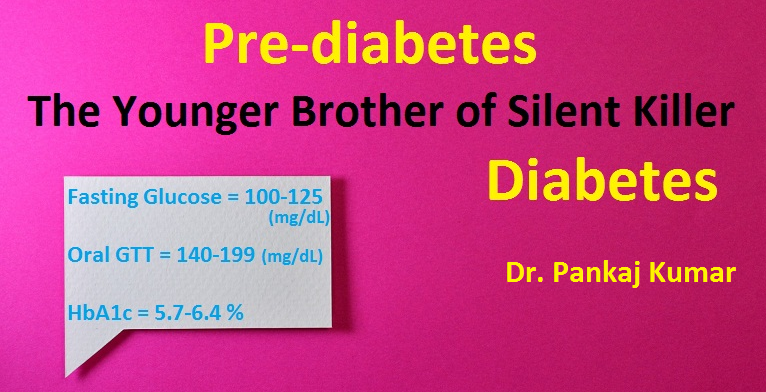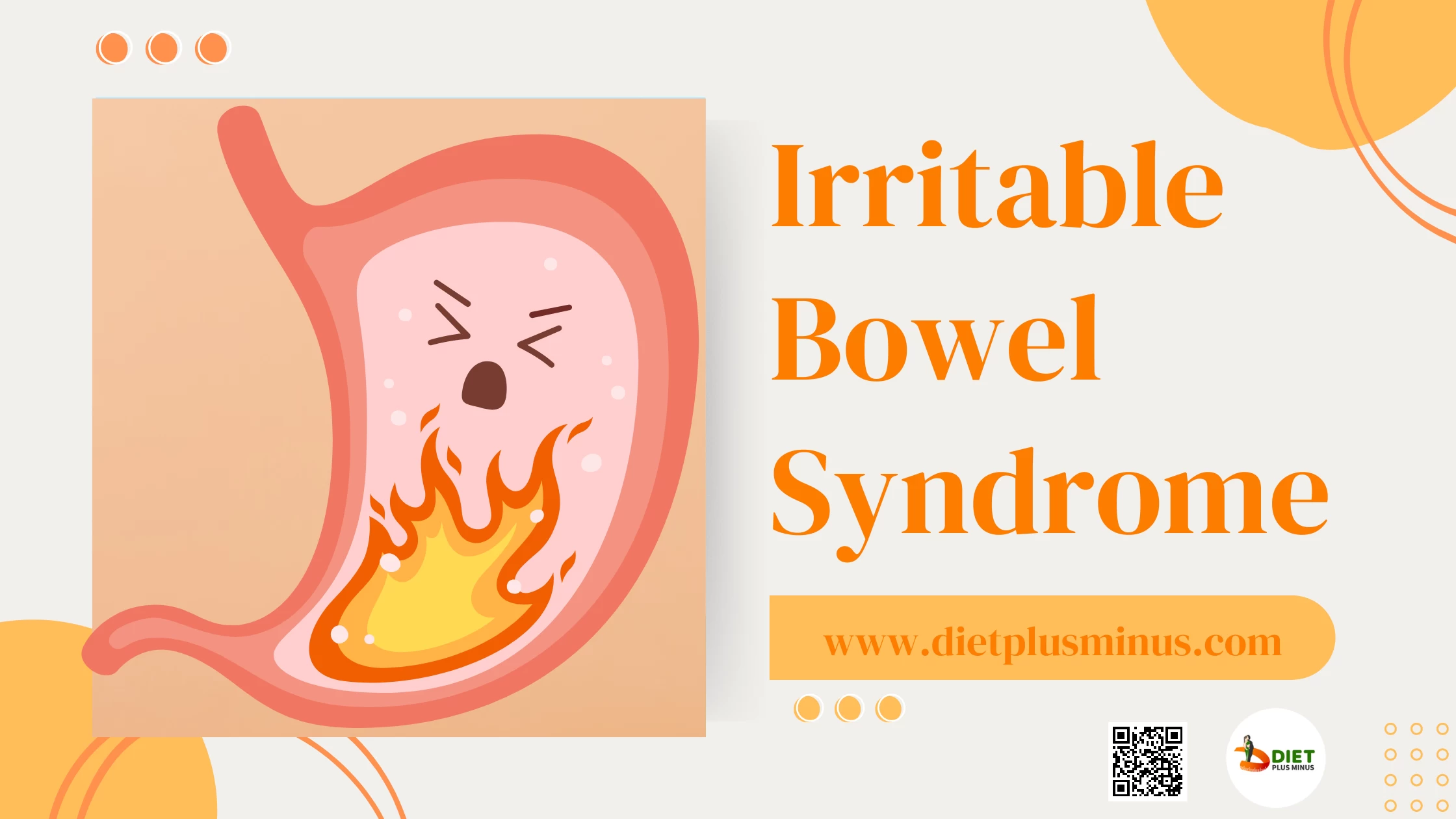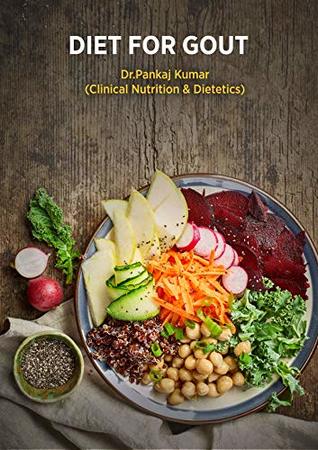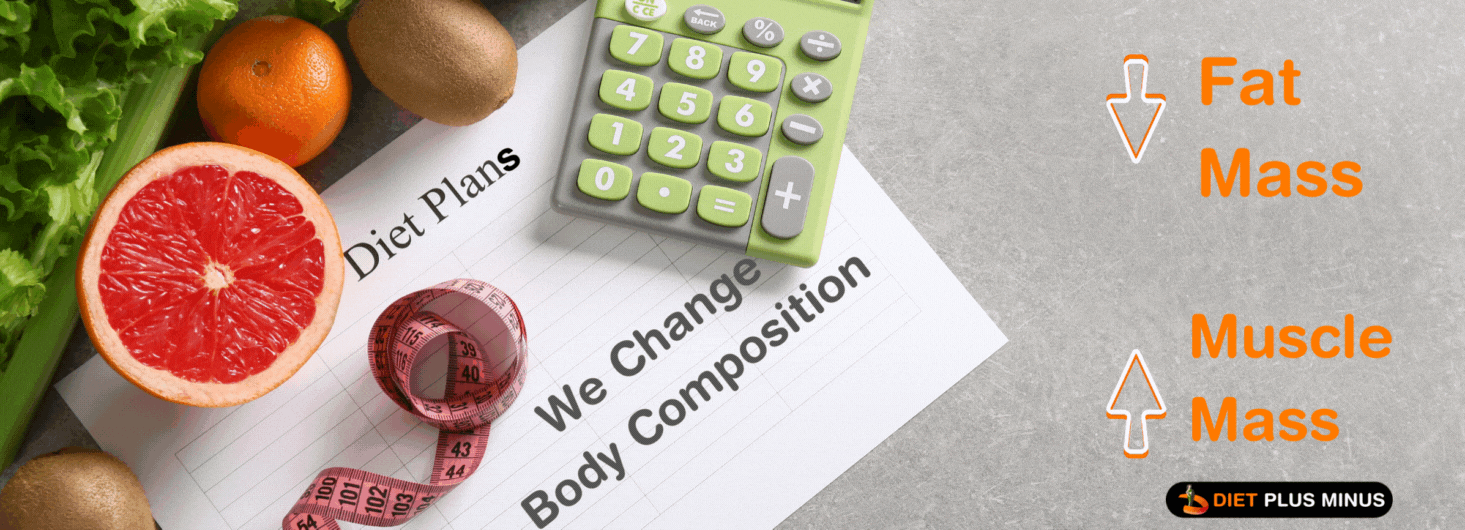
All Diet Plans
Intermittent Fasting
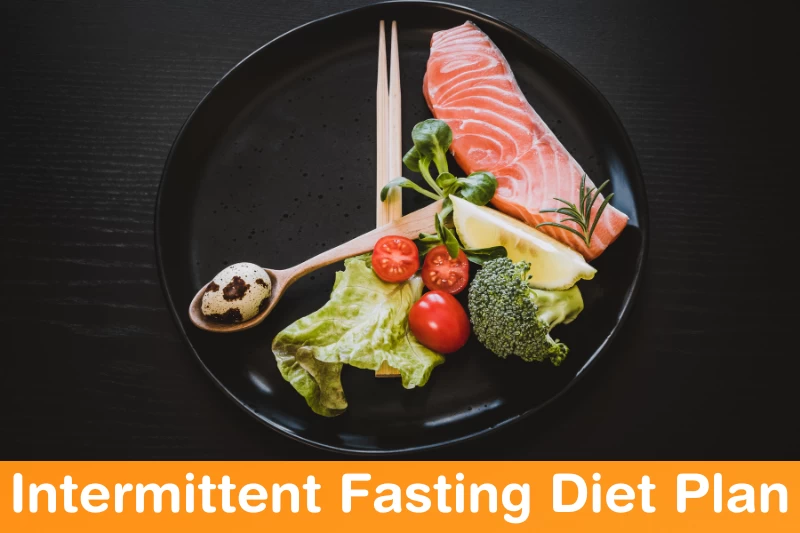
Subscription Plan
| Duration | Price | |
| 14 WEEKS DIAMOND PLANS | Rs 20000 | Express Checkout |
| Duration | Price | |
| Express checkout | ||
| 14 WEEKS PLATINUM PLANS | 289 | Express checkout |
Table of Contents
- Intermittent Fasting: A powerful tool for fat loss as well as weight loss
- What Is Intermittent Fasting?
- Reason for Fast
- Types of Intermittent Fasting
- Intermittent Fasting: A Guide for Beginners
- Effect of Intermittent Fasting on Your Cells and Hormones
- Some common changes that occur in the body while fasting is:
- Intermittent Fasting: A Powerful Weight Loss Tool
- Health Benefits
- The main health benefits of intermittent fasting are
- Makes Your Lifestyle Healthy
- Intermittent fasting should be avoided by:
- Should Women Fast?
- Safety and Side Effects
- How to start intermittent fasting?
- Should You Try It?
- Few Popular Ways to Do Intermittent Fasting
Intermittent Fasting: A powerful tool for fat loss as well as weight loss
One of the world’s most popular health and fitness trends is “Intermittent fasting” these days. This is a phenomenon involving alternating cycles of fasting and eating. According to several studies, it can cause weight loss, improve metabolic health, protect against disease and perhaps help you live longer. After going through this article, you will be able to know what intermittent fasting is and why you should care.
What Is Intermittent Fasting?
Intermittent fasting, an eating pattern, involves cycles of eating and fasting. The main focus of this eating pattern is not on the type of food to eat, but it focuses on the time when you should eat. There are different methods of intermittent fasting, all of which split the day or week into eating periods and fasting periods. Mostly, people fast every day, while sleeping. You just have to extend the period of fasting a little bit longer. It can be done by skipping breakfast, eating the first meal at noon, and the last meal at 8 pm. Technically, you have to fast for 16 hours every day and restrict your eating window to 8 hours. This is the most common pattern of intermittent fasting, commonly known as the 16:8 pattern.
Many people doing intermittent fasting reported that they feel better and more energetic during a fast. Intermittent fasting is fairly easy to do. Hunger is not a big issue, it’s just a matter of a few days. It usually takes some time for your body to get used to not eating for extended periods. Food is not allowed during the fasting period, but you can drink some non-caloric beverages like water, coffee, and tea. Few types of intermittent fasting allow small amounts of low-calorie foods during the fasting period, but, in most types of intermittent fasting, no food is allowed during the fasting period. Supplements during the fasting period are allowed, only if there is no calorie in them.
In short:
Intermittent fasting is a very popular health and fitness trend, with research to back it up. It is an eating pattern having cycles of eating and fasting.
Reason for Fast
It’s human history too fast, from thousands of years. In those days, it was done due to necessity, because the food was not available every time. After that, fasting was carried out due to religious regions. In several religions, some form of fasting is mandatory, including Islam, Christianity, and Buddhism. Humans and animals often fast when they are sick. So, it is very natural to do fasting. Our bodies are very well equipped to handle extended periods of fasting. When we don’t eat, the normal processes in the body change. To allow our bodies to thrive during a period of famine, hormones, genes, and important cellular repair processes are involved.
There is a significant reduction in blood sugar and insulin levels when fasted. A drastic increase in human growth hormone is also reported after fasting. As intermittent fasting is a very simple and effective way to restrict calories and burn fat, people do it for losing weight. Intermittent fasting is also done for metabolic health benefits, it is known to improve different risk factors and health markers.
Some research also reported that intermittent fasting can help you live longer Studies in rodents show that it can extend lifespan as effectively as calorie restriction.
Some other studies reported that it can help protect against heart disease, type2 diabetes, cancer, Alzheimer’s disease, and many more.
Many people consider intermittent fasting because of its convenience. It is very effective in making your life simpler, in addition to improving your overall health at the same time. You have to plan only a few meals, which will help you make your life more simple. It also saves your time.
In short:
The human body is well adapted to fasting from time to time. According to modern research, intermittent fasting can be beneficial for weight loss, metabolic health, and disease prevention and may even help you live longer.
Types of Intermittent Fasting
Intermittent fasting has become very popular in the past few years. There are several types of intermittent fasting. The most popular ones are:
1. The 5:2 Diet: You have to eat a maximum of 500-600 calories for 2 days, every week.
2. The 16/8 Method: You have to fast for 16 hours each day and the eating window will be open for you just for 8 hours.
3. Eat-Stop-Eat: Once or twice a week, do a fast for 24 hours.
4. Alternate Day Fasting
5. The Warrior Diet
6. Spontaneous Meal Skipping
In short:
There are several variations for intermittent fasting. The most popular are the 16:8 method, 5:2 method, and Eat-Stop-Eat method.
To add on
Restricting the eating window and eating healthy foods mindfully during the eating window can have some very impressive health benefits.
Intermittent fasting is very effective in losing fat and improving metabolic health while making your life easier at the same time.
Intermittent Fasting: A Guide for Beginners
As already discussed, intermittent fasting (IF) is currently one of the world’s most popular health and fitness trends. It is being used by people to lose weight, improve overall health, and simplify their lifestyles. The types of intermittent fasting are already discussed in the article.
Effect of Intermittent Fasting on Your Cells and Hormones
Several processes happen on the cellular and molecular level when you fast. For example, hormone levels are adjusted by your body to make fat stores of the body more accessible. Your cells also initiate important repair processes and change the expression of genes.
Some common changes that occur in the body while fasting is:
1. Cellular repair: Your cells initiate cellular repair processes, during fasting. Cells digest and remove dysfunctional proteins that build up inside the cells and the process is called autophagy.
2. Human Growth Hormone (HGH): There is a drastic (about 5 folds) increase in levels of growth hormone, skyrocketing. This is very beneficial for fat loss and muscle gain.
3. Insulin: Intermittent fasting improves insulin sensitivity and also the levels of insulin drop. The lower insulin levels in turn make stored body fat more accessible.
4. Gene expression: It is also reported in some studies that the functions of gene changes are related to longevity and protection against disease.
The main health benefits of intermittent fasting occur due to changes in hormone levels, cell function, and gene expression.
In short:
During fasting, the level of human growth hormone inside the body goes up and the insulin level goes down. Gene expressions within the cells are also changed to initiate the important cellular repair processes.
Intermittent Fasting: A Powerful Weight Loss Tool
The main reason for people to try intermittent fasting is weight loss. During intermittent fasting, you eat a lesser number of meals, leading to a significant reduction in calorie intake. In addition to lesser calorie intake, hormone levels in the body also change to enhance weight loss. Both factors work to complement each other and help in losing weight. When fasted, the release of the fat-burning hormone, norepinephrine (noradrenaline) also increases. According to some studies, due to changes in these hormones, short-term fasting increases the metabolic rate by 3.6-14%. So basically, it's a two-sided attack on extra weight, one is you eat fewer and the other is you burn more calories. In various studies, it was reported that intervention of intermittent fasting can be very powerful for weight loss.
According to a study in 2014, intermittent fasting can cause 3-8% of weight loss over 3-24 weeks. It is quite significant weight loss as compared to most weight loss studies.
According to the same study, a significant loss of 4-7 % of waist circumference was also reported. This indicates a great loss of harmful belly fat that builds around your organs and causes various diseases.
In another study, it was reported that intermittent fasting causes less muscle loss than the more standard method of continuous calorie restriction.
It must be kept in mind that these kinds of results are reported only when there is less calorie intake overall. Lower calorie intake is the main reason behind this kind of success. If you fast and eat massive amounts of food during the eating window, you may not lose any weight at all. So, overall mindful eating is important.
In short:
While eating fewer calories, there will be a slight boost in metabolism. It is a very effective way of losing weight and belly fat.
Health Benefits
To know the effect of intermittent fasting on both animals and humans, several studies have been done. These studies have reported powerful benefits for weight control as well as for the overall health of your body and brain. Intermittent fasting also claims for longer life in some studies.
The main health benefits of intermittent fasting are
1. Inflammation: Some studies show that there are reductions in markers of inflammation, which is responsible for many chronic diseases.
2. Weight loss: Without conscious restriction on calories, intermittent fasting can help you reduce weight and belly fat. The only thing you have to pay attention to is mindful eating.
3. Brain health: Most important among brain health is that intermittent fasting protects against Alzheimer’s disease. In addition, it increases BDNF, the brain hormone, and may aid the growth of new nerve cells.
4. Anti-aging: Intermittent fasting has been shown to increase the lifespan of rats. Studies showed that fasted rats lived 36–83% longer.
5. Cancer: Various studies on animals have suggested that intermittent fasting can prevent cancer.
6. Insulin resistance: Intermittent fasting can reduce insulin resistance, lower blood sugar by 3–6%, and fasting insulin levels by 20–31%, leading to protection against type2 diabetes.
7. Heart health: According to some studies, intermittent fasting can reduce LDL cholesterol, blood triglycerides, inflammatory markers, blood sugar, and insulin resistance, which can lead to heart disease.
Although intermittent fasting proved itself very beneficial, it should be always kept in mind that research is still in its early stages. Most of the studies are done on animals till now. More research is needed in this field.
In short:
Intermittent fasting can be very beneficial for your overall health including your brain. It can help reduce weight and also reduce the risk of diseases like type2 diabetes, heart disease, and cancer. It may also help in increasing the lifespan.
Makes Your Lifestyle Healthy
Eating healthy is simple and almost everyone wants to eat healthily. But the main problem is to plan and cook healthy meals. Intermittent fasting can be very helpful for you if you don’t have time to plan and cook healthy foods. In this type of diet, you don’t need to plan, cook or clean up after as many meals as before. Due to this reason, it is very popular among the life-hacking crowd, as it improves your health while simplifying your life at the same time.
In short:
One of the main benefits of intermittent fasting is that it makes you healthy at the same time makes your life simpler. You need to prepare fewer meals. So, I need less time to prepare, cook and clean up after myself.
Intermittent fasting should be avoided by:
Intermittent fasting is not for everyone. It’s not right for underweight people. If you have a history of eating disorders, you should not fast without the consultation of a health professional.
In these cases, it can be very harmful.
Should Women Fast?
Some studies show that intermittent fasting may not be as beneficial for women as it is for men. A study reported that it improved insulin sensitivity in men, but worsened blood sugar control in women. According to a study on rats, it was found that intermittent fasting can make female rats emaciated, masculinized, and infertile, and cause them to miss cycles. However, studies on this topic for humans are not available. According to some anecdotal reports, the menstrual period of women stopped when they started intermittent fasting and went back to normal when they resumed their previous eating patterns. Due to the above reasons, it is suggested to women be careful with intermittent fasting. There should be separate guidelines for women, like easing into the practice and stopping immediately if they have any problems like amenorrhea. If you have fertility issues or are trying to conceive, consider holding off on intermittent fasting for now. This eating pattern is likely also a bad idea while you’re pregnant or breastfeeding.
In short:
Underweight people or people with eating disorders should avoid fasting. Some studies also report that intermittent fasting can be harmful to some women.
Safety and Side Effects
The main side effect of intermittent fasting is hunger. It can also make you feel weak and your brain may not perform as well as you are used to. These side effects may be temporary, as your body can take some time to adapt to the new meal schedule.
If you have any kind of medical issue, you should first consult with your doctor before trying intermittent fasting.
-
Have a history of eating disorders.
-
Are underweight.
-
Take some medications.
-
Have diabetes.
-
If you have a history of amenorrhea.
-
Are pregnant or breastfeeding.
-
If trying to conceive.
-
Have low blood pressure.
-
Have problems with blood sugar regulation.
Overall, intermittent fasting has an outstanding safety profile. If you're a healthy and well-nourished person, there is nothing dangerous about intermittent fasting.
In short:
The main side effect of intermittent fasting is hunger, which is temporary and your body will adapt to it in some time. People with certain medical conditions should not start intermittent fasting without consulting with a doctor first.
How to start intermittent fasting?
Most probably, everyone has already done many intermittent fasts in their life. If you’ve ever eaten dinner, then slept late, and not eaten until lunch the next day, then you’ve probably already fasted for 16+ hours. Some people instinctively eat this way. They don’t feel hungry in the morning. Most people consider the 16:8 method the simplest and most sustainable way of intermittent fasting — you might want to try this practice first. If you don’t find any problem with this and feel good during the fast, then try moving on to more advanced fasts like 24-hour fasts 1–2 times per week (Eat-Stop-Eat) or only eating 500–600 calories 1–2 days per week (5:2 diet). Simply skipping meals from time to time when you’re not hungry or don’t have time to cook is another great and convenient approach for intermittent fasting. There is no need to follow a structured intermittent fasting plan to derive at least some of the benefits.
In short:
Normally, it is recommended to start with the 16:8 method. If you don’t feel a problem with this, you can move on to longer fasts. An experiment is important to find a method that works for you.
Should You Try It?
There is nothing special to do with intermittent fasting. It is just like a slight lifestyle change to improve your overall health. The main focus should be on mindful eating, exercise, and proper sleep. It’s completely upon your choice, if you don’t like the idea of fasting, then you can safely ignore this article and continue to do what works for you. In the end, when it comes to nutrition, there is no one-size-fits-all solution. The best diet for you will be one which you can carry for a long time. Intermittent fasting is great for some people, but not for all. The only way to find out which group you belong to is the hit & trial method. If you don’t feel it problematic when fasting and find it to be a sustainable way of eating, it can be a very powerful tool to lose weight and improve your health.
Few Popular Ways to Do Intermittent Fasting
Intermittent fasting is becoming a trend nowadays. It claims to cause weight loss, improve metabolic health, and even increase lifespan. There are several methods for intermittent fasting. Every method can be effective, but you have to choose the best suited for you.
Here are 6 popular ways to do intermittent fasting.
The 16:8 method
|
|
Day 1 |
Day 2 |
Day 3 |
Day 4 |
Day 5 |
Day 6 |
Day |
|
Midnight |
Fast |
Fast |
Fast |
Fast |
Fast |
Fast |
Fast |
|
4 am |
Fast |
Fast |
Fast |
Fast |
Fast |
Fast |
Fast |
|
8 am |
Fast |
Fast |
Fast |
Fast |
Fast |
Fast |
Fast |
|
12 pm |
Eating window |
Eating window |
Eating window |
Eating window |
Eating window |
Eating window |
Eating window |
|
4 pm |
Eating window |
Eating window |
Eating window |
Eating window |
Eating window |
Eating window |
Eating window |
|
8 pm |
Eating window |
Eating window |
Eating window |
Eating window |
Eating window |
Eating window |
Eating window |
|
Midnight |
Fast |
Fast |
Fast |
Fast |
Fast |
Fast |
Fast |
It involves fasting for 14-16 hours and restricting the eating window to 8-10 hours every day. You have to fix your 2 or 3 meals within that eating window. This method was popularized by fitness expert Martin Berkhan. Applying this type of eating pattern is very easy. It’s like not eating anything after dinner and skipping breakfast. Suppose, if you finish your last meal at 8 p.m. and don’t eat until noon the next day, you’re technically fasting for 16 hours. Fast for 14-15 hours seems to do slightly better in the case of women, so they are generally recommended to fast for 14-15 hours.
For people who get hungry in the morning and like to eat breakfast, this method may be hard to get used to at first. However, it’s easy for people who normally skip their breakfast. Zero (0) calorie beverages like water, coffee, and green tea can be taken during the fast. The main thing to be kept in mind is to eat healthy foods during the eating window. If you take excessive calories during the eating window, this method will not work. So, eat mindfully during the eating window.
In short:
The 16:8method means fasting for 16 hours for men and 114-15 hours for women. You have to restrict your eating window to 8-10 hours. During the eating window, you have to fix your 2-3 meals.
The 5:2 method
|
Day 1 |
Day 2 |
Day 3 |
Day 4 |
Day 5 |
Day 6 |
Day 7 |
|
Normal Healthy Eating |
Men: 600 calories Women: 500 calories |
Normal Healthy Eating |
Normal Healthy Eating |
Men: 600 calories Women: 500 calories |
Normal Healthy Eating |
Normal Healthy Eating |
According to this diet, you have to eat normally for 5 days and on the remaining two days of the week, you have to restrict your calorie intake to 500-600 calories. This diet was popularized by British journalist Michael Mosley. The recommended calorie intake on fasting days is 500 calories for women and 600 calories for men. Suppose, your fasting days are Tuesday and Friday. Then on Tuesday and Friday women can take two small meals of 250 calories each and men can take two small meals of 300 calories each. On the other 5 five days of the week, take a healthy diet.
In short:
In the case of 5:2 eating, eat a healthy diet on 5 days of the week, and on the remaining 2 fast days of the week, you have to take in 500-600 calories.
Weight Loss Program

Subscription Plan
| Duration | Price | |
| 4 WEEKS DIAMOND PLANS | Rs 7000 | Express Checkout |
| 14 WEEKS DIAMOND PLANS | Rs 20000 | Express Checkout |
| Duration | Price | |
| 14 WEEKS PLATINUM PLANS | $ 299 | Express checkout |
Table of Contents
- Diet Plus Minus Weight Loss Diet Plan
- What Leads To Weight Gain?
- Why Should You Lose Weight?
- Click below to know how and why our program is important for you?
- Some Pro Tips To Lose Weight
- Commonly asked questions on weight loss:
- 1. What is the best weight loss diet?
- 2. What is the simplest diet plan to reduce fat?
- 3. What would be an ideal and easy diet plan?
- 4. What should be on my daily diet chart?
- 5. What is the best diet for healthy living?
- 6. What is a diet plan for weight loss for an Indian?
- 7. What is the best Indian diet for weight loss?
- 8. With what diet can I lose a lot of weight fast?
- 9. Suggest some diet ideas to reduce weight in Indian girls.
- 10. Suggest some diet ideas for fat loss.
- 11. What is the right diet for losing weight?
- 12. What Indian diet should I follow to lose 25 kg weight?
- 13. How to create a vegetarian weight loss diet plan?
- 14. What is the best South Indian diet plan to reduce weight?
- 15. What is a South Indian diet plan to lose 10 kg weight in 1 month?
- 16. Recommend some South Indian foods for weight loss.
- 17. What is a South Indian 1000-calorie diet plan for weight loss?
- 18. How to reduce weight naturally?
- 19. How do I start losing weight?
- 20. What do I have to do to lose weight?
- 21. Is working out mandatory for losing weight?
- 22. How do I lose weight without doing exercise?
- 23. What are the best ways to lose weight?
- 24. How can I lose weight without side effects?
- 25. Can I exercise every day whenever I want to lose weight?
- 26. How can I lose weight quickly?
- 27. When individuals lose weight quickly, where is most of the weight lost from?
- 28. How can I lose weight at home, if I can't stop eating too much?
- 29. What are tips for quick weight loss?
- 30. Is intermittent fasting effective in weight loss?
Diet Plus Minus Weight Loss Diet Plan
Weight loss is definitely a difficult task to accomplish, but sometimes people make it more complicated by counting every calorie. Of course, there’s no magic tip that can do the job instantly, but you definitely don’t need to strip your diet of entire food groups for losing weight.
The fact is that no matter whether you intend to lose 5kg or 15kg, the quantity of weight you lose is determined by the same principles. So, instead of adopting a radical approach, you should try to introduce a series of healthy habits into your daily routine. According to dietplusminus, to lose weight fast you should first understand what might lead to weight gain.
What Leads To Weight Gain?
So, what exactly might cause you to gain that excess weight? Well, there’s only one reason (except for medical conditions) that causes people to gain excessive weight and hinders the weight loss process as well. It’s the bad habits, eating what you shouldn’t, not eating what you should, having an excess of something unnecessarily, etc.
Say, for example, eating too much-processed foods, or sugar can lead to excessive weight gain. Maybe, you are confusing 'fat-free' with 'calorie-free'. Or you just eat without thinking when you had this eating fits out of nowhere.
Simply put, there are two main things that will determine your weight- the number of calories you take in and the number of calories you burn, on a daily basis. Apart from all this, your genetics can also play a role in both weight gain and weight loss.

Why Should You Lose Weight?
It is indeed a valid question as to why should you actually consider losing weight even though you’re perfectly comfortable being chubby. Well, there’s actually just one reason, but it’s pretty serious. If you are overweight or obese, this means you are at a higher risk of some potentially serious health problems like high blood pressure, heart disease, stroke, type 2 diabetes, osteoarthritis, back pain, and even some types of cancer!
So, basically, you are a ticking time bomb! Nah, just kidding, you are as fine as anyone else but definitely, there are these potential risks to consider. You should know that these risks are directly proportional to the amount of excess weight that you have. More excess pounds mean the deadlier potential risks you face. Therefore, for the best of your health, you should set out on the journey of weight loss to lose those extra pounds.
Click below to know how and why our program is important for you?
Some Pro Tips To Lose Weight
The number one thing, as suggested by dietplusminus, that you need to do is to stick to a proper diet plan to lose weight.
To lose weight fast, you should try to burn more calories than you eat in a day. You should consider weight loss exercises for this purpose, so you can join a gym to go the extra mile.
Introduce fat-burning foods into your daily diet.
Also, your diet should be high in protein, but low in carbohydrates. Simply put, say no to sugar or at least eat as much less sugar as possible.
You should drink lots of water and other liquids. You should also introduce coffee and green tea to your drinks.
Commonly asked questions on weight loss:
1. What is the best weight loss diet?
Everyone’s body responds differently to different types of diets. So, it is necessary to customize a diet plan best suitable for you. Sometimes a well-balanced and low-calorie diet works in losing weight whereas in some cases a low carb diet is needed.
2. What is the simplest diet plan to reduce fat?
The diet plan to reduce fat depends upon the place of deposition of fat, whether it is subcutaneous or visceral. Depending upon the type of fat deposited in your body and your current health conditions, a diet plan is prepared for you.
3. What would be an ideal and easy diet plan?
An ideal and easy diet plan is a well-balanced diet, containing food items from all the food groups, cereals, pulses, dairy/ poultry, healthy fats, fruits, and vegetables in adequate proportions. However, it works for a healthy individual. If you have some health issues, you must contact your health care professional, to understand the proportion of these food items suitable for you.
4. What should be on my daily diet chart?
If you are a healthy individual, meaning you don’t have any serious health issues, you should select food items from all the food groups (cereals, pulses, dairy/ poultry, healthy fats, fruits, and vegetables). 50-55% of calories of your diet should come from carbs, 25% from proteins, and the remaining from fat. Give more emphasis on high biological value protein items (egg, poultry, paneer, etc.). Replace simple carbs from your diet with complex carbs, including salads, oats, green vegetables, etc. Avoid trans fat. Include omega-3-rich fat sources in your diet, including fatty fish, nuts, seeds, olive oil, avocado oil, etc.
5. What is the best diet for healthy living?
The best diet for healthy living is a well-balanced diet, including food items from all the food groups (cereals, pulses, dairy/ poultry, healthy fats, fruits, and vegetables). The most important virtue of a healthy diet is the elimination of bad food habits, including consumption of simple carbs, trans fats, and excess intake of starchy vegetables. These not only increase overall weight but also increase the cravings for sugary and salty food, which in turn increases calorie intake and weight gain.
6. What is a diet plan for weight loss for an Indian?
In most cases, a well-balanced diet (50-55% from carbs, 25% from protein, and the remaining from fat) having slightly lower calories than the requirement of your body, calculated based on your BMR and TDEE, is sufficient to reduce your weight. But in the case of fat which is old, the percentage of carbs is reduced. This is done after going through some of your blood reports. It is suggested not to start any kind of diet on your own, because it can be dangerous for your overall health.
7. What is the best Indian diet for weight loss?
First of all, it is important to understand that fat loss is necessary, not weight loss. In this case, when you put your body on a very low-calorie diet, i.e, starvation, weight loss occurs, but this weight loss is partially from fat and rest from muscles. So, your body is in a worse situation, when compared with your previous situation. Opt for a healthy, well-balanced diet and eliminate trans fat, starchy vegetables, packaged and processed foods, and simple carbs from your diet. Go for a diet slightly lower in calories than the requirement of your body, calculated based on your BMR and TDEE. Include green leafy vegetables, salads, complex carbs, legumes, healthy fats, low-fat dairy, and poultry in your diet. It will help in losing weight. If it doesn’t work, contact a healthcare professional. He/ she will guide you regarding this.
8. With what diet can I lose a lot of weight fast?
First of all, fast weight loss is not good. Always remember, slow and steady wins the race. Going for a crash diet to lose weight always gives you certain health issues in addition to weight loss. So, weight loss by opting for a healthy lifestyle is always good. It develops a habit of healthy eating and simple workouts in your daily routine. It keeps you healthy and sustains you forever.
9. Suggest some diet ideas to reduce weight in Indian girls.
The diet of an Indian girl must be rich in protein and iron because protein and iron deficiency is very common among Indian girls especially if she is vegetarian. Non-vegetarian Indian girls should include egg, chicken, fish, and lean meat at least five days a week. It will provide adequate protein and iron. The diet of a vegetarian Indian girl should include paneer, soya chunks, legumes, and other low-fat dairy products. Vegetarian girls must include citrus fruits in their diet, as the vitamin C present in citrus fruits enhances the absorption of iron from a vegetarian diet. Additionally, the diet of Indian girls should be well balanced, including green leafy vegetables, salads, complex carbs, legumes, healthy fats, low-fat dairy, and poultry. Drink plenty of water.
10. Suggest some diet ideas for fat loss.
Ideas for fat loss: 1. Don’t do binge eating 2. Emphasize complex carbs, as it reduces cravings. Avoid simple carbs, starchy vegetables, and processed and packaged foods. 3. Opt for lean protein, including low-fat dairy, fish, poultry, legumes, and lean meat. Avoid full-fat dairy and red meat. 4. Include healthy fat in your diet, including nuts, seeds, olive oil, avocado oil, etc. Avoid trans fats and fats very high in omega-6 fatty acids. 5. Include salads, low GI fruits, sprouts, and plenty of water in your diet.
11. What is the right diet for losing weight?
The best diet for losing fat is a well-balanced diet, with controlled calories. Don’t overeat. Drink plenty of water. Emphasize complex carbs (oats, salads, brown bread, multigrain flour, etc.), lean protein (poultry, low-fat dairy, etc.), and healthy fats (nuts, seeds, olive oil, avocado oil, etc.). Avoid simple carbs (sugar, jaggery, etc.), high fat protein (full-fat dairy, red meat, etc.), unhealthy fats (trans fat and fat high in omega-6 fatty acids), and processed and packaged foods.
12. What Indian diet should I follow to lose 25 kg weight?
You have not accumulated 25 kgs extra weight in one day. So, don’t expect to lose this in a week or month. A healthy diet in addition to proper physical activity is essential to losing this much weight. Limit your calorie intake. Emphasize complex carbs (oats, salads, brown bread, multigrain flour, etc.), lean protein (poultry, low-fat dairy, etc.), and healthy fats (nuts, seeds, olive oil, avocado oil, etc.). Avoid simple carbs (sugar, jaggery, etc.), high fat protein (full-fat dairy, red meat, etc.), unhealthy fats (trans fat and fat high in omega-6 fatty acids), and processed and packaged foods. If it doesn’t work, meaning you don’t lose any weight by opting for this for a month, contact a healthcare professional. He/ she will guide you regarding this.
13. How to create a vegetarian weight loss diet plan?
Don’t overeat. It is a bad habit, just like poking your nose or not cleaning your hands before eating. Vegetarians should include low-fat dairy products, especially paneer in their daily diet. Soya chunks, rajma, chickpeas, tofu, paneer, etc are good replacements for meat, poultry, and fish. Include complex carbs in your diet (oats, salads, brown bread, multigrain flour, etc.). Opt for healthy fat options, including nuts, seeds, olive oil, avocado oil, etc. Avoid simple carbs (sugar, jaggery, etc.), high fat protein, like full-fat dairy, unhealthy fats (trans fat and fat high in omega-6 fatty acids), and processed and packaged foods.
14. What is the best South Indian diet plan to reduce weight?
For reducing weight by eating a South Indian diet, first of all, replace rice with millets in making idlis. Plain ragi dosas and low-calorie appams are also good options. Steamed millet idlis with a bowl full of sambhar is a good option. Don’t eat idli, appams, or dosas with chutney alone, must include a medium bowl full of sambhar with it. Include salads, sprouts, nuts, seeds, low-fat paneer, poultry, and fish in your daily diet.
15. What is a South Indian diet plan to lose 10 kg weight in 1 month?
First of all neither you can gain 10 kg in 1 month nor you can lose it, in normal situations. Don’t overeat. Drink plenty of water. Opt for steamed millet idlis, ragi dosas, and low-calorie appams. Don’t eat idli, appams, or dosas with chutney alone, must include a medium bowl full of sambhar with it. Include salads, sprouts, nuts, seeds, low-fat paneer, poultry, and fish in your daily diet. Additionally, start low resistance exercises at least 30 minutes a day for 5 days a week.
16. Recommend some South Indian foods for weight loss.
Some South Indian foods for weight loss include steamed millet idlis, ragi dosas, and low-calorie appams. They are undoubtedly healthy, but still high in carbs. So, you can't depend upon these foods if you desire weight loss. Include salads, sprouts, nuts, seeds, low-fat paneer, poultry, and fish in your daily diet. Drink plenty of water. Avoid binge eating. A well-balanced diet (50-55% from carbs, 25% from protein, and the remaining from fat) having slightly lower calories than the requirement of your body, calculated based on your BMR and TDEE, is sufficient to reduce your weight.
17. What is a South Indian 1000-calorie diet plan for weight loss?
First of all, intake of a 1000-calorie diet is not safe. If you continue this for 3 months or more, it will drag you into starvation mode. A well-balanced diet (50-55% from carbs, 25% from protein, and the remaining from fat) having slightly lower calories than the requirement of your body, calculated based on your BMR and TDEE, is sufficient to reduce your weight. However, if you want a 1000-calorie diet plan go through the given link. ………………link.
18. How to reduce weight naturally?
To reduce weight naturally, the most important aspect is calorie control. A well-balanced diet (50-55% from carbs, 25% from protein, and the remaining from fat) having slightly lower calories than the requirement of your body, calculated based on your BMR and TDEE, is sufficient to reduce your weight. Include complex carbs in your diet (oats, salads, brown bread, multigrain flour, etc.). Eat lean protein (low fat paneer, poultry, fish, and legumes). Opt for healthy fat options, including nuts, seeds, olive oil, avocado oil, etc. Avoid simple carbs (sugar, jaggery, etc.), high fat protein, like full-fat dairy, red meat, unhealthy fats (trans fat and fat high in omega-6 fatty acids), and processed and packaged foods.
19. How do I start losing weight?
For beginners, elimination of bad food habits and inclusion of low resistance exercise for 30 minutes per day, at least 5 days a week is good. Here bad food habits mean overeating, eating too late at night, eating simple carbs, and processed and packaged foods. Include complex carbs in your diet (oats, salads, brown bread, multigrain flour, etc.). Eat lean protein (low fat paneer, poultry, fish, and legumes). Opt for healthy fat options, including nuts, seeds, olive oil, avocado oil, etc.
20. What do I have to do to lose weight?
To lose weight, leave simple carbs (sugar, honey, jaggery, etc), processed foods, and packaged foods today. Increase your physical activity (at least 30 minutes per day, 5 days a week). Limit your calorie intake, i.e., don’t overeat. Include complex carbs in your diet (oats, salads, brown bread, multigrain flour, etc.). Eat lean protein (low fat paneer, poultry, fish, and legumes). Opt for healthy fat options, including nuts, seeds, olive oil, avocado oil, etc. Avoid simple carbs (sugar, jaggery, etc.), high fat protein, like full-fat dairy, red meat, unhealthy fats (trans fat and fat high in omega-6 fatty acids), and processed and packaged foods.
21. Is working out mandatory for losing weight?
Workout, especially medium resistance exercise is very important during losing weight. It helps in muscle gain, needed in the formation of a toned body. It also helps in faster fat loss and increases your metabolism.
22. How do I lose weight without doing exercise?
However, some diets can help you lose weight without doing exercise, it is necessary for the formation of healthy muscles and also to boost your metabolism. It helps in faster fat loss, and muscle gain, and increases your metabolism. A well-balanced diet (50-55% from carbs, 25% from protein, and the remaining from fat) having slightly lower calories than the requirement of your body, calculated based on your BMR and TDEE, is sufficient to reduce your weight.
23. What are the best ways to lose weight?
The best way to lose weight is a well-balanced diet in addition to a medium resistance exercise for 30 minutes per day, at least 5 days a week. The formula of a well-balanced diet is 55: 25: 20, i.e, 55 % of your calories should come from carbohydrates, 25% from protein, and the rest from fat. But make one thing very clear in your mind you have to opt for complex carbs, lean protein, and healthy fats to lose weight.
24. How can I lose weight without side effects?
Make one thing very clear in your mind slow and steady wins the race. The use of supplements and pills to lose weight can give you results in just a few weeks, but in addition, there are severe side effects associated with these products. A healthy well-balanced diet in addition to adequate physical activity gives you the best result. A healthy diet and exercise gradually become the most important part of your daily routine. A well-balanced diet (50-55% from carbs, 25% from protein, and the remaining from fat) having slightly lower calories than the requirement of your body, calculated based on your BMR and TDEE, is sufficient to reduce your weight. Opt for complex carbs, lean protein, and healthy fats to lose weight.
25. Can I exercise every day whenever I want to lose weight?
No, it’s not necessary to do exercise every day of the week. A low resistance exercise for 30 minutes per day, at least 5 days a week, or a high-intensity workout 3-5 days a week can help you in burning fat more effectively, increase metabolism, and helps in muscle build-up. Don't exercise for 2 hours after having a meal.
26. How can I lose weight quickly?
There is no such rule as losing weight quickly. Some companies boast that their pills and supplements can help you lose weight quickly, but there is not much evidence to prove this. A balanced diet with limited calories and medium to high resistance exercise half an hour per day, at least 5 days a week can help you lose fat, increase muscles, and also increase your metabolism.
27. When individuals lose weight quickly, where is most of the weight lost from?
First of all, quick weight loss is not healthy weight loss. You can lose weight quickly either by peels and supplements or by taking very low calories. Both of these can cause severe side effects. In the case of quick and unhealthy weight loss, the loss is from water, muscle tissue, and bones. In the case of healthy weight loss i.e., the loss is from water, fat, and glycogen.
28. How can I lose weight at home, if I can't stop eating too much?
Too much eating is a result of too much craving. Eating unhealthy and simple carbs, and processed and packaged foods results in cravings. So, if you replace these food items with complex carbs, nuts, seeds, and adequate amounts of lean protein, you will feel full for a long time. This in turn will result in lesser calorie intake and reduced weight.
29. What are tips for quick weight loss?
There is no such hard and fast rule for quick weight loss. Some companies boast that their pills and supplements will help reduce weight quickly, but there is no strong evidence to prove this. The best way to lose weight is eating a healthy balanced diet with limited calories, in addition to medium to high-intensity exercise for 30 minutes per day, at least 5 days a week.
30. Is intermittent fasting effective in weight loss?
Intermittent fasting involves regular short-term fasts. Intermittent fasting causes lesser calorie intake due to fasting periods in between. It results in weight loss over time. Additionally, intermittent fasting modifies the risk factor for health conditions like diabetes and cardiovascular disease, by lowering cholesterol and blood sugar levels.
Nutritional Assessment

Subscription Plan
| Duration | Price | |
| Nutritional assessment only | 999 | |
| Nutritional assessment with diet plan | 1999 |
| Duration | Price | |
| Express checkout |
What do you mean by "nutrition"?
The word nutrition itself means "the process of nourishing or being nourished, especially the process by which we assimilate food and use it for growth and replacement of tissues".
Nutrients are substances that are essential to life and must be supplied by food. A majority of the population is deficient in one nutrient or the other but the amazing fact is that most of them aren't even aware of it! At DietPlusMinus, we take your blood test to do your nutritional assessment and study your body profile. After a detailed study of your body profile and tests thoroughly, we prepare scientific diet charts and exercise plans just for you!
Today more than ever, obtaining nutritional knowledge can make a big difference in lives. Air, soil, and water pollution in addition to modern farming techniques have depleted soils of vital minerals. The widespread use of food additives, chemicals, sugar, and unhealthy fats in diets contributes to many of the degenerative diseases of the day such as cancer, heart disease, arthritis, and osteoporosis.
The nutritional care process begins with a nutritional assessment. Nutrition assessment is the evaluation of an individual’s nutritional status and nutrient requirements. It is a systematic process of obtaining, verifying, and interpreting data to make decisions about the nature and cause of nutrition-related problems. The purpose of nutrition assessment is to:
1. Obtain adequate information to identify nutrition-related problems.
2. Define accurately an individual’s nutritional status
3. Determine the level of nutritional support that individuals need, and
4. Monitor changes in the nutritional status and the effect of nutritional intervention
At DietPlusMinus, our goal of nutrition assessment is achieved by “ABCD” analysis:
A stands for Anthropometric measures: It measures growth in children and shows changes in weight in all populations that can reflect diseases and help to monitor progress in fat loss or gain.
B stands for Biochemical investigations: These help to reveal nutrients and metabolites in blood and/ or urine, and /or feces that indicate an infection or a disease.
|
ABCD analysis for Nutritional Assessment |
|
|---|---|
|
A |
Anthropometric measures |
|
B |
Biochemical investigations |
|
C |
Clinical analysis |
|
D |
Diet history and nutrient intake |
C stands for Clinical analysis: This analysis includes a complete physical examination and a medical history. The physical examination begins with the patient’s general appearance. Nutrition-oriented aspects of the physical examination focus on the skin, hair, head, eyes, mouth, nails, extremities, abdomen, skeletal muscle, and fat stores.
D stands for Diet history and nutrient intake: This is used to evaluate diet for nutrient or food intake. Common methods used include the 24-hour diet recall, diet history, food frequency questionnaire, weighment method, etc.
Once you’ve reached your goal weight and are looking towards transitioning towards a normal way of eating after weight loss, it is more difficult to navigate food choices. The most successful way to maintain your weight loss is by making lifestyle changes that work for you. The transition from dieting to regular eating needs some precautions as most of the time it is a difficult task.
Normally after achieving desired weight or getting revealed a painful symptom, people return to their pre-packaged diet and also lifestyle. It can make the situation even more drastic. So, at DietPlusMinus, we have a maintenance diet plan for you.
Celiac Disease Diet Plan
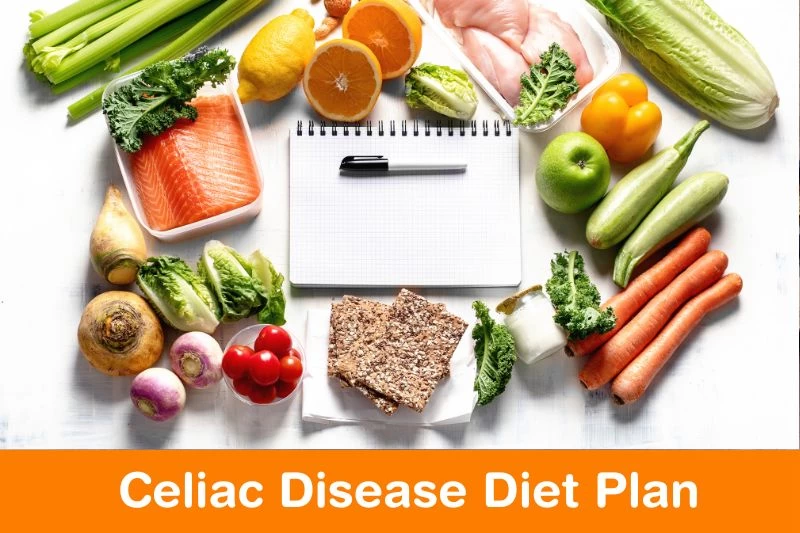
Subscription Plan
Table of Contents
- I. Introduction
- A. Overview of celiac disease and its impact on health
- B. Introduction of Dr. Pankaj Kumar as the best dietician in Delhi
- C. Importance of expert guidance in dietary management of celiac disease
- II. Understanding Celiac Disease
- A. Explanation of celiac disease, its autoimmune nature, and gluten intolerance
- B. Symptoms, diagnosis, and potential complications of celiac disease
- C. Role of Dr. Pankaj Kumar in providing specialized care for celiac disease patients in Delhi
- III. Dietary Management of Celiac Disease
- A. Importance of a gluten-free diet in managing celiac disease
- B. Expert advice and personalized meal plans provided by Dr. Pankaj Kumar
- C. Optimizing nutrition and maintaining a balanced diet without gluten
- IV. Gluten-Free Diet Tips and Recommendations
- A. Identifying gluten-containing foods and hidden sources of gluten
- B. Nutritional guidance and substitutes for gluten-rich products
- C. Tailored meal planning and consultation services offered by Dr. Pankaj Kumar
- V. Dining Out and Social Situations
- A. Strategies for eating out safely while adhering to a gluten-free diet
- B. Recommendations for navigating social events and gatherings
- C. Expert advice from Dr. Pankaj Kumar on managing celiac disease in various social scenarios
- VI. Regular Follow-ups and Support
- A. Importance of regular check-ups and monitoring for celiac disease patients
- B. Benefits of ongoing guidance and support from Dr. Pankaj Kumar, the best dietician in Delhi
- C. Additional resources and support networks available for individuals with celiac disease
- VII. Conclusion
I. Introduction
A. Overview of celiac disease and its impact on health
Gluten consumption damages the small intestine in celiac disease, an autoimmune disorder. It impairs nutrient absorption and causes health issues. Digestive, nutrient, fatigue, and neurological issues are symptoms. Proper diagnosis and gluten-free diet are necessary to manage the condition and prevent long-term health issues.
B. Introduction of Dr. Pankaj Kumar as the best dietician in Delhi
The best dietician in Delhi, Dr. Pankaj Kumar, manages celiac disease and other health conditions. Dr. Kumar gives his patients personalised nutrition advice based on his extensive experience. His evidence-based approach, personalised meal plans, and ongoing support make him a trusted choice for Delhi residents seeking optimal dietary management. Dr. Pankaj Kumar is the region's top dietician due to his dedication to patient care.
C. Importance of expert guidance in dietary management of celiac disease
Celiac disease diet management requires expert advice for several reasons. First, a gluten-free diet is complicated without proper guidance. Second, an expert like Dr. Pankaj Kumar can provide accurate diagnosis, customised meal plans, and comprehensive nutritional advice. Thirdly, expert guidance helps patients manage their condition and avoid complications. Dr. Kumar's expertise is crucial for celiac patients' health and well-being.
II. Understanding Celiac Disease
A. Explanation of celiac disease, its autoimmune nature, and gluten intolerance
Gluten, found in wheat, barley, and rye, causes celiac disease, an autoimmune disorder. Gluten triggers celiac disease's immune system to attack the small intestine. This immune response causes intestinal villi damage, inflammation, and nutrient absorption. Celiac disease is autoimmune, unlike gluten intolerance or sensitivity.
B. Symptoms, diagnosis, and potential complications of celiac disease
Celiac disease symptoms vary, but diarrhoea, abdominal pain, and bloating are common. Other non-digestive symptoms include fatigue, anaemia, weight loss, and skin rashes. Blood tests for specific antibodies and a small intestine biopsy confirm diagnosis. Untreated celiac disease can cause nutrient deficiencies, osteoporosis, infertility, and certain cancers. Prevention requires early diagnosis and gluten-free diet.
C. Role of Dr. Pankaj Kumar in providing specialized care for celiac disease patients in Delhi
Delhi and Dwarka celiac disease patients depend on Dr. Pankaj Kumar. He is a leading dietician in celiac disease management. Dr. Kumar's compassion and deep understanding of the condition ensure patients receive individualised attention and comprehensive guidance. Dr. Pankaj Kumar guides celiac disease patients through their diets to achieve optimal health.
III. Dietary Management of Celiac Disease
A. Importance of a gluten-free diet in managing celiac disease
Celiac disease management requires a gluten-free diet. Celiacs can avoid the autoimmune response and small intestine damage by avoiding gluten. Gluten-free diets reduce symptoms, heal the gut, and improve health. Celiac disease treatment relies on it for long-term health and fewer complications.
B. Expert advice and personalized meal plans provided by Dr. Pankaj Kumar
Dr. Pankaj Kumar, the best dietician in Delhi and Dwarka, advises celiac patients and creates customised meal plans. Dr. Kumar customises diets for his patients using his nutrition expertise. His guidance ensures optimal nutrition and celiac disease management on a gluten-free diet. Dr. Kumar's personalised approach empowers people to make informed dietary choices and encourages long-term gluten-free living.
C. Optimizing nutrition and maintaining a balanced diet without gluten
Celiac disease management requires proper nutrition and a gluten-free diet. Dr. Pankaj Kumar recommends nutritious gluten-free foods like fruits, vegetables, lean proteins, and gluten-free grains. A varied diet meets nutritional needs and promotes health. Dr. Kumar's expertise in balancing nutrients and meal planning helps gluten-free people eat well.
IV. Gluten-Free Diet Tips and Recommendations
A. Identifying gluten-containing foods and hidden sources of gluten
Celiacs must identify gluten-containing foods and hidden sources. Dr. Pankaj Kumar helps patients identify gluten-containing wheat, barley, rye, and their derivatives. He teaches them to read food labels to find hidden gluten in sauces, condiments, and processed foods. Dr. Kumar's knowledge helps people avoid unintentional gluten exposure and manage celiac disease.
B. Nutritional guidance and substitutes for gluten-rich products
Dr. Pankaj Kumar advises celiacs on nutrition and gluten-free alternatives. He advises patients on gluten-free, nutrient-rich grains, flours, and ingredients. Dr. Kumar's expertise ensures that people can enjoy a variety of gluten-free options while eating healthy. His advice lets people try new flavours and make delicious gluten-free meals without sacrificing nutrition.
C. Tailored meal planning and consultation services offered by Dr. Pankaj Kumar
Dr. Pankaj Kumar offers celiac disease-specific meal planning and consultation. He creates meal plans based on dietary needs, preferences, and health conditions through personalised consultations. Dr. Kumar's guidance on gluten-free nutrition, portion control, and meal timing empowers patients to make informed decisions and reach their health goals. He helps people overcome dietary challenges and improve their health.
V. Dining Out and Social Situations
A. Strategies for eating out safely while adhering to a gluten-free diet
Dr. Pankaj Kumar offers tips for celiacs to eat out safely on a gluten-free diet. He recommends gluten-free restaurants. Dr. Kumar helps people communicate their dietary needs to restaurant staff and chefs to ensure proper meal preparation. He also urges diners to ask questions and clear up any cross-contamination concerns to ensure a safe meal.
B. Recommendations for navigating social events and gatherings
Dr. Pankaj Kumar advises celiacs on social events. He recommends informing hosts or organisers of dietary restrictions in advance to allow for accommodations. Dr. Kumar suggests bringing gluten-free food to share. He advises people to politely assert their needs and bring gluten-free food to enjoy the event without compromising their health.
C. Expert advice from Dr. Pankaj Kumar on managing celiac disease in various social scenarios
Dr. Pankaj Kumar advises on social celiac disease management. He provides tips for gluten-free dining, parties, and travel. Dr. Kumar stresses communication, planning, and gluten-free alternatives. His advice helps people enjoy social activities without compromising their diets or health.
VI. Regular Follow-ups and Support
A. Importance of regular check-ups and monitoring for celiac disease patients
Celiac disease patients need regular checkups to manage their condition. Dr. Pankaj Kumar stresses the importance of routine medical assessments, such as blood tests and follow-up visits, to monitor patient progress and identify complications. Regular check-ups help evaluate nutritional status, intestinal healing, and ongoing symptoms. Dr. Kumar's proactive monitoring ensures optimal care and long-term health for celiac disease patients.
B. Benefits of ongoing guidance and support from Dr. Pankaj Kumar, the best dietician in Delhi
Celiac disease patients benefit from Dr. Pankaj Kumar, the best dietician in Delhi,'s ongoing guidance and support. Dr. Kumar's expertise ensures patients receive continuous education, personalised meal plans, and help overcoming challenges. His support helps people stay motivated, make informed choices, and follow a gluten-free diet. Dr. Kumar's guidance improves symptom management, nutrition, and quality of life.
C. Additional resources and support networks available for individuals with celiac disease
Celiac disease patients can access additional resources and support networks beyond Dr. Pankaj Kumar. Numerous forums, websites, and platforms offer gluten-free information, recipes, and tips. Local and international celiac disease support groups can provide advice, support, and community. These resources and Dr. Kumar's expertise form a comprehensive celiac disease support system.
VII. Conclusion
A. Recap of the significance of dietary management in celiac disease
Celiac disease management depends on diet. Gluten-free diets reduce intestinal damage, symptoms, and complications. Dr. Pankaj Kumar's expertise and personalised guidance help individuals receive tailored dietary recommendations, identify gluten-containing foods, and make informed choices. Celiac disease sufferers can live a healthy, happy life by managing their diets.
B. Encouragement to seek guidance from Dr. Pankaj Kumar for expert care
Celiac patients should consult Dr. Pankaj Kumar. The best dietician in Delhi, his expertise and personalised approach can help manage the condition. Dr. Kumar's expertise ensures accurate diagnosis, tailored dietary plans, and ongoing monitoring, enabling celiac disease patients to manage their health. He can help people manage celiac disease and get the best results.
C. Importance of leading a fulfilling life through proper dietary management of celiac disease with the best dietician in Delhi
Dr. Pankaj Kumar, the best dietician in Delhi, can help you manage celiac disease through diet. A gluten-free diet and expert guidance can reduce symptoms, complications, and overall well-being. Dr. Kumar's personalised approach empowers people to live a healthy, balanced lifestyle, enjoy a variety of gluten-free options, and confidently participate in social activities without compromising their health. With his help, celiac disease patients can thrive and enjoy life.
Ulcerative Colitis Diet Plan

Subscription Plan
I. Introduction to Ulcerative Colitis
A. Definition and explanation of ulcerative colitis
Ulcerative colitis is a colon and rectum-focused chronic inflammatory bowel disease. It causes abdominal pain, diarrhoea, and rectal bleeding due to large intestine inflammation and ulcers. Ulcerative colitis is an autoimmune disease where the immune system attacks healthy digestive tissues, causing inflammation. It needs lifelong treatment.
B. Brief overview of its impact on digestive health
Ulcerative colitis affects digestion. Colorectal inflammation and ulcers can cause diarrhoea, abdominal pain, cramping, and rectal bleeding. It can also reduce appetite, fatigue, and weight. To reduce symptoms and improve digestive health, the chronic condition requires careful diet management.
C. Importance of dietary management in managing symptoms and improving quality of life
Ulcerative colitis patients benefit from dietary management. Food choices can reduce inflammation, relieve symptoms, and improve gut health. A balanced diet provides nutrients without triggering symptoms. Dr. Pankaj Kumar in Delhi and Dwarka can help you create an effective ulcerative colitis diet.
II. Role of Diet in Ulcerative Colitis
A. Explanation of how diet affects ulcerative colitis symptoms
Diet directly affects the digestive system and ulcerative colitis symptoms. Some foods promote gut health and reduce inflammation, while others worsen symptoms. High-fiber foods can worsen flare-ups, while low-residue or low-fiber diets can help. Ulcerative colitis patients can manage symptoms and improve health by identifying trigger foods and eating a balanced diet. Dieticians like Dr. Pankaj Kumar in Delhi and Dwarka can help you design a healthy diet.
B. The connection between inflammation and certain food triggers
Certain foods can cause or worsen ulcerative colitis inflammation. Spicy, alcohol, caffeine, dairy, high-fat, and processed foods are triggers. These foods can inflame the digestive system and cause abdominal pain, diarrhoea, and rectal bleeding. Avoiding trigger foods can reduce inflammation and improve symptoms. Dr. Pankaj Kumar in Delhi and Dwarka can help identify and manage food triggers.
C. Benefits of following a tailored diet plan in reducing flare-ups and promoting healing
Ulcerative colitis patients benefit from customised diets. A customised diet that avoids trigger foods and includes gut-healing foods can reduce flare-ups. A balanced, nutrient-dense diet can boost immunity, reduce inflammation, and improve health. Dr. Pankaj Kumar, the best dietician in Delhi and Dwarka, creates customised diet plans for ulcerative colitis patients and guides them on their path to better health.
III. Dietary Guidelines for Ulcerative Colitis
A. Importance of working with a qualified dietician like Dr. Pankaj Kumar
Ulcerative colitis patients need a dietician like Dr. Pankaj Kumar. Dr. Kumar's expertise in dietary management ensures customised care and support for each patient. Dr. Kumar helps patients navigate dietary restrictions, receive evidence-based advice, and make informed decisions that promote healing and symptom management. Dr. Kumar is the best dietician in Delhi and Dwarka for ulcerative colitis patients.
B. Overview of the specific dietary considerations for ulcerative colitis
Dietary changes are needed to treat and prevent ulcerative colitis. Avoiding spicy foods, alcohol, and caffeine can reduce inflammation. Fibre from fruits, vegetables, and whole grains regulates bowel movements. Hydration and anti-inflammatory foods like fatty fish and turmeric can help. Dr. Pankaj Kumar, the best dietician in Delhi and Dwarka, can help ulcerative colitis patients with customised diets.
C. Emphasis on individualized meal plans and food modifications based on personal triggers and preferences
Individualised meal plans that address triggers and food preferences help manage ulcerative colitis. Dr. Pankaj Kumar, the best dietician in Delhi and Dwarka, customises diets for ulcerative colitis patients. This method involves identifying trigger foods and replacing them with suitable alternatives. Personal triggers and preferences can help people find a healthy, sustainable diet.
IV. Key Nutrients and Foods for Ulcerative Colitis
A. Highlighting the importance of nutrient-rich foods for managing symptoms
Vitamins, minerals, and antioxidants from nutrient-rich foods help heal and support the immune system, managing ulcerative colitis symptoms. The best dietician in Delhi and Dwarka, Dr. Pankaj Kumar, recommends eating fruits, vegetables, whole grains, lean proteins, and healthy fats. These foods reduce inflammation, support gut health, and provide energy for optimal functioning. Nutrient-rich foods improve overall health and ulcerative colitis symptoms.
B. Specific nutrients and their role in promoting gut health and reducing inflammation
Nutrients help ulcerative colitis patients maintain gut health and reduce inflammation. Dr. Pankaj Kumar, the best dietician in Delhi and Dwarka, recommends omega-3-rich foods like fatty fish and flaxseeds to reduce inflammation. Probiotics in yoghurt and fermented foods also promote gut health. Berries and leafy greens fight oxidative stress. Finally, fiber-rich whole grains and legumes support digestive health and regularity.
C. Discussing recommended foods and food groups, including examples of beneficial options
Certain foods and food groups help manage ulcerative colitis. Dr. Pankaj Kumar, the best dietician in Delhi and Dwarka, recommends lean proteins like skinless poultry, fish, tofu, and legumes. Cooked carrots and peeled apples are good low-fiber foods. Gluten-free oats and rice are usually well-tolerated. Olive oil and avocados can nourish without causing symptoms.
V. Additional Lifestyle Tips for Ulcerative Colitis Management
A. Mentioning the importance of stress management and regular physical activity
Ulcerative colitis management requires diet, stress management, and exercise. Dr. Pankaj Kumar, the best dietician in Delhi and Dwarka, recommends meditation, yoga, and deep breathing to reduce stress. Walking or low-impact exercises can improve well-being and ulcerative colitis symptoms. Dr. Kumar provides personalised stress management and exercise advice.
B. Strategies for maintaining hydration and optimizing digestive health
Ulcerative colitis patients must stay hydrated for digestive health. Dr. Pankaj Kumar, the best dietician in Delhi and Dwarka, advises drinking enough water and eating fruits and vegetables. Avoid caffeine and alcohol as they dehydrate. Dr. Kumar can tailor hydration and diet advice to improve digestive health.
C. The significance of ongoing support from a knowledgeable dietician like Dr. Pankaj Kumar
Ulcerative colitis patients need expert dieticians like Dr. Pankaj Kumar. Dr. Kumar can guide and monitor diets to meet individual needs and goals. Dr. Kumar can provide insights, address concerns, and make necessary adjustments to optimise symptom management and overall well-being with his expertise in ulcerative colitis and dietary management. His guidance helps ulcerative colitis patients make health decisions.
VI. Conclusion
A. Recap of the importance of dietary management in ulcerative colitis
Ulcerative colitis management and quality of life depend on diet. A customised diet can reduce symptoms, minimise flare-ups, and promote digestive tract healing. Dr. Pankaj Kumar, an ulcerative colitis dietician, provides personalised advice on diet. Dietary management can improve health, well-being, and quality of life.
B. Encouragement to seek expert guidance from Dr. Pankaj Kumar for personalized dietary recommendations
Dr. Pankaj Kumar, the best dietician in Delhi and Dwarka, is recommended for ulcerative colitis patients. He can give you personalised dietary advice based on his ulcerative colitis management expertise. Dr. Kumar can help you manage your diet, optimise nutrition, and improve your health. Consult Dr. Pankaj Kumar for the best ulcerative colitis care and support.
C. Emphasis on the potential for improved symptom control and better quality of life through dietary modifications
Dietary changes can improve ulcerative colitis symptoms and quality of life. Dr. Pankaj Kumar, the best dietician in Delhi and Dwarka, can help you modify your diet to suit your condition. Dietary management with Dr. Kumar may reduce inflammation, flare-ups, and overall well-being. Dr. Pankaj Kumar's ulcerative colitis dietary management expertise can improve symptom control and quality of life.
Infertility Diet (Due to Obesity)
.webp)
Subscription Plan
| Duration | Price | |
| 4 WEEKS DIAMOND PLANS | Rs 7000 | Express Checkout |
| 14 WEEKS DIAMOND PLANS | Rs 20000 | Express Checkout |
| Duration | Price | |
| Express checkout |
Diet Plan For Obesity Induced Infertility
According to WHO, if the BMI of your body is greater than 25 kg/m2, it is considered overweight and if the BMI equals or is greater than 30 kg/m2, then it is considered obesity. It has been found that overweight women have a very high hence of menstrual dysfunction and anovulation. Overweight and obese women are always at a very high risk of reproductive malfunction. Even the risk of subfecundity and infertility, conception rates, miscarriage rates, and pregnancy complications are increased in these women.
In case you are overweight and are planning to build a family then you must get rid of excess fats to avoid any complications and be on the safer side.
How To Get Enrolled?
Other useful Links:
Register/Login ♦ Blog ♦ Subscription Plans ♦ Calculator ♦ Exercises ♦ All Testimonials ♦ Before and After ♦ Recipe ♦ Amazon Pantry 
Snoring (Due to Obesity) Diet

Subscription Plan
| Duration | Price | |
| 4 WEEKS DIAMOND PLANS | Rs 7000 | Express Checkout |
| 14 WEEKS DIAMOND PLANS | Rs 20000 | Express Checkout |
| Duration | Price | |
| Express checkout |
Table of Contents
- Snoring: Everything you need to know
- Reasons behind snoring
- Diagnosis of snoring
- Treatment of snoring
- Complications associated with snoring
- Preventive measures for snoring
- Some tips to stop snoring
- Risk factors associated with snoring
- When to contact your doctor
- Symptoms of frequent or severe snoring:
- Frequently asked questions on snoring
- Is there any permanent way to stop snoring? Is it 100% safe? If not then what else can I do?
- Are there any tips and tricks to help me stop snoring?
- What are some natural ways to fight to snore?
- What is light snoring?
- Why do skinny people snore?
- Can snoring be cured with surgery? How?
- Is snoring physically harmful and if so how?
- What is the prevention of snoring?
- How common is snoring?
- What are the causes behind snoring?
- Obesity-induced snoring correcting diet Plan
- How To Get Enrolled?
- Other useful Links:
Snoring: Everything you need to know
Snoring is a very common phenomenon. It is more common in men when compared with women. The condition worsens with age. Certain lifestyle modifications can help in most cases, but in a few cases, like sleep disorders, medical intervention is needed.
Reasons behind snoring
Several factors are responsible for snoring.
 The physiological cause behind snoring is the vibration produced in your airways. When you breathe, the relaxed tissue in your upper respiratory tract vibrates, which produces the typical snoring sound. Snoring may result from:
The physiological cause behind snoring is the vibration produced in your airways. When you breathe, the relaxed tissue in your upper respiratory tract vibrates, which produces the typical snoring sound. Snoring may result from:
-
Blocked nasal passage
-
Too much tissue in the throat
-
The poor muscle tone of the throat and tongue
-
Too long uvula
-
Soft palate
-
Cold and allergies, which causes nasal congestion and swelling of the throat
-
A symptom of sleep apnea
Diagnosis of snoring
In mild snoring cases, only physical examination is needed. But in case of severe snoring, certain diagnostic tests are needed, including X-rays, CT scans, and MRI scans. These all are done to check your airway abnormalities. In a few cases, a sleep study may also be needed. In a sleep study, you have to spend the night at the clinic or at a sleep center to monitor the
-
Respiration rate
-
Heart rate
-
Oxygen levels in the body, and
-
Movement of legs.
Treatment of snoring
The most important factor which decides the mode of treatment is the reason behind your snoring. Common treatments for snoring include:
-
Use mouthpieces to keep your airway open and position your soft palate and tongue.
-
Trim the excess tissue in your airways, with the help of surgery.
-
Palatal implants to stiffen your palates and reduce snoring.
-
Removal of uvula and shortening of the soft palate with the help of laser surgery.
-
Use of masks or CPAP machines to direct pressurized air into the airway to eliminate sleep apnea and snoring.
Complications associated with snoring
Frequent snoring may increase the risk of:
-
Sleepiness whole day
-
Reduced concentration
-
High blood pressure
-
Increased risk of stroke and heart disease
-
Drowsiness, resulting in road accidents
-
Relationship conflicts.
Preventive measures for snoring
Certain lifestyle changes may improve the snoring conditions in mild cases. The potentially effective measures are:
-
Weight management
-
Sleep on your side
-
Go to bed at the same time every night
-
Apply nasal strips before going to bed
-
Get proper treatment for nasal congestion
-
Don’t eat just before your bedtime
-
Avoid alcohol before bedtime
-
Use an extra pillow to elevate your head up to 4 inches
Some tips to stop snoring
The best way to treat your snoring is to find the reason behind it. Depending upon your needs use the under-given methods to relieve your symptoms.
|
Weight management |
If you are overweight or obese, switch to a healthy diet and regular exercise for weight management. It may help relieve the issue. |
|
OTC medication |
If your problem is due to a cold or allergy, try an OTC medication, such as intranasal decongestants. |
|
Avoid alcohol |
Avoid alcohol before bedtime because it relaxes the throat muscles, which can contribute to snoring. |
|
Sleep on your side |
When sleeping on your back, your tongue can fall back into your throat which can make your airway smaller, resulting in snoring. So, try sleeping on your side. |
|
Try using a mouthpiece |
The use of a removable mouthpiece keeps your jaw, tongue, and soft palate in place to prevent snoring. |
|
Use CPAP machine |
A CPAP machine pumps air into the airway overnight. It decreases the symptoms of snoring and sleep apnea. |
|
Surgery |
In severe cases of snoring, surgery is needed. Insertion of filament in your soft palate, trimming extra tissue from your throat, or shrinking the tissue in your soft palate can help you relieve the issue. |
|
Get enough sleep |
A sound sleep of 6-8 hours is necessary for adults. Sleep deprivation may lead to snoring. |
|
Raise the head side of your bed |
It helps reduce snoring by keeping your airways open. |
|
Avoid sedatives |
If you are on sedatives, talk to your doctor for other options. Sedatives, like alcohol, relax the throat muscles, leading to snoring. |
|
Try quit smoking |
Smoking worsens the condition, so try quitting it. |
Risk factors associated with snoring
Certain factors increase the risk of snoring:
|
Sleeping position |
Sleeping on your back increases the risk of snoring. |
|
Age |
Snoring increases with increasing age. |
|
Alcohol |
Consumption of alcohol relaxes the throat muscles, leading to snoring. So, avoid alcohol before bedtime. |
|
Gender |
Snoring is more common in men when compared with women. |
|
Genetics |
If any of your family members has sleep apnea, you are at increased risk of developing it. |
|
Cold and allergies |
Cold and allergies cause inflammation of the upper respiratory tract, leading to snoring. |
|
Overweight or obese |
In overweight individuals, more and more tissue is developed in the throat, leading to snoring. |
|
Small airway |
A narrow upper respiratory tract may be the reason for your snoring. |
When to contact your doctor
In case of snoring, only your roommate or bed partner can tell the symptoms and frequency. Some common symptoms of snoring include:
-
Nasal congestion
-
Breathing from the mouth, and
-
Waking in the morning with a dry throat
Symptoms of frequent or severe snoring:
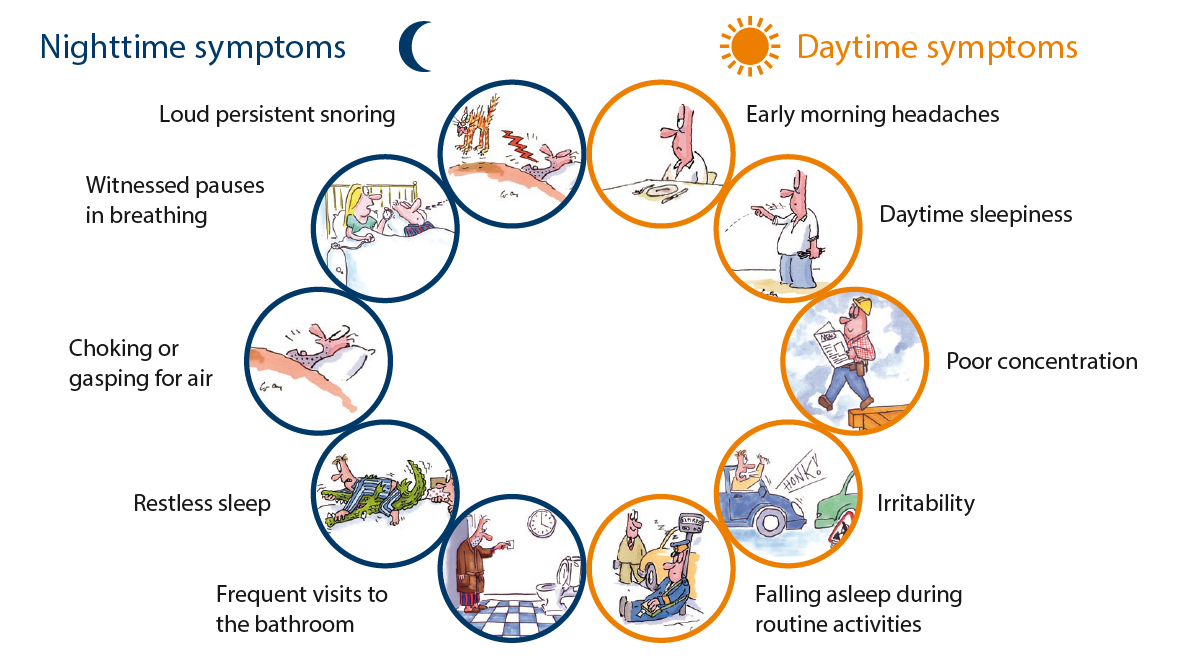
-
Sore throat
-
Drowsiness or feeling the sleepy whole day
-
Frequent napping
-
Frequent waking up during sleep
-
Lower concentration
-
Choking during sleep
-
Chest pain or high blood pressure.
If you have symptoms of frequent snoring, talk to your doctor. He/she will tell whether you are suffering from sleep apnea or any other serious condition after conducting some tests and even a sleep study.
Snoring is a very common phenomenon, ranging from mild to severe in terms of severity. If you snore once in a while, you don’t need any intervention, but in case of chronic snoring, you need to consult your doctor.
Frequently asked questions on snoring
Is there any permanent way to stop snoring? Is it 100% safe? If not then what else can I do?
First of all, you should know the reason behind your snoring, then only you will be able to permanently eradicate the issue. In mild cases of snoring, certain lifestyle modifications may help relieve the condition. Weight management, avoiding alcohol or food just before going to bed, and OTC medications for colds and allergies may help relieve the symptoms.
Are there any tips and tricks to help me stop snoring?
Tips to stop snoring in mild cases include:
-
Weight management
-
Sleep on your side
-
Go to bed at the same time every night
-
Apply nasal strips before going to bed
-
Get proper treatment for nasal congestion
-
Don’t eat just before your bedtime
-
Avoid alcohol before bedtime
-
Use an extra pillow to elevate your head up to 4 inches
What are some natural ways to fight to snore?
Natural ways work in mild cases of snoring, including weight management, sleeping on your side, sound sleep of 6-8 hours, avoiding alcohol and food before bedtime, elevating head up to 4 inches, getting proper treatment of nasal congestion, application of nasal strips before going to bed. If you have frequent and severe snoring, consult your doctor. He/she will tell whether you are suffering from sleep apnea or any other serious condition after conducting some tests and even a sleep study, and will then suggest if there is a need for surgery.
What is light snoring?
Light or infrequent snoring is normal and does not require any treatment. It only disturbs your roommate or bed partner. It is also called primary snoring and occurs more than three nights per week.
Why do skinny people snore?
Although snoring is more common in overweight individuals, it can also occur in skinny people. It can be due to a cold or allergy which causes inflammation in the upper respiratory tract or due to anatomical abnormality like a narrow airway.
Can snoring be cured with surgery? How?
In case of anatomical abnormalities or deposition of excess tissues in the throat due to obesity, surgery is needed to cure snoring. Some common surgeries include:
-
Trim the excess tissue in your airways,
-
Palatal implants to stiffen your palates,
-
Removal of uvula and shortening of the soft palate with the help of laser surgery.
Is snoring physically harmful and if so how?
Loud and frequent snoring increases the risk of heart attack, stroke, and other health problems. Manage your weight and avoid alcohol before bedtime. If the symptoms persist, consult your healthcare provider.
What is the prevention of snoring?
Preventive measures for snoring include:
-
Weight management
-
Sleep on your side
-
Go to bed at the same time every night
-
Apply nasal strips before going to bed
-
Get proper treatment for nasal congestion
-
Don’t eat just before your bedtime
-
Avoid alcohol before bedtime
-
Use an extra pillow to elevate your head up to 4 inches
How common is snoring?
Approx 45% of adults snore occasionally and 25% snore regularly. Snoring is more common in overweight individuals, middle-aged and older men, and postmenopausal women. The conditions worsen with increasing age.
What are the causes behind snoring?
Common causes of snoring include:
-
Blocked nasal passage
-
Too much tissue in the throat
-
The poor muscle tone of the throat and tongue
-
Too long uvula
-
Soft palate
-
Cold and allergies, which causes nasal congestion and swelling of the throat
-
A symptom of sleep apnea
Obesity-induced snoring correcting diet Plan
Staying fit and healthy is the best sort of lifestyle, one can have and we are always there to help you! At DietPlusMinus, we thoroughly study your body profile and conduct tests like blood tests to prepare scientific diet plans and exercises for you.
How To Get Enrolled?
Other useful Links:
Register/Login ♦ Blog ♦ Subscription Plans ♦ Calculator ♦ Exercises ♦ All Testimonials ♦ Before and After ♦ Recipe ♦ Amazon Pantry 
Diabetes Diet
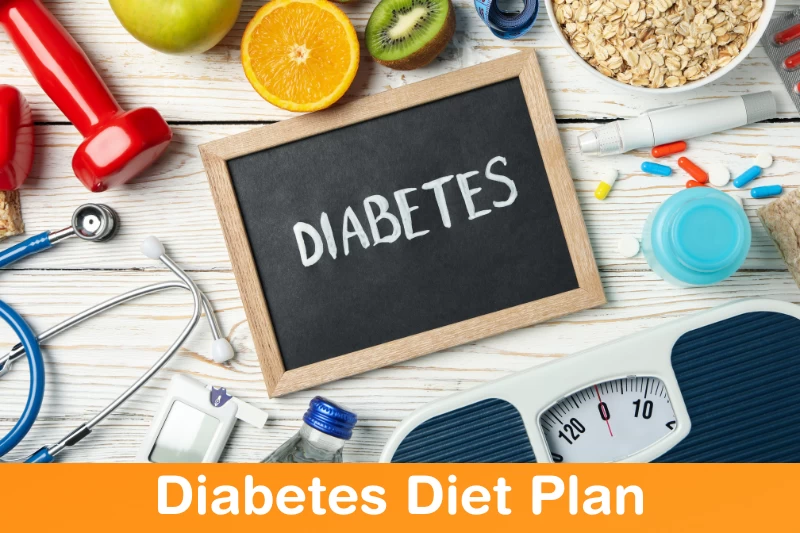
Subscription Plan
| Duration | Price | |
| 4 WEEKS DIAMOND PLANS | ₹ 7000 | Express Checkout |
| 14 WEEKS DIAMOND PLANS | ₹ 20000 | Express Checkout |
| Duration | Price | |
| 14 WEEKS DIAMOND PLANS | $ 289 | Express checkout |
Diabetes has already become the third most common disease on the planet with around 500 million people affected by it. Though the mortality rate is low, dietplusminus urges you to take it extremely seriously.
People who ignore it at first, later either succumb to it or it turns out to be their worst nightmare. Diabetes (any type) requires necessary care from the diet and lifestyle point of view. Otherwise, it can lead to other serious complications such as stroke, kidney disease, eye problems, joint problems, neurological and heart disease, etc. Here you will get to know about everything related to diabetes and its concerning diet.
What Is Diabetes?
Diabetes is a serious medical condition that alters your body’s natural way and ability to process blood glucose (blood sugar). Food that you eat is ultimately converted into a simpler form (glucose). Glucose is then used by your cells to release energy. Insulin is a hormone secreted by your pancreas that promotes the absorption of glucose and thereby helps to regulate your blood sugar level. Depending on what’s happening to insulin in your body, different types of diabetes can occur.
|
Types of Diabetes |
Features |
|
Type 1 diabetes |
|
|
Type 2 diabetes |
|
|
Gestational diabetes |
|
Type I diabetes (juvenile diabetes) occurs if your body completely fails to produce enough insulin or does not produce enough of it. So, type I diabetic patients need to take artificial insulin, daily.
On the other hand, Type 2 diabetes occurs when your cells don’t respond to insulin as effectively as normal and therefore it affects the processing of glucose. So, type 2 is caused by insulin resistance of your cells. So, here, it doesn’t matter if your body is producing enough insulin or not. This is the most common type of diabetes and studies have shown that it is highly linked to obesity.
There's another type of diabetes known as gestational diabetes. As the name suggests, this type occurs in women during their trimesters. Basically, during pregnancy, the body of a woman can become less sensitive to insulin and therefore develop somewhat insulin resistance. But, this does not occur in all women and mostly it gets resolved naturally after parturition. Also, in some people, borderline diabetes known as pre-diabetes is diagnosed.
The normal fasting blood sugar level ranges between 70 and 110 mg/dL. A level of 126mg/dL and above is considered to be diabetic and a blood sugar level ranging from 111 to 125 mg/dL is pre-diabetic. Such people face the risk of developing type 2 diabetes.
|
Result |
Fasting Plasma Glucose (FPG) |
|
Normal |
less than 100 mg/dl |
|
Prediabetes |
100 mg/dl to 125 mg/dl |
|
Diabetes |
126 mg/dl or higher |
|
Result |
A1C |
|
Normal |
less than 5.7% |
|
Prediabetes |
5.7% to 6.4% |
|
Diabetes |
6.5% or higher |
|
Result |
Oral Glucose Tolerance Test (OGTT) |
|
Normal |
less than 140 mg/dl |
|
Prediabetes |
140 mg/dl to 199 mg/dl |
|
Diabetes |
200 mg/dl or higher |
Research shows that you can lower your risk for type 2 diabetes by 58% by:
- Losing 7% of your current body weight (or 15 pounds if you weigh 200 pounds).
- Exercising moderately (such as brisk walking) 30 minutes a day, five days a week.
Symptoms of diabetes
The rise in blood sugar levels causes almost similar symptoms in type 1 and type 2 diabetes. Gestational diabetes patients are usually asymptomatic.
|
Type 1 diabetes |
Type 2 diabetes |
Gestational diabetes |
|
Increase in thirst |
Increase in thirst |
Typically gestational diabetes has no symptoms. |
|
Extreme hunger |
Increase in hunger |
In rare cases, women feel increased thirst and urination. |
|
Frequent urination |
Increased urination |
|
|
Unwanted loss of weight |
Slow healing of sores |
|
|
Tiredness |
Tiredness |
|
|
Blurry vision |
Blurry vision |
What Causes Diabetes?
The reason associated with each type of diabetes is different.
Type 1 diabetes is caused due to disruption of insulin-producing beta cells of the pancreas. The immune system attacks and destroys these cells. Genes may be playing a role in causing type 1 diabetes but the significant cause is hormonal imbalance, immune system unknowingly attacks the insulin-producing beta cells and thus accounts for the high level of sugar in the blood. Some viruses can also induce immune system attacks.

There are two main reasons behind type 2 diabetes, first genetics, and second lifestyle. Unlike type-1, type 2 diabetes has different causes. Genes still play a role, but lifestyle plays a major role. Being overweight, having high blood pressure issues, high triglycerides, and high alcohol intake, all directly or indirectly cause diabetes. Overweight or obese individuals, who have fat on their belly are at higher risk of getting type 2 diabetes because fat mass on the belly makes your cells more resistant to the effects of insulin on your blood sugar.

Gestational diabetes is caused due to hormonal changes and secretion of some insulin-blocking hormones from the placenta during pregnancy.
|
Type 1 diabetes |
Type 2 diabetes |
Gestational diabetes |
|
Occurs in children or teenagers |
Overweight |
Overweight |
|
If your parent or sibling has this problem |
More than 45 years of age |
More than 25 years of age |
|
Certain genes may induce this disease |
Physically not active |
Have given birth to a child of more than 9 pounds |
|
Have Prediabetes |
Have PCOS |
|
|
Suffered from gestational diabetes |
Suffered from gestational diabetes during a past pregnancy |
|
|
Have high blood pressure, high triglycerides, or high cholesterol |
If your parent or sibling has this problem |
|
|
If your parent or sibling has this problem |
Complications associated with diabetes:
High blood sugar is like a slow poison, which deteriorates your body very slowly and damages the organs and tissues throughout the body. The longer the time you live with uncontrolled blood sugar, the higher the damage caused.
The common damages caused by long-term uncontrolled diabetes are:
-
Neuropathy
-
Nephropathy
-
Vision loss and retinopathy
-
Heart problems
-
Hearing issues
-
Sores in the foot that don’t heal are commonly called diabetic foot
-
More prone to bacterial and fungal infections
-
Skin problems
-
Depression
-
Dementia
Complications associated with gestational diabetes are different from type 1 and type 2 diabetes, and include:
-
Stillbirth
-
Premature birth
-
Birth weight higher than normal weight
-
Jaundice
-
Low blood sugar level
-
Increased risk of type 2 diabetes in later life
-
Cesarean delivery may be required
-
Risk of future pregnancies
Treatment of diabetes
Lifestyle modifications, including consumption of healthy food, workout, and certain medications are used to treat diabetes, depending upon the type of diabetes and condition of the patient.
Type 1 diabetes: Insulin is the main treatment for type 1 diabetes, to keep blood sugar levels in control, as the body is unable to produce this hormone.
Type 2 diabetes: This type of diabetes can be treated using a healthy diet and proper workout. If your blood sugar level is not controlled by these lifestyle changes, your doctor will prescribe medications for you. If the medications do not work, insulin is given to some patients.
Gestational diabetes: If diet and exercise are not enough to bring the blood sugar levels under control, insulin is given. Insulin is considered safe for the growing child.
Diet Plan To Treat Diabetes
Following a proper diet plan is very important in the case of diabetes. Dietplusminus strictly recommends you follow a low-glycemic index diet.

For those of you who don’t know what glycemic index means, it is a number assigned to foods indicating their ability to raise blood sugar after consumption. So, you are advised to avoid food with a glycemic index of 70 or above. You must make low-glycemic choices to maintain a normal blood sugar level.
Consider the following tips for low glycemic index food
-
Eat unprocessed foods and not processed ones. Because whole, unprocessed foods have a lower glycemic index than processed foods.
-
Eat more high in fiber foods. Fiber takes time to digest and therefore your blood sugar level does not rise quickly.
-
Eat fruits like apples, vegetables like sweet potato, lentils, kidney beans, etc. These have a low glycemic index.
-
Apart from these, strawberries, yogurt, chia seeds, and nuts are also very helpful.
-
But, most importantly you need to avoid consuming table sugar, in any form. So, avoid all the soft drinks, etc. You can substitute table sugar with honey, but make sure to use it in moderation.
You should look at the total nutritional value in foods, not just glycemic index, to control diabetes. Even some foods that have a high glycemic index (potatoes) contain vitamin C, potassium, fiber, etc. which can be helpful. Also, the norms of a good diet may vary as per your liking, so you should visit a qualified medical practitioner for the best suitable diet.
What tests are required for joining this program?
Lists of important tests
-
Blood Sugar-Fasting and Post Prandial
-
Fasting Insulin
-
HbA1C
-
Urine Routine and Urine microalbumin
-
Hemogram
-
Lipid profile
-
Liver Function Tests
-
Kidney Function Tests including Glomerular Filtration Rate (eGFR)
-
Thyroid Function Tests
-
Iron Study
-
High Sensitive C-Reactive Protein (hsCRP)
-
Vitamin B12
-
Vitamin D3
Sexual Wellness Diet

Subscription Plan
| Duration | Price | |
| 4 WEEKS DIAMOND PLANS | Rs 7000 | Express Checkout |
| 14 WEEKS DIAMOND PLANS | Rs 20000 | Express Checkout |
| Duration | Price | |
| Express checkout |
Sexual Wellness Diet
Typically, patients suffering from excess weight and obesity suffer from diabetes, hypertension, cardiovascular diseases, sleep apnea, high – cholesterol, and so on. But a lot of people don't know that sexual problems to arises due to excess weight, especially obesity, a majority of people suffer from sexual problems due to excess weight and moreover, they even fail to realize that the root of their sexual problems is their overweight.
Henceforth, we study your body profile and your problem thoroughly and then make unique diet plans for you that not only target those excess fats but also your sexual problems.
Know more about Dr. Pankaj Kumar
Why Dr. Pankaj Kumar's Lifestyle Modification Program
How To Get Enrolled?
Useful Links:
Register/Login ♦ Blog ♦ Subscription Plans ♦ Calculator ♦ Exercises ♦ All Testimonials ♦ Before and After ♦ Recipe ♦ Amazon Pantry 
Prediabetes Diet Plan
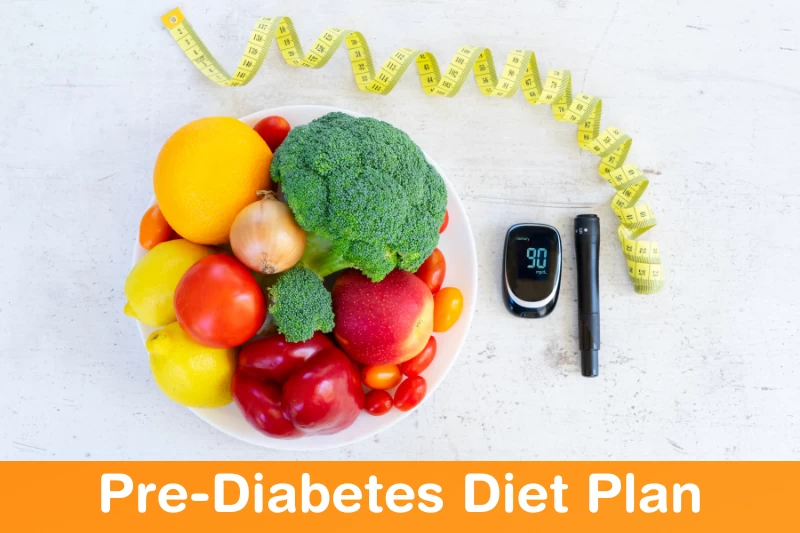
Subscription Plan
| Duration | Price | |
| 4 WEEKS DIAMOND PLANS | Rs 7000 | Express Checkout |
| 14 WEEKS DIAMOND PLANS | Rs 20000 | Express Checkout |
| Duration | Price | |
| 14 WEEKS PLATINUM PLANS | $ 289 | Express checkout |
Table of Contents
What is Pre-diabetes?
When the blood glucose levels are above normal levels but below the defined threshold of diabetes, the condition is called pre-diabetes. With high chances of developing diabetes, this condition is considered at risk. There is always the presence of pre-diabetes before the onset of diabetes. The elevation of blood sugar is a continuum and hence pre-diabetes cannot be considered an entirely benign condition.
Diagnosis of prediabetes can be alarming. The condition is mainly due to insulin resistance. Prediabetes is often a precursor of type2 diabetes. According to a study, people with prediabetes are always at a higher risk of developing type2 diabetes. The risk of cardiovascular disease also increases in pre-diabetic people.
However, being pre-diabetic doesn’t mean that you will get type2 diabetes. Early intervention, that is diet and physical activity are the two keys to getting your blood sugar out of the prediabetes range. Now, this is an alarm for you, to know the right kind of food to eat.
Diagnosis of Pre-diabetes
The criteria for pre-diabetes are different for different organizations. WHO has defined pre-diabetes as a state of intermediate hyperglycemia using two specific parameters, impaired fasting glucose (IFG) defined as fasting plasma glucose of 6.1-6.9 mmol/L (110 to 125 mg/dL) and impaired glucose tolerance (IGT) defined as 2 h plasma glucose of 7.8-11.0 mmol/L (140-200 mg/dL) after ingestion of 75 g of oral glucose load or a combination of the two based on a 2 h oral glucose tolerance test. On the other hand, the American Diabetes Association (ADA), has the same cut-off value for IGT (140-200 mg/dL) but has a lower cut-off value for IFG (100-125 mg/dL) and has additional hemoglobin A1c (HbA1c) based criteria of a level of 5.7% to 6.4% for the definition of pre-diabetes.
According to American Diabetes Association (ADA), diabetes screening for adults begins at the age of 45 years. If you are overweight and have an additional risk for prediabetes, you are advised to start early screening for diabetes.
There are several blood tests available for pre-diabetes. Let's discuss it one by one
Glycated hemoglobin (A1C) test
Your average blood sugar level for the past three months is shown in this test. This test measures the percentage of blood sugar attached to the hemoglobin. (oxygen-carrying protein in red blood cells)
An HbA1C level below 5.7% is considered normal.
An HbA1C level between 5.7% and 6.4% is considered prediabetes.
An HbA1C level of 6.5% or higher on two separate tests indicates type 2 diabetes.
In some conditions, like if you have an uncommon form of hemoglobin or if you are pregnant- HbA1C results can be inaccurate.
Fasting blood sugar test
Blood samples are collected after you fast for at least 8 hours or overnight.
A fasting blood sugar level of 126 mg/dL (7.0 mmol/L) or higher indicates type 2 diabetes.
A fasting blood sugar level from 100 to 125 mg/dL (5.6 to 7.0 mmol/L) is considered prediabetes.
A fasting blood sugar level below 100 milligrams per deciliter (mg/dL) — 5.6 millimoles per liter (mmol/L) — is considered normal.
Oral glucose tolerance test
This test is mainly used to diagnose diabetes in pregnant women. An 8-hour fasting blood sample is taken. Then you'll drink a sugary solution, and then again your blood sample will be taken after 2 hours.
A blood sugar level of 200 mg/dL (11.1 mmol/L) or higher indicates type 2 diabetes.
A blood sugar level from 140 to 199 mg/dL (7.8 to 11.0 mmol/L) is considered prediabetes.
A blood sugar level less than 140 mg/dL (7.8 mmol/L) is considered normal.
If you come under the category of pre-diabetic, your doctor will typically check your blood sugar levels at least once a year.
Prevalence of Pre-diabetes
There have been reports of increased mean FPG and prevalence of diabetes in developed as well as developing countries.
Health risks associated with pre-diabetes
Progression to diabetes
There are two factors associated with conversion from pre-diabetic to diabetic- population characteristics and criteria used to define pre-diabetes. According to a study, in India, among those with pre-diabetes, 58.9% converted to diabetes (52.8% among i-IGT, 47.8% among i-IFG, and 84.1% among those with combined IFG and IGT).
Retinopathy
According to a study, 8% of participants with prediabetes were found to have evidence of diabetic retinopathy. Although pre-diabetes has been associated with an increased risk of retinopathy in some studies, these findings vary depending on the method used for detection.
Nephropathy and kidney diseases
Several studies have shown an association between increased risk of chronic kidney disease and early nephropathy with pre-diabetes. The causal nature of this relationship remains unclear as this association may be due to increased incidence of diabetes in this group or the presence of other factors associated with both hyperglycemia and nephropathy rather than the effect of pre-diabetes itself.
Neuropathies
Prediabetes is also found to be associated with dysfunction of cardiac autonomic activity, reflected by reduced heart rate variability, decreased parasympathetic modulation of the heart, and increased prevalence of male erectile dysfunction in individuals with pre-diabetes.
Macrovascular disease
Prediabetes has been associated with an increased risk of developing macrovascular disease, but whether this elevated risk is due to pre-diabetes itself or due to the development of diabetes remains unclear. Some studies have shown an increased prevalence of coronary heart disease in individuals with pre-diabetes but this relationship may be confounded by the common risk factors present between cardiovascular diseases and pre-diabetes.
Relation between diet and prediabetes
Many factors increase your risk for prediabetes. Genetics plays a role, especially if diabetes runs in your family. Some other factors play a larger role in the development of pre-diabetes. Overweight and very low physical activity are potential risk factors.
In the case of pre-diabetes, sugar from food begins to build up in your bloodstream because insulin can’t easily move it into your cells.
The amount and type of carbohydrates consumed in a meal influence blood sugar level and causes pre-diabetes. The sugar level in the blood increases, when your diet is filled with refined and processed carbohydrates that digest quickly.
It is difficult for the body to reduce blood sugar levels after a meal. Avoiding blood sugar spikes by watching your carbohydrate intake can help.
When you eat more calories than your body needs, they get stored as fat. This causes you to gain weight. Body fat, especially around the belly, is linked to insulin resistance. This is why many people with prediabetes are also overweight.
How healthy eating can be a game changer to control prediabetes
Although you can’t control the risk factors associated with prediabetes, some can be managed. Measures taken to stay within a healthy weight range and to balance blood sugar levels may help you.
Select carbs with a low glycemic index
You can determine how a particular food could affect your blood sugar by the use of a glycemic index. High GI food will increase your blood sugar faster. Foods ranked lower on the scale have less effect on your blood sugar spike. High fiber foods are low on the GI. Highly processed foods, refined foods, foods low in fiber and nutrients, register high on the GI.
Refined carbohydrates are high in the GI. These are the products that digest quickly in your stomach. Examples are white bread, russet potatoes, and white rice, along with soda and juice. Restrict these foods if you are pre-diabetic.
Although foods that rank medium on GI are fine to eat, still not as good as foods that rank low on the GI. Examples include whole-wheat bread and brown rice. Foods that rank low on the GI are best for pre-diabetics.
Add the following items to your diet
Steel-cut oats
Whole wheat pasta
Whole wheat bread
Corn
Non-starchy vegetables
Sweet potatoes
Beans
GI of food is not mentioned on the labels of food items. Instead, check the fiber content listed on the label to help determine a food’s GI ranking. Restrict the intake of saturated fat to reduce the risk of developing high cholesterol and heart disease, along with pre-diabetes. You can lower the GI of a given food item by taking mixed meals. For example, if you plan to eat white rice, add vegetables and chicken to slow down the digestion of the grain and minimize the spikes in blood sugar level.
Control portion size
You should have good control over the portion size to keep your diet on a low GI. This means you should limit the amount of food you eat every meal. Often, portions are higher, which creates problems and results in spikes in blood sugar levels.
Food labels can help you much regarding the proper portion size. The label will list calories, fat, carbohydrates, and other nutrition information for a particular serving.
It is important to understand that it will affect the nutritional value if you eat more than 1 serving listed. A portion of food may have 30 grams of carbohydrate and 200 calories per serving. But if you have two servings, you’ve consumed 60 grams of carbohydrate and 400 calories.
Elimination of carbohydrates from the diet is not necessary. Recent research has shown that a diet containing less than 40 percent is associated with the same mortality risk as a diet containing 70 percent carbs.
A minimal risk was reported when the intake of carbohydrates was 50 to 55 percent. For example, on a 1600-calorie diet, you should take 200 grams of carbohydrates. Spreading intake of carbohydrates evenly throughout the day is best.
As recommended by the ‘National Institutes of Health’ and the ‘Mayo Clinic’, 45 to 65 percent of calories should come from carbohydrates per5 day. Individual carbohydrate needs differ based on a person’s stature and activity level. It is recommended to consult with a dietician to know about your specific needs.
Mindful eating is the best way to keep control of your portion size. Eat only when you are hungry, and stop when you feel full. Sit properly and concentrate on the food and flavors while eating.
Include plenty of fiber-rich foods
Fiber is essential and beneficial for you. It has several benefits. It helps you feel fuller for a long time. It adds bulk to your diet, making bowel movements easier.
Since fiber-rich foods add bulk to your diet, you are less likely to overeat. You are also able to avoid the ‘crush’ which results from eating high sugar food. These types of foods will often give you a big boost of energy, but make you feel tired shortly after.
Examples of some foods high in fiber
beans and legumes
whole wheat pasta
whole-grain bread
whole-grain cereals
whole grains, such as quinoa or barley
fruits and vegetables that have an edible skin
Restrict sugary drinks
A single can of soda can give you the carbohydrates recommended for a meal. A normal can of soda, 12 ounces, can contain 45 grams of carbohydrates. This number is the recommended carbohydrate serving for a meal for women with diabetes.
Sugary sodas give you only empty calories and are readily digested. Water is always a better choice to quench your thirst.
If alcoholic, drink alcohol in moderate amounts
In most instances, moderation is a healthy rule and it also goes well in the case of alcohol. Several alcoholic beverages are dehydrating. The sugar level in most of the cocktails is very high, enough to spike your blood sugar level. According to research, women should only have one drink per day, while men should limit themselves to two drinks per day. Portion control is very important in the case of alcohol. Following are the measurements for an average single drink:
1 bottle of beer (12 fluid ounces)
1 glass of wine (5 fluid ounces)
1 shot of distilled spirits, such as whiskey, gin, or vodka (1.5 fluid ounces)
Keep your drink simple. Avoid adding sugary juices or liqueurs. Drink plenty of water to avoid dehydration.
Include lean meat in your diet
If you are a pre-diabetic, it is recommended for you to avoid cuts of meat with visible fat or skin. A low saturated and trans fat diet will help you reduce your risk of heart disease.
However, meat doesn’t contain carbohydrates but can be a significant source of saturated fat in your diet. Eating fatty meat in moderation can lead to high cholesterol levels.
Choose your protein sources from here
low-fat Greek yogurt
chicken without skin
egg substitute or egg whites
turkey without skin
lean beef cuts, such as flank steak, ground round, tenderloin, and roast with fat trimmed
shellfish, such as crab, lobster, shrimp, or scallops
fish, such as cod, flounder, haddock, halibut, tuna, or trout
beans and legumes
soybean products, such as tofu and tempeh
Very lean cuts of meat have about 0 to 1 gram of fat and give you 35 calories per ounce. High-fat meat, such as spareribs, can have more than 7 grams of fat and will provide 100 calories per ounce.
Drink plenty of water
Water is an essential part of any healthy diet. Drink plenty of water to avoid dehydration. For pre-diabetics, water is a healthier option in place of sugary sodas, juices, and energy drinks.
Average daily intake of water should depend upon your body size, activity level, and the climate you live in.
You can determine if you are taking enough water or not, by monitoring your urine volume and color. The color of your urine should be pale yellow.
Read the article Pre-diabetes - The Younger Brother of Silent Killer Diabetes
Know more about Dr. Pankaj Kumar
Why Dr. Pankaj Kumar's Lifestyle Modification Program
How To Get Enrolled?
Other useful Links:
Register/Login I Blog I Subscription Plans I Calculator I Exercises I All Testimonials I Before and After I Recipe I Amazon Pantry 
Irritable Bowel Syndrome (IBS) Diet

Subscription Plan
| Duration | Price | |
| 4 WEEKS SILVER PLANS | Rs 7000 | Express Checkout |
| 14 WEEKS DIAMOND PLANS | Rs 20000 | Express Checkout |
| Duration | Price | |
| Express checkout |
Table of Contents
Irritable Bowel Syndrome
Symptoms of Irritable Bowel Syndrome can include abdominal pain, cramping, bloating, gas, diarrhea or constipation. Other symptoms may include an urgent need to move the bowels and mucus in the stool. While these symptoms can be uncomfortable, they do not cause permanent damage to the intestines and are usually not a sign of a serious illness. Treatment for IBS typically includes dietary changes such as avoiding trigger foods that cause discomfort or eliminating gluten from the diet if gluten sensitivity is suspected. In addition, stress management techniques such as relaxation therapies, cognitive behavioral therapy and lifestyle modifications may help reduce symptoms associated with IBS. Medications such as antispasmodics and antidepressant medications may also be prescribed to help relieve IBS related symptoms.
Symptoms of IBS
IBS is distinguished by a range of symptoms. Some people may experience only mild or intermittent symptoms, while others may have severe and frequent episodes. The most common symptom of IBS is abdominal pain or discomfort. This can be described as cramping, bloating, gas, pressure, or stabbing pains – it may even feel like an electric shock in some cases. People with IBS often report changes in their bowel movements such as diarrhea, constipation and alternating between the two. Other potential symptoms include nausea, fatigue and headaches; however these are not considered to be diagnostic criteria for IBS. In addition to these physical symptoms, people with IBS also commonly experience psychological distress such as anxiety and depression due to the burden of having a chronic disorder with no known cure. As such, it’s important for individuals living with IBS to seek out appropriate support from family members and healthcare providers so that they can better manage their condition.
Causes of IBS
IBS can be caused by a number of factors, including genetic predisposition, stress and anxiety, food allergies or sensitivities, disruption in normal bacteria levels in the gut (dysbiosis), hormonal changes and reactions to certain medications. Research shows that IBS is closely related to psychological factors such as depression and anxiety; however, it is not known if these psychological issues cause IBS or are a result of having it. Additionally, while diet may play a role in IBS symptoms for some people, it’s not clear if dietary changes directly cause IBS. Recent research suggests that an imbalance in the microbiome may also contribute to the development of IBS symptoms. Dysbiosis occurs when there is an imbalance between beneficial bacteria and harmful bacteria levels within the digestive tract. This can lead to inflammation which can ultimately lead to gastrointestinal distress such as abdominal pain, constipation and/or diarrhea. Other environmental triggers like smoking or excessive alcohol consumption have also been linked to increased risk for developing IBS.
These factors may play a critical role in the development and expression of these chronic disorders
-
Prior infection
-
Inflammation
-
Stress
-
History of abuse to the gastrointestinal system - Injury to the enteric nervous system may be the common.
Diagnosis and Treatment
Diagnosis of Irritable Bowel Syndrome (IBS) is usually done through a thorough physical examination and extensive symptom evaluation. Tests such as blood tests, stool samples, imaging studies, endoscopy or colonoscopy may be used to rule out other medical conditions that could be causing the symptoms. The diagnosis of IBS is based on the Rome criteria which requires that patients have experienced recurrent abdominal pain or discomfort for at least three days a month in the last three months associated with two or more of the following: improvement with defecation, onset associated with change in frequency of stool, and/or change in form (appearance) of stool.
Treatment options for IBS include medications such as antispasmodics to help control the symptoms, dietary changes to reduce gas-producing foods or increase fiber intake, probiotics and psychological therapies such as cognitive behavioral therapy (CBT). Additionally lifestyle modifications including exercise and stress management can also be helpful in managing IBS symptoms. It is important to note that there is no single treatment course that works for everyone so it may take some time to find what works best for each patient.
Diet Changes for IBS
One of the most important diet changes for managing IBS is to reduce intake of foods that trigger symptoms. Common triggers include caffeine, alcohol, gluten and dairy. Eating smaller meals more frequently throughout the day can also help manage symptoms. Fiber-rich foods like fruits, vegetables and whole grains should be included in the diet as they can help regulate bowel movements. Limiting high-fat and fried foods, as well as artificial sweeteners may also be beneficial. Additionally, keeping a food diary can help identify triggers that cause uncomfortable digestive symptoms such as bloating or diarrhea.
Drinking sufficient water every day is essential for people with IBS because it helps soften stool and promote regularity. Consuming probiotics like yogurt or kefir has been shown to improve symptoms for some individuals by increasing good bacteria in the gut microbiome which helps regulate digestive function. Fermented foods such as kimchi or sauerkraut are other sources of beneficial bacteria which may be helpful for managing IBS symptoms. Finally, eating fiber supplements like psyllium husk powder can provide additional bulking action to stools which helps keep them regular and prevents constipation in some cases.
Coping Mechanisms
Relaxation techniques are an important coping strategy for people living with IBS. Mindfulness meditation, guided imagery, and yoga are all effective ways to reduce stress levels that can trigger IBS symptoms. Research has also shown that regular physical activity like walking or jogging can help to reduce stress and the associated IBS symptoms. Additionally, keeping a food diary can help identify triggers and understand how certain foods affect your body. Keeping track of your daily diet, activities, sleep patterns, and stress levels may improve your understanding of which factors may be contributing to your IBS symptoms. If necessary, it is also important to seek professional help from a therapist or counselor who specializes in helping individuals manage their mental health and chronic illness issues such as IBS.
Conclusion
In conclusion, Irritable Bowel Syndrome is a chronic and often uncomfortable condition that can be managed with lifestyle modifications and medications. It is important to find an individualized treatment plan that works for the patient and to involve other healthcare providers when needed. Eating a healthy diet, exercising regularly, reducing stress levels, avoiding triggers, and taking medications as prescribed are all ways to help manage symptoms of IBS. Additionally, it may be beneficial for individuals with IBS to keep a food diary or discuss their concerns with a gastroenterologist. With proper management and support from healthcare professionals, individuals living with IBS can find relief from their symptoms.
It is also important for those affected by IBS to seek out social support networks and education on the condition in order to increase understanding of the disorder among family members, friends, teachers and employers. This will ensure better awareness of what IBS is – as well as how it affects those living with it – so that individuals can take proactive steps towards managing their own health in the best way possible.
Functional Dyspepsia
Functional dyspepsia is a common health issue in the digestive system of humans. Around 1.5 billion people around the world face this issue. Although functional dyspepsia is not very lethal, it can surely affect the quality of your life as it can last for a long. It can be managed by taking medication, but diet and lifestyle changes are as important.
What Is Functional Dyspepsia?
Functional dyspepsia (indigestion) is the name given to some symptoms of indigestion that show up without any obvious cause.
So basically, your digestive system seems all okay, but there are symptoms of stomach pain, discomfort, bloating, etc. just like that of ulcers. It is also known as non-ulcer stomach pain or non-ulcer dyspepsia. It usually does not lead to any serious consequences, but it should not be neglected. Because, sometimes it can be caused by a bacteria called Helicobacter pylori, which can cause ulcers in the stomach in the long run.
This is the most common type of dyspepsia. The symptoms can vary, but its prominent symptoms include nausea, bloating and bleaching, stomach upset or pain, vomiting, etc. Other less common symptoms include burping, sour mouth, weight loss, psychological distress, etc. If these symptoms come and go away within a month, then you most probably don’t have functional dyspepsia.
Further, these symptoms can be suppressed by over-the-counter medication. But, dietplusminus recommends making necessary changes in diet and lifestyle as soon as possible to avoid unpleasant complications.
What Causes Functional Dyspepsia?
Functional dyspepsia does not have one single cause. It is not known what causes it. It is called 'functional' because it does not have a diagnosable cause. Several reasons may lead to this functional disorder.
Some of the causes include allergens, infection due to bacteria, excess acid secretion in the stomach, unhealthy diet, lifestyle, obesity, etc. Some factors are known to increase the risk of functional dyspepsia.
Females are known to develop this disorder more than males. Similarly, elders and chain smokers are at a higher risk of developing it. Moreover, studies have also shown that a history of childhood physical or sexual abuse may also be a risk factor. Further, there is an unknown link between irritable bowel syndrome (IBS) and indigestion. Because around one-third of the people affected by this disorder develop IBS.
Functional Dyspepsia Diet Idea
First of all, you need to make some lifestyle changes. Always eat slowly, as eating too fast affects the process of digestion. Also, eating foods that are high in fat can aggravate the symptoms. High alcohol consumption, as well as cigarette smoking, can also worsen the condition.
Studies have shown that some foods can effectively alleviate the symptoms of irritable bowel syndrome. These include:
-
Apples
-
Dates
-
Honey
-
Rice
-
Yogurt
-
Walnuts
While some food can aggravate the symptoms of irritable bowel syndrome:
-
Watermelon
-
Citrus juice
-
Carbonated drinks
-
Caffeine (coffee)
-
Oily and fatty foods
But, as the symptoms vary from person to person, so dietplusminus suggests that it is better to seek help from a medical practitioner to set up a proper diet plan.
Read more about Irritable Bowel Syndrome
Useful Links:
Register/Login ♦ Blog ♦ Subscription Plans ♦ Calculator ♦ Exercises ♦ All Testimonials ♦ Before and After ♦ Recipe ♦ Amazon Pantry♦Amazon Daily Deals ♦Shop with Amazon ♦Disclaimer ♦Privacy Policy ♦Terms and Conditions ♦ Facebook ♦ Twitter ♦ Linkedin ♦ Youtube
Anti-Hair Fall Diet Plan

Subscription Plan
I. Introduction
A. Explanation of hair fall and its impact on self-esteem
Hair fall is excessive scalp hair loss. It causes hair loss, bald patches, and thinning. Hair loss affects confidence and self-esteem. Hair loss causes emotional distress and self-consciousness in many people, highlighting the need for effective treatments.
B. Introduction of Dr. Pankaj Kumar, a renowned dietician in Delhi and Dwarka, specializing in anti-hair fall diet plans
Dr. Pankaj Kumar, a well-respected dietician in Delhi and Dwarka, creates hair-loss-fighting diets. Dr. Kumar's nutrition strategies have helped many people regain their confidence and hair health. His personalised approach and deep understanding of hair fall causes make him a trusted professional. Dr. Kumar's holistic approach promotes healthy hair growth and prevents hair loss through diet and lifestyle changes.
II. Understanding the Link Between Diet and Hair Health
A. Explanation of how diet affects hair growth and strength
Food nourishes hair internally. Healthy hair growth and strength require a balanced, nutrient-rich diet. Biotin, vitamins A, C, and E, zinc, and iron help hair health. Deficient nutrients can weaken hair follicles and increase hair loss. Addressing nutritional deficiencies and eating hair-friendly foods can promote hair growth and prevent hair loss.
B. Discussion on the role of nutrient deficiencies in hair fall
Nutrient deficiencies cause hair loss. Biotin, the "hair vitamin," can weaken the hair shaft and increase hair loss. Insufficient iron, zinc, and selenium intake can disrupt hair growth and cause excessive shedding. We can restore hair health and reduce hair loss by targeting nutrient deficiencies with a targeted diet plan. Dr. Pankaj Kumar can recommend specific nutrients to promote hair growth.
III. Nutrients for Healthy Hair
A. Overview of key nutrients for promoting hair health, such as vitamins, minerals, and proteins
Hair growth and health depend on several nutrients. Vitamins A, E, and D promote scalp health and hair growth. Iron, zinc, and selenium help hair proteins and follicles grow. Proteins like keratin build strong, healthy hair. A balanced diet with these nutrients can nourish hair from within and improve its health.
B. Discussion on the importance of a well-balanced diet for preventing hair fall
A balanced diet prevents hair loss. Fruits, vegetables, whole grains, lean proteins, and healthy fats nourish hair and reduce hair loss. Nutrient deficiencies weaken hair follicles and increase shedding. A varied, nutrient-rich diet can nourish hair from the inside out, making it stronger and healthier.
IV. Recommended Foods for Stronger Hair
A. Description of specific food groups and their benefits for hair health, including examples of nutrient-rich options
Food groups can improve hair health. Lean meats, eggs, and beans provide amino acids for hair growth and strength. Omega-3 fatty acids from fish, walnuts, and chia seeds nourish the scalp and hair follicles. Vitamin C-rich foods like citrus fruits and bell peppers help produce collagen for strong hair, while iron-rich foods like spinach, lentils, and lean red meat support scalp blood flow.
B. Emphasis on incorporating a variety of fruits, vegetables, whole grains, lean proteins, and healthy fats
Diets rich in fruits, vegetables, whole grains, lean proteins, and healthy fats promote hair health. These nutrient-rich foods provide vitamins, minerals, antioxidants, and essential fatty acids to nourish hair follicles and promote hair growth. Colourful fruits and vegetables, whole grains like quinoa and brown rice, lean proteins like chicken and tofu, and healthy fats like avocados and nuts can help maintain healthy hair.
V. Meal Ideas and Recipes for Hair Health
A. Sample meal ideas and recipes that include hair-friendly ingredients
Here are some hair-friendly recipes:
Breakfast: Start your day with a spinach, berry, almond milk, and protein powder smoothie.
Lunch: Grilled salmon, avocado slices, mixed greens, and pumpkin seeds add protein, healthy fats, and nutrients to a salad.
Snack: Almonds, walnuts, and flaxseeds make a healthy, crunchy snack.
Dinner: Make a nutritious stir-fry with lean chicken or tofu, colourful bell peppers, broccoli, and a ginger-soy sauce over quinoa or brown rice.
These recipes include leafy greens, protein, healthy fats, and whole grains to promote hair growth and reduce hair loss.
B. Suggestions for incorporating these meals into a well-rounded diet plan
For a balanced diet, try these meals:
Plan ahead: Plan your weekly meals and make a shopping list with hair-friendly ingredients. This will keep you organised.
Meal prep: Wash and chop vegetables, marinate protein, etc. This will simplify meal prep on busy weekdays.
Balance your plate with vegetables, lean proteins, whole grains, and healthy fats. This will provide a well-balanced meal that supports your hair and overall health.
Body language: Notice how these meals affect you. Adjust ingredients if they don't agree with you. Your diet should reflect your needs and preferences.
These meals support hair health and promote overall wellness when added to a balanced diet.
VI. Lifestyle Factors for Healthy Hair
A. Importance of maintaining a healthy scalp and good hair care practices
Healthy hair requires good hair care and a healthy scalp. Four important reasons:
Healthy scalps support hair growth. Regular scalp cleansing, exfoliation, and moisturising removes oil, dirt, and product buildup, promoting hair growth.
Preventing damage: Avoiding heat styling, using gentle products, and limiting chemical treatments can help hair stay healthy and full.
Inflammation causes hair loss. Clean and well-nourished scalps reduce inflammation and risk of such conditions.
Healthy scalp and hair care practises make hair look shinier, smoother, and more manageable. Good hair care can boost self-confidence and well-being.
Prioritising scalp health and good hair care can boost hair growth and resilience.
B. Discussion on stress management and its impact on hair fall
Stress causes hair loss. Four stress management tips for hair health:
Telogen effluvium: Stress disrupts the hair growth cycle, causing more hair follicles to rest and shed. It can thin hair.
Hormonal changes: Chronic stress may alter hormone levels, causing hair loss. Stress hormones may disrupt hair growth.
Stress can cause dandruff, seborrheic dermatitis, and scalp itching. These issues can worsen hair loss and scalp inflammation.
Trichotillomania: Stress or anxiety can cause hair-pulling, resulting in hair loss or bald patches.
Stress can damage hair and overall health, but exercise, meditation, deep breathing, and emotional support can help reduce stress.
VII. Dr. Pankaj Kumar's Expert Recommendations
A. Overview of Dr. Kumar's expertise in providing personalized dietary plans for hair fall preventioDr Pankaj Kumar is a famous dietician who creates personalised hair fall prevention diets. He customises diets for hair loss sufferers based on his extensive knowledge and experience. Dr. Kumar develops sustainable hair health diets by considering nutrient deficiencies, lifestyle habits, and underlying health conditions. His expertise ensures customised guidance to address unique concerns and prevent long-term hair loss.
B. Encouragement to seek expert guidance for tailored dietary recommendations
Dr. Pankaj Kumar is an excellent resource for hair loss solutions. He can recommend customised hair fall prevention diets based on his experience. Dr. Kumar can provide expert advice and help you achieve healthier, stronger hair. Reach out to start regaining your confidence and hair health goals.
VIII. Conclusion
A. Recap of the key points discussed in the blog
This blog introduced Dr Pankaj Kumar, an expert dietician in anti-hair fall diets, and discussed how hair loss affects self-esteem. We examined how nutrition affects hair growth and strength. A balanced diet with vitamins, minerals, and proteins was stressed. We also recommended eating hair-friendly foods and stress management.
B. Encouragement to embrace an anti-hair fall diet plan for stronger, healthier hair
Enjoy healthy, beautiful hair despite hair fall. An anti-hair fall diet can nourish and strengthen your hair from within. Embrace nutrition and make small diet changes that can make a big difference. Get healthier hair today and gain confidence and beauty. Dr. Pankaj Kumar, the best dietician in Delhi and Dwarka, can help you fight hair loss.
Childhood Weight Loss Program

Subscription Plan
| Duration | Price | |
| 4 WEEKS DIAMOND PLANS | Rs 7000 | Express Checkout |
| 14 WEEKS DIAMOND PLANS | Rs 20000 | Express Checkout |
| Duration | Price | |
| Express checkout |
Table of Contents
- Childhood Obesity or Obesity in children
- Childhood Obesity Causes
- Main determinants of childhood obesity
- Health risks associated with childhood obesity
- Impact of Childhood Obesity
- Important Aspect and Impact of Childhood Obesity
- Healthy eating for obese children
- Lifestyle modifications to tackle childhood obesity
- Recommendations for reducing childhood obesity in developing countries
- Useful Links:
Childhood Obesity or Obesity in children
When the body mass index (BMI) of a child is at the same level or higher than 95% of his/her peers, he/she can be considered obese. BMI is used as a tool to determine weight status. Height and weight are used to calculate the BMI. Your BMI percentile is then determined using your gender and age.
Obesity is a serious health problem for children. Overweight and obese children are at a higher risk of developing many chronic health conditions. Obesity and the problems related to it also continue into adulthood. Childhood obesity not only affects physical health but can also affect the social and mental health of a child. They can become depressed and have a poor self-image and self-esteem.
"Childhood obesity is a serious issue increasing worldwide. However, children can learn healthier ways to cope with their problems. This can be done with proper education on healthy eating habits and various outdoor activities. In this context, their parents, teachers, and other caregivers help them. Help your children stay healthier for longer by preparing nutritious foods for them and encouraging them to get plenty of exercise."
Childhood Obesity Causes
The main role in childhood obesity is played by family history, psychological factors, and lifestyle. Children with parents or other family members overweight or obese are more likely to be obese. But the root cause behind the obesity of children is a combination of eating too much and exercising too little.
Foods like fast food, candy, and soft drinks, containing high levels of fat or sugar and low in nutrients, are the common culprits for fast weight gain. According to a study, 32% of adolescent girls and 52% of adolescent boys in the US drink 24 ounces of soda or more per day. Some children gain weight because their parents are unaware of foods that can be harmful to their children. They don’t know how to choose and prepare healthy foods. Other families may not afford fresh fruits, vegetables, and meats. Convenience foods like frozen dinners, canned pasta, and salty snacks also contribute to unhealthy weight gain.
Less physical activity may be another cause of childhood obesity. Less activeness at any age tends to cause weight gain. Exercise keeps you healthy by burning your calories and maintaining your weight. Children who don’t spend their time in sports and other physical activities are less likely to burn their extra calories and as a result, become overweight or obese.
The third reason for obesity in children is psychological issues. Bored, stressed, or depressed kids eat more, to cope with negative emotions.
|
Unhealthy nutrition |
Consuming foods high in low-quality fats and sugar, and less nutrient-dense. Like fast foods, energy drinks, and candies. |
|
Lack of physical activity |
Television viewing, the internet, and computer games have taken the place of outdoor games. |
|
Academics |
The increasing burden of academic competitiveness among students has led to decreased participation in sports and any other form of physical activity. |
|
Working status of parents |
At this time, both parents are working and they don’t have time to plan and provide a balanced meal for their kids. They let their children eat fast foods and other unhealthy foods. |
|
Technology |
Advancements in technology, especially in the field of entertainment led children more dependent upon television and computers in place of sports and physical activity, making it a sedentary lifestyle for the children. |
|
Increased socioeconomic status |
Increased purchasing power led to the movement towards school cafeterias, and nearby fast food joints for food/snacks. |
|
Wrong parental approach |
Parents in India and other developing countries have a general misconception that a fat child is a healthy child. To keep the child “healthy,” he/she is fed in excess. |
Health risks associated with childhood obesity
Obese children are always at a higher risk of developing health problems as compared to their peers having a healthy weight. The most serious risks associated with childhood obesity are diabetes, heart disease, and asthma.
1. Diabetes
Overweight children and adults are more likely to develop type2 diabetes. Patients having type2 diabetes are not able to metabolize glucose properly present in their bodies. Diabetes can lead to kidney dysfunction, nerve damage, and eye disease. However, the condition may be reversible through diet and lifestyle changes.
2. Heart Disease
Obese children are also at a higher risk for developing high cholesterol and high blood pressure levels, giving rise to future heart disease. High salt and high-fat foods cause increased cholesterol and increased blood pressure levels. The two major complications of heart disease are heart attack and stroke.
3. Asthma
Asthma, a chronic disease of the lungs, is caused by inflammation of the lung's airways. Obesity is the most common comorbidity with asthma. According to a recent study, about 38% of adults with asthma in the US are also obese. In the same study, it was found that obesity may be a risk factor for more severe asthma in some, but not all, people with obesity.
4. Sleep Disorders
Obese children and teens may also suffer from sleep disorders like excessive snoring and sleep apnea. Their airways can be blocked by the extra weight in the neck area.
5. Joint Pain
Obese children can also experience joint stiffness, pain, and a limited range of motion from carrying excess weight. In most cases, weight loss can eliminate joint problems.
Impact of Childhood Obesity
In this section we discuss important aspect and their impact on childhood obesity as follows:
1. Determinants of childhood obesity
2. Medical impact
3. Psychological impact
4. Economic impact
|
Determinants of childhood obesity |
Medical impact |
Psychological impact |
Economic impact |
|
|
|
|
Healthy eating for obese children
It’s essential to change the eating habit of obese children. Parental effort is very essential to influencing a child's eating patterns. Normally, kids eat what their parents buy. So, it's of utmost importance for the parents to start with themselves.
Restrict the entry of sweets and soft drinks into your home. Replace juice with fruits because drinks made of 100% juice can be high in calories. Serve water or low-fat or non-fat milk with meals. Restrict fast foods and ready-to-eat foods, and try to cook more at home. Preparing a meal and eating together is not only a healthy option in a nutritional sense, but it’s also an excellent way to spend some time with your family.
Instead of using processed items, baked goods, or salty snacks, plan your meals and snacks around fresh foods. You may try:
-
low-fat dairy products, i.e. skim milk, low-fat plain yogurt, and low-fat cheese
-
lean proteins like chicken and fish
-
fresh fruits and vegetables, and
-
whole grains, such as brown rice, whole-wheat pasta, and whole wheat bread.
As there will be a transition to a healthier way of eating, your overweight or obese child will most probably lose some weight. If weight loss doesn’t occur, consult your pediatrician. He/ she may recommend a nutritionist or dietician for further weight loss.
Lifestyle modifications to tackle childhood obesity
1. Increase Physical Activity
Try to increase the physical activity of your children so that they can shed weight safely. Always encourage your child to do exercise in the form of activities to make workouts interesting for them. Playing football or some other outside game will be more interesting for a child than jogging around the block. Always encourage your child to try a sport in which he /she has an interest. One study shows that children get at least one hour’s worth of exercise daily to remain healthy.
2. Increase family activities
Plan some activities which the whole family can enjoy together. This will not only make a great bond between the family members but also help your child learn by example. Hiking, swimming, or even playing tag can help your child get active and start on the path to a healthier weight. Vary activities to avoid boredom.
3. Decrease time spent in front of the screen
Restrict the time spent in front of the screen. Children spending their time watching television, playing computer games, or using smartphones or other devices are more likely to be overweight.
According to a study, there are two big reasons for this. First, screen time cuts the time that could be spent doing physical activities and sports instead. And second, more time in front of the TV means more time for snacking and munching and also more exposure to ads for the high-sugar, high-fat foods that make up most food marketing.
|
Education |
|
|
Community |
|
|
Monitoring and surveillance |
|
|
School-based programs |
|
|
Perinatal and neonatal period |
|
|
National health authority |
|
|
Legislative |
|
|
Home |
|
Useful Links:
Register/Login ♦ Blog ♦ Subscription Plans ♦ Calculator ♦ Exercises All Testimonials ♦ Before and After ♦ Recipe ♦ Amazon Pantry ♦ Amazon Daily Deals ♦ Shop with Amazon ♦ Disclaimer ♦ Privacy Policy ♦ Terms and Conditions ♦ Facebook ♦ Twitter ♦ Linkedin ♦ Youtube
Post Surgery Diet Plan

Subscription Plan
I. Introduction to Post-Surgery Diet
A. Brief overview of the importance of dietary management after surgery
Dietary management is crucial to healing after surgery. The body's nutritional needs increase during tissue repair and immune system strengthening. Post-surgery diets can speed wound healing, reduce complications, and optimise recovery. Dr. Pankaj Kumar, the best dietician in Delhi and Dwarka, can provide post-surgery support and personalised dietary advice.
B. Introduction of Dr. Pankaj Kumar as the best dietician in Delhi and Dwarka, specializing in post-surgery diet
Delhi and Dwarka dietician Dr. Pankaj Kumar specialises in post-surgery nutrition. He has helped many patients recover and regain their health with his extensive knowledge of post-surgery diets. Dr. Kumar is the go-to dietician for post-surgery dietary management due to his personalised approach and extensive knowledge.
II. Benefits of Dietary Management After Surgery
A. Explanation of how a well-planned diet promotes healing and recovery
A well-planned diet helps post-surgery recovery. Vitamins, minerals, and nutrients help the body heal and boost the immune system. Balanced diets reduce inflammation, speed tissue repair, and improve wound healing. Getting enough calories and nutrients helps the body recover and heal.
B. Emphasis on Dr. Kumar's expertise in providing personalized dietary plans for post-surgery patients
The best dietician in Delhi and Dwarka, Dr. Pankaj Kumar, designs post-surgery diets. He tailors meal plans to individual health conditions, surgical procedures, and recovery goals. Dr. Kumar's expertise ensures that patients receive the right nutrients at the right time to support their healing and optimise post-surgery recovery.
III. Key Considerations for Post-Surgery Diet
A. Importance of meeting nutritional needs while considering any dietary restrictions or limitations
Post-surgery nutrition must take into account any dietary restrictions. Dr. Pankaj Kumar knows how important it is to serve nutritious meals that take into account dietary restrictions like allergies and intolerances. Dr. Kumar optimises post-surgery outcomes by tailoring diet plans to individual needs.
B. Highlighting Dr. Kumar's role in designing customized diet plans based on the specific surgery and individual requirements
Dr. Pankaj Kumar helps create customised diet plans based on surgery and individual needs. He understands post-surgery nutritional needs from his extensive experience. Dr. Kumar creates customised diet plans to optimise healing, support the immune system, and speed up recovery based on the surgical procedure, recovery timeline, and dietary needs. His expertise ensures patients receive tailored dietary guidance to improve post-surgery recovery.
IV. Components of a Post-Surgery Diet
A. Overview of the recommended macronutrients and micronutrients for optimal recovery
Proteins and carbohydrates are recommended post-surgery for wound healing and energy. Healthy fats aid immune function and nutrient absorption. The healing process relies on micronutrients like vitamins and minerals like zinc and magnesium. Dr. Pankaj Kumar's personalised diet plans provide the right macronutrient and micronutrient balance for patients' recovery.
B. Discussion of specific food groups and examples of nutrient-rich options
Lean proteins (chicken, fish, tofu), whole grains (quinoa, brown rice), fruits and vegetables (berries, leafy greens), and healthy fats (avocado, olive oil) are important post-surgery food groups. These foods contain healing vitamins, minerals, and antioxidants. Dr. Pankaj Kumar's expertise ensures that patients have a varied, nutrient-rich post-surgery diet tailored to their needs and preferences.
V. Importance of Ongoing Support and Follow-up
A. Explanation of Dr. Kumar's role in providing continuous guidance and monitoring for post-surgery dietary management
Dr. Pankaj Kumar monitors post-surgery diets. His expertise allows him to closely monitor patients' progress, adjust diet plans, and address any concerns or challenges. Dr. Kumar's frequent consultations and follow-ups help patients heal and stay healthy.
B. Encouragement to seek expert guidance from Dr. Pankaj Kumar for a successful post-surgery diet journey
Dr. Pankaj Kumar, the best dietician in Delhi and Dwarka, advises post-surgery diet success. Dr. Kumar can tailor post-surgery dietary advice to individual needs and surgical procedures due to his extensive experience. His expertise ensures that patients get the support, nutrition, and advice they need to recover and succeed.
Stress Relieving Diet Plan

Subscription Plan
I. Introduction
A. Brief explanation of stress and its impact on overall well-being
Stress is a natural response to difficult situations that can affect our mental, emotional, and physical health. Chronic stress can harm many aspects of our lives. It can cause anxiety, fatigue, difficulty concentrating, and physical health issues. Stress management improves well-being and quality of life.
B. Introduction of Dr. Pankaj Kumar as the best dietician in Delhi and Dwarka, specializing in stress-relieving diet
Dr. Pankaj Kumar, the best dietician in Delhi and Dwarka, specialises in stress-relieving diets. Dr. Kumar uses his extensive knowledge of nutrition and mental health to help patients manage stress through diet. His personalised approach and extensive knowledge make him the go-to expert for a balanced and nourishing diet that reduces stress and improves well-being.
II. Understanding the Connection between Diet and Stress
A. Explanation of how diet affects stress levels and mental health
Diet affects stress and mental health. Omega-3 fatty acids, B vitamins, magnesium, and antioxidants reduce stress and support brain health. However, processed foods, added sugars, and unhealthy fats can cause inflammation and affect mood and stress response. Dr. Pankaj Kumar recommends adding stress-reducing foods to one's diet to improve mental and physical health.
B. Importance of dietary management in alleviating stress symptoms
Dietary management helps reduce stress by providing nutrients for brain function and hormonal balance. A balanced diet of whole foods, fruits, vegetables, lean proteins, and healthy fats can regulate neurotransmitters and stabilise blood sugar, promoting calmness. Dr. Pankaj Kumar, the best dietician in Delhi and Dwarka, creates personalised stress-relieving diet plans to improve health and reduce stress. He can advise people on stress-reducing and mental health-boosting diets.
III. Key Nutrients for Stress Relief
A. Discussion of specific nutrients and their role in stress reduction
Nutrients reduce stress and improve mental health. Omega-3 fatty acids in fish, flaxseeds, and walnuts reduce inflammation and promote brain health. B vitamins regulate mood by producing neurotransmitters. Magnesium calms nerves and muscles. Dr. Pankaj Kumar, the best dietician in Delhi and Dwarka, can advise on adding these and other stress-reducing nutrients to a healthy diet.
B. Highlighting Dr. Kumar's expertise in designing customized diet plans for stress management
Dr. Pankaj Kumar, the best dietician in Delhi and Dwarka, designs stress-management diets. Dr. Kumar customises diets to address stress-related issues. He tailors dietary changes to individual needs, preferences, and lifestyles to reduce stress and improve well-being. Dr. Kumar helps people manage stress through nutrition.
IV. Recommended Stress-Relieving Foods and Meal Ideas
A. Description of foods rich in stress-reducing nutrients
Stress-reducing foods are essential for mental health. Magnesium-rich leafy greens regulate cortisol levels. Vitamin C-rich blueberries and citrus reduce stress hormones. Nuts and seeds provide brain-healthy omega-3 fatty acids. Antioxidants in dark chocolate boost mood and reduce stress. Nutrient-rich foods can improve stress response.
B. Sample meal ideas and recipes for stress relief
Breakfast: Start your day with a stress-relieving spinach, banana, almond milk, and walnut smoothie bowl.
Lunch: Try a quinoa salad with grilled chicken, mixed greens, avocado, cherry tomatoes, and lemon-tahini dressing.
Snack: Greek yoghurt with almonds and berries provides protein, healthy fats, and antioxidants.
Dinner: Serve a lemon-dill-marinated salmon fillet with steamed asparagus and quinoa or brown rice for a healthy, stress-relieving meal.
V. Lifestyle Factors for Stress Management
A. Emphasis on the importance of exercise, sleep, and relaxation techniques
- Yoga, walking, and swimming can reduce stress and promote relaxation, along with a stress-relieving diet.
- Adequate sleep reduces stress. A relaxing bedtime routine and 7-9 hours of quality sleep can improve overall health.
- Deep breathing, meditation, and mindfulness can reduce stress and improve mental clarity.
- Dr. Pankaj Kumar, an expert dietician, can help you incorporate exercise, sleep hygiene, and relaxation into your daily routine to boost the stress-relieving diet's effectiveness.
B. Dr. Kumar's recommendations for incorporating stress-relieving habits into daily life
Dr. Pankaj Kumar, a famous dietician, recommends stress-relieving habits like a balanced diet, regular exercise, and mindfulness. For a healthy mind and body, he recommends leafy greens, whole grains, and omega-3 fatty acids. Dr. Kumar also recommends staying hydrated, getting enough sleep, and enjoying hobbies and family time. Dr. Kumar can help you create a personalised stress-reduction routine.
VI. Conclusion
A. Recap of the benefits of a stress-relieving diet
A stress-relieving diet can reduce anxiety, improve mood, and boost well-being. You can support your body's natural stress response and promote calmness by eating nutrient-rich foods and stress-reducing nutrients. Dr. Pankaj Kumar, a renowned dietician, can help you design a stress-relieving diet plan that meets your needs. You can optimise your diet to manage stress and improve your quality of life with Dr. Kumar's help.
B. Encouragement to seek expert guidance from Dr. Pankaj Kumar for personalized dietary recommendations for stress management
Dr. Pankaj Kumar, a renowned dietician specialising in stress management, can help you live a healthier, more balanced life. Dr. Kumar's expertise in designing stress-relieving diets can help you. He can give you personalised diet advice to help you manage stress.
Consult Dr. Pankaj Kumar, the best dietician in Delhi and Dwarka, to discover the transformative power of a stress-relieving diet and take control of your health.
Lifestyle Modification Program

Subscription Plan
Introduction
A. Brief overview of the importance of lifestyle modification for overall health and well-being
Lifestyle changes improve health. It includes diet, exercise, sleep, stress management, and healthy habits. Positive lifestyle changes can lower the risk of chronic diseases, boost energy, mental and emotional health, and weight. Dr. Pankaj Kumar, the best dietician in Delhi and Dwarka, emphasises lifestyle modification as a holistic approach to optimal health.
B. Introduction of Dr. Pankaj Kumar as the best dietician in Delhi and Dwarka, specializing in dietary management
Delhi and Dwarka dietician Dr. Pankaj Kumar specialises in dietary management. He has helped many people reach their health goals with personalised diet plans. Dr. Kumar's personalised approach ensures optimal results and long-term success. As the best dietician in Delhi, he guides clients to better health.
C. Explanation of the role of diet in lifestyle modification and its impact on health outcomes
Lifestyle modification relies on diet because it affects health. Our bodies get nutrients from food. We can manage weight, prevent chronic diseases, and improve well-being by eating well. Dr. Pankaj Kumar, the best dietician in Delhi and Dwarka, helps people adopt healthy eating habits for lifelong health.
II. Dietary Management for Optimal Health
A. Importance of personalized dietary plans tailored to individual needs
Lifestyle modification requires personalised diets to meet individual needs and preferences. Dr. Pankaj Kumar, the best dietician in Delhi and Dwarka, knows that customization is key to success. Considering medical history, lifestyle, and dietary restrictions, personalised plans can optimise nutrition, support weight management, and improve health. Individuals can make sustainable dietary changes with customised guidance.
B. Highlighting Dr. Pankaj Kumar's expertise in providing customized diet plans for lifestyle modification
The best dietician in Delhi and Dwarka, Dr. Pankaj Kumar, creates lifestyle-changing diet plans. Dr. Kumar understands the challenges people face when changing their diets. He creates personalised diet plans using evidence-based methods and individual preferences. His guidance helps people change their lifestyles.
C. Emphasis on the role of a well-balanced diet in achieving desired health goals
Getting healthy requires a balanced diet. Dr. Pankaj Kumar advises eating a variety of nutrient-dense foods for vitamins, minerals, and macronutrients. Nutrition can be optimised by eating whole foods, fruits, vegetables, lean proteins, and healthy fats. Dr. Kumar helps people develop long-term healthy diets.
III. Key Components of Dietary Management
A. Nutrient-rich foods and their importance in maintaining a healthy lifestyle
Health requires nutrient-rich foods. They provide many vitamins, minerals, antioxidants, and other health-promoting compounds. For a balanced diet, Dr. Pankaj Kumar recommends fruits, vegetables, whole grains, lean proteins, and healthy fats. These foods boost immunity, digestion, cognition, and disease prevention. Dr. Kumar recommends eating nutrient-rich foods for optimal health.
B. Incorporating essential macronutrients (proteins, carbohydrates, fats) and micronutrients (vitamins, minerals) in the diet
Maintaining a healthy diet requires including essential macronutrients and micronutrients. Carbohydrates provide energy, proteins repair and grow tissue, and healthy fats produce hormones and absorb nutrients. Dr. Pankaj Kumar recommends lean proteins, complex carbohydrates, and healthy fats for individual needs. To maintain good health, eat a variety of fruits, vegetables, whole grains, and other nutrient-dense foods.
C. Focus on portion control, meal timing, and proper hydration for optimal results
Portion control helps you lose weight and avoid overeating. Dr. Pankaj Kumar stresses personalised portion sizes. Meal timing also helps digestion and nutrient absorption. Hydration supports body functions and health. People can improve their diets by focusing on portion control, meal timing, and hydration.
IV. Dr. Pankaj Kumar's Guidance and Support
A. Description of Dr. Kumar's consultation services and personalized guidance for lifestyle modification
Dr. Pankaj Kumar provides customised consultations. He can tailor lifestyle changes to his dietary management expertise. He evaluates needs and creates long-term success plans in one-on-one consultations. Dr. Kumar empowers people to make sustainable lifestyle changes and monitors them to ensure success.
B. Highlighting the benefits of Dr. Kumar's expertise in helping individuals achieve their health goals
Dr. Pankaj Kumar's dietary management expertise can help people change their lifestyles. His advice improves health and well-being. Dr. Kumar's customised advice and support yields long-term results. Dr. Kumar, the best dietician in Delhi and Dwarka, encourages healthy lifestyle changes.
C. Encouragement to seek expert guidance from Dr. Pankaj Kumar for effective dietary management and lifestyle modification
Dr. Pankaj Kumar's expertise in dietary management for lifestyle modification can benefit individuals. He helps people reach their health goals and improves their well-being. Dr. Kumar's personalised approach ensures that individuals receive tailored advice and support, resulting in lasting results. Dr. Kumar, the best dietician in Delhi and Dwarka, empowers people to live healthier lives.
Arthritis Diet Plan

Subscription Plan
| Duration | Price | |
| 4 WEEKS DIAMOND PLANS | Rs 7000 | Express Checkout |
| 14 WEEKS DIAMOND PLANS | Rs 20000 | Express Checkout |
Table of Contents
- Arthritis Disease Diet Plan
- What Is Arthritis?
- The three common kinds of arthritis
- 1. Degenerative Arthritis or Osteoarthritis
- 2. Inflammatory Arthritis
- 3. Infectious Arthritis or Septic Arthritis
- What Causes Arthritis?
- Osteoarthritis
- Rheumatoid Arthritis
- Risk factors of arthritis
- Arthritis Diet Plan Idea
- How To Get Enrolled for Arthritis Management by Diet?
Arthritis Disease Diet Plan
Arthritis can attack people of all ages, genders, and lifestyles and it is one of the leading causes of disabilities in India. Almost 50 million adults and 300,000 children have some kind of arthritis. It is generally more popular among ladies as compared to men.
Overweight and aged people are more likely to develop this medical condition. However, diet can influence it positively to a great extent.
What Is Arthritis?
Arthritis is a quite common condition yet it isn't understood correctly in most cases. As a matter of fact, arthritis is not just joint pain. There are in excess of 100 kinds of arthritis and related conditions known to date.
Arthritis is not only painful but also causes structural and functional joint changes for life. These progressions might be noticeable, for example, bumpy finger joints. However, the diagnosis can only be confirmed by X-ray.
The three common kinds of arthritis
1. Degenerative Arthritis or Osteoarthritis
-
Primary Osteoarthritis
-
Secondary Osteoarthritis
2. Inflammatory Arthritis
-
Rheumatoid Arthritis
-
Psoriatic Arthritis
-
Crystal-Induced Arthritis - 1. Gout 2. Pseudogout
3. Infectious Arthritis or Septic Arthritis
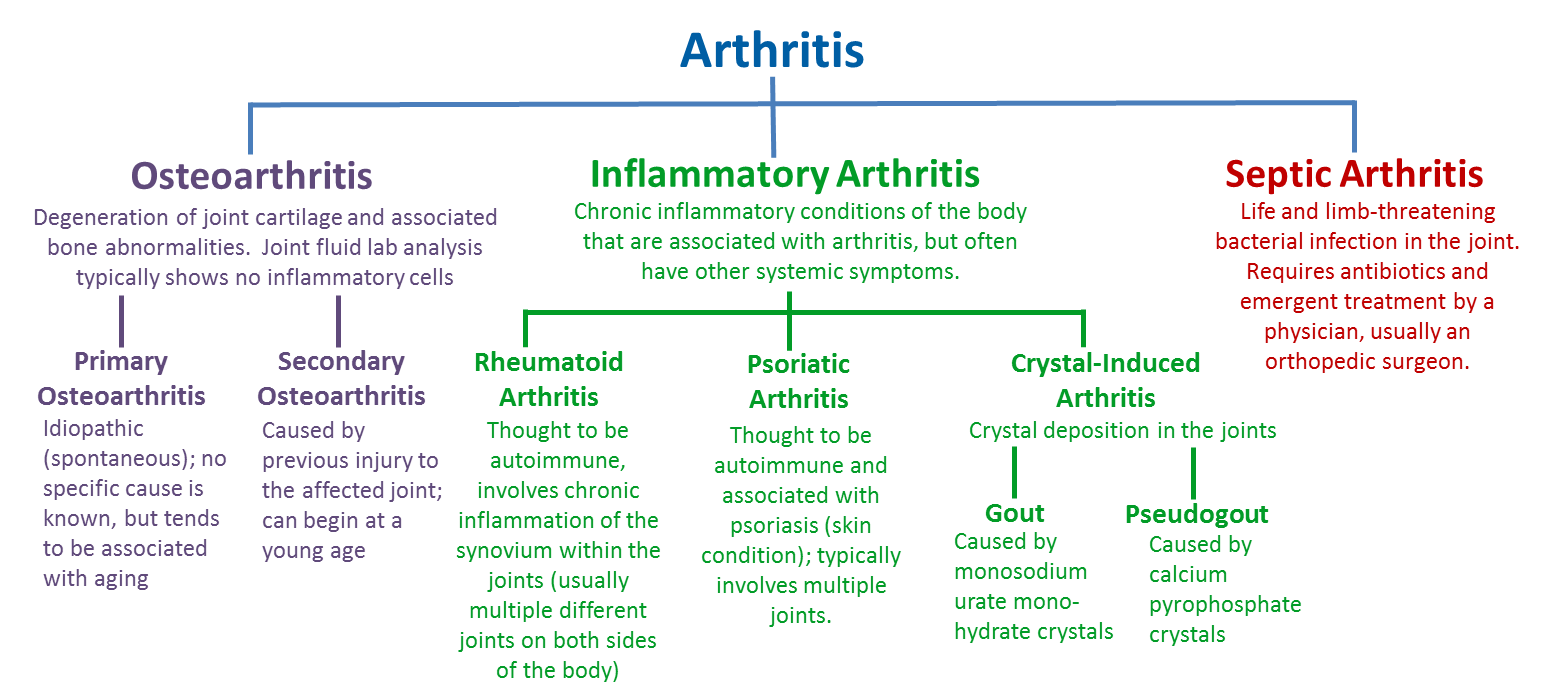
What Causes Arthritis?
The two principal sorts of arthritis— osteoarthritis and rheumatoid arthritis— harm joints in various manners.
Osteoarthritis
The most well-known sort of joint pain, osteoarthritis mainly affects your joint cartilages— the flexible and smooth covering on the articulating bone surfaces. This covering permits frictionless joint movement. In osteoarthritis, the joint cartilages degenerate and consequently, significant harm is sustained as one bone grinds legitimately on other bone during any movement.
Osteoarthritis is seen most commonly in the back region, knees, hip, or fingers.
Rheumatoid Arthritis
In rheumatoid arthritis, the body's immune system attacks the covering of the joints, which is the synovial layer. Consequently, the joint area is inflamed and swollen. If left untreated, this ultimately destroys the bones in the joint.
Risk factors of arthritis
Risk factors for arthritis can be summed up as below:
Family ancestry
A few kinds of joint inflammations run in families, so you might be at additional risk if your ancestors have/had arthritis.
Age
The danger of the numerous kinds of arthritis, specifically osteoarthritis, rheumatoid arthritis -- increases with increasing age.
Your sex
Ladies are more prone to arthritis than men.
Past joint injury
Individuals, who have harmed a joint, maybe while playing a game, are more likely to develop arthritis than others.
Weight
Putting excess weight on joints, especially your knees, hips, and spine can increase the chances of arthritis.
Arthritis Diet Plan Idea
Just like with numerous other ailments, a proper diet can go a long way in not only preventing the disease but also in keeping it under check. That’s why at dietplusminus, a proper diet is always recommended.
Luckily, there are numerous foods that can ease the pain of arthritis and may help mitigate a portion of the joint pain altogether.
Below are some foods recommended by dietplusminus that can help you lower the pain in arthritis.
-
Spinach
-
Walnuts
-
Grapes
-
Ginger
-
Olive Oil
-
Broccoli
Be sure to avoid the following as much as is possible:
-
Sugar containing foods
-
Fatty foods
-
Alcohol
-
Fried meat
-
Packaged foods
If you’re still confused, please reach out to us so that we can create the perfect diet plan for you!
How To Get Enrolled for Arthritis Management by Diet?
Useful Links:
Register/Login ♦ Blog ♦ Subscription Plans ♦ Calculator ♦ Exercises ♦ All Testimonials ♦ Before and After ♦ Recipe ♦ Amazon Pantry 
Elderly Diet Plan

Subscription Plan
I. Introduction to the Importance of a Healthy Diet for the Elderly
- Brief overview of the significance of a well-balanced diet for older adults
Older adults need a balanced diet to stay healthy. It supplies energy, strength, and disease prevention nutrients. Fruits, vegetables, whole grains, lean proteins, and healthy fats promote healthy ageing and reduce the risk of chronic diseases like heart disease, osteoporosis, and cognitive decline. Older adults can improve their health and quality of life by eating well.
- Explanation of the role of nutrition in maintaining health, vitality, and overall well-being
Nutrition maintains health, vitality, and well-being. It supplies vitamins, minerals, and nutrients for optimal body function. Healthy eating supports metabolism, immune system function, and tissue repair. Adequate nutrition boosts energy, cognition, and weight, lowering chronic disease risk and extending lifespan. Nutrition improves life quality and well-being.
- Introduction of Dr. Pankaj Kumar as the best dietician in Delhi and Dwarka, specializing in elderly nutrition
The best dietician in Delhi and Dwarka for elderly nutrition is Dr. Pankaj Kumar. He provides personalised dietary advice for older adults using his expertise and experience. Dr. Kumar understands the nutritional needs and challenges of the elderly and tailors his approach to support their health and well-being. Dr. Kumar's compassionate care and evidence-based strategies help older adults optimise nutrition, vitality, and quality of life.
II. Nutritional Needs of the Elderly and Dietary Management
- Overview of the changing nutritional needs in older adults
Age-related nutritional changes require attention and adaptation. Ageing causes appetite loss, metabolism changes, and nutrient deficiencies. Protein, calcium, vitamin D, and fibre are needed for bone health, muscle strength, and digestion. Chronic conditions like hypertension and diabetes may require dietary changes for older adults. Healthy ageing and preventing age-related health issues require understanding and meeting these changing nutritional needs.
- Emphasis on the importance of tailored dietary management for elderly individuals
Elderly people need customised diets to meet their nutritional needs and stay healthy. Medical conditions, medications, and personal preferences can affect diet. Customised diets can address malnutrition, chronic conditions, and ageing. Elderly people can live healthier and happier lives by focusing on tailored dietary management to improve well-being, nutrient intake, and risk of complications.
- Discussion of common challenges in meeting nutritional requirements and ways to address them
Due to reduced appetite, difficulty chewing and swallowing, and limited access to nutritious foods, elderly people may struggle to meet nutritional needs. Nutrient-dense foods, spices, and purees can help overcome these issues. Meal planning, family involvement, and dietician advice from Dr. Pankaj Kumar can help elderly people get enough nutrition.
- Highlighting the expertise of Dr. Pankaj Kumar in providing personalized dietary plans for the elderly
Dr. Pankaj Kumar specialises in elderly dietary plans. He provides customised solutions based on his knowledge of their nutritional needs and challenges. Dr. Kumar prioritises nutrient intake, chronic disease management, and overall health. He can help seniors create a diet that meets their needs and improves their quality of life.
III. Key Components of an Elderly Diet Plan
- Importance of macronutrients (proteins, carbohydrates, fats) and micronutrients (vitamins, minerals) in an elderly diet
A healthy elderly diet relies on macronutrients and micronutrients. Muscle repair requires adequate protein intake. Energy and fibre come from complex carbohydrates. Healthy fats aid brain and nutrient absorption. Vitamins and minerals support immune, bone, and cognitive health. Elderly people can stay healthy and vital by eating a well-balanced diet.
- Focus on incorporating whole foods, fruits, vegetables, lean proteins, and healthy fats
Fruits, vegetables, lean proteins, and healthy fats are essential for seniors. Whole foods supply vitamins, minerals, fibre, and antioxidants. Lean proteins build muscle and vitamins, minerals, and phytochemicals come from fruits and vegetables. Avocados and nuts contain heart- and brain-healthy fats. Seniors can eat well by prioritising these nutritious foods.
- Emphasis on portion control, hydration, and adequate fiber intake
The elderly need portion control, hydration, and fibre. Portion control controls weight and overeating. Hydration aids digestion, circulation, and body functions. Fibre promotes regularity, gut health, and constipation prevention. These factors can help elderly people optimise their nutrition and well-being.
- Dr. Pankaj Kumar's expertise in designing customized diet plans to meet the specific needs of elderly individuals
Dr. Pankaj Kumar has extensive experience creating elderly-specific diet plans. He tailors nutritional advice to the elderly based on his knowledge of their needs. Dr. Kumar emphasises nutrient-dense foods, chronic disease management, and individual preferences and restrictions. His expertise helps elderly people live healthier and happier through individualised dietary advice.
IV. Lifestyle Factors and Dietary Recommendations for Elderly Health
- Discussing the importance of regular physical activity, sleep, and stress management for the elderly
Elderly people need enough sleep, exercise, and stress management. Physical activity maintains cardiovascular, muscle, and flexibility. Sleep boosts immunity, cognition, and vitality. Stress management improves mental health and quality of life. By prioritising these lifestyle factors, seniors can improve their physical and mental health and live a more active and fulfilling life.
- Guidance on meal planning, including suggestions for breakfast, lunch, dinner, and snacks
To eat well, seniors must plan their meals. Breakfast options like whole-grain cereals, fruits, and yoghurt are healthy. Lunch and dinner should include lean proteins like grilled chicken or fish, whole grains, and a variety of vegetables. Nuts, seeds, and fresh fruit are healthy snacks that maintain energy throughout the day. Dr. Pankaj Kumar can help seniors create customised meal plans to meet their dietary needs.
- Recommendations for maintaining a healthy weight and managing chronic conditions through dietary choices
Mindful eating helps manage weight and chronic conditions. Whole, unprocessed foods, portion control, and balanced macronutrients help manage weight. Reducing sodium and sugar, increasing fibre, and eating specific foods for chronic conditions are important. Dr. Pankaj Kumar's advice helps people lose weight and manage chronic conditions through diet.
- Dr. Pankaj Kumar's role in providing expert advice and support for dietary management in elderly individuals
Dr. Pankaj Kumar advises seniors on diet management. He provides individualised geriatric nutrition advice based on his extensive experience. Dr. Kumar optimises nutrition, addresses dietary concerns, and promotes well-being. His compassionate care and expertise empower elderly people to make informed choices and achieve optimal health through dietary management.
High Cholesterol / Triglycerides Diet
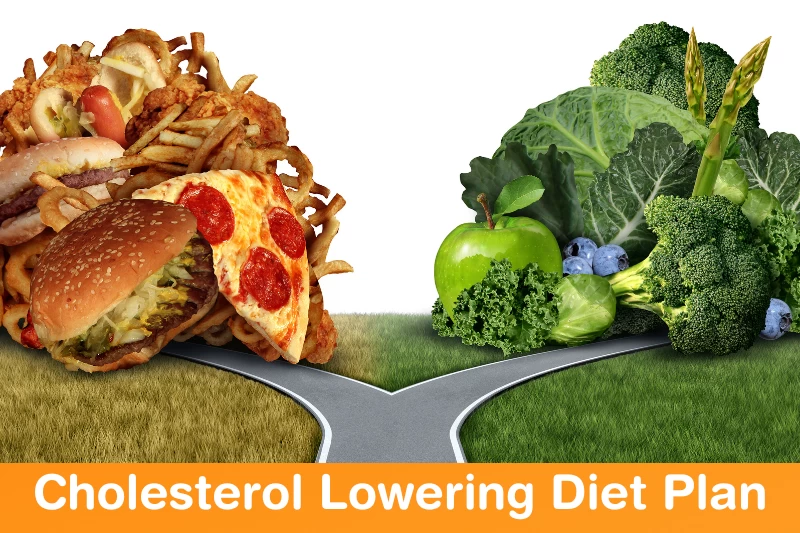
Subscription Plan
| Duration | Price | |
| 4 WEEKS DIAMOND PLANS | Rs 7000 | Express Checkout |
| 14 WEEKS DIAMOND PLANS | Rs 20000 | Express Checkout |
| Duration | Price | |
| Express checkout |
High Cholesterol or Triglycerides Lowering Diet Plan
Millions of people are diagnosed with high cholesterol levels and high triglycerides levels each year. These two may not be too lethal themselves but can give rise to other deadly medical conditions. These include heart attack, stroke, etc. Therefore, it is important to keep the levels of cholesterol and triglycerides in check. And we at dietplusminus strongly believe that the best way to lower high cholesterol/triglycerides levels is to follow a healthy diet.
What are High Cholesterol/Triglyceride levels?
These are two types of fat (lipid) in your blood and therefore are related. They are important for your body. Cholesterol is present in every cell of your body and has structural importance as well as is required to make hormones, vitamin D, etc. Triglycerides are the extra calories that your body stores for energy between meals. But, high quantities of cholesterol/triglycerides in the blood limits blood flow and thus give rise to other serious medical problems.
There are no symptoms and therefore it becomes difficult to know if you have high cholesterol/triglycerides. But, high cholesterol/triglycerides can be detected by blood tests. So, dietplusminus recommends you check your cholesterol and triglycerides levels periodically for early detection.
High triglycerides can also harden your arteries, increasing the risk of arteriosclerosis and atherosclerosis. If it goes untreated, you can also develop pancreatitis (inflammation of the pancreas). High cholesterol/triglycerides are often related to other health conditions like obesity, metabolic syndrome, etc.
What Causes High Cholesterol/Triglycerides?
High cholesterol can be caused by a lot of risk factors. First, a poor/wrong diet is the number one to be discussed. Eating too many saturated fats and trans fats (present in animal products, commercial cookies, crackers, microwave popcorn, etc.) can highly raise the risk. Other foods such as red meat and full-fat dairy products also increase the risk. Further, obesity and lack of exercise, smoking, etc. like bad habits can also increase cholesterol. Diabetes and your age also play a role in this.
On the other hand, high triglycerides are usually caused by other conditions such as obesity, untreated diabetes, thyroid, kidney disease, high alcohol consumption, etc. Eating too many calories than you burn regularly can also lead to this condition. Some medications can also raise triglycerides. These include steroids, diuretics, birth control pills, etc. Moreover, your genetics may also play a role.
How To Cure High Cholesterol/Triglycerides With Diet?
High cholesterol/triglycerides can be treated with a healthy diet. Firstly, you need to avoid consuming saturated and trans fats. Also, dietplusminus recommends you lower your sugar intake and limit foods with cholesterol. Avoid eating animal organs such as liver, egg yolks, shrimp, etc. Rather you should eat lots of fruits and vegetables, all kinds. You should also consume plenty of soluble fiber (whole-grain cereals, apples, bananas, legumes, lentils, kidney beans, etc.)
Omega-3 fatty acids are your friends, so eat fish. But, make sure to limit salt and alcohol consumption. Lose some weight and maintain a healthy weight. Be more active and quit smoking. Dietplusminus recommends you visit a nutrition expert for a proper diet. If you follow the diet, you can control your cholesterol and triglycerides levels without any medications.
How To Get Enrolled For DietPlusMinus?
Other useful Links:
Register/Login ♦ Blog ♦ Subscription Plans ♦ Calculator ♦ Exercises ♦ All Testimonials ♦ Before and After ♦ Recipe ♦ Amazon Pantry 
Weight Gain Program

Subscription Plan
| Duration | Price | |
| 4 WEEKS DIAMOND PLANS | Rs 7000 | Express Checkout |
| 14 WEEKS DIAMOND PLANS | Rs 20000 | Express Checkout |
| Duration | Price | |
| Express checkout |
Table of Contents
- Weight Gain Diet Plan
- What are the main causes behind being underweight?
- 1. High metabolism
- 2. Individuals with very high physical activity
- 3. Chronic disease
- 4. Mental problems
- What leads to unexplained weight loss?
- Why should you attain and maintain a healthy weight?
- Body Mass Index (BMI) Calculator
- Risks of being underweight are:
- When to consult your doctor?
- Some pro tips to gain healthy weight
- Know more about Dr. Pankaj Kumar
- Why Dr. Pankaj Kumar's Lifestyle Modification Program
- How To Get Enrolled?
- Useful Links:
Weight Gain Diet Plan
Being underweight comes under the category of malnutrition. According to the World Health Organization (WHO), around 462 million people in the world are underweight. Poor dieting habits, skipping meals, etcetera can lead to being underweight.
Underweight people are quite prone to diseases, especially deficiencies. During the correction of nutritional deficiencies with evidence-based scientific diet plans, you can eliminate all such deficiencies and get proper nutrition every day. If you are underweight due to nutritional mismatch then within 3 months you will be able to see the result and you will also gain significantly. For other causes of the underweight conditions, evaluation is required on an OPD basis in the hospital.
What are the main causes behind being underweight?
There are several causes behind being underweight, including:
1. High metabolism
Individuals with high metabolism do not gain weight, even after eating high-calorie foods.
2. Individuals with very high physical activity
People have very high physical activities, for example, athletes and runners burn a significant amount of calories. This causes a low body weight.
3. Chronic disease
Some diseases can cause continuous nausea, diarrhea, vomiting, and loss of appetite. Examples of such diseases are diabetes, thyroid problems, cancer, digestive problems, and respiratory problems. These all make weight gain difficult.
4. Mental problems
Mental illnesses, including depression, anxiety, and obsessive-compulsive disorders (OCD) can affect the eating ability of an individual. Additionally, eating disorders like anorexia and bulimia can also affect eating. All of these conditions can affect the body image and appetite of an individual.

What leads to unexplained weight loss?
The reasons for unexplained weight loss may be medical or non-medical. There may be a group of conditions, that have adverse effects on your health leading to unwanted weight loss. Common conditions which lead to unwanted weight loss include cancer, celiac disease, ulcerative colitis, peptic ulcer, Crohn’s disease, dental problems, Addison’s disease, amyloidosis, hypercalcemia, diabetes, heart problem, hyperthyroidism, hypothyroidism, Parkinson’s disease, dementia, depression, COPD, and HIV. Certain medications and lifestyles, including alcohol and cocaine, also lead to weight loss.
Why should you attain and maintain a healthy weight?
It is very important to diagnose the underlying cause of unwanted weight loss. Diagnosis and proper treatment are necessary as they can be fatal. Your BMI calculator:
|
Weight status |
BMI |
|
Underweight |
Lower than 18.5 |
|
Healthy weight |
Between 18.5 to 24.9 |
|
Overweight |
Between 25 to 29.9 |
|
Obese |
30 or above |
BMI lower than 18.5 is suggestive of being underweight.
Risks of being underweight are:
1. Weakened immunity
The immunity of underweight individuals is suppressed and they are more vulnerable to getting colds, flu, and other infections.
2. Deficiencies
If you are underweight, likely, you are not taking a healthy diet. This can lead to nutritional deficiency, for example, a lower calcium level can lead to fragile bones and a lower iron level causes anemia which leads to fatigue. Symptoms like thinning skin, dry skin, hair loss, and poor dental health are also associated with nutritional deficiencies.
3. Irregular periods
Underweight women find it difficult to conceive. Their period may be irregular or can stop.
4. Premature birth
According to a study, a pregnant woman who is underweight is more likely to give birth to a premature child.
5. Slow or impaired growth
Proper nutrition is needed for the growth and development of bones in young individuals. Being underweight and not getting enough nutrition can result in underdevelopment.
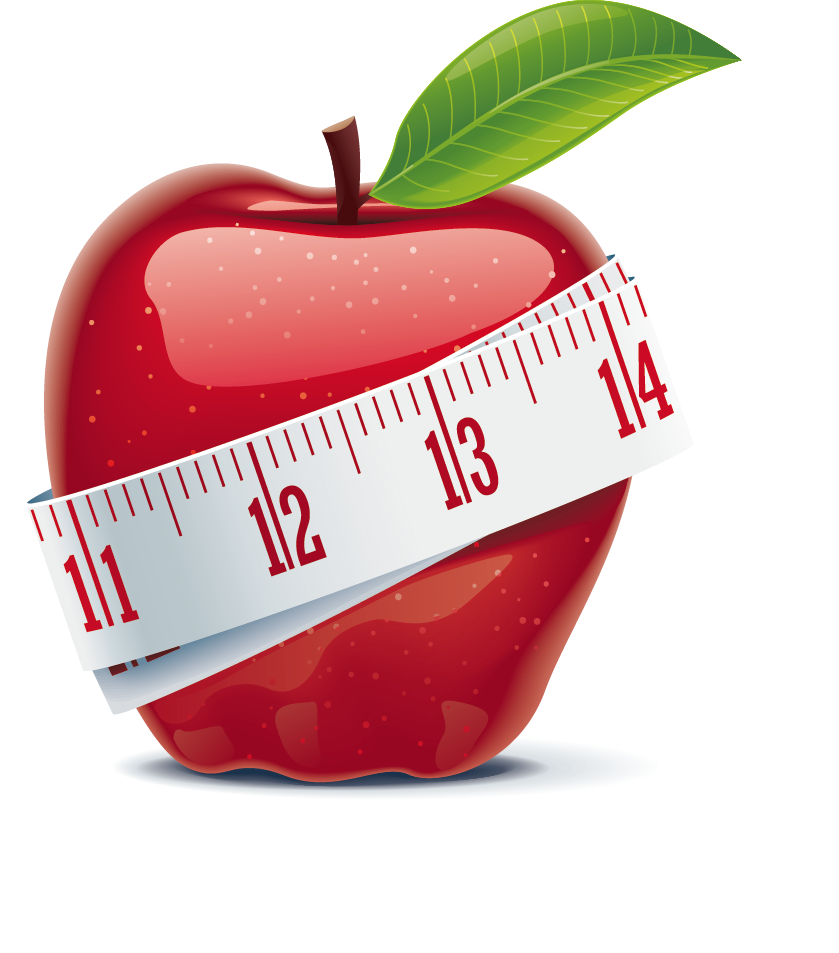 When to consult your doctor?
When to consult your doctor?
When you are trying to gain weight and are not able to do so, you should consult your doctor. When you are experiencing problems like irregular periods or find it difficult to conceive, you should ask your doctor for help. If an individual is mentally unfit or has an eating disorder, medical attention is necessary. Some common symptoms of an eating disorder include secretive behavior, sudden and unexplained weight loss, fatigue, refusing to eat in front of others, and refusing to attend family and social events. In case of such problems, family members should encourage the individual and seek medical help.
Some pro tips to gain healthy weight
1. Include at least 5 portions of fruits and vegetables in your diet.
2. Must include dairy or dairy alternatives in your diet. Also add beans, eggs, fish, meat, and other protein sources to your diet.
3. Select healthy whole grains as a base of your diet. You can also add starchy carbs, including potato, rice, pasta, and bread to your diet.
4. Include nuts, seeds, and healthy fat in your diet.
5. Eat several small meals.
6. Add high protein and high fiber snacks to your diet.
7. Drink plenty of fluid. 3-4 liter liquid a day is necessary.
Know more about Dr. Pankaj Kumar
Why Dr. Pankaj Kumar's Lifestyle Modification Program
How To Get Enrolled?
Useful Links:
Register/Login ♦ Blog ♦ Subscription Plans ♦ Calculator ♦ Exercises ♦ All Testimonials ♦ Before and After ♦ Recipe ♦ Amazon Pantry 
PCOD/PCOS Diet
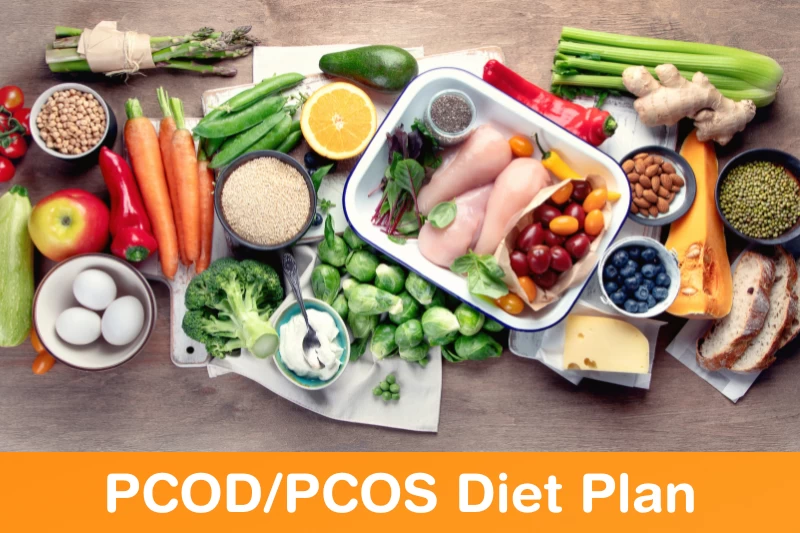
Subscription Plan
| Duration | Price | |
| 4 WEEKS DIAMOND PLANS | Rs 7000 | Express Checkout |
| 14 WEEKS DIAMOND PLANS | Rs 20000 | Express Checkout |
| Duration | Price | |
| Express checkout |
Table of Contents
- Polycystic Ovary Syndrome (PCOS): Symptoms, Causes, and Treatment
- More about PCOS
- Causes of PCOS
- Common symptoms of PCOS
- Effects of PCOS On your body
- How PCOS is diagnosed
- Pregnancy and PCOS
- Common medical treatments
- When to see a doctor for PCOD
- Weight loss tips for women with PCOS:
- Some Natural Ways to Help Treat Polycystic Ovary Syndrome (PCOS)
- The main symptoms of PCOS include:
- Let’s discuss some natural ways for PCOS management:
- Diet changes
- Supplements
- Probiotics
- Maintain a healthy weight
- Balance your exercise
- Practice good sleep hygiene
- Reduce stress
- Limit or avoid endocrine disruptors
- Consider acupuncture
- Frequently asked questions and answers on Polycystic Ovarian disease:
- Are PCOS and PCOD the same?
- Is PCOS dangerous?
- Is PCOS curable?
- Are PCOS periods painful?
- Are PCOS babies healthy?
- Are PCOS and pregnancy symptoms the same?
- Are PCOS and diabetes related?
- Are PCOS and thyroid-related?
- Can PCOS be reversed?
- Can PCOS cause cancer?
- Can PCOS cause miscarriage?
- Can PCOS cause constipation?
- Can PCOS cause back pain?
- Can PCOS be cured by yoga?
- Did I ovulate with PCOS?
- Where did PCOS come from?
- Do PCOS cysts go away?
- Does PCOS cause breast tenderness?
- Does PCOS affect pregnancy?
- Do PCOS cysts burst?
- Does PCOS cause hair loss?
- Does PCOS cause weight gain?
- Does PCOS cause weight loss?
- Does PCOS cause infertility?
- A woman who has PCOS?
- Have PCOS and can't lose weight?
- What to do when trying to get pregnant with PCOS?
- Have PCOS but no symptoms?
- How PCOS is detected?
- Is PCOS genetic?
- Should patients with PCOS avoid dairy?
- Should PCOS patients take metformin?
- Should PCOS patients avoid gluten?
- Suffering from PCOS, should I take birth control?
- What to eat, when suffering from PCOS?
- Where does PCOS acne occur?
Polycystic Ovary Syndrome (PCOS): Symptoms, Causes, and Treatment
Polycystic ovary syndrome (PCOS) is a condition in females, in which their hormone level is affected. PCOD (Polycystic Ovarian Disease) or PCOS (Polycystic Ovarian Syndrome) are names given to the same ailment. PCOD affects nearly 1 million women per year in India only, mostly striking at an early age. As the name already suggests, in the disease, the development of multiple cysts (blisters inside the body) in the ovary takes place. Due to this ovary enlarges and excessive production of androgen and estrogen (female hormones) happens to lead to multiple disorders in the body. Symptoms of the ailment are already listed above.
PCOS causes more than normal amounts of male hormone secretion in women. This causes a hormonal imbalance in their body, leading to skipping menstrual periods and difficulty in getting pregnant. PCOS can cause some long-term health issues like diabetes and heart disease and can also cause hair growth on the face and body, and baldness. Hormonal imbalance can be fixed and the symptoms can be improved up to certain levels by the use of birth control pills and diabetes drugs.
More about PCOS
PCOS is a problem with hormones that affects women during their childbearing years (ages 15 to 44). Between 2.2 and 26.7 percent of women in this age group have PCOS. The condition PCOS causes hormone-related issues in women during their childbearing age (15 to 44 years). According to a study, between 2.2 to 26.7 % of women in this age group have PCOS.
One in every 10 women suffers from PCOD/PCOS on average. Some experiences obesity, weight gain, and acne while some experiences abnormal menstruation, irregular or heavy menstruation, depression, and loss of scalp hair are also some significant symptoms of PCOS. All these side-effects-cum-symptoms are threatening and alarming too. In a world where stress and anxiety are common, there is a high risk for women to suffer from PCOS/PCOD. But every problem has a solution and this deadly-looking worst situation also has some specific solutions.
Many women have PCOS but they don’t know it. According to another study, up to 70 % of women are unaware that they have PCOS.
Ovaries, the female reproductive organs- which produce estrogen and progesterone are affected by PCOS. These hormones are responsible for the regulation of the menstrual cycle. In addition to secreting estrogen and progesterone, ovaries also produce a scanty amount of male hormones called androgens.
There is a release of an egg each month called ovulation. The ovaries release eggs to be fertilized by a man’s sperm. Ovulation is controlled by follicle-stimulating hormone (FSH) and luteinizing hormone (LH). FSH is involved in stimulating the ovary to produce a follicle — a sac that contains an egg, after that LH stimulates the ovary to release a mature egg. PCOS can cause a group of symptoms affecting the ovaries and also ovulation. The three most common symptoms are:
-
Irregular or skipped periods
-
Cysts in the ovaries
-
High levels of male hormone
Many small, fluid-filled sacs grow inside the ovary of women having PCOS. This is what is called polycystic, which means “many cysts”. These sacs are follicles, each containing 1 immature egg. The main issue is that these eggs never mature enough to trigger ovulation. Lack of ovulation causes alteration in levels of hormones that are involved in the whole procedure of ovulation, like estrogen, progesterone, FSH, and LH. Androgen levels increase higher than usual, while the level of estrogen and progesterone falls. High levels of androgens disturb the menstrual cycle, so women with PCOS get fewer periods than usual. PCOS isn’t a new condition. Italian physician Antonio Vallisneri first described its symptoms in 1721.
In short:
Up to 27% of women during their childbearing age are affected by PCOS. The main issues associated are irregular periods, cysts in the ovaries, and high levels of male hormones.
Causes of PCOS
The exact causes of PCOS are still unknown but excess production of male hormones (androgen) inside the body may lead to it. High levels of the male hormone inside the body prevent ovaries from producing eggs normally, leading to many problems. PCOS runs in families so, it is related to genes, meaning that if your ancestor had it there are high chances of you catching it. Insulin resistance and inflammation of tissues also lead to excessive production of a male hormone which then leads to PCOD.
The exact reason for PCOS is still a mystery for doctors. They believe that the high levels of male hormones in women are responsible for the improper function of ovaries in producing hormones and making eggs normally. In addition genes, inflammation, and insulin resistance have also been linked to excess androgen production.
Genes
It is reported in some studies that PCOS runs in families. It is also reported that a single gene is not responsible for this, many genes are involved in causing this condition.
Insulin resistance
According to some studies, up to 70 % of women with PCOS have impaired insulin function, i.e. insulin resistance. Insulin is a hormone produced by the pancreas, to help the body use sugar from foods for energy. When the insulin is not used by cells properly, the body’s demand and the supply from the pancreas both increase. Extra insulin triggers the ovaries to produce more male hormones. The major cause behind insulin resistance is obesity. Obesity and insulin resistance, together with lead to type2 diabetes.
Inflammation
Women suffering from PCOS normally have increased levels of inflammation in their bodies. Being obese or overweight can also contribute to inflammation. Excess inflammation is linked with higher levels of androgen in some studies.
In short:
The exact reason behind PCOS is not known now. Doctors believe some factors behind this like genes, insulin resistance, and higher levels of inflammation in the body.
Common symptoms of PCOS
The symptoms are visible in some women from their first period while others came to know about it after they’ve gained a lot of weight or they’ve had trouble getting pregnant.
|
PCOS symptoms |
Description |
|
Irregular periods |
Some women with PCOS get fewer than eight periods a year. A lack of ovulation is the reason behind this. |
|
Headaches |
Hormonal changes are often associated with headaches in some women. |
|
Weight gain |
According to some studies, Up to 80% of women with PCOS are overweight or obese. |
|
Heavy bleeding |
The uterine lining builds up for a longer period, so the periods can be heavier than normal. |
|
Darkening of the skin |
Dark patches on the skin may form in some areas like those on the neck, in the groin, and under the breasts. |
|
Male-pattern baldness |
Some women report severe hair fall. |
|
Hair growth. |
More than 70% of women with this condition suffer from hair growth on their face and body — including on their back, belly, and chest. |
|
Acne |
Male hormones may make the skin oily more than usual and can cause breakouts on areas like the face, chest, and upper back. |
In short:
PCOS can disturb the normal menstrual cycle, resulting in very fewer periods. Some other symptoms associated with PCOS are acne, hair growth, weight gain, and dark skin patches.
Effects of PCOS On your body
There are various areas in your body, which can get affected by PCOS.
Infertility
Proper ovulation is of utmost importance for getting pregnant. Women not ovulating regularly don’t release as many eggs to be fertilized. One of the leading causes of infertility is PCOS.
Metabolic syndrome
According to a few studies, approx. 80% of women with PCOS are overweight or obese. PCOS with obesity increases the risk of insulin resistance, high blood pressure, low HDL, and high LDL. These metabolic syndromes increase the risk of heart disease, diabetes, and stroke.
Sleep apnea
This condition causes repeated pauses in breathing during the night, which interrupts sleep. Repeated pause in breathing during the night is observed in females with PCOS. This causes interrupted sleep. Although sleep apnea is common among overweight females, the risk increases 5 to 10 times in obese women with PCOS, as compared to those without PCOS.
Endometrial cancer
The uterine lining sheds during ovulation. Women not ovulating every month, build up the lining thicker. A thickened uterine lining increases the risk of endometrial cancer.
Depression
Various symptoms associated with PCOS like unwanted hair growth, acne, and excessive hair fall can affect your emotions negatively. Many women with PCOS end up experiencing depression and anxiety.
In short:
A woman's health can be affected in many ways due to hormonal imbalance. PCOS increases the risk for infertility, metabolic syndrome, sleep apnea, endometrial cancer, and depression.
How PCOS is diagnosed
When at least two of the under given symptoms are found in a woman, doctors diagnose it as PCOS:
. Cyst in ovaries
. Irregular periods.
. high levels of androgen
Your doctor may ask you whether you’ve had other symptoms like hair loss, weight gain, body hair growth, or acne. By pelvic examination, your doctor can search for any problems with your ovaries or other parts of the reproductive tract. Gloved fingers are inserted into your vagina to check for any growths in your ovaries or uterus.
Blood tests are performed to check the levels of male hormones. You may also be suggested by your doctor for some other tests like cholesterol, insulin, and triglyceride levels to evaluate your risk for related conditions like heart disease and diabetes. An ultrasound can be suggested to look for abnormal follicles and other problems with your ovaries and uterus.
In short:
The main symptoms of PCOS are high androgen levels, irregular periods, and cysts in the ovaries. If you have more than two of them, the doctor will diagnose it as PCOS. Following that, a pelvic exam, blood tests, and ultrasound can confirm the diagnosis.
Pregnancy and PCOS
The normal menstrual cycle is interrupted in the condition PCOS, and it becomes difficult to conceive. According to some studies, about 70-80% of women with PCOS have fertility-related issues. If they become pregnant, this can increase their pregnancy complications.
Women with PCOS have a greater (approx. double than normal women) chance of giving birth to a premature baby. The chance of miscarriage, high blood pressure, and gestational diabetes also increases. However, fertility treatments related to improving ovulation can be helpful for women with PCOS to become pregnant. Weight loss and normal blood sugar levels also increase the odds of getting pregnant.
In short:
There is an increased chance of infertility in women with PCOS. It can also increase pregnancy complications and miscarriage. Weight loss, fertility-related treatments, and normal blood sugar levels can improve your odds of having a healthy pregnancy.
Common medical treatments
Birth control pills and other medicines can help in the regulation of the menstrual cycle and the treatment of PCOS symptoms like hair growth and acne.
Birth control
Daily intake of estrogen and progestin can help restore a normal hormone balance, regulate ovulation in relieving symptoms like excess hair growth, and protect against endometrial cancer.
Metformin
Metformin is a drug used in the treatment of type 2 diabetes. It also treats PCOS by improving insulin levels. In addition to making dietary changes and exercises, metformin improves weight loss, lowers blood sugar, and restores a normal menstrual cycle better than changes to diet and exercise alone.
Clomiphene
Clomiphene is a fertility drug, which can help women with PCOS in getting pregnant. But, it can increase the chance of twins and other multiple births.
Hair removal medicines
Few treatments help stop the growth of unwanted hair. Eflornithine (Vaniqa) cream is a prescription drug that slows hair growth. For the removal of unwanted hair from the face and body, laser hair removal or electrolysis can be beneficial.
Surgery
To improve fertility, surgery can also be an option if other treatments don’t work. Ovarian drilling is a procedure that makes tiny holes in the ovary with a laser or thin heated needle to restore normal ovulation.
In short:
Birth control pills and metformin tablets can help restore a normal menstrual cycle. To improve fertility Clomiphene and surgery may be beneficial. Hair removal medicines and laser hair removal may help you get rid of unwanted hair growth.
When to see a doctor for PCOD
Consult with your doctor if:
-
You have symptoms of diabetes, such as excessive thirst or hunger, blurred vision, or unexplained weight loss.
-
You’ve missed your periods and you’re not pregnant.
-
You have symptoms like hair growth on your face and body.
-
You’ve been trying to conceive for more than 12 months but haven’t been successful.
If you are diagnosed with PCOS, be in regular contact with your primary doctor. You’ll need regular tests for diabetes, high blood pressure, and other possible complications.
In short:
Consult your doctor, if you have symptoms like skipped periods, and hair growth on your face and body. Also contact your doctor, if trying to conceive for more than 12 months and not getting success.
The bottom line
PCOS can disturb the menstrual cycle of a woman and make it difficult to get pregnant. High levels of male hormones result in unwanted symptoms like hair growth on the face and body.
Weight loss tips for women with PCOS:
It is very difficult for women with PCOS to lose weight because of related conditions like hormonal imbalances, insulin resistance, and inflammation. Even a small weight loss of approximately 5% can improve insulin resistance, hormone levels, menstrual cycles, fertility, and overall quality of life in women with PCOS.
Let’s discuss some weight loss tips which can be helpful for you:
|
Weight Loss Tips |
Description |
|
Cut carb Intake |
Eating a diet low in GI, and low in carbs may reduce insulin levels in women with PCOS. It will also help in weight loss. |
|
Consider Supplements |
Myo-inositol and carnitine supplements may be helpful for women with PCOS in losing weight and controlling certain symptoms. |
|
Take Plenty of Fiber |
A diet high in fiber may help reduce insulin resistance, body weight, and excess body fat. |
|
Manage Your Stress |
Reducing stress through yoga, meditation, and spending time on the stuff of interest may help lower cortisol levels. High cortisol levels from chronic stress are linked to insulin resistance and visceral fat. |
|
Increase Protein Intake |
Higher protein intake enhances weight loss, especially for women with PCOS. Add healthy, high-protein items like eggs, nuts, and seafood to your diet. |
|
Get Enough Sleep |
Poor sleep is linked to obesity. Studies in healthy adults report that increasing your total time asleep can reduce body fat and promote weight loss. |
|
Add Healthy Fats |
Inclusion of healthy fats in the diet may be beneficial for women with PCOS. In studies, higher fat intake is linked to reduced hunger and a greater loss of body fat. |
|
Regular Exercise |
To reduce body weight, women with PCOS must do both cardio and weight-training exercises. It may help them drop body fat and improve insulin sensitivity. |
|
Eat Fermented Foods |
Women with PCOS may be devoid of beneficial gut bacteria. Eating foods rich in probiotics or taking a probiotic supplement may support your gut bacteria, thus aiding weight loss. |
|
Don’t Under eat |
Your metabolism can slow down, if you eat for a long time, and will result in weight gain. Instead of forcing yourself to eat less food, try to adopt a diet of whole, unprocessed foods to help with weight loss. |
|
Mindful Eating |
Mindful eating helps promote awareness and promotes weight loss. It may be especially helpful for women with PCOS, who are much more likely to experience eating disorders. |
|
Reduce Inflammation |
Inflammation is commonly seen in women with PCOS and has been linked to obesity. Eating a diet high in whole foods, especially fruits and vegetables may help prevent inflammation. |
|
Limit Refined, Processed Foods, and Added Sugars |
Processed foods such as refined carbs and added sugars increase blood sugar levels, which can lead to weight gain. |
The Bottom Line
Weight loss is very difficult for women with PCOS. A healthy diet low in inflammatory foods like refined carbs and highly processed foods but rich in whole foods, protein, healthy fats, and fiber may enhance weight loss. Certain supplements may also help in this regard. Lifestyle modifications like regular exercise, stress management, and proper sleep are very important for weight loss. If you have PCOS and struggle to lose weight, try the above tips.
Some Natural Ways to Help Treat Polycystic Ovary Syndrome (PCOS)
The main symptoms of PCOS include:
-
weight gain
-
irregular periods
-
acne
-
ovarian cysts
-
thinning hair
The causes of PCOS are complicated, but insulin resistance and hormone regulation are key factors. You may be able to manage these factors and reduce your symptoms through lifestyle changes and dietary supplements, but there’s no one-size-fits-all approach to treatment. You should always talk with your doctor before trying any alternative treatment. They can discuss possible dosages, side effects, and interactions.
Let’s discuss some natural ways for PCOS management:
Diet changes
Diet affects the problem in two major ways first a good diet led to PCOS weight management and second it maintains the insulin level of the body (One is a significant symptom of the ailment and the other is a major reason behind the disease). Here dietplusminus has listed some of the diets which will help everyone fight the disease and control the symptoms to a great extent.
The most significant one is opting for a proper diet. Whether it is diabetes, blood pressure or any other disease diet plays a major role because anything we eat has a direct effect on our body so, going for a healthy and proper diet can help a lot with this problem also. Dietplusminus is here to help.
The key to dietary management is eating the right foods and avoiding certain ingredients.
Low Glycemic index (GI) diet
A diet in which less amount of Glycemic is present may help a lot in this case. A diet with low GI is digested slowly inside the body meaning, that they do not lead to rising the insulin level, which is necessary to be balanced. Nuts, fruits, starchy vegetables, and whole grains all come in a low GI diet.
Less inflammatory diet
Inflammation of tissues is a major cause of the disease so, ingesting an inflammatory diet can do worse. Berries, fish, and leafy green vegetables can help to reduce symptoms.
Dietary approaches to stop hypertension (DASH Diet)
It includes fruits, vegetables, low-fat dairy products, etc. DASH diet is highly recommended for PCOS.
. Balance carb and protein intake
. It’s all about whole foods
. Add in some fiber to help with digestion
. Cut out coffee
. Consider soy products
. Up your magnesium intake
. Up your iron intake
. Aim for anti-inflammatory
Supplements
Supplements claim to help in hormone regulation, insulin resistance, and inflammation mostly associated with PCOS. Some of the supplements to be added are inositol, chromium, cinnamon, turmeric, zinc, evening primrose oil, Combined vitamin D and calcium, Cod liver oil, and Berberine.
Adaptogen herbs
A higher level of male sex hormone called androgens builds up in your body when your body is unable to proper regulation of insulin. Adaptogen herbs claim to aid your body in balancing these hormones. Some of them are:
-
Chasteberry,
-
Tribulus Terrestris,
-
Ashwagandha,
-
Holy basil,
-
Maca root, and
-
Licorice root.
Probiotics
In addition to helping in digestion and maintaining a healthy gut, probiotics can play an important role in treating PCOS. They can also help in the regulation of sex hormones like androgen and estrogen and can also help reduce inflammation.
Maintain a healthy weight
It’s very important to maintain a healthy weight. It can help you in decreasing insulin resistance, regulate your period, and reduce the risk of conditions associated with PCOS. You can try a low-carb diet for maintaining a healthy weight.
Balance your exercise
In maintaining a healthy weight, exercise is very crucial. But remember too much exercise also be harmful and may disrupt your hormones. So talk to your doctor about a healthy balance.
Practice good sleep hygiene
Sleeping disturbances are twice common in women with PCOS. Sleep is directly connected with stress levels. Lower stress level helps proper regulation of cortisol, which in turn balances your hormones. To up your sleep hygiene:
• Avoid stimulants and rich, fatty foods before bedtime.
• a regular bedtime routine is necessary.
• Aim for eight to ten hours of sleep per night.
Reduce stress
Stress reduction is very crucial for the proper regulation of cortisol. You can try yoga, getting enough sleep, caffeine cut, and self-care for reducing your stress level.
Limit or avoid endocrine disruptors
Some chemicals or ingredients can interfere with or block your natural hormonal reactions. Such chemicals mimic female and male sex hormones, confusing your reproductive system. These chemicals or ingredients are called endocrine disruptors and they can increase the risk of PCOS symptoms.
Consider acupuncture
It is shown in some studies that acupuncture can be efficiently used as an alternative treatment for PCOS. Acupuncture may help PCOS by:
• improving your sensitivity to insulin
• increasing blood flow to your ovaries
• helping with weight loss
• reducing cortisol levels
Be cautious
You should always talk to your doctor before starting any alternative therapy. Some treatments that claim to be miracles for PCOS can impact your fertility or may lead to other complications.
Talk with your doctor
Talk to your doctor and make a treatment plan before considering any natural treatment options for PCOS.
Frequently asked questions and answers on Polycystic Ovarian disease:
Are PCOS and PCOD the same?
Both PCOS and PCOD diseases are associated with ovaries. PCOS is an endocrine system disorder while PCOD is a condition developed by a hormonal imbalance.
Is PCOS dangerous?
Mostly, in women with PCOS, there are several small cysts, or water-filled sacs growing on ovaries. Although, these cysts are not harmful, but can lead to an imbalance in hormone levels. Women with PCOS may also experience menstrual cycle abnormalities, increased androgen (sex hormone) levels, excess hair growth, acne, and obesity.
Is PCOS curable?
The symptoms of PCOS can be managed, but the disease cannot be cured. Treatment options also vary from person to person because someone with PCOS may experience a range of symptoms, or just 1.
Are PCOS periods painful?
Normally, women with PCOS have irregular periods, which may be infrequent and/or prolonged. When women with PCOS have a menstrual period, they often experience heavy bleeding, clots, and severe period pain. As PCOS progresses, symptoms like period pain will get worse as well.
Are PCOS babies healthy?
Polycystic ovarian syndrome, or PCOS, is a common hormonal condition in women. It’s difficult to become pregnant for women with PCOS who are at higher risk of developing complications during pregnancy. However, by managing the symptoms, many women with PCOS can become pregnant and have healthy babies.
Are PCOS and pregnancy symptoms the same?
Except for a missed period or morning sickness, most early pregnancy symptoms are frustratingly similar to regular symptoms of an impending period. These include common symptoms such as increased fatigue and sore or tender breasts.
Are PCOS and diabetes related?
More than 50% of women with PCOS develop type 2 diabetes by age 40. Gestational diabetes puts the pregnancy and baby at risk and can lead to type 2 diabetes later in life for both mother and child.
Are PCOS and thyroid-related?
Both genetic and environmental factors are believed in contributing to thyroid disorders in PCOS. Hypothyroidism is known to cause PCOS- overall worsening of PCOS and insulin resistance.
Can PCOS be reversed?
Unfortunately, there is no cure for PCOS, but overweight and obese women can help balance their hormone levels by losing weight. The main line of treatment in the case of PCOS is to manage symptoms. A wide range of treatment options can help prevent any potential problems.
Can PCOS cause cancer?
PCOS increases the risk of some types of cancer. According to some research, For instance, research has shown that the risk of cancer of the endometrium, the inside lining of the uterus, may be higher in women with PCOS as compared to women without it.
Can PCOS cause miscarriage?
One of the worst complications of PCOS is miscarriage. Women with PCOS are three times as likely to miscarry in the early months of pregnancy as are women without PCOS. Some research shows that metformin may reduce the risk of miscarriage in pregnant women with PCOS.
Can PCOS cause constipation?
Women with PCOS often report similar symptoms to those with IBS, including bloated feelings, constipation and/or diarrhea, and stomach and pelvic pains.
Can PCOS cause back pain?
Women with PCOS may experience low back pain, sacral pain, and lower quadrant abdominal pain. A thorough study of patient history will be needed to give that pain a gynecologic/metabolic connection.
Can PCOS be cured by yoga?
Although yoga cannot cure PCOS, it may help relieve some of the symptoms.
Did I ovulate with PCOS?
Due to hormonal imbalances, women with PCOS often have irregular menstrual cycles because either they don't ovulate or ovulate only occasionally.
Where did PCOS come from?
PCOS is caused by an imbalance in the hormones in your brain and your ovaries. PCOS usually happens when a hormone called LH or levels of insulin are too high, which then causes the ovaries to make extra amounts of testosterone.
Do PCOS cysts go away?
These cysts are harmless and will disappear naturally on their own after a few months. Usually, they don’t need any medical attention.
Does PCOS cause breast tenderness?
Women with PCOS are at increased risk of water retention and breast tenderness.
Does PCOS affect pregnancy?
Refer to question number 11.
Do PCOS cysts burst?
PCOS cysts can contribute to hormonal imbalances, but the cysts themselves are usually harmless. PCOS cysts are different than the kind of ovarian cysts that grow, rupture, and cause pain.
Does PCOS cause hair loss?
While many patients with PCOS grow thicker hair on their face and body, some experience hair thinning and hair loss, which is referred to as female pattern hair loss.
Does PCOS cause weight gain?
PCOS affects 1 out of every 10 women during their reproductive years. Women with PCOS often experience issues with hormonal imbalances, metabolism, and, as a result, weight gain.
Does PCOS cause weight loss?
Either women with PCOS produce too much insulin, or the insulin they produce does not work properly. The inability of insulin to function normally is one reason why women with PCOS tend to gain weight or have a hard time losing weight.
Does PCOS cause infertility?
Irregular periods and ovulation are common in women with PCOS. This can lead to Infertility. PCOS is one of the most common causes of infertility in women.
A woman who has PCOS?
Women with PCOS have hormonal imbalance and metabolism problems that may affect their overall health and appearance. PCOS is also a common and treatable cause of infertility.
Have PCOS and can't lose weight?
PCOS affects your body's secretion and use of insulin. Your cells become resistant to insulin signals and this prompts your pancreas to produce even more insulin. If you are gaining lots of weight or can't lose weight without significant changes in diet or exercise routines, excess insulin could be the culprit.
What to do when trying to get pregnant with PCOS?
You can get pregnant with PCOS. You will likely need to have moderate weight, balance your blood sugar levels, and treat other PCOS symptoms with healthy lifestyle changes and medications. In some cases, fertility medications alone will help you get pregnant. If that doesn't work, you may need IVF treatment.
Have PCOS but no symptoms?
If you have polycystic ovaries on scan but regular periods and no symptoms, then you are normal. It is important to note that the fluid-filled structures in the ovaries associated with PCO are not technically cysts. Ovaries contain follicles where the ova/eggs develop and they are naturally filled with fluid.
How PCOS is detected?
Doctors diagnose PCOS if women have at least two of three main symptoms — high androgen levels, irregular periods, and cysts in the ovaries. A pelvic exam, blood tests, and ultrasound can confirm the diagnosis.
Is PCOS genetic?
It is seen in studies that if any relatives, such as your mother, sister, or aunt, have PCOS, the risk of you developing it is often increased. This suggests there may be a genetic link to PCOS, although specific genes associated with the condition have not yet been identified.
Should patients with PCOS avoid dairy?
Women with PCOS have the propensity to develop insulin resistance and the ingestion of dairy can lead to higher levels of insulin. So, depending upon the case, dairy may be avoided.
Should PCOS patients take metformin?
Metformin is an effective ovulation induction agent for non-obese women with PCOS and also offers some advantages over other first-line treatments for non-ovulation infertility such as clomiphene. For clomiphene-resistant women, metformin alone or in combination with clomiphene is an effective next step.
Should PCOS patients avoid gluten?
Reducing the consumption of gluten or avoiding it could potentially lessen inflammation in PCOS, but more research is needed before recommending gluten-free diets to all women with the disease.
Suffering from PCOS, should I take birth control?
Mostly, who use the pill to treat their PCOS a combination pill, containing estrogen and progestin, is the best choice. The hormones in this type of pill work to prevent ovulation, decrease ovarian cysts and decrease the hormone-related side effects of PCOS.
What to eat, when suffering from PCOS?
Patients with PCOS should have a diet including these:
. natural, unprocessed foods.
. high-fiber foods.
. fatty fish, including salmon, tuna, sardines, and mackerel.
. kale, spinach, and other dark, leafy greens.
. dark red fruits, such as red grapes, blueberries, blackberries, and cherries.
. broccoli and cauliflower.
Where does PCOS acne occur?
PCOS-related acne mainly occurs in the "hormonally sensitive," area, especially the lower third of the face. This includes your cheeks, jawline, chin, and upper neck.
Insulin Resistance Diet Plan
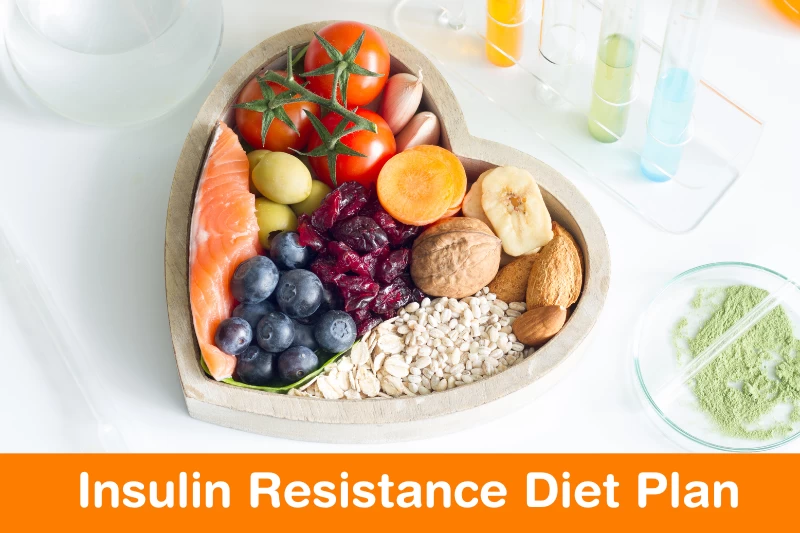
Subscription Plan
Table of Contents
- Insulin Resistance: What You Need to Know
- 1.1 What is Insulin Resistance?
- 1.2 Causes and Risk Factors
- 1.3 Signs and Symptoms
- 1.4 Diagnosis and Importance of Early Detection
- Consequences for Your Health from Insulin Resistance
- 2.1 Link to Type 2 Diabetes
- 2.2 Cardiovascular Health Implications
- 2.3 Weight Management Challenges
- 2.4 Hormonal Imbalances and PCOS
- 2.5 Role in Aging and Chronic Inflammation
- Get Healthy with the Help of Dr. Pankaj Kumar, Delhi's Top Nutritionist
- 3.1 Importance of Diet and Nutrition in Managing Insulin Resistance
- 3.2 Essential Nutrients and Foods for Insulin Sensitivity
- 3.4 The Role of Exercise and Physical Activity
- 3.5 Stress Management and Sleep Hygiene
- How to Treat Insulin Resistance with Diet
- 4.1 The Mediterranean Diet
- 4.2 The Low Glycemic Index (GI) Diet
- 4.3 The DASH Diet
- 4.4 The Ketogenic Diet
- Improved Insulin Sensitivity Through Lifestyle Modifications
- 5.1 Quality Sleep and Its Impact on Insulin Resistance
- 5.2 Effective Stress Management Techniques
- 5.3 Importance of Regular Exercise and Physical Activity
- 5.4 Smoking Cessation and Limiting Alcohol Consumption
- Visiting Dr. Pankaj Kumar for Expert Advice in Dwarka
We are pleased to welcome you to our extensive blog on insulin resistance, which features the expert commentary of Dr. Pankaj Kumar, a well-respected dietician based in Delhi. In this piece, we'll delve into what insulin resistance is, how it affects health, and the solutions that Dr. Pankaj Kumar suggests. You've found the right place if you're on the lookout for efficient methods to deal with insulin resistance, improve your diet, and increase your general health.
Insulin Resistance: What You Need to Know
1.1 What is Insulin Resistance?
Cells become insulin-resistant in insulin resistance. Thus, glucose uptake is impaired, raising blood sugar. Resistance causes the pancreas to produce more insulin, which can lead to high blood sugar and insulin levels. Insulin resistance can cause type 2 diabetes and other health issues.
1.2 Causes and Risk Factors
Lifestyle and genetics can cause insulin resistance. Diabetes or insulin resistance in the family increases risk. Insulin resistance is caused by sedentary lifestyle, obesity, especially abdominal fat, and poor diets high in refined carbohydrates and sugar. PCOS, hormonal imbalances, and chronic inflammation can also cause it. Avoiding insulin resistance requires managing these risk factors.
1.3 Signs and Symptoms
Some people have no insulin resistance symptoms. However, common symptoms include persistent fatigue, increased hunger and cravings, especially for sugary foods, frequent urination, especially at night, and difficulty losing weight despite a healthy diet and regular exercise. Acanthosis nigricans, or dark patches, may also be present. A doctor must diagnose and treat insulin resistance.
1.4 Diagnosis and Importance of Early Detection
Medical history, physical exam, and lab tests usually diagnose insulin resistance. Insulin resistance is measured by fasting blood glucose, insulin, and a glucose tolerance test. Early insulin resistance detection allows for lifestyle changes to prevent or manage related conditions like type 2 diabetes and cardiovascular disease. Early detection and management of insulin resistance require proactive screening and regular doctor visits.
Consequences for Your Health from Insulin Resistance
2.1 Link to Type 2 Diabetes
Type 2 diabetes is closely linked to insulin resistance. Insulin resistance impairs blood sugar regulation. This raises blood glucose, causing type 2 diabetes. Preventing or delaying type 2 diabetes requires lifestyle changes like eating a healthy diet and exercising regularly. Early intervention and management can greatly reduce the risk of this chronic condition.
2.2 Cardiovascular Health Implications
Diabetes affects cardiovascular health. Heart disease, including coronary artery disease, high blood pressure, and abnormal cholesterol, is linked to it. Insulin resistance causes inflammation, oxidative stress, and atherosclerosis by narrowing blood vessels. Lifestyle changes and medical care can reduce cardiovascular complications and improve heart health by managing insulin resistance.
2.3 Weight Management Challenges
??Insulin resistance hinders weight loss. Insulin resistance can cause fat storage and weight gain. Insulin resistance causes sugar and calorie cravings, making it harder to eat healthy. Insulin resistance slows fat burning and energy expenditure. Addressing insulin resistance through lifestyle changes like a balanced diet and regular exercise is essential for weight management.
2.4 Hormonal Imbalances and PCOS
In polycystic ovary syndrome (PCOS), insulin resistance causes hormonal imbalances. Insulin resistance raises insulin and androgen levels, disrupting the body's delicate hormonal balance. This can cause irregular menstrual cycles, acne, hair growth, and infertility. Lifestyle changes and targeted interventions can reduce PCOS symptoms and improve reproductive health by addressing insulin resistance. PCOS and insulin resistance must be managed by endocrinologists and gynaecologists.
2.5 Role in Aging and Chronic Inflammation
Inflammation and ageing are linked to insulin resistance. Insulin resistance increases with age because insulin sensitivity decreases. Systemic inflammation can cause age-related diseases like cardiovascular and neurodegenerative disorders. Lifestyle changes like a healthy diet and regular exercise may reduce chronic inflammation and ageing by managing insulin resistance.
Get Healthy with the Help of Dr. Pankaj Kumar, Delhi's Top Nutritionist
3.1 Importance of Diet and Nutrition in Managing Insulin Resistance
Insulin resistance management depends on diet and nutrition. Food choices can regulate blood sugar, improve insulin sensitivity, and reduce complications. A balanced diet with fibre, lean proteins, healthy fats, and low-glycemic index carbohydrates is advised. For stable blood sugar and metabolic health, limit refined sugars and processed foods and focus on whole, nutrient-dense foods. A registered dietician or nutritionist can help you create an insulin resistance-friendly diet.
3.2 Essential Nutrients and Foods for Insulin Sensitivity
Foods and nutrients can improve insulin sensitivity, helping manage insulin resistance. Fiber-rich whole grains, legumes, and vegetables regulate blood sugar and improve insulin sensitivity. Anti-inflammatory omega-3 fatty acids in fish, flaxseeds, and chia seeds can improve insulin sensitivity. Berry, leafy green, and nut consumption reduces oxidative stress and supports insulin sensitivity. Optimising insulin function requires a balanced diet with these essential nutrients.
3.3 Meal Planning and Portion Control
Insulin resistance management involves meal planning and portion control. Meal planning helps you control food choices and get a balanced diet. It prevents impulsive eating of high-carb foods. By preventing overeating and managing calories, portion control stabilizes blood sugar. Balanced macronutrients and proper serving sizes of carbohydrates, proteins, and fats improve insulin sensitivity and metabolic health.
3.4 The Role of Exercise and Physical Activity
Exercise reduces insulin resistance. Exercise improves insulin sensitivity and blood sugar regulation. Brisk walking, cycling, and strength training are beneficial. Exercise boosts insulin sensitivity by reducing inflammation, weight loss, and cardiovascular health. Weekly aerobic and strength training can help manage insulin resistance.
3.5 Stress Management and Sleep Hygiene
Managing insulin resistance requires stress management and sleep hygiene. Stress raises cortisol, which lowers insulin sensitivity. Meditation, yoga, and deep breathing reduce stress and improve insulin function. A regular sleep schedule and good sleep hygiene, such as a relaxing bedtime routine and enough sleep, support hormonal balance and insulin sensitivity. Stress management and quality sleep are essential to insulin resistance management.
How to Treat Insulin Resistance with Diet
4.1 The Mediterranean Diet
The Mediterranean Diet has many health benefits, including insulin sensitivity. It emphasizes minimally processed foods like fruits, vegetables, whole grains, legumes, nuts, and olive oil. The diet limits red meat and processed foods and encourages lean proteins like fish and poultry. Nutrient-dense, anti-inflammatory foods make the Mediterranean Diet a good choice for insulin resistance management and overall health.
4.2 The Low Glycemic Index (GI) Diet
The Low Glycemic Index (GI) Diet manages insulin resistance by emphasising low-GI foods. Whole grains, legumes, non-starchy vegetables, and certain fruits are low-glycemic carbs. Low-GI foods regulate blood sugar and improve insulin sensitivity. The Low GI Diet helps insulin-resistant people control their blood sugar and lose weight.
4.3 The DASH Diet
For insulin resistance and heart health, the DASH (Dietary Approaches to Stop Hypertension) Diet is popular. It emphasizes fruits, vegetables, whole grains, lean proteins, low-fat dairy, and limiting sodium, saturated fats, and added sugars. The DASH Diet improves insulin sensitivity and blood pressure by emphasising nutrient-rich foods and reducing sodium. Insulin-resistant people can improve their health and reduce cardiovascular risk by following the DASH Diet.
4.4 The Ketogenic Diet
The Ketogenic Diet is used to lose weight and treat insulin resistance. Ketosis occurs when carbohydrate intake is severely restricted. This diet may lower blood sugar and insulin. Discuss the Ketogenic Diet's long-term effects and suitability for insulin resistance with a doctor.
Improved Insulin Sensitivity Through Lifestyle Modifications
5.1 Quality Sleep and Its Impact on Insulin Resistance
Quality sleep reduces insulin resistance. Poor sleep can disrupt hormonal balance and cause insulin resistance. Sleep deprivation raises blood sugar and decreases insulin sensitivity. Good sleep hygiene, a consistent sleep schedule, and enough sleep can improve insulin function and metabolic health.
5.2 Effective Stress Management Techniques
Insulin resistance requires stress management. Mindfulness meditation, deep breathing, and yoga can reduce stress and relax. Regular exercise, hobbies, and family time are also stress-busters. In addition, a therapist or counsellor can help manage stress and improve overall well-being in insulin resistance.
5.3 Importance of Regular Exercise and Physical Activity
Exercise helps manage insulin resistance. Regular exercise improves insulin sensitivity and blood sugar regulation. Weight loss, inflammation reduction, and cardiovascular health improve insulin function. Regular exercise—aerobic, strength, or a mix of both—is essential for managing insulin resistance and metabolic health.
5.4 Smoking Cessation and Limiting Alcohol Consumption
Smoking cessation and alcohol restriction help manage insulin resistance and improve health. Smoking causes insulin resistance and type 2 diabetes. Quitting smoking improves insulin sensitivity and reduces complications. Alcohol can impair insulin function and cause insulin resistance. Limiting or avoiding alcohol improves metabolic control and reduces insulin-related conditions.
Visiting Dr. Pankaj Kumar for Expert Advice in Dwarka
6.1 Overview of Dr. Pankaj Kumar's Practice
Delhi-based dietician Dr. Pankaj Kumar specializes in insulin resistance management. Dr. Kumar, a nutrition and dietetics specialist, helps patients improve their health with personalized meal plans. Lifestyle changes, diet optimisation, and regular monitoring improve insulin sensitivity and metabolic health in his holistic practise. Insulin resistance patients trust Dr. Pankaj Kumar's patient care and evidence-based strategies.
6.2 Personalized Diet Plans and Consultation Services
Dr. Pankaj Kumar customizes diets and consultations. He creates insulin resistance-specific meal plans after assessing medical history and dietary preferences. Dr. Kumar advises on diet, portion control, and meal timing to improve insulin sensitivity and health. His consultations help patients manage insulin resistance with sustainable lifestyle changes.
6.3 Testimonials and Success Stories
Dr Pankaj Kumar's practise is full of patient success stories. Patients have praised his personalized approach, expert guidance, and positive health effects. Many report better blood sugar control, weight loss, energy, and quality of life. These testimonials and success stories demonstrate Dr. Kumar's dedication to helping people overcome insulin resistance.
In sum, millions of people around the world are affected by the serious health issue that is insulin resistance. However, this condition can be controlled and even reversed with the help of information and advice from experts like Dr. Pankaj Kumar. You can improve your insulin sensitivity and health by adopting a healthy lifestyle, picking nutritious foods, and consulting a medical expert. Keep in mind that even baby steps can lead to big changes, so get to work right away!
Fatty Liver Diet
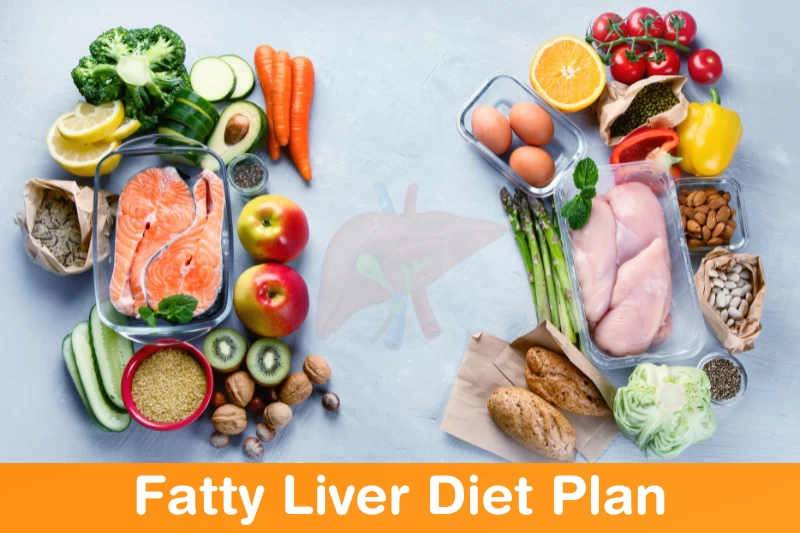
Subscription Plan
| Duration | Price | |
| 4 WEEKS DIAMOND PLANS | Rs 7000 | Express Checkout |
| 14 WEEKS DIAMOND PLANS | Rs 20000 | Express Checkout |
| Duration | Price | |
| 14 WEEKS DIAMOND PLANS | $ 289 | Express checkout |
Table of Contents
- Fatty Liver Diet
- What Is A Fatty Liver?
- What Causes Fatty Liver Disease?
- How to Get Rid of Fatty Liver Disease?
- FAQ Fatty Liver
- Commonly Asked Questions on Fatty Liver
- 1. How serious is the problem of fatty liver, and how can I cure it?
- 2. How can one cure a fatty liver?
- 3. Can fatty liver disease be reversed naturally?
- 4. How do I cure fatty liver naturally?
- 5. What is a fatty liver, and how can it be cured naturally?
- 6. What are the 3 signs of a fatty liver?
- 7. What is the fastest way to cure a non-alcoholic fatty liver?
- 8. What is a fatty liver, and how can we cure it?
- 9. Can fatty liver be reduced?
- 10. Is fatty liver grade 1 harmful? Can it be cured?
- 11. How do I get rid of a fatty liver?
- 12. Why do I have a fatty liver (16 years old) when I'm not an alcoholic, do a lot of exercise, and eat well?
- 13. When does the body give a sign of a fatty liver?
- 14. How much time does it take to reverse fatty liver grade 1?
- 15. What is the best home-based treatment for a fatty liver?
- 16. How can one cure a fatty liver?
- 17. What is fatty liver disease?
- 18. How dangerous is fatty liver disease?
- 19. Who is at greater risk of developing fatty liver disease?
- 20. What causes fatty liver disease?
- 21. How can fatty liver disease be prevented?
- 22. How is fatty liver disease treated?
- 23. Can fatty liver disease kill me?
- Read our blog on fatty liver - Fatty Liver: What It Is, and How to Get Rid of It
- Want to know more about fatty liver disease?
- No worries join our fatty liver forum and ask questions there. we will be happy to help you.
Fatty Liver Diet
Fatty liver is a very common disease and can be potentially lethal. Millions of people get affected by it each year. Although treatment can help, this disease can’t be cured with medications. Diet and exercise are the two best ways to get a fatty liver normal. Diet comes first. Therefore, this article will tell you what is a Fatty liver and how to cure it with a diet.
What Is A Fatty Liver?
Fatty liver disease is an increase in the build-up of fat in the liver. Simply put, having more fat in your liver than normal is referred to as fatty liver.
There are usually no apparent symptoms. But, sometimes symptoms like fatigue, weight loss, abdominal pain, etc. may occur. A normal and healthy liver helps in the removal of toxins from the body and also produces bile, which is very important for the digestion of fats. Fatty liver disease is a serious disease that prevents the liver from functioning normally by damaging it.
What Causes Fatty Liver Disease?
Fatty liver disease has two common types- alcoholic and non-alcoholic Fatty liver disease. Although there is no clarity about the exact causes, the former is usually caused by excess alcohol consumption and the common cause of the latter is obesity. It is also commonly diagnosed in people who eat too much processed food.
It is believed that genetics also plays a role and some specific genes can increase the chances of developing the disease by around 30%. Another known cause includes high levels of cholesterol in the blood. Some health problems can also lead a person to non-alcoholic Fatty liver disease. These include high blood pressure, type 2 diabetes, insulin resistance, hepatitis C, etc.
How to Get Rid of Fatty Liver Disease?
So, how do you cure, or avoid in the first place, Fatty liver disease? We at dietplusminus say that the best way to treat Fatty liver disease is through diet. You need to follow a diet that will help you to reach a healthy weight. Your diet should consist of fruits and vegetables, fish and seafood, whole grains, nuts, legumes, etc. As different people need different diets, dietplusminus recommends you should talk to a nutrition expert for a proper diet plan.
To fight insulin resistance, you should consume the right fats. Omega-3 fatty acids and monounsaturated fats are two types of good fats to avoid insulin resistance. These are present in fish, vegetable oils, walnuts, flaxseeds, olives, nuts, avocados, etc. You should also include antioxidants and supplements in your diet. Coffee, green tea, raw garlic, fruits, vegetables, vitamin E, vitamin D, etc. are some of the best antioxidants and supplements to consider.
FAQ Fatty Liver
You should also exercise daily for a healthy liver. Daily exercise can prevent you from developing Fatty liver disease in the first place. So, try to lose weight and avoid alcohol. You should also lower your cholesterol and if you are diabetic, then you must keep it in control. dietplusminus also recommends you avoid some foods. Most importantly you should completely avoid the consumption of saturated fats. So, you need to avoid poultry, full-fat cheese, yogurt, red meat, baked and fried foods, sugary candies, soda, etc.
Commonly Asked Questions on Fatty Liver
1. How serious is the problem of fatty liver, and how can I cure it?
High levels of fat in the liver is linked with increased risk of serious health problems, including diabetes, high blood pressure, and kidney disease. Fatty liver in its early stage usually does not cause any harm, but if left untreated, it may lead to serious liver damage, including liver cirrhosis.
The treatment of fatty liver primarily involves reducing the risk factors such as obesity, through lifestyle changes like diet and exercise.
2. How can one cure a fatty liver?
There is no medicine to cure fatty liver till now. Some lifestyle changes can help you manage your fatty liver, including:
- Weight management
- Eating a healthy diet, including vegetables, fruits, and whole grains
- Restricting sugar and unhealthy fats
- Avoiding alcohol intake
- Increasing physical activity
- Managing blood sugar levels
- Monitoring and managing cholesterol levels
3. Can fatty liver disease be reversed naturally?
Losing weight is the best natural way to manage or reverse fatty liver. Although losing 10% of your body weight is a good goal, a loss of just 3-5 % of your current body weight can improve your liver health. When it comes to weight loss, it is very important that you lose weight safely and effectively. Go for a weight loss in the guidance of a healthcare professional for healthy weight loss or to better say fat loss.
4. How do I cure fatty liver naturally?
First of all if you are overweight or obese, go for weight loss under the supervision of a healthcare professional. A healthy weight loss is very effective in improving liver health. Opt for a healthy lifestyle, including:
- Eat nutrient dense foods, like fruits, vegetables, and whole grains
- Replace unhealthy fats with healthy ones
- Restrict sugar, sugary food items, and sugary drinks
- Restrict alcohol intake
- Regular exercise
- The best part of this healthy lifestyle is that it also helps manage other health issues, like high cholesterol, metabolic syndrome, and type 2 diabetes.
5. What is a fatty liver, and how can it be cured naturally?
Liver is the largest organ present inside the body and performs several vital functions in the body. When there is fat build-up in your liver, the condition is called fatty liver disease. It decreases the working efficiency of the liver, depending upon the level of fat storage in it.
There is no medication to treat fatty liver disease till now. Losing weight is the best natural way to manage or reverse fatty liver. Although losing 10% of your body weight is a good goal, a loss of just 3-5 % of your current body weight can improve your liver health.
6. What are the 3 signs of a fatty liver?
Although, fatty liver disease is usually asymptomatic, some symptoms associated with it includes:
- Loss of appetite, nausea, and weight loss
- Swollen abdomen and legs
- Abdominal pain or feeling of fullness in the upper right side of the abdomen
- Weakness, tiredness, and mental confusion
7. What is the fastest way to cure a non-alcoholic fatty liver?
The fat deposited in your liver is not an overnight process. So, don’t expect that it will be cured in just a few days. There is no medication to treat fatty liver. Undergiven are some steps to be followed to cure a non-alcoholic fatty liver:
- Stop the intake of alcohol, sugar, sugary foods and drinks, unhealthy fats, fast foods, packaged foods, and excess salt.
- Include green vegetables, low carb fruits, healthy fat, nuts, seeds, and whole grains to your diet.
- Include lean protein in your diet.
- Regular exercise.
- Healthy weight loss
8. What is a fatty liver, and how can we cure it?
Liver is the largest organ inside the body. It performs several vital functions, including food digestion, energy storage, and removal of toxins. When there is fat build up in the liver, the condition is called fatty liver. It reduces the working efficiency of the liver. There is no medication for the treatment of fatty liver disease till now.
Losing weight is the best natural way to manage or reverse fatty liver. Although losing 10% of your body weight is a good goal, a loss of just 3-5 % of your current body weight can improve your liver health. If you are diagnosed with fatty liver and you are overweight or obese, consult your doctor. He/she will advise you on the best way to manage your weight.
9. Can fatty liver be reduced?
Liver has an amazing ability to repair and detox itself. Avoiding alcohol or losing weight may help reduce liver fat and inflammation. If you are in an early stage of fatty liver disease, these steps may also reverse the disease condition.
10. Is fatty liver grade 1 harmful? Can it be cured?
Normally fatty liver grade 1 is asymptomatic and benign, but if left untreated it can lead to serious health conditions, like cirrhosis.
Yes, fatty liver grade 1 can be reversed with proper weight management and diet management.
11. How do I get rid of a fatty liver?
There is no specific medicine for fatty liver. The only way to get rid of it is lifestyle modification as follows:
- Stop the intake of alcohol, sugar, sugary foods and drinks, unhealthy fats, fast foods, packaged foods, and excess salt.
- Include green vegetables, low carb fruits, healthy fat, nuts, seeds, and whole grains to your diet.
- Include lean protein in your diet.
- Regular exercise.
- Healthy weight loss.
12. Why do I have a fatty liver (16 years old) when I'm not an alcoholic, do a lot of exercise, and eat well?
Fatty liver can develop to anyone whose carbohydrate intake especially fructose intake is high. When fatty liver occur in a alcoholic person, it is called alcoholic fatty liver disease and when it occur in a person with no alcohol consumption, it is called non-alcoholic fatty liver disease. Another term, MAFLD, metabolic disease associated fatty liver disease, is also given which is used inplace of non-alcoholic fatty liver disease Metabolic associated fatty liver disease (MAFLD) is diagnosed in patients with hepatic steatosis when they have the following three metabolic conditions, either alone or in combination:
- obesity/overweight
- diabetes and
- metabolic dysregulation
13. When does the body give a sign of a fatty liver?
Fatty liver is usually symptomless until the disease progresses to cirrhosis of the liver, if someone has symptoms it includes:
- Loss of appetite, nausea, and weight loss
- Swollen abdomen and legs
- Abdominal pain or feeling of fullness in the upper right side of the abdomen
- Weakness, tiredness, and mental confusion
- Yellowish skin and whites of the eyes (jaundice).
14. How much time does it take to reverse fatty liver grade 1?
The first and foremost thing to be done in case of fatty liver disease is to fix the diet. It can take anything from 2 months to 1 year, depending upon the condition of your liver, the lifestyle modification, including diet adopted by you, and how your liver responds to the modifications adopted by you.
Losing weight is the best natural way to manage or reverse fatty liver. Although losing 10% of your body weight is a good goal, a loss of just 3-5 % of your current body weight can improve your liver health.
15. What is the best home-based treatment for a fatty liver?
Home remedies for the treatment of fatty liver disease:
- Reduce excess weight, in case you are overweight or obese
- Opt for Mediterranean diet
- Do regular exercise
- Include black coffee
- Avoid sugar and sugary foods and drinks
- Manage your cholesterol levels
- Avoid consumption of substances which can irritate your liver, like alcohol. Must consult your doctor before taking any OTC medication, vitamins, or supplements if you are living with NAFLD.
- Ask your doctor for omega-3 and vitamin E supplements. Both can reduce liver fat and reduce cholesterol levels.
- Some substances have a positive effect on liver health, including turmeric, milk thistle, green tea, and resveratrol.
16. How can one cure a fatty liver?
One can cure a fatty liver by adopting a healthy lifestyle, including dietary modifications, regular exercise, and healthy weight loss.
17. What is fatty liver disease?
Fatty liver disease is a condition caused due to too much fat build up in your liver. A healthy liver contains a small amount of fat. When this fat reaches 5-10% of the actual weight of the liver, the problem starts.
18. How dangerous is fatty liver disease?
In the majority of cases, fatty liver disease doesn’t cause any serious problems. But in the case of 7-30% of people fatty liver gets worse over time. It progresses through 3 stages:
-
The first stage is called steatohepatitis in which the liver becomes inflamed, which damages its tissues.
-
The second stage is fibrosis, in which scar tissue forms where your liver is damaged.
-
The third and last stage is cirrhosis of the liver in which scar tissue replaces the healthy tissue.
19. Who is at greater risk of developing fatty liver disease?
The chances of getting fatty liver disease increases in case if you are
- an Asian
- obese or increased belly fat
- an woman whose period has stopped
- a diabetic
- suffering from high blood pressure and high cholesterol
- Suffering from obstructive sleep apnea
20. What causes fatty liver disease?
The increased risk factors for fatty liver disease include:
- Being obese or overweight
- Insulin resistance or fatty liver disease
- Metabolic syndrome
- Certain medications
21. How can fatty liver disease be prevented?
An overall healthy lifestyle can prevent you from fatty liver disease:
- Weight management is the most important factor in prevention of fatty liver disease. If you are obese or overweight, go for healthy weight loss.
- Half-an hour exercise per day, atleast 5 days a week is recommended for all healthy adults.
- If you are alcoholic, limit your alcohol intake.
- Take only prescribed medicines.
22. How is fatty liver disease treated?
There is no medication for fatty liver disease till now. The main focus of treatment is on controlling the factors that contribute to the condition. Treatment includes:
- Weight management
- Cholesterol and triglyceride management with the help of medications
- Avoiding alcohol
- Taking vitamin E supplements
23. Can fatty liver disease kill me?
Fatty liver disease usually does not cause any issues, but in some individuals it progresses to an advanced stage, known as cirrhosis of liver. Untreated liver cirrhosis leads to liver cancer or liver failure. Liver is a vital organ and you can't survive without it.
Read our blog on fatty liver - Fatty Liver: What It Is, and How to Get Rid of It
Want to know more about fatty liver disease?
No worries join our fatty liver forum and ask questions there. we will be happy to help you.
Know more about Dr. Pankaj Kumar
Why Dr. Pankaj Kumar's Lifestyle Modification Program
How To Get Enrolled?
Other useful Links:
Register/Login I Blog I Subscription Plans I Calculator I Exercises I All Testimonials I Before and After I Recipe I Amazon Pantry 
Pregnancy Diet Plan

Subscription Plan
| Duration | Price | |
| 4 WEEKS DIAMOND PLANS | Rs 7000 | Express Checkout |
| 14 WEEKS DIAMOND PLANS | Rs 20000 | Express Checkout |
| Duration | Price | |
| Express checkout |
Table of Contents
- Nutritional Requirements during Pregnancy
- General guidelines for a few important nutrients that should be increased during pregnancy
- Nutritional Requirements During Pregnancy
- What & how much to eat during pregnancy
- Some important points to be kept in mind during pregnancy
- Cravings & Aversions during Pregnancy
- Pregnancy & Weight gain
- Exercise during pregnancy
- Foods to eat and avoid during pregnancy
- Preparing food safely
Nutritional Requirements during Pregnancy
In countries like ours, pregnancy is considered “Good news”. There are several taboos regarding what to eat and what not to eat…….. What to do and what not to do. People usually say…...hey, don’t eat papaya… you are pregnant. Don’t lift heavy objects; it may harm you and your baby. Some of them are nonsense but others have a scientific reason behind them.
We all know “Swasth Sharir Me Swasth Man Ka Niwas Hota Hai” When you talk about a healthy body or healthy mind then one thing which will come first is a healthy diet especially when we think about pregnancy.
A healthy diet and healthy lifestyle are important for any human being at any time, but they become vital if you're pregnant or planning a pregnancy. Healthy eating keeps your baby good and makes you feel rich from the inside. Healthy eating gives your baby the essential nutrients in the womb.

Overall, the target for a balanced diet, with an appropriate balance of all the 5 food groups:
-
Vegetables and legumes
-
Whole cereals
-
Milk, yogurt, and cheese
-
Meat, poultry, fish, and other protein sources
-
Fruits
It’s time to take care of yourself as the body goes through several physical and hormonal changes. You have to fulfill the demands of your body in addition to the growing one in your womb. Mothers and elderly in the house normally recommend….eat double…...you have to eat for two. It doesn’t mean that if you eat 2 chapattis at lunch then you have to eat 4 chapattis at lunch. It’s almost impossible to follow the recommendations of the elderly. Eating a healthy, balanced diet will help you feel good and will fulfill the requirements of both you and your baby.

The food you eat is the main source of nourishment for your baby. So, it’s critical to get all the nutrients you need. Let’s discuss the food which can fulfill your and your baby’s nutritional requirements and also satisfy your cravings.
Increased nutritional requirements during pregnancy
There is no doubt that there is increased nutritional stress on your body, as you are feeding a whole new person. But, still, you don’t need to double your intake. From the day you know that you are pregnant, your micronutrients and macronutrients intake should ideally increase to support yourself and your baby.
Micronutrients are the dietary components needed by the body in relatively smaller amounts, such as vitamins and minerals. Macronutrients on the other hand are needed by the body in larger amounts to provide calories, i.e., energy to do work. Carbohydrates, proteins, and fats are considered macronutrients. Each of these is needed in more quantities during pregnancy.
General guidelines for a few important nutrients that should be increased during pregnancy
|
Nutrient |
Daily requirements for pregnant women |
|
Protein |
70-100 grams, increase per trimester |
|
Calcium |
1200 milligrams (mg) |
|
Iron |
27 milligrams (mg) |
|
Folate |
600-800 micrograms (mcg) |
Including a variety of healthy foods in the diet may fulfill your increased nutritional needs, such as foods rich in:
-
Protein
-
Complex carbohydrates
-
Healthy fat
-
Vitamins & minerals
Water requirements
Drink plenty of water every day — make sure water should not be contaminated.
Criteria for safe and wholesome water are
-
It should be both
-
Free from pathogenic agents like viruses, bacteria, or any micro-organism
-
Free from harmful chemical substances
-
It should be pleasant to the taste, i.e. free from color and odor and it should be used for domestic purposes.
Most potable water in India contains fluoride, which helps your growing baby's teeth develop strong enamel. Now the question arises, what to eat and how much to eat. Given below is a brief discussion about this.

What & how much to eat during pregnancy
Believe me, to feed yourself properly is not rocket science. It’s just a modification of a regular healthy eating plan. Continue your calorie intake normal in your first trimester, but mindful eating is important here. In the second trimester, increase 350 calories daily and in the third trimester, an increment of 450 calories per day is recommended.
Avoid foods with zero nutritional value i.e., junk foods, chips, and soda. Replace these items with fresh fruits, vegetables, and lean proteins like chicken, fish, beans, and lentils. It doesn’t mean that you have to avoid all of your favorite food items during pregnancy. You just have to make a proper balance between your favorite food items and nutritious foods, so that you don’t miss any important vitamins or minerals.
Simple and complex carbohydrates
Simple carbohydrates peak insulin whenever you eat and it may develop insulin resistance so, the basic concept of healthy carbohydrates is to choose complex carbohydrates and avoid simple sugar as much as you can. Eat wholemeal instead of processed food when you can. Mindful eating will make your baby more strong and free from any metabolic errors.
Protein
We all know protein is the building block of our body. Protein foods help the baby to grow. Sources of protein include meat, fish, poultry, eggs, legumes/beans, paneer, and nuts. Eat an adequate amount of protein every day. Proper growth of the baby's tissues and organs, including the brain, needs protein. So, protein intake is very critical during pregnancy. It is also needed for breast and uterine tissue growth during pregnancy. Protein also plays a role in increasing blood supply, allowing more blood to be sent to your baby.
Protein intake should be increased every trimester. 70-100 gms of protein is needed per day.

Protein sources to be included during pregnancy:
-
Chicken
-
Salmon
-
Lean beef and pork
-
Nuts
-
Peanut butter
-
Cottage cheese
-
Beans
Fruit and vegetables
Your plate should include plenty of fruit and vegetables because these provide vitamins and minerals, as well as fiber, which helps digestion and prevents constipation. Always wash them carefully under running tap water. If possible peel off the skin. Deep fry is not good to preserve nutrients. Cook vegetables lightly in a little water, or eat them well washed raw or you can shallow fry them to get the benefit of the nutrients they contain.
Dairy
Dairy foods such as milk, cheese, and yogurt, paneer are important as they contain several nutrients like calcium, iron, magnesium, and others that your baby needs. Choose reduced-fat varieties wherever possible. Some cheeses should be avoided — see Foods to avoid.
Healthy snacks
Snacking is not good at all for most of the persons especially when we are talking about healthy eating. In pregnancy snacking is also bad but grandparents feel bad if you are not eating the food in between as they think the baby requires more and more nutrition. So, don’t eat snacks that are high in fat or sugar, such as sweets, biscuits, junk food, outside food, or chocolate.
Instead, choose from the following nutritious snacks:
-
Grilled chicken, mashed tuna, salmon or sardines, and salad
-
Salad vegetables, such as carrot, celery, or cucumber
-
Low-fat yogurt
-
Vegetable sticks
-
Fruits like apricots, figs or prunes
-
Vegetable and bean soups
-
Unsweetened breakfast cereals, or porridge, with toned milk
-
Fresh fruit
Calcium
Calcium is needed to regulate your body’s fluids and to build a baby’s bones. The daily requirement of a pregnant woman is 1,000 mg of calcium. Additional supplementation of calcium is needed to fulfill the requirement, ideally 500mg 2 times a day.
Calcium sources to be included during pregnancy:
- Milk
- Yogurt
- Cheese
- Seafood like salmon, shrimp, catfish, and canned light tuna
- Calcium-set tofu
- Leafy vegetables, dark green

Folate
This is commonly known as folic acid. It plays an important role in reducing the risk of neural tube defects. These include major birth defects such as spina bifida and anencephaly. According to the American College of Obstetrics and Gynecology, 600-800 mcg of folate is required per day for pregnant women.
Folate sources to be included during pregnancy:
-
Leafy vegetables, dark green
-
Dried beans and lentils
-
Liver
-
Eggs
-
Nuts
-
Peanut butter
Iron
Iron, in addition to sodium, potassium, and water is needed to increase blood flow. Proper blood flow is crucial for the supply of oxygen in enough quantity for both you and your baby. 27-35 mg of iron is needed per day by a pregnant woman. In addition to this vitamin C is also needed to increase the absorption of iron.
Iron sources to be included during pregnancy:
-
Eggs
-
Lean beef and poultry
-
Enriched bread or cereals
-
Citrus fruits
-
Dark green, leafy vegetables.
Some important points to be kept in mind during pregnancy
It is more important to concentrate on the quality of the food you eat rather than the quantity. Eating too much sugar can develop insulin resistance and obesity. If you are hungry all the time even after having a meal then it is not good for you and your baby. If you have a healthy meal every day, it is easier to avoid snacking on foods that are high in sugar. If required you can add some healthy fats. These are some food you must avoid during pregnancy (avoid certain foods) because they are not healthy for both of you or they can be dangerous for the baby. You will need to be careful with your diet if you develop gestational diabetes. Nutrients like choline, salt, and B-complex vitamins are also necessary during pregnancy to keep you thriving.
In addition to eating a well-balanced diet, intake of at least 8-10 glasses of water per day is also very important. To fulfill the demand for certain nutrients like folate, iron, and choline, from food alone, is difficult. Talk to your doctor. He/ she will recommend prenatal vitamins best suitable for you. Don’t take any medication or supplementation without the recommendation of a medical practitioner.
Cravings & Aversions during Pregnancy
During pregnancy, you start to love some food…..feel cravings for that and opposite to that, start hating some food items because you don’t like its smell and taste, called aversion.
Pregnancy cravings
During pregnancy, a lot of changes are noticed. You might start loving certain foods like a donut, Chinese food, or some unusual combinations like dessert with pickles. However, the actual reason behind these cravings or aversions during pregnancy is unclear; some researchers believe that it’s because of changes in hormones.
You can go with these cravings sometimes, but try to find healthy options for these cravings like oven-roasted sweet potato wedges in place of French fries. Limit the intake of junk food and processed foods.
Pregnancy aversions
If you feel aversions to foods necessary for the growth and development of a baby, it’s problematic. If you feel so, talk to your doctor. He/ she will suggest other foods or supplements that compensate for the lack of those nutrients in your diet.
Pica
Some pregnant women have cravings for items that have no nutritional value, like clay, ashes, starch, or other strange things. Pica during pregnancy indicates the deficiency of certain vitamins or minerals. It’s important to notify your doctor if you feel cravings for non-food items. Consumption of such products can be dangerous for both you and your baby.
Pregnancy & Weight gain
If you are conscious of weight gain during pregnancy, don’t stress too much. Weight gain is normal during pregnancy. This extra weight is needed for the nourishment of the baby. Some of it is stored for breastfeeding after the birth of your child. Normally, a healthy woman gains 11-15 kg (25-35 pounds) of weight during pregnancy. You can gain weight more or less than this, it’s quite normal.
Although everyone is different, the chart given below indicates some values of weight gain during pregnancy. Recommended weight gain during pregnancy with one baby:
|
Starting weight |
BMI |
Expected weight gain during pregnancy |
|
Underweight |
<18.5 |
28-40 lbs |
|
Average weight |
18.5-24.9 |
25-35 lbs |
|
Overweight |
25-29.9 |
15-25 lbs |
|
Obese |
>30 |
11-20 lbs |
Don’t worry, if your weight gain is different from this because everyone is different and every pregnancy is also different. Just focus on nutritious foods instead of weight gain. Dieting to lose weight or prevent gain during pregnancy can be harmful to both you and your baby.
Exercise during pregnancy
In addition to a healthy diet and supplements, exercise during pregnancy is also very important. It helps to manage your health and removes stress. Swimming and walking are good options. Avoid extra strenuous exercises like rock climbing or playing basketball. If you don’t exercise regularly, then start slowly during pregnancy and don’t overdo it. Join a yoga class or other exercise class that focuses specifically on pregnant women for extra support.

Foods to eat and avoid during pregnancy
Pregnancy is a very crucial time for every woman….either rich or poor...working or housewife. Certain food items should be included during pregnancy and some food items should be avoided during this period. When you are trying to conceive or already conceived, supplement folic acid in your food or consult your gynecologist for early initiation of folic acid. It is essential for a baby’s brain growth.
|
Foods to be included |
Foods to be avoided |
|
Protein in every meal |
Uncooked processed meat |
|
Prenatal vitamins |
Raw meats and seafood |
|
Essential fats |
High mercury fish |
|
Dairy products high in calcium |
Unpasteurized dairy |
|
Whole grains |
Excessive caffeine |
|
Fruits and vegetables (4-5 servings) |
Alcohol |
Preparing food safely
1. Wash fruit, vegetables, and salads. In India, we usually do not find ready-to-eat salads very easily but these are very common in other countries. Washing removes all traces of soil, which may contain micro-organism toxoplasma, a parasite that can cause toxoplasmosis, which can harm your unborn baby.
2. Careful washing of all the surfaces, utensils, and hands, after preparing raw meat to avoid toxoplasmosis and other common infections such as salmonella, listeria, and campylobacter.
3. Storage also plays a very important role in preventing diseases. Always store raw foods separately from readymade or ready-to-eat foods to prevent contamination that leads to food poisoning.
4. Use a separate chopping board for chopping raw meats.
Know more about Dr. Pankaj Kumar
Why Dr. Pankaj Kumar's Lifestyle Modification Program
How To Get Enrolled?
Other useful Links:
Register/Login I Blog I Subscription Plans I Calculator I Exercises I All Testimonials I Before and After I Recipe I Amazon Pantry 
Immunity Boosting Diet Plan
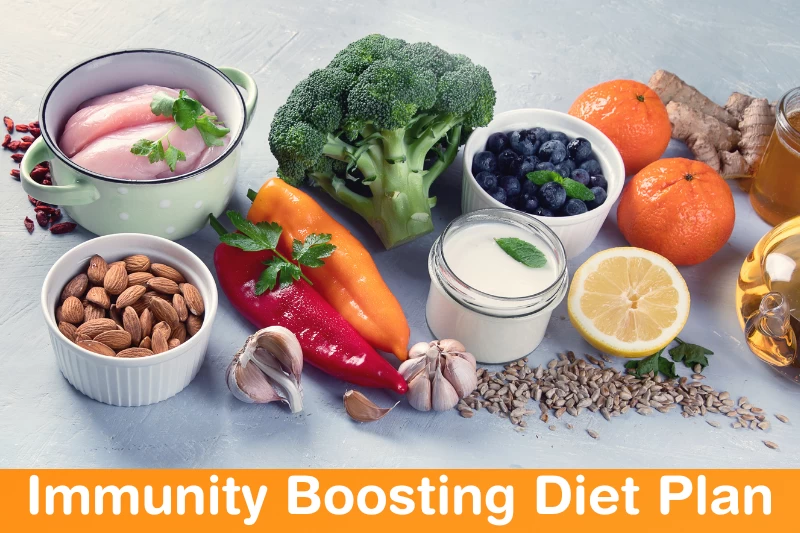
Subscription Plan
| Duration | Price | |
| 4 WEEKS DIAMOND PLANS | Rs 7000 | Express Checkout |
| Duration | Price | |
| Express checkout |
Table of Contents
- Boost your immunity with the right diet and exercise
- 1. Eat whole foods
- 2. Include healthy fats
- 3. Eat fermented foods or take a probiotic supplement
- 4. Stay hydrated
- 5. Limit sugar intake
- 6. Reduce your stress levels
- 7. Get enough sleep
- 8. Regular exercise
- 9. Include some supplements, whenever required
- Immunity boosting supplements and their effects
- Immunity boosting food items
- Other useful Links:
Boost your immunity with the right diet and exercise
Several dietary and lifestyle changes may strengthen your immune system. They help fight harmful pathogens and disease-causing organisms. Let’s discuss some tips which may help boost your immune system.
1. Eat whole foods
Whole foods including fruits, nuts, seeds, and vegetables are rich in antioxidants and certain nutrients which protect you against harmful pathogens.
The fiber present in these whole plant foods is healthy for the beneficial gut bacteria or gut microbiome. A healthy gut microbiome can help boost your immune system and prevent you from being attacked by harmful pathogens through the digestive tract. Fruits and vegetables are high in vitamin C. This can reduce the duration of the common cold. The antioxidants present in whole food prevent the oxidation of harmful free radicals, hence reducing inflammation. Chronic inflammation leads to several harmful diseases, like diabetes, heart disease, Alzheimer’s disease, and certain cancers.
2. Include healthy fats
Acute inflammation is a normal immune response\ to stress or injury, but chronic inflammation can hurt your immune system. Inclusion of healthy fats in your diet, including olive oil and salmon, may boost the immune system against pathogens by decreasing inflammation. Omega 3 fatty acids fight inflammation.
Olive oil is highly anti-inflammatory and may help fight off harmful bacteria and viruses. It also reduces the risk of chronic inflammation, linked with diseases diabetes, heart disease, and certain types of cancer.
3. Eat fermented foods or take a probiotic supplement
Fermented foods are high in beneficial bacteria. Intake of fermented foods increases the population of these bacteria in your gut. Fermented foods include yogurt, natto, tempeh, sauerkraut, kimchi, and kefir. According to some research, a well flourished gut microbiome helps your immune cells to differentiate between healthy cells and harmful pathogens. If regular intake of fermented foods is not possible for you, switch to probiotic supplements. Supplementation of probiotics strengthens the immune system and lowers the levels of virus in the nasal mucus when compared with a control group.

4. Stay hydrated
Although there is no relation between hydration and the attack of harmful bacteria and viruses, staying hydrated is important for overall health.
Dehydration may cause indigestion, mood swings, reduced focus, physical performance, and heart and kidney function. These health issues increase the risk of illness. Although tea and juice also hydrate you, water is the best option, because it is free of calories, additives, and sugar. Fruit juice and sweetened tea have high sugar contents. For young adults, it is recommended to drink water when you are thirsty and stop when you are no longer thirsty, but for older adults, it is recommended to drink water regularly, even if they do not feel thirsty. The reason behind this is older adults begin to lose the urge to drink, as their bodies do not signal thirst adequately.
5. Limit sugar intake
According to the reports of some studies, added sugar and refined carbs may contribute to increased weight and obesity. Obesity is linked with an increased risk of getting sick. According to a study, obese people administered with flu vaccine have twice the risk of getting the flu, when compared with normal-weight people who received the vaccine. Cutting sugar intake may aid in weight loss and reduce the risk of getting type 2 diabetes, obesity, and heart disease. All of these weaken the immune system. Limiting and cutting sugar is an important part of an immune-boosting diet. It is recommended to limit your sugar intake, to less than 5% of your daily calories.
6. Reduce your stress levels
To boost your immune system, it is very important to relieve your stress and anxiety. Long-term stress may lead to inflammation and compromised immune cell functions. Psychological stress can suppress the immune response in children. Meditation, exercise, yoga, and some other mindfulness practices may help you manage your stress and anxiety.

7. Get enough sleep
Inadequate or poor sleep can make you sick. According to a study, individuals taking less than 6 hours of sleep per night are at a higher risk of getting a common cold when compared with those taking a sleep of 6 hours or more per night. Proper rest strengthens the immune system, and also sleeping more when you are sick, allows your immune system to better fight the illness.
A sound sleep of 7 hours per night is good for adults, teenagers should sleep 8-10 hours, and younger children and infants should sleep up to 14 hours. Exercising regularly, leaving the screen an hour before sleep, sleeping in a completely dark room, and going to bed at the same time every night enhance the quality of your sleep.
8. Regular exercise
Prolonged and intense exercise can suppress the immune system, but moderate exercise can boost your immune system. People with compromised immune systems must do at least a single session of moderate exercise to boost the effectiveness of their vaccines. Also, regular and moderate exercise may reduce inflammation, leading to regular regeneration of your immune cells. Exercises like brisk walking, swimming, light hiking, jogging, and steady bicycling should be done at least 150 minutes per week.
9. Include some supplements, whenever required
Despite several claims supplements about their ability to prevent and cure COVID-19, the National Institutes of Health (NIH) says that there's no evidence to support the use of any supplement to prevent or treat COVID-19.
Some studies suggest that supplements may strengthen your body’s general immune system. Let’s discuss such supplements:
|
Supplement |
|
|
|
|
|
|
|
|
|
|
|
|
|
|
|
|
|
|
|
You must purchase any supplement that has been independently tested by a third-party organization, as the labeling present on your supplement may be misleading.
However, no food is going to prevent or cure COVID-19 infections, a strong immune system will help you prevent common colds, flu, and other infections.
Let’s discuss some food items which may boost your immunity:
|
Food items |
|
|
|
|
|
|
|
|
|
|
|
|
|
|
|
|
|
|
|
|
|
|
|
|
|
|
|
|
|
|
|
|
|
|
|
|
|
|
|
|
|
|
|
|
|
|
Balance is the key to proper nutrition. Eating just one of these foods won’t 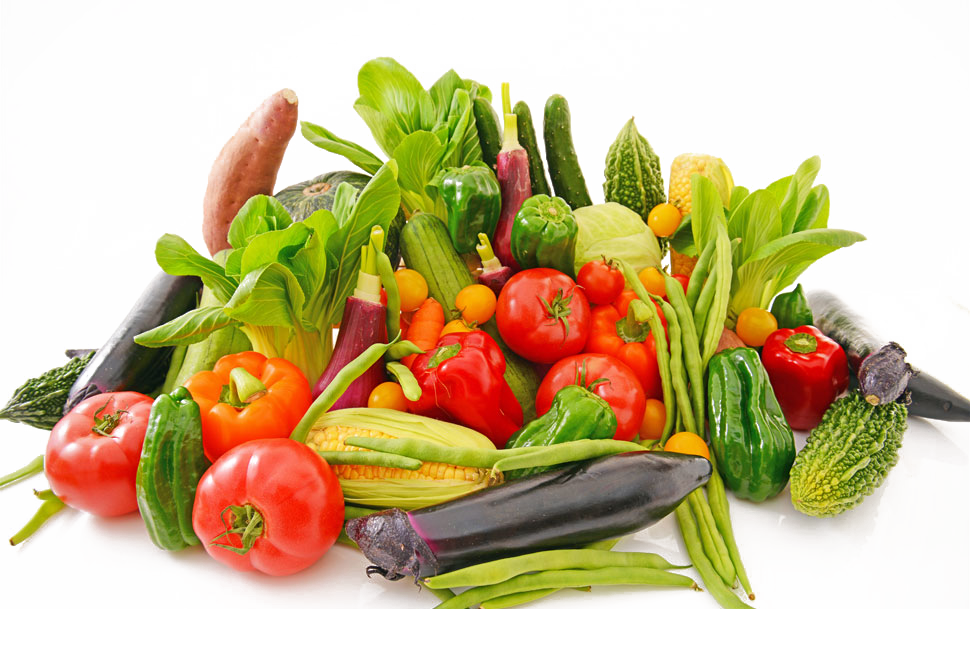 be enough to help fight against flu and infections, even if you eat it regularly.
be enough to help fight against flu and infections, even if you eat it regularly.
Serving size and recommended dietary intake should always be kept in mind. Too little or too much of any nutrient can harm you.
Eating right is a great start, and there are other things you can do to protect yourself and your family from the flu, cold, and other illnesses.
Other useful Links:
Register/Login ♦ Blog ♦ Subscription Plans ♦ Calculator ♦ Exercises ♦ All Testimonials ♦ Before and After ♦
Hypertension Diet
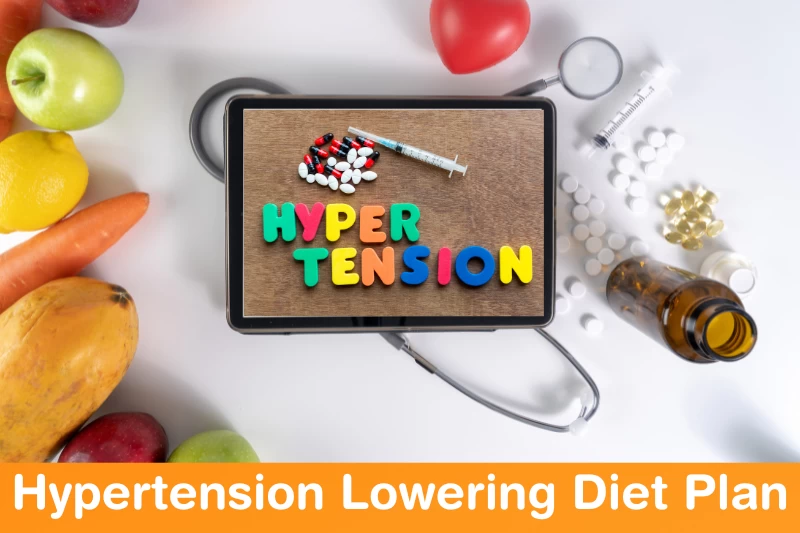
Subscription Plan
| Duration | Price | |
| 4 WEEKS DIAMOND PLANS | Rs 7000 | Express Checkout |
| 14 WEEKS DIAMOND PLANS | Rs 20000 | Express Checkout |
| Duration | Price | |
| Express checkout |
High Blood Pressure Lowering Diet Plan
High blood pressure is a seriously common medical condition. It has already been estimated that more than 1.20 billion people have this disease. It accounts for about 13% of the total deaths worldwide. In this article, you will learn how to control your blood pressure with a diet.
What Is High Blood Pressure?
High blood pressure is also known as hypertension. It is basically of two types- primary and secondary hypertension. It occurs when your blood pressure increases to abnormal levels. In this, your blood forces itself against your blood vessels too much more forcibly than normal. Usually, blood pressure above 140/90 is considered High blood pressure. Primary hypertension develops takes time to develop and is not too lethal. On the other hand, secondary hypertension occurs quickly and is more serious. But, dietplusminus urges us to take both of them seriously. Though slight changes in the blood pressure do not matter, if the pressure is around or above 180/120 then it is a serious problem.
Hypertension is a chronic condition and can last up to several years and even lifelong. It does not have any typical symptoms, but if left unattended it can lead to health conditions such as stroke and heart disease. It can also damage your blood vessels and vital organs like the heart, brain, kidneys, etc. It is treatable by medication, and diet changes, and does not require any lab tests or imaging.
What Causes High Blood Pressure?
The exact causes of hypertension are not known yet. But, some researchers have clarified that primary hypertension or essential hypertension can be caused due to physical or environmental changes, and genes can also play a role. Secondary hypertension, real high blood pressure, can be caused by smoking, obesity, excess salt consumption, stress, sleep apnea, chronic kidney disease, etc.
Food, medicine (some birth control medicine), age, genetics, etc. can also cause High blood pressure. A diet that is high in cholesterol can also lead to this condition. Other causes include hormonal imbalance, diabetes, lack of physical activity, drinking too much alcohol, etc.
Older people are at higher risk of developing high blood pressure. Further, people who have a family history of High blood pressure are also at a greater risk.
How To Cure High Blood Pressure?
High blood pressure can be controlled by both medication and dietary changes. But, we at dietplusminus prefer dietary changes. Anyway, early detection is extremely important if you want to get rid of it completely. Therefore, dietplusminus recommends you regularly take your blood pressure readings. Your diet should consist of garlic, fruits especially berries, bananas, watermelon, oats, leafy vegetables, avocados, mushrooms, tomatoes, etc.
Dark chocolate, pistachios, olive oil, and pomegranates are also known to lower blood pressure. Plus, making necessary lifestyle changes is also recommended. Exercising daily and losing some pounds are very important factors that will determine if your blood pressure problem will go. You also need to avoid consuming too much salt, caffeine, and alcohol. These can significantly raise your blood pressure and therefore highly increase the risk of developing cardiovascular diseases in the long term. So, you should be able to track what you and how much you eat.
How To Get Enrolled?
Other useful Links:
Register/Login ♦ Blog ♦ Subscription Plans ♦ Calculator ♦ Exercises ♦ All Testimonials ♦ Before and After ♦ Recipe ♦ Amazon Pantry 
Post Bariatric Surgery Diet Plan

Subscription Plan
I. Introduction
A. Explanation of post-bariatric surgery and its impact on weight loss
Obese people can lose weight after bariatric surgery. Gastric bypass and gastric sleeve surgery restrict food intake and nutrient absorption. The surgery reduces stomach capacity and alters hunger and satiety hormones to help lose weight. Weight loss and obesity-related health improvements result.
B. Introduction of Dr. Pankaj Kumar as a leading dietician in Delhi and Dwarka, specializing in post-bariatric surgery diet plans
Introducing Delhi and Dwarka dietician Dr. Pankaj Kumar specialises in post-bariatric surgery diets. Dr. Kumar understands post-bariatric surgery nutritional needs and challenges. His personalised diet plans support optimal recovery, weight loss, and nutrient intake for overall health. Dr. Kumar's advice helps patients recover after surgery.
II. Importance of Post-Bariatric Surgery Diet
A. Overview of the role of diet in achieving successful outcomes after bariatric surgery
Diet is crucial to long-term weight loss after bariatric surgery. It aids digestion, portion control, and nutrient intake. A healthy diet helps heal, lose weight, and avoid complications. Dr. Pankaj Kumar's post-bariatric surgery diet management expertise helps patients reach their health goals.
B. Discussion on the importance of following a structured diet plan for long-term weight maintenance
Post-bariatric surgery weight maintenance requires a structured diet. It promotes healthy eating, portion control, and nutrient balance. A structured diet plan prevents weight regain and manages dietary issues. Dr. Pankaj Kumar's personalised diet plans for post-bariatric surgery patients help patients maintain their weight loss and achieve optimal health.
III. Phases of Post-Bariatric Surgery Diet
A. Explanation of the different phases, including liquid, pureed, soft, and solid food stages
As they recover and adjust to their new stomach size, bariatric surgery patients typically go through different diet phases. After a liquid phase, soft, blended foods are introduced. Next, a soft food phase gradually adds texture and variety. Finally, patients switch to solid foods, prioritising nutrient-dense options. These phases help patients adjust to their new diets and heal.
B. Overview of the recommended dietary guidelines for each phase
Patients should drink broth, water, and protein shakes during the liquid phase. The pureed phase emphasises smooth, digestible foods like fruits, vegetables, and lean proteins. Eggs, yoghurt, and well-cooked vegetables are introduced during the soft food phase. Finally, patients can gradually reintroduce solid foods, focusing on lean proteins, whole grains, fruits, and vegetables and avoiding high-fat and high-sugar foods. These guidelines help post-surgery nutrition and healing.
IV. Sample Meal Ideas and Recipes
A. Providing sample meal ideas and recipes suitable for each phase of the post-bariatric surgery diet
Vegetable or chicken broth, sugar-free gelatin, and protein shakes are liquid-phase meals. Mash sweet potatoes, blend soups, and puree lean meats in the pureed phase. Scrambled eggs, soft-cooked vegetables, and cottage cheese are soft food options. Grilled chicken with steamed vegetables, quinoa salad with mixed greens, and baked fish with roasted sweet potatoes are solid food examples. These meal ideas provide variety and balanced nutrition throughout recovery.
B. Emphasis on incorporating lean proteins, vegetables, fruits, and whole grains for balanced nutrition
The post-bariatric surgery diet emphasises lean proteins like chicken, fish, tofu, and Greek yoghurt for muscle repair and satiety. Colourful vegetables and fruits provide vitamins, minerals, and fibre. Quinoa, brown rice, and whole wheat bread provide energy and fibre. These nutritious foods support post-surgery health and nutrition.
V. Nutritional Considerations and Supplements
A. Discussion on the importance of meeting nutritional needs through a well-balanced diet
After bariatric surgery, a well-balanced diet helps heal, prevents nutrient deficiencies, and maintains health. Vitamins, minerals, and macronutrients support body functions, tissue repair, and surgery success. Balanced diets provide energy, immunity, and organ function. It helps maintain weight loss and quality of life.
B. Explanation of the potential need for supplements to prevent nutrient deficiencies
After bariatric surgery, the body's ability to absorb nutrients may be compromised, requiring vitamin, mineral, and other nutrient supplements. Prevent deficiencies with multivitamins, calcium, iron, and vitamin B12. These supplements promote bone health, nutrient intake, anaemia prevention, and well-being. Dr. Pankaj Kumar can help determine the right supplements and dosages for bariatric surgery patients.
VI. Long-Term Dietary Recommendations
A. Overview of the dietary guidelines for long-term weight maintenance after bariatric surgery
A balanced and sustainable diet helps maintain weight after bariatric surgery. To maintain muscle health, eat nutrient-dense foods like fruits, vegetables, whole grains, and lean proteins. Maintaining weight loss requires portion control, mindful eating, and exercise. Delhi and Dwarka dietician Dr. Pankaj Kumar can help you create a long-term weight maintenance diet after bariatric surgery.
B. Emphasis on portion control, mindful eating, and making healthy food choices
Post-bariatric surgery weight maintenance requires portion control, mindful eating, and healthy eating. Portion control prevents overeating and ensures proper nutrition. Mindful eating involves noticing hunger and fullness cues, savouring each bite, and enjoying the meal. Avoid processed and high-calorie foods and choose nutrient-dense foods. Dr. Pankaj Kumar, a famous Delhi and Dwarka dietician, can help you adopt these habits for successful weight management after bariatric surgery.
VII. Importance of Regular Exercise and Physical Activity
A. Discussion on the role of exercise in enhancing weight loss and overall well-being post-surgery
Post-bariatric surgery weight loss and well-being depend on exercise. Regular exercise boosts metabolism, cardiovascular health, muscle mass, and calorie expenditure. Walking, swimming, and strength training can maximise weight loss and muscle mass. Dr. Pankaj Kumar, a leading dietician in Delhi and Dwarka, can tailor your post-surgery exercise routine for optimal results.
B. Tips for incorporating physical activity into daily routine
- Start slowly with low-impact exercises and gradually increase intensity and duration.
- Fun activities: Walking, cycling, swimming, and dancing are great lifestyle exercises.
- Realistic goals: Set achievable goals like a daily step count or a workout time.
- Be constant: Schedule exercise and stay motivated by exercising with a friend or tracking your progress.
After bariatric surgery, consult Delhi and Dwarka dietician Dr. Pankaj Kumar for personalised advice on physical activity.
VIII. Support and Follow-up Care
A. Explanation of the importance of ongoing support from a qualified dietician like Dr. Pankaj Kumar
Dr. Kumar can customise a diet plan for optimal nutrition and weight management.
Adjustments and monitoring: Dr. Kumar monitors progress and makes diet changes at regular visits.
Addressing challenges: Dr. Kumar can help with food cravings, emotional eating, plateaus, and setbacks.
Long-term success: Dr. Kumar can help you create healthy habits and lose weight.
After bariatric surgery, Dr. Pankaj Kumar, the best dietician in Delhi and Dwarka, provides guidance and accountability.
B. Encouragement to schedule regular follow-up appointments for personalized guidance and monitoring
Dr. Kumar can customise your diet plan.
Monitoring and accountability: Regular appointments track progress, address concerns, and motivate you.
Nutritional education: Dr. Kumar can advise on post-surgery diet and lifestyle.
Long-term success: Regular follow-up appointments can help you lose and maintain weight.
Schedule regular follow-up appointments with Dr. Pankaj Kumar to stay on track, receive personalised guidance, and optimise your post-bariatric surgery journey.
IX. Conclusion
A. Recap of the key points discussed in the blog
This blog's post-bariatric surgery diet plan highlights are:
Structured diets are essential for weight loss and long-term weight maintenance after bariatric surgery.
Diet phases: After surgery, patients transition from liquid, pureed, soft, and solid foods to regular solid foods.
Moderation and nutrition: Lean proteins, vegetables, fruits, and whole grains with portion control provide balanced nutrition and weight management.
Continuous assistance: Post-surgery guidance, monitoring, and support require regular follow-up appointments with a qualified dietician like Dr. Pankaj Kumar.
After bariatric surgery, following these guidelines and getting expert advice can help people lose weight and stay healthy.
B. Encouragement to individuals who have undergone bariatric surgery to prioritize their dietary and overall health for long-term success.
For long-term success, bariatric surgery patients must prioritise diet and health. Your journey starts with surgery. Follow the recommended diet, portion control, and exercise. With dedication and support from Dr. Pankaj Kumar, you can lose weight and live a healthier, happier life. Keep going!
Anti-Aging Diet Plan
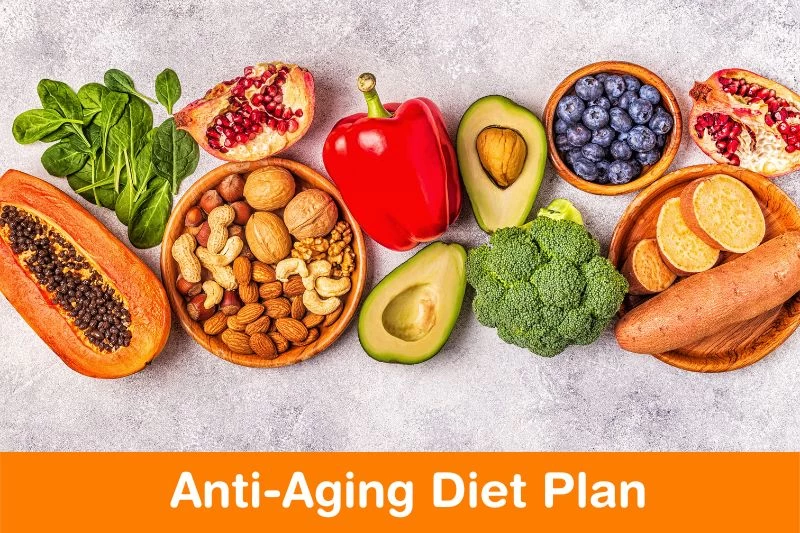
Subscription Plan
Introduction:
- Brief explanation of the aging process and its impact on overall health and well-being
Age-related physiological changes can affect our health and well-being. Cellular function, hormones, and body repair and regeneration decline with age. These factors can cause age-related conditions that affect our physical, mental, and emotional health. Understanding the ageing process helps you choose healthy ageing strategies like a well-planned diet.
- Introduction of Dr. Pankaj Kumar as the best dietician in Delhi and Dwarka, specializing in anti-aging nutrition
Introducing Delhi and Dwarka dietician Dr. Pankaj Kumar specialises in anti-aging nutrition. Dr. Kumar has helped many people improve their health and slow ageing with customised diets. His holistic approach emphasises proper nutrition to promote well-being and healthy ageing. Dr. Kumar is the anti-aging nutrition expert because he cares about his clients and stays current on research.
Section 1: Understanding the Role of Diet in Anti-Aging
- Explanation of how diet plays a crucial role in maintaining youthful appearance and vitality
Dietary nutrients help our skin, organs, and cells stay healthy and youthful. Antioxidants, healthy fats, and nutrients can reduce oxidative stress, inflammation, and cellular damage, which accelerate ageing. A nutrient-dense, well-rounded diet can nourish our bodies from within and promote a radiant complexion, strong immune system, and youthful vitality. Dr. Pankaj Kumar creates customised anti-aging diets.
- Discussion on the importance of proper nutrition in preventing age-related diseases and promoting longevity
- Nutrition prevents age-related diseases and promotes longevity. Antioxidants, vitamins, minerals, and healthy fats can prevent heart disease, diabetes, and cognitive decline. It boosts immunity, weight management, and cell function. Dr. Pankaj Kumar, a leading dietician in Delhi and Dwarka, creates nutrient-dense diet plans to improve health and longevity.
Section 2: Essential Nutrients for Anti-Aging
- Overview of key nutrients, including antioxidants, omega-3 fatty acids, vitamins, and minerals, and their role in combating aging processes
Antioxidants, omega-3 fatty acids, vitamins, and minerals fight ageing. Antioxidants protect cells from free radicals. Omega-3s reduce inflammation and protect the brain. Vitamins and minerals boost immunity, collagen production, and skin health. Famous dietician Dr. Pankaj Kumar emphasises these nutrients in his anti-aging diet plans to promote healthy ageing and well-being.
- Specific food sources and examples of anti-aging nutrients for optimal skin health, brain function, and cellular rejuvenation
Berry, dark leafy green, and colourful vegetable antioxidants improve skin health. Omega-3-rich salmon, walnuts, and avocados support brain function. Vitamin C-rich foods like citrus fruits, bell peppers, and broccoli support cellular rejuvenation. Dr. Pankaj Kumar, a leading dietician, recommends these nutrient-rich foods as part of his anti-aging diet to nourish the body and promote a youthful appearance.
Section 3: Designing an Anti-Aging Meal Plan
- Tips for building a well-rounded, anti-aging diet with emphasis on whole foods, fruits, vegetables, lean proteins, and healthy fats
A balanced anti-aging diet includes whole foods like fruits, vegetables, lean proteins, and healthy fats. For a variety of antioxidants and vitamins, eat colourful fruits and vegetables. Lean proteins like poultry, fish, and legumes maintain muscle. For brain and skin health, eat avocados, nuts, and olive oil. In his anti-aging diet plan, expert dietician Dr. Pankaj Kumar emphasises these food choices for optimal health and vitality.
- Sample meal ideas and recipes incorporating anti-aging ingredients
Greek yoghurt, berries, chia seeds, and honey make a nutritious breakfast bowl. For lunch, try a salad with mixed greens, grilled salmon, avocado slices, and a lemon vinaigrette dressing for omega-3s, healthy fats, and vitamins. In dinner, roasted chicken breast with steamed broccoli and quinoa for lean protein, fibre, and vitamins and minerals. Boost brain health and reduce oxidative stress by snacking on walnuts and dark chocolate. These healthy meals include anti-aging ingredients.
Section 4: Lifestyle Factors for Youthful Aging
- Discussion on the importance of regular exercise, stress management, quality sleep, and hydration in the anti-aging journe
- Maintaining muscle strength, flexibility, and cardiovascular health with regular exercise can help you look and feel younger.
- Meditation and yoga can reduce the effects of stress on the body, preventing accelerated ageing and promoting relaxation.
- Sleep helps the body repair and regenerate, improving skin, cognition, and vitality.
- Hydration promotes digestion, skin elasticity, and toxin elimination, giving the body a youthful and radiant appearance. These lifestyle changes and a nutrient-rich diet can boost anti-aging.
- Dr. Pankaj Kumar's expert advice on incorporating these lifestyle factors for optimal results
Famous dietician Dr. Pankaj Kumar recommends regular exercise, stress management, quality sleep, and hydration for anti-aging. Dr. Kumar advises on anti-aging exercise, stress reduction, and sleep hygiene. Dr. Kumar tailors his advice to each individual to ensure optimal results in achieving a youthful appearance and overall well-being. Dr. Kumar empowers people to make lifestyle changes that enhance their anti-aging diet and plan through his holistic approach.
Conclusion:
- Recap of the benefits of an anti-aging diet plan and the potential for a more youthful and vibrant lif
Dr. Pankaj Kumar's anti-aging diet plan improves skin, brain, and cellular health. Nutrient-rich foods and antioxidants can slow ageing, prevent age-related diseases, and extend lifespan. Dr. Kumar's expertise can give people more energy, mental clarity, and radiance. A healthy, fulfilling life can be achieved by following an anti-aging diet plan and making positive lifestyle choices.
- Encouragement to seek expert guidance from Dr. Pankaj Kumar for personalized dietary recommendations and support in your anti-aging journe
Dr. Pankaj Kumar, the best dietician in Delhi and Dwarka for anti-aging nutrition, should be consulted for a successful anti-aging journey. Dr. Kumar's personalised dietary recommendations and support help people optimise their anti-aging efforts and achieve lasting results. Dr. Kumar's expertise in anti-aging nutrition makes him the ideal partner for creating a customised diet plan.
Start anti-aging now. Dr. Pankaj Kumar can help you live a healthier, younger, and more vibrant life.
Chronic Fatigue Syndrome Diet Plan

Subscription Plan
I. Introduction
A. Definition and overview of chronic fatigue syndrome (CFS)
Chronic fatigue syndrome (CFS) is a complex and debilitating medical condition characterised by persistent fatigue that does not improve with rest and has no known cause. Muscle pain, cognitive impairment, sleep disturbances, and post-exertional malaise are common symptoms. Even simple tasks can be difficult with CFS. Chronic management and support are needed.
B. Explanation of its impact on daily life and overall well-being
CFS can affect many aspects of daily life and well-being. Fatigue and its symptoms can lower energy, cognitive, and sleep function. It impacts work, school, and personal relationships. CFS can cause frustration, isolation, and a lower quality of life. Dietary interventions can reduce CFS symptoms and improve overall health.
II. Understanding Chronic Fatigue Syndrome
A. Discussion of common symptoms and diagnostic criteria
Chronic fatigue syndrome (CFS) causes fatigue, post-exertional malaise, cognitive difficulties (brain fog), and muscle and joint pain. CFS diagnosis involves ruling out other medical conditions and assessing long-term symptoms. These criteria often include six-month fatigue, daily activity impairment, and symptoms. For a CFS diagnosis, a doctor must examine you.
B. Explanation of potential causes and contributing factors
Chronic fatigue syndrome (CFS) has many possible causes. viral infections, immune system dysfunction, hormonal imbalances, genetic predisposition, and psychological stress. Environmental and emotional trauma may also contribute. CFS is a complex condition with different causes and contributing factors for each person. CFS aetiology research continues.
III. The Role of Diet in Managing Chronic Fatigue Syndrome
A. Introduction of Dr. Pankaj Kumar as a renowned dietician in Delhi and Dwarka, specializing in CFS management
Dr. Pankaj Kumar, a renowned dietician in Delhi and Dwarka, manages chronic fatigue syndrome (CFS) through diet. Dr. Kumar has helped many CFS patients regain energy and quality of life with his extensive experience and knowledge. His personalised approach and thorough understanding of CFS make him a trusted nutrition and wellness professional.
B. Explanation of how diet can affect CFS symptoms and energy levels
CFS symptoms and energy levels depend on diet. Dr. Pankaj Kumar stresses the importance of a well-balanced diet for energy and health. CFS patients can improve fatigue, cognition, and well-being by eating nutrient-rich foods and avoiding triggers. Dr. Kumar creates personalised dietary plans for CFS patients to boost energy and manage symptoms.
C. Importance of personalized dietary plans for individuals with CFS
CFS patients need personalised diets because the condition varies. Dr. Pankaj Kumar understands the importance of tailoring diets to individual needs, symptoms, and nutritional deficiencies. CFS patients can improve energy, symptom management, and quality of life by customising their diet to address nutrient deficiencies, food sensitivities, and energy needs. Dr. Kumar's personalised diet plans ensure that CFS patients get the best nutrition.
IV. Dietary Recommendations for Chronic Fatigue Syndrome
A. Overview of nutrient-rich foods and their benefits for managing CFS
Vitamins, minerals, and antioxidants from nutrient-rich foods help manage CFS. Fruits, vegetables, whole grains, lean proteins, and healthy fats contain nutrients that boost energy, immunity, and well-being. Inflammation, brain health, and digestion are often affected in CFS patients, but these foods help. Dr. Pankaj Kumar recommends nutrient-rich foods for CFS symptom relief and health.
B. Emphasis on balanced meals, including proteins, healthy fats, complex carbohydrates, and fiber
Balanced diets help CFS patients maintain energy and health. Meals should contain proteins for muscle repair and immune function, healthy fats for brain health and hormone production, complex carbohydrates for sustained energy, and fibre for digestion and gut health. Dr. Pankaj Kumar's CFS expertise ensures personalised dietary plans that emphasise balanced meals, tailored to individual needs and symptoms.
C. Discussion of specific vitamins, minerals, and supplements that may be beneficial for CFS management
Vitamins, minerals, and supplements may help CFS symptoms. Vitamin B12 helps nerves and muscles, while magnesium relaxes muscles and reduces stress. Omega-3 fatty acids reduce inflammation and coenzyme Q10 produces cellular energy. Dr. Pankaj Kumar can tailor dosage and supplementation to individual needs and medical history to optimise CFS management.
V. Lifestyle Modifications for Managing Chronic Fatigue Syndrome
A. Importance of rest and sleep hygiene
CFS requires rest and sleep hygiene. A regular sleep schedule improves sleep quality and helps the body recover. Dr. Pankaj Kumar stresses the importance of a good sleep environment, relaxation, and a regular sleep routine for CFS patients.
B. Stress management techniques and relaxation strategies
CFS patients must manage stress and relax. Dr. Pankaj Kumar recommends deep breathing, meditation, yoga, and mindfulness to reduce stress and relax. These practises calm the mind, improve emotional well-being, and aid healing. To improve CFS management, find stress management methods that work for you.
C. Incorporating gentle exercise and physical activity
Gentle exercise and physical activity can help CFS patients. Dr. Pankaj Kumar recommends starting with low-impact activities like walking, stretching, or gentle yoga and increasing intensity as tolerated. Exercise boosts energy, mood, and well-being. To avoid worsening symptoms, listen to the body and don't push.
VI. Seeking Professional Guidance
A. Highlighting Dr. Pankaj Kumar's expertise in providing personalized dietary recommendations for CFS management
Dr. Pankaj Kumar is known for his CFS-specific diet advice. He customises diets for CFS patients based on his extensive knowledge and experience. Dr. Kumar's diet targets nutrient deficiencies, inflammation, and energy. His advice can improve CFS symptoms and quality of life.
B. Importance of consulting a healthcare professional for comprehensive care
Dr. Pankaj Kumar's comprehensive care for CFS is essential. A qualified dietician provides accurate, personalised advice. Dietary changes and other CFS treatments can be managed with Dr. Kumar's help. Holistic care from a healthcare professional can improve your CFS management.
C. Encouragement to schedule an appointment with Dr. Kumar for expert guidance
If you have chronic fatigue syndrome (CFS), see Dr. Pankaj Kumar, the best dietician in Delhi and Dwarka. Dr. Kumar can offer expert advice and customised diet plans for CFS management. Professional help is crucial to managing CFS and improving your health. Request an appointment with Dr. Kumar today.
VII. Conclusion
A. Recap of the significance of dietary management and lifestyle modifications in managing chronic fatigue syndrome
Diet and lifestyle changes help manage chronic fatigue syndrome (CFS). CFS patients can improve their symptoms and well-being by following a personalised diet plan, eating nutrient-rich foods, managing stress, prioritising rest and sleep, and seeking expert advice from Dr. Pankaj Kumar. Remember that everyone's CFS journey is different, and finding the right diet and lifestyle changes is key to managing the condition.
B. Empowering individuals with CFS to take charge of their health and well-being through proper nutrition and self-care
CFS patients must be empowered to manage their health. Proper nutrition, self-care, and guidance from experts like Dr. Pankaj Kumar can help people regain control over their symptoms and improve their quality of life. CFS patients can improve their health step-by-step with the right tools and support.
C. Encouragement to stay informed, seek support, and explore treatment options for a better quality of life.
Staying informed about chronic fatigue syndrome (CFS), seeking support from healthcare professionals and support groups, and exploring treatment options are crucial to improving quality of life. By learning about CFS, connecting with others who have it, and working with doctors like Dr. Pankaj Kumar, people can manage the condition and improve their health. Remember that you can get help for CFS and improve your quality of life.
Maintenance Diet

Subscription Plan
| Duration | Price | |
| 4 WEEKS GOLD PLANS | Rs 3000 | Express Checkout |
| Duration | Price | |
| 4 WEEKS DIAMOND PLANS | Rs 5000 | Express Checkout |
| Duration | Price | |
| Express checkout |
Maintenance of weight after weight loss or just healthy weight maintenance
Many people trying for weight loss achieve their desired weight by dieting and exercise, but unfortunately many of them gain it back.
Only 20% of individuals get success in losing extra weight and maintaining it for a long time. However, don’t get discouraged, because there are a number of scientifically proven ways which can help you keep the weight off, including mindful eating, stress management, and regular exercise.
It is simply a maintenance diet that is advised to start after the weight loss journey. It is very much similar to a normal diet. You can reach to us or send a request as per your calorie requirements or you can estimate your calorie requirements using a calculator.
Anybody who wishes to maintain their weight may send the request. We do not need any special blood tests before starting a maintenance diet. But if you have basic blood reports then please share your detail here at [email protected]
Reasons behind weight regain
There are few common reasons which lead to weight regain after achieving desired weight.
Very low calorie diet: A diet too low in calories may slow down your metabolism and also shift your appetite-regulating hormones. Both these factors lead to weight regain.
Lack of sustainability: Most of the low calorie diets are not sustainable because they focus on rules rather than lifestyle modifications. These diets are followed on the basis of willpower and can't be incorporated in your daily life for a long time. This discourages you and prevents weight maintenance.
Wrong mind-set: Many individuals assume diet as a quick fix, rather than a long term solution for a healthy future. These people give-up and gain back the lost weight again.
Tips to maintain weight after weight loss
Regular exercise: Exercise is very important in weight maintenance. It boosts metabolism and also burns extra calories, both of these are necessary to achieve energy balance. According to studies, a minimum of 200 minutes of moderate exercise per week helps in the maintenance of weight after weight loss. Exercise is most helpful when combined with a healthy diet.
Weight lifting: A very low calorie diet, oftenly used by dieticians for weight loss results in muscle loss in addition to weight loss. This muscle loss reduces the basal metabolic rate, resulting in fewer calorie burn throughout the day. According to studies, individuals lifting weights after weight loss are more likely to keep weight off by maintaining muscle mass.
Don’t skip breakfast: Breakfast eaters tend to have healthier habits overall, including exercise, high consumption of fiber and micronutrients. According to evidence, individuals eating breakfast are more successful at maintaining weight loss.
Add plenty of protein: Protein is known to reduce appetite and promote fullness, leading to lower calorie intake, which in turn supports weight maintenance. Additionally, protein requires significant amounts of energy to break down in your body. Therefore, a regular intake of a diet rich in protein may increase the number of calories you burn during the day.
Drink plenty of water: Staying hydrated is very important in weight maintenance. It causes fullness, hence lesser calorie intake. Drinking water before meals leads to reduction in calorie intake when compared with those who didn’t drink water before a meal.
Keep control on your carb intake: Both the amount and type of carb are important in weight maintenance. Too much intake of refined carbs like white bread, fruit juices, and other refined flour products can be detrimental for your weight maintenance goals. To maintain your weight loss for the long term, a low carb diet is very beneficial.
Track your total calorie intake: There are a number of online apps which may help in tracking your total calorie intake for the maintenance of your weight. Food trackers increase your awareness about how much you are really eating.
Include plenty of vegetables to your diet: According to studies, increasing vegetable intake helps you in maintaining weight. Vegetables are high in fiber which causes fullness and hence lesser calorie intake.
Take your weight on regular intervals: Weighing yourself on a regular basis will help you keep control of your weight.
Be prepared for setbacks: When you start your weight loss and weight maintenance journey, setbacks are inevitable. You may skip your diet one day or may skip workout one day. Occasional slip up is ok but try to stick to your daily diet and exercise routine.
Sleep enough: Not sleeping enough results in weight gain in adults, and may interfere with weight maintenance. A sound sleep of 7 hours is necessary for adults and is optimal for weight maintenance and overall health.
Stress management: Stress management is very crucial in weight maintenance. Stress increases the level of cortisol, which results in weight regain. Stress also increases the risk of impulsive eating, i.e, eating when you are not hungry. Regular exercise, yoga and meditation can help you combat stress.
Mindful eating: Mindful eating is the most important aspect in weight maintenance. It is the practice of listening to internal appetite cues and paying full attention during the eating process. Distraction during eating may make it difficult to recognize fullness, resulting in overeating. So, this will help you stop eating when you are truly full.
Make sustainable changes in your lifestyle: Always remember one thing, “slow and steady wins the race”. So don’t be too restrictive and unrealistic in terms of your diet and exercise routine. Make sustainable changes in your day to day routine.
Other useful Links:
Register/Login I Blog I Subscription Plans I Calculator I ExercisesAll Testimonials I Before and After I Recipe I Amazon Pantry 
Navratri Diet Plan
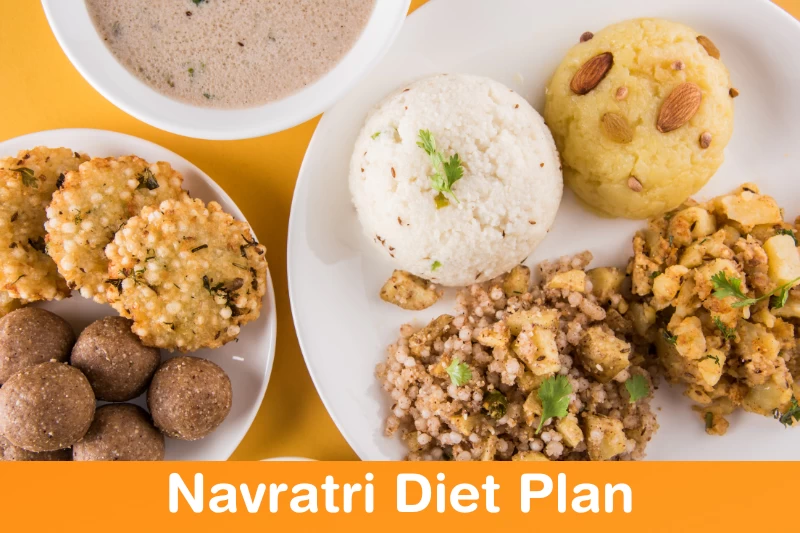
Subscription Plan
| Duration | Price | |
| 9 Days Navratri Weight Loss Diet Plan | 999 | |
| 9 Days Navratri Intermittent Fasting Diet Plan | 999 |
| Duration | Price | |
| Express checkout |
Table of Contents
- Some important points to be kept in mind during Navratri fast
- Diet during Navratri fasting
- Reasons which can make you fat during this period
- Navratri Vrat Diet - Foods To Detox Your Body - Healthy Navratri Diet
- Weight loss in Navratri
- Navratri diet recipes you can include in your diet chart for fasting
- How Modi's Navratri diet plan is different from our Navratri diet plan for weight loss
- How to handle cravings during Navratri fast?
- Calculate your Basic Metabolic Rate
- 12 foods to increase your immunity during Navratri fast
- 4 Foods that can weaken your immunity during Navratri fast
Download your Navratri weight loss diet plan
Selection of the right food during the 9 (nine) days of Navratri is crucial. It is the best time to detox your body. Eating a diet rich in protein and good quality fat is the wisest way to detox your body. But unluckily, most of us go either towards complete fasting or remain on a diet containing more than 80% of carbs. Both of these options are dangerous for your body. We have started a healthy diet chart for fasting in the year 2022. We are giving a 100% Free Navratri diet plan idea. You can subscribe to our silver and premium plans for 9 days of Navratri diet plans.
These are some important Navratri fast rules
The 9-day fast of the festival Navratri is dedicated to shakti and is going to begin on the 6th of October 2021. This is an old tradition to keep fast for 9 days, followed by both men and women of various age groups. Navratri is celebrated two times a year, Chaitra (spring), and Sharad (autumn). By opting for a sattvic diet (food without onion, garlic, species, oil, and non-vegetarian products), people strengthen their body and mind for a change in season, which brings along with it illnesses and diseases.
Some important points to be kept in mind during Navratri fast
-
This is an ideal time to connect with the spiritual self. Detox and strengthen your body from the inside.
-
Opt for a variety of fresh seasonal fruits, nuts, and low-calorie dairy products. This will help in the removal of free radicals from the body as these food products are loaded with antioxidants.
-
Take plenty of liquid, including water, coconut water, fresh fruit juices, milkshakes, and buttermilk. This will keep you hydrated, nourish the body and moisturize the skin.
-
Give rest to your digestive system by replacing wheat, rice, and lentils with kuttu ka aata, singhare ka aata, samai, sabudana, makhana phool, etc.
-
Sendha namak is used in the preparation of food in place of table salt.
-
The heat-generating species include turmeric (Haldi), coriander (dhania), hing (asafoetida), garam masala, mustard (sarson), and clove (lavang) are avoided by the devotees during this period. Cumin (jeera) and black pepper (kali mirch) are the spices included during Navratri fast. Mustard oil and refined oil are replaced by ghee and peanut oil.
-
Meditation and prayers are significant parts of Navratri's fast. They help in the detoxification of the body, mind as well as the soul.
Diet during Navratri fasting
People from northern and western India are gearing up for the 9 days of the Navratri celebration. Eating a balanced diet during Navratri will tone your body and detox you from the inside. Take plenty of fresh fruits, vegetables, and water, and a moderate amount of nuts, seeds, and low-calorie dairy. Although it is a great opportunity to lose weight, it can be opposed and make you gain weight too. To select a healthy diet plan for you consult Dr. Pankaj Kumar.
Reasons which can make you fat during this period
-
Some people opt for a diet very low in calories needed by their body and while breaking the fast go crazy for food and eat anything, resulting in sudden weight gain.
-
Some people have no time to cook, in such cases, they should go for fruits, low-calorie dairy, and sauteed veggies. But they prefer to go for packaged foods, chips, thalis, laddoos. All of these are loaded with carbs and low-quality fat. This causes weight gain and in turn, results in a lot of health issues.
-
Not drinking enough water is also a reason for making you fat during this period.
-
Opting outside food instead of home-cooked food results in more and more carb and fat intake again resulting in weight gain.
Navratri Vrat Diet - Foods To Detox Your Body - Healthy Navratri Diet
The first thing which comes to mind is what to include in the Navratri diet plan for 9 days?
Some healthy foods to be included during 9 days of Navratri:
-
Fruits: A large variety of fresh fruits are available during this period like Apple, pear, banana, pomegranate, sweet lime, pineapple, strawberries, and many more. Select fruits of your choice and enjoy the relish of these fruits.
-
Vegetables: Many vegetables are allowed during Navratri fast including, potatoes, sweet potato, arbi, kachalu, yam, lemon, raw pumpkin, ripe pumpkin, spinach, tomatoes, bottle gourd, cucumber, carrots, etc. Select vegetables you like and saute them using a small amount of ghee and have it. This will help detox your body.
-
Buckwheat: It is commonly known as kuttu ka aata. It is gluten-free and a rich source of nutrients like phosphorus, magnesium, zinc, copper, and vitamin B.
-
Singhara or water chestnut: singhara is a fruit. Its flour is obtained by drying the fruit. It is a rich source of potassium, calcium, iron, zinc, phosphorus, and fiber. In addition, it is low in sodium. So, a great option for people with hypertension and other heart problems.
-
Samak: It belongs to the millet family. It can be used to make rice or khichdi. It can also be turned into flour to make roti, cheela, poorie, etc. In addition to many macro and micronutrients, it is an excellent source of phytochemicals.
-
Sabudana or sago: Sabudana is a carb-dense food item (mainly starch) permitted during Navratri. It can be used in small amounts with plenty of fresh vegetables and peanuts to make delicious khichdi to be eaten with curd. You can also make sabudana kheer with small amounts of jaggery, and moderate amounts of low-fat milk and nuts.
-
Rajgira or amaranth: It can be used to prepare khichdi, laddoos, etc. Its flour is used for preparing roti and cheela.
-
Nuts: Nuts including almonds, pistachios, cashews, raisins, walnuts, pine nuts, and peanuts can be consumed during Navratri fast. You can add them to recipes or can eat them otherwise. Nuts are an excellent source of essential fatty acids and also a good source of protein.
-
Lotus seeds or makhana Phool: Makhana is very low in carbs and calories and contains small amounts of protein also. It is a rich source of potassium and low in sodium. You can make several delicious recipes from makhana, including makhana kheer, makhana aloo, or simply makhana sabzi. It can also be eaten by sauteing it using small amounts of fat.
-
Low-calorie dairy products: You can fulfill your daily protein needs from toned or double-toned milk, curd, or paneer made from toned milk. These are the protein-rich sources that can be taken during Navratri fast and are available countrywide.
So, these are the essential component for 9 (nine) days diet plan during the Navratri. You can also purchase the Navratri diet plan for better weight control by our 9 (nine) days Navratri diet plan.
Weight loss in Navratri
It is time to lose your fat mass and detox your body. Given below are some healthy tips for you to opt for during Navratri fast.
-
Eat more fruits and vegetables
-
Opt for small and frequent meals
-
Drink plenty of water
-
Get moving
-
Select homemade snacks in place of outside foods
-
Consume a small amount of visible fat
-
Consume small amounts of nuts in between meals
-
Opt for low-fat dairy
Navratri diet recipes you can include in your diet chart for fasting
Some delicious and healthy fasting recipes for you to be taken during Navratri fast:
-
Kuttu ke aate ka cheela: This is a low-calorie recipe containing some protein and fat. Although low in calories, it provides fullness for a long time.
-
Strawberry milkshake: This is low in calories and carbs and rich in protein. You can drink it during morning breakfast or in between meals.
-
Pineapple smoothie: It has a delicious taste and is very rich in micronutrients. Try it for breakfast or mid-day snacks.
-
Peanut chaat: It is a low-carb, moderate-protein-containing recipe. You can take it as a meal. It will provide fullness for a long time.
-
Makhana bhel: It is a low-calorie and low-carb recipe. You can have it during meals or in-between snacks.
-
Makhana kheer: It is just delicious. It will provide protein also.
-
Navratri special paneer rolls: Consume this healthy and delicious recipe whenever you have a craving.
-
Pomegranate raita: Try this recipe containing curd along with juicy pomegranate. It is low in calories and contains protein.
-
Vrat wale paneer chat: It is a low-calorie and low-carb recipe high in protein. Must go for it to fulfill your protein needs.
-
Vrat-special energy bar: It is a delicious recipe containing essential fatty acids. Try it in between meals.
-
Fried potatoes: It is a delicious savory allowed during Navratri fast.
-
Shakarkand halwa: Try this tasty halwa recipe. It is a complete meal and will give you fullness for a long time.
-
Sabudana kheer: It is a complete meal containing carbs, protein, and fat.
-
Badam halwa: It is delicious and provides protein along with high amounts of essential fatty acids.
-
Milk rabri: A delicious dessert that provides a good amount of protein also.
-
Mix dry fruits shake: Apart from being yummy, it is also rich in protein and essential fatty acids.
-
Lauki ka halwa: Healthy, delicious recipe. Good source of protein and essential fatty acids.
How Modi's Navratri diet plan is different from our Navratri diet plan for weight loss
Diet may vary from one state to another state, but the basic principles remain the same. Prime minister Modi's Navratri diet plan is popular in India as well as abroad. He looks very fit and active. Some sources on the internet say that he has been doing fasting for a long time and doing yoga and other lifestyle modification practices. Given Dr. Pankaj Kumar's opinion, the main difference is in his eating habits and state where he lives. Modi lives in New Delhi, but his eating habit and food pattern are almost similar to Gujrati culture. According to some sources on the internet, Modi's inclination to local food is making it different.
The second difference is his daily requirements. The daily requirement is different for different individuals, and he knows very well how much he needs and how much he has to take.
Food habit development takes a lot of time, and it is not necessary to copy others' food habits for a better body shape or weight loss. Rectify only bad food habits and try to maintain old food habits. It will not change your food satisfaction quality, as described by Dr. Pankaj Kumar.
How to handle cravings during Navratri fast?
Some people adjust fasting days in good work, but some may not tolerate these and they hop from one snack to other. The solution for this craving is you must consume a healthy low salt diet namkeen which can be easily prepared at home.
Calculate your Basic Metabolic Rate
12 foods to increase your immunity during Navratri fast
Navratri is the longest Hindu festival, celebrated all over the country. Although there are four (4) Navratri in a year, the two (2) most popular are Shardiya Navratri and Chaitra Navratri. People fast for nine (9) days during this period. This is the weather change time and almost everyone's immunity is compromised at this time. So, the main goal of fasting is not only to purify the soul but also to detoxify the body.
Mindful selection of immunity-boosting foods, containing balanced amounts of carbs, proteins, fats, and various micronutrients are very necessary during this period. Foods that can boost your immunity during this period of fasting are:
1. Citrus fruits
Fruits like grapefruits, oranges, lemons, and sweet limes are rich sources of vitamin C. Include them in your breakfast.

Vitamin C helps in quick recovery from cold.
2. Red and yellow bell peppers
Red bell peppers are also a very rich source of vitamin C. In addition, they are also rich in beta carotene.
 This beta carotene converts into Vitamin A in your body and helps keep skin and eyes healthy.
This beta carotene converts into Vitamin A in your body and helps keep skin and eyes healthy.
3. Ginger
Ginger is excellent anti-inflammatory food. Ginger may reduce sore throat and other inflammatory illnesses. 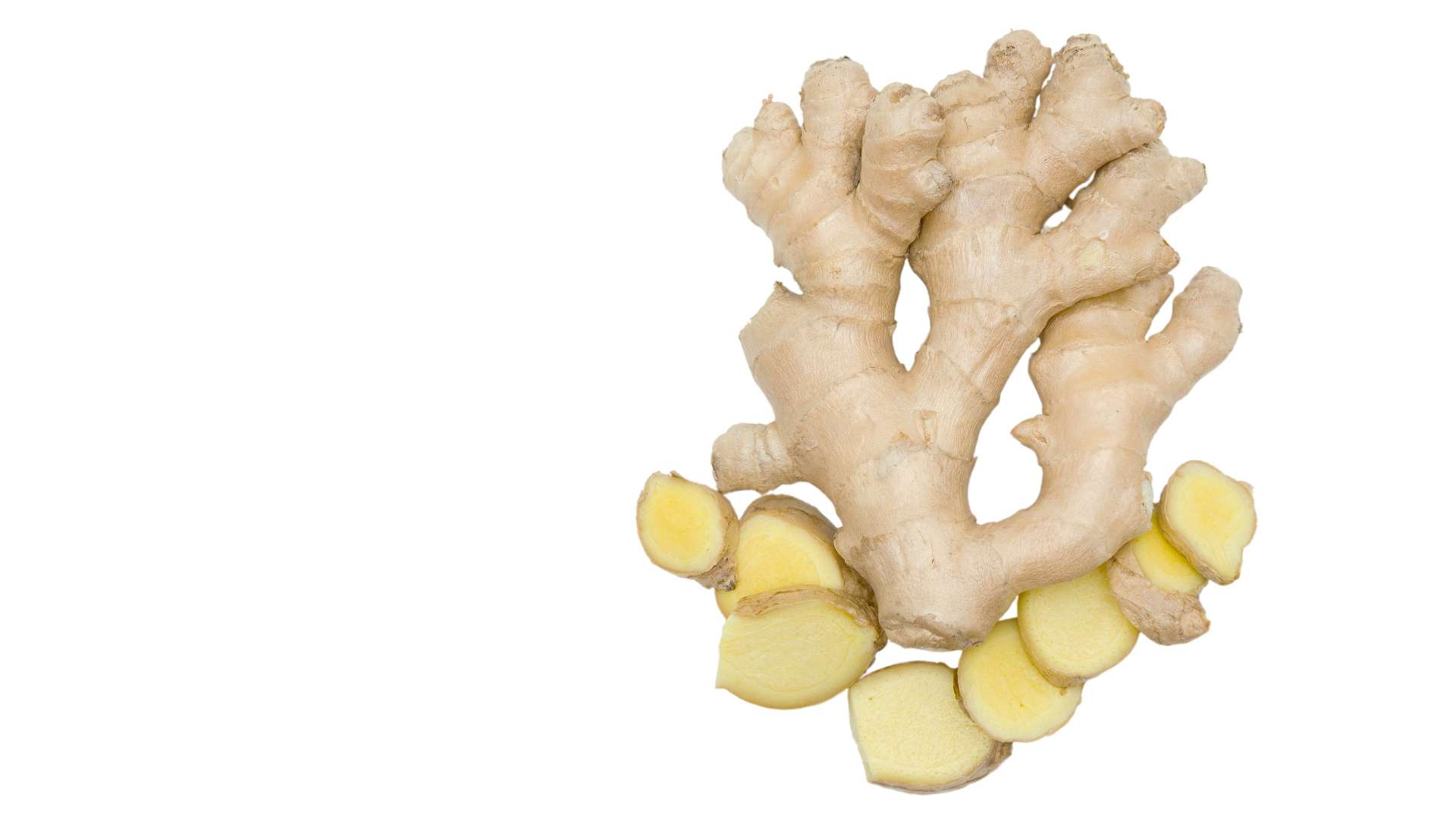 It also reduces the symptoms of nausea, decreases chronic pain, and may also lower cholesterol levels.
It also reduces the symptoms of nausea, decreases chronic pain, and may also lower cholesterol levels.
4. Spinach
Spinach is packed with several antioxidants, including Vitamin C and beta carotene.
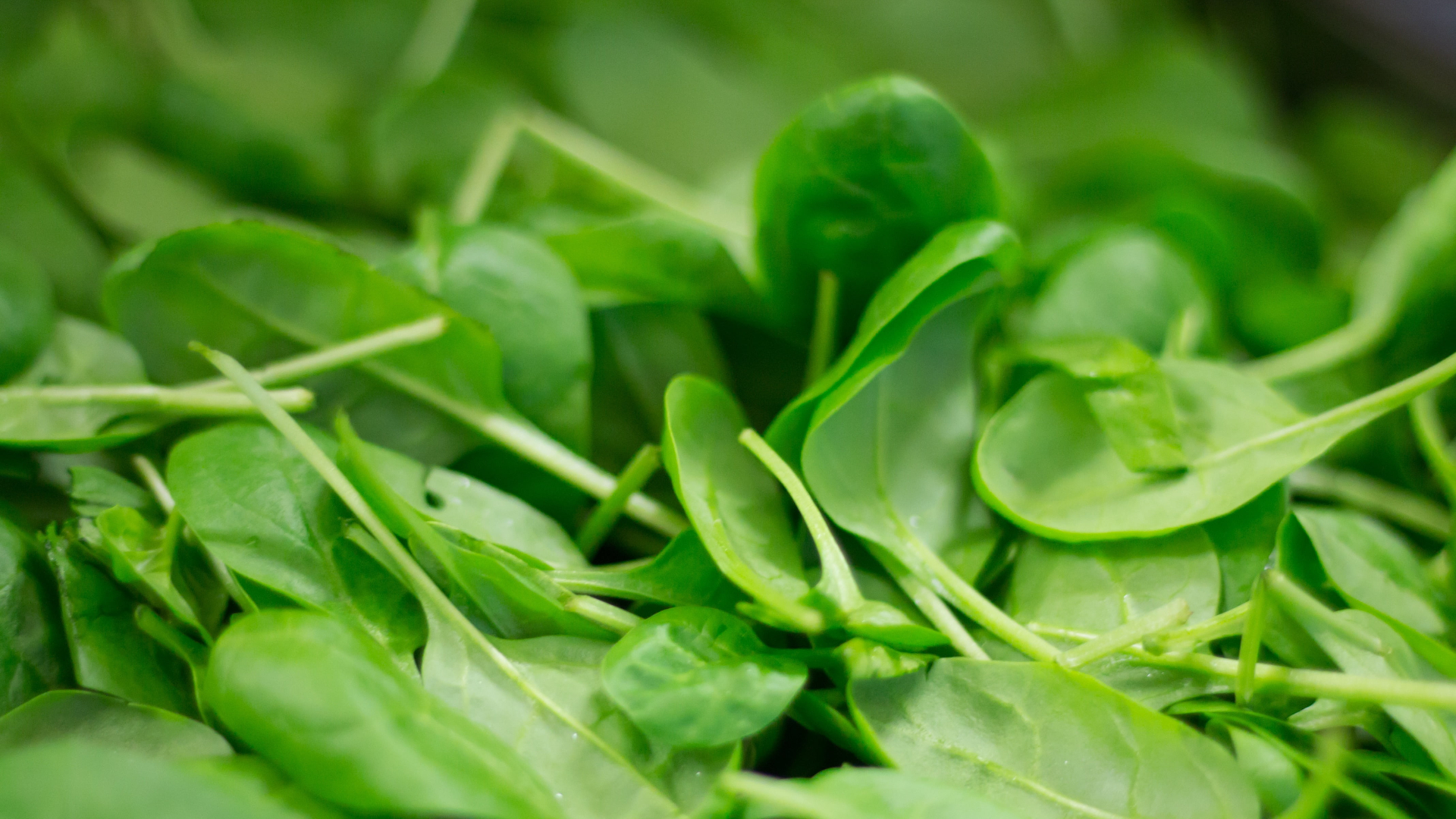
Both of these have the infection-fighting ability.
5. Dairy Products
Dairy products including milk, cheese, and curd are packed with several essential nutrients like Vitamin A and D, zinc, and proteins.
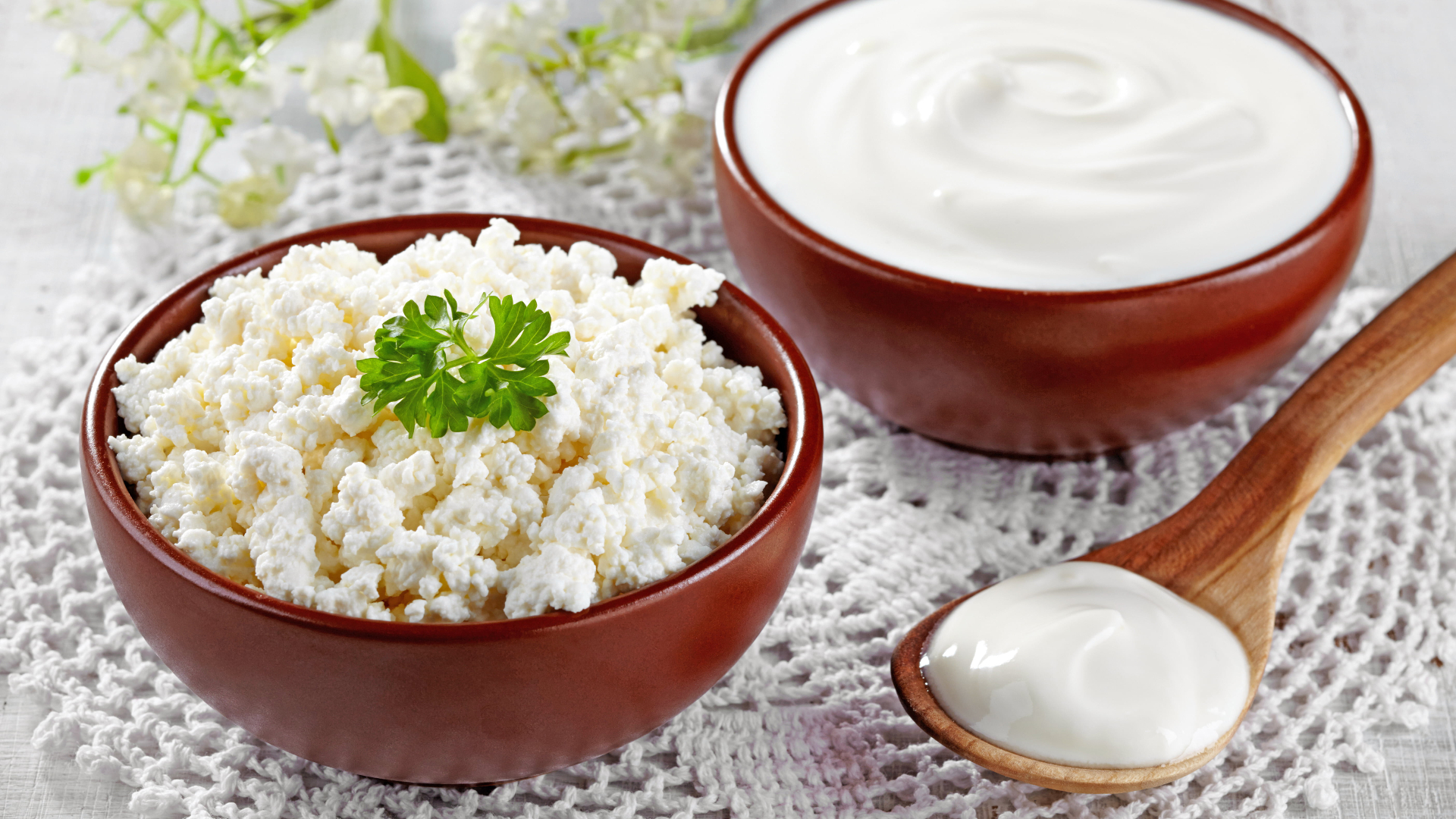 All of these have specific roles in the immune system.
All of these have specific roles in the immune system.
6. Ghee
Ghee is a rich source of butyrate. It greatly improves immunity and keeps the gut healthy. 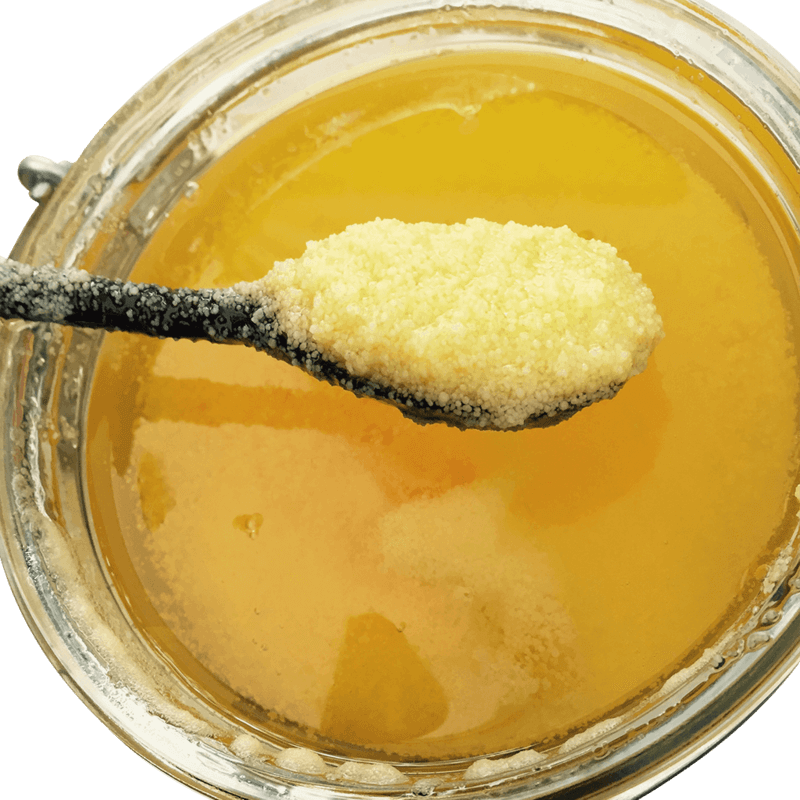
To reap the maximum benefits of ghee, select 100% pure cow ghee.
7. Almonds
Almonds are packed with Vitamin E, a fat-soluble vitamin. In addition, it is also a good source of essential fatty acids.
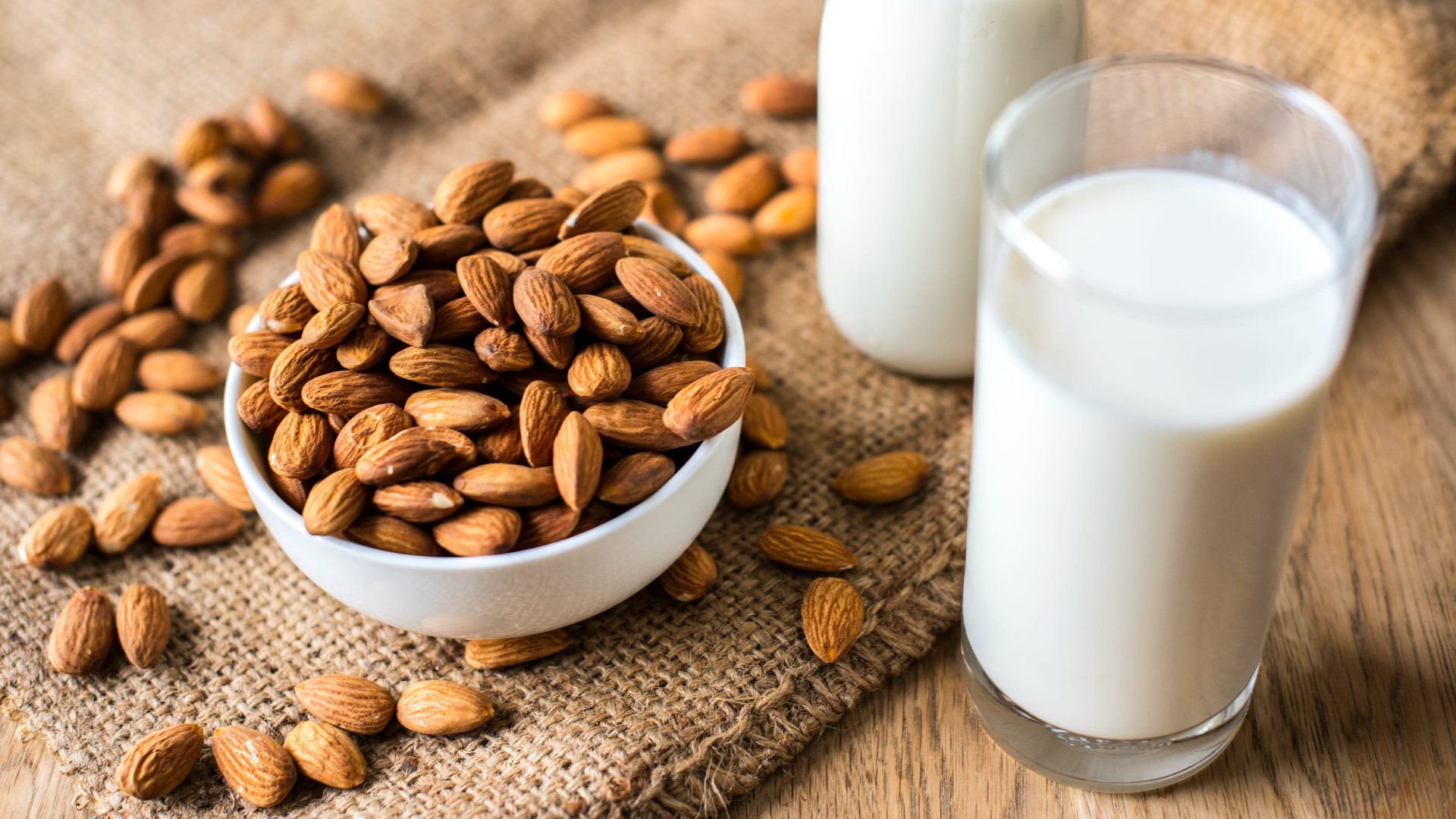
It not only helps fight off cold but also prevents it.
8. Sunflower seeds
Sunflower seeds are rich in phosphorus, magnesium, Vitamin B6, and E. It is also incredibly high in selenium.
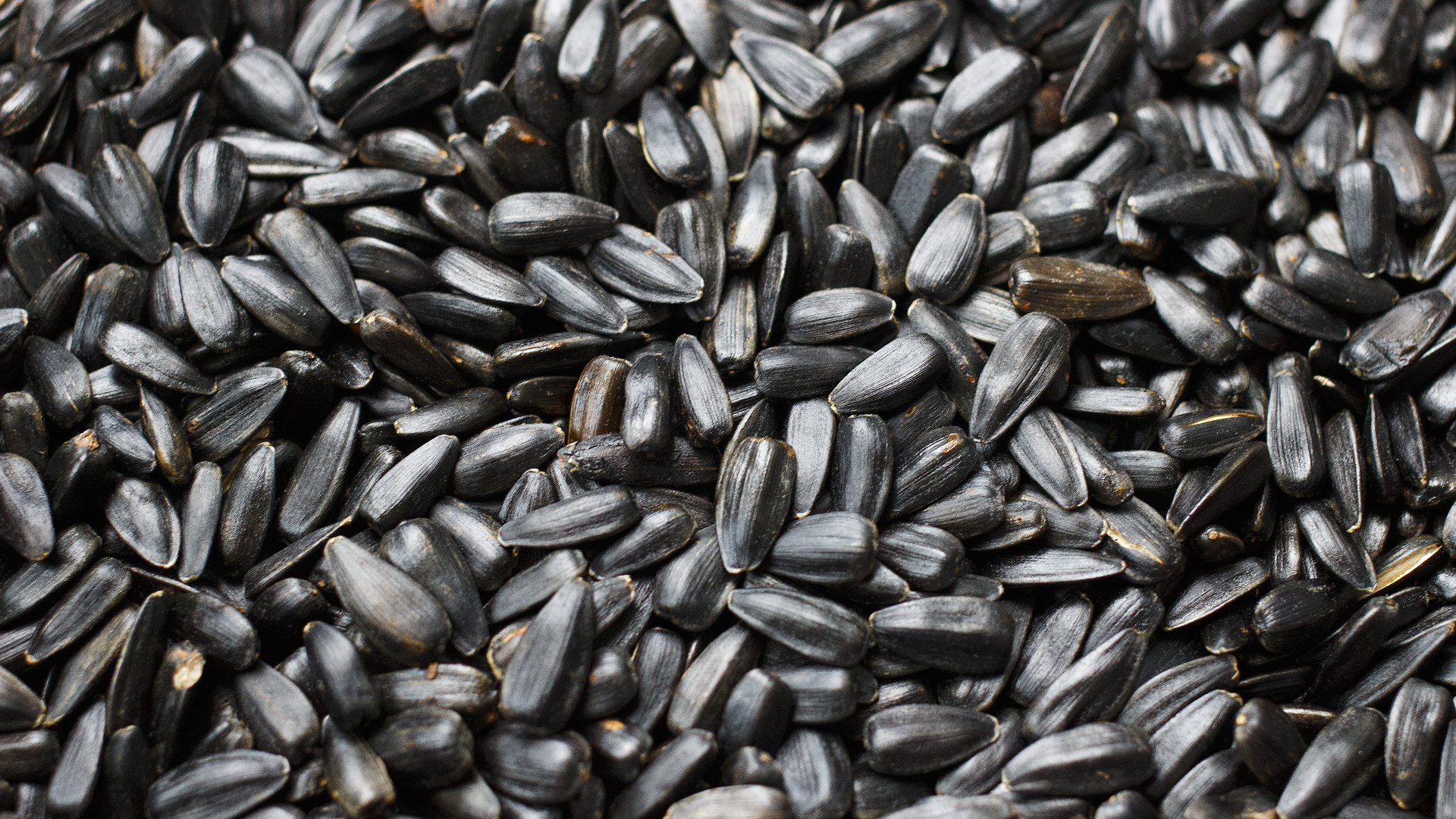
All these nutrients make sunflower seeds an excellent immunity booster food item.
9. Fox Nuts (makhana)
Makhana is an excellent anti-aging, detoxifying and anti-inflammatory food as it is abundant in various types of antioxidants and a natural anti-inflammatory compound called kaempferol. 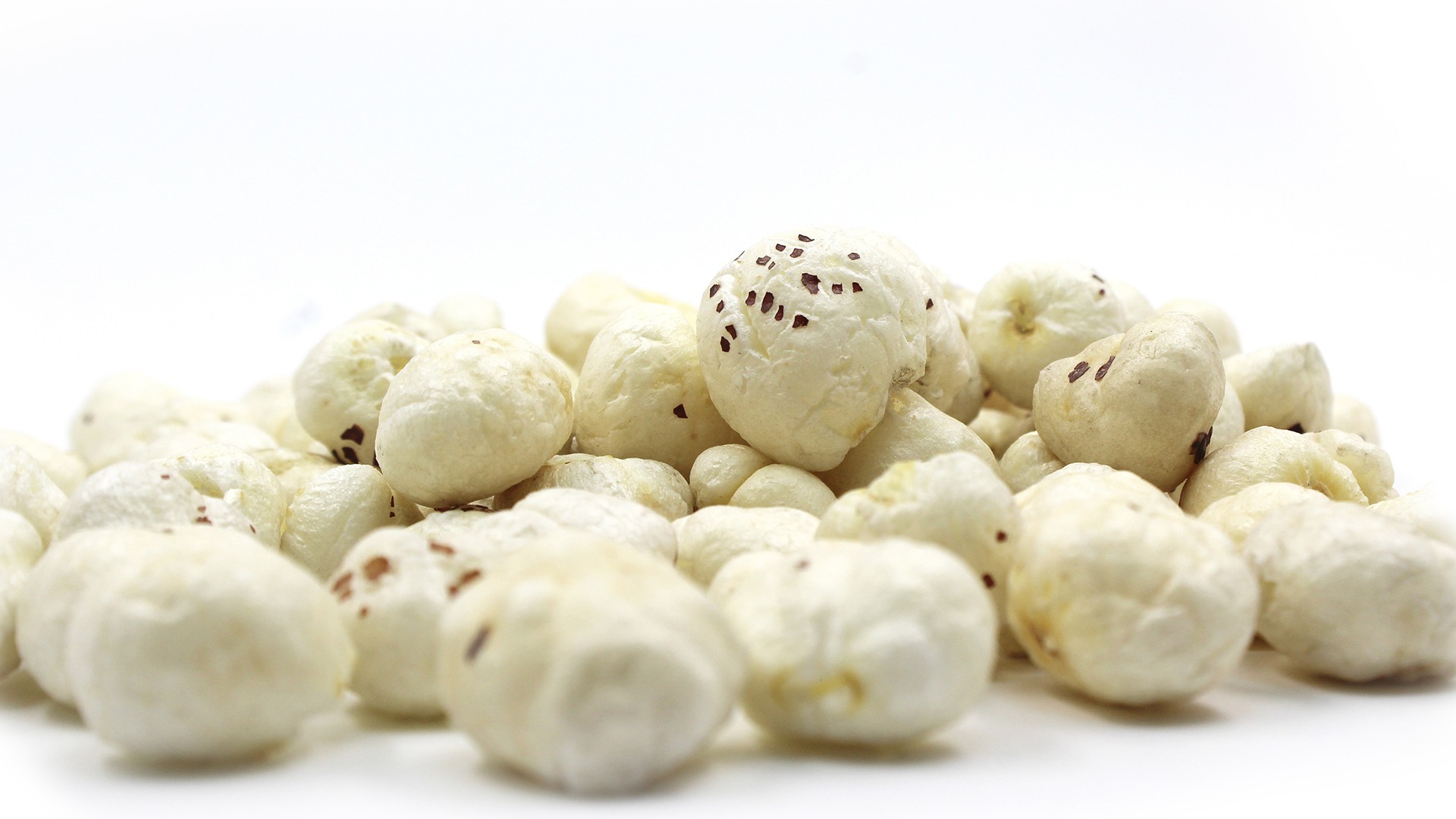 It is high in magnesium, potassium, and calcium and low in sodium. So, it is a good option for hypertensive patients also.
It is high in magnesium, potassium, and calcium and low in sodium. So, it is a good option for hypertensive patients also.
10. Green tea
In addition to flavonoids, green tea is also an excellent source of epigallocatechin gallate (EGCG). This compound is lost from the black tea during the process of fermentation. Green tea is also a good source of L-theanine.
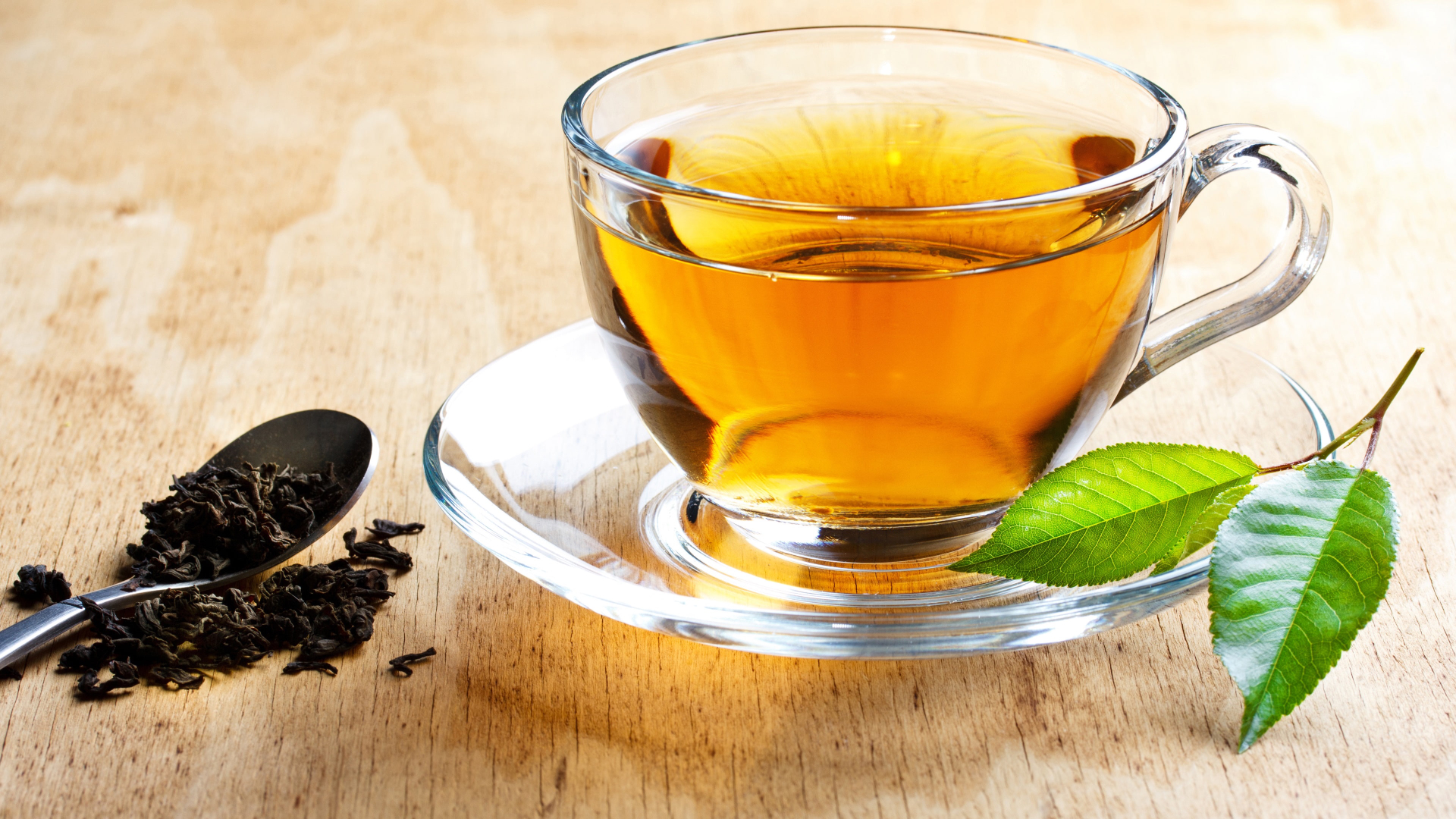
L-theanine may aid in the production of germ-fighting compounds in your T cells.
11. Papaya
Papaya is loaded with Vitamin C. It also contains a digestive enzyme, papain which also has an anti-inflammatory action on the body.
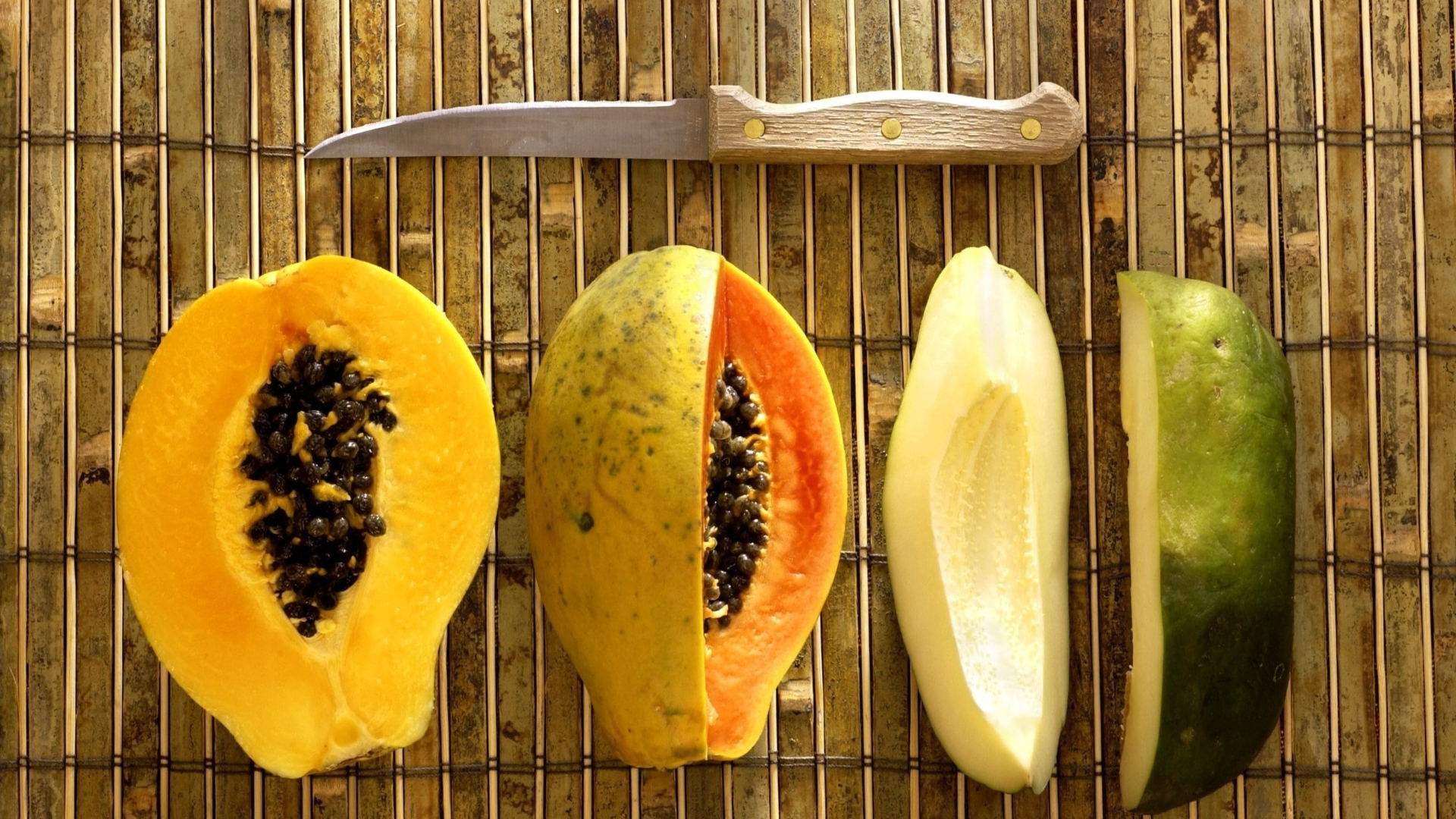
It is also a decent source of potassium, magnesium, and folate.
12. Kiwi
The Vitamin C present in kiwi boosts white blood cells to fight infection.
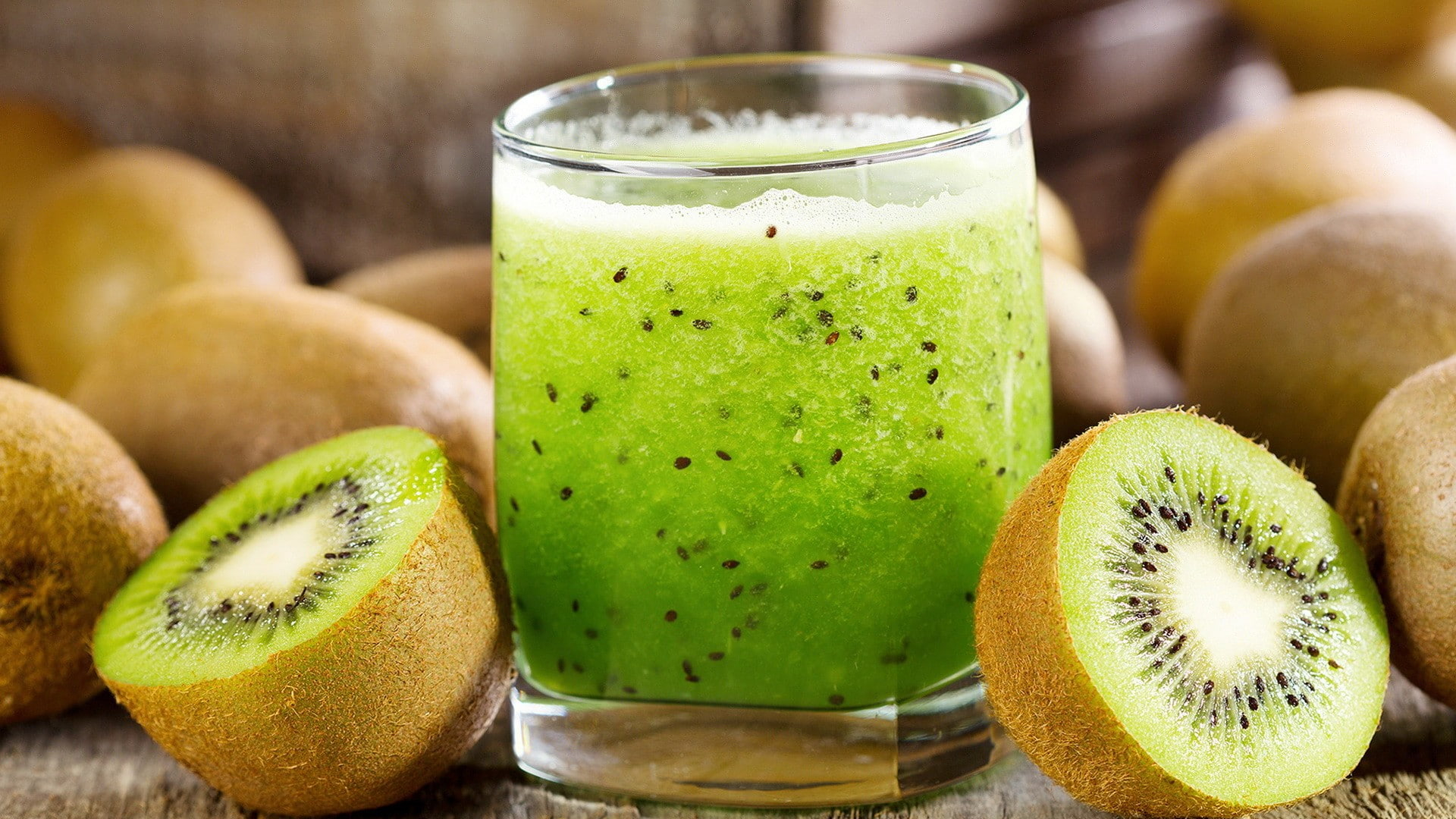
In addition, kiwi is also a good source of folate, potassium, and vitamin K.
4 Foods that can weaken your immunity during Navratri fast
1. Added sugar
Foods that increase the blood sugar levels significantly, like foods rich in added sugar, increase the production of inflammatory proteins like tumor necrosis alpha (TNF-α), C-reactive protein (CRP), and interleukin-6 (IL-6), all of which negatively affect immune function.

It is especially harmful to diabetic people, as they have elevated blood sugar levels for longer when compared with people with well-regulated blood sugar levels.
2. Salty foods
Salty foods like chips and vrat-special packaged namkeens present in the market may also impair your immune response.
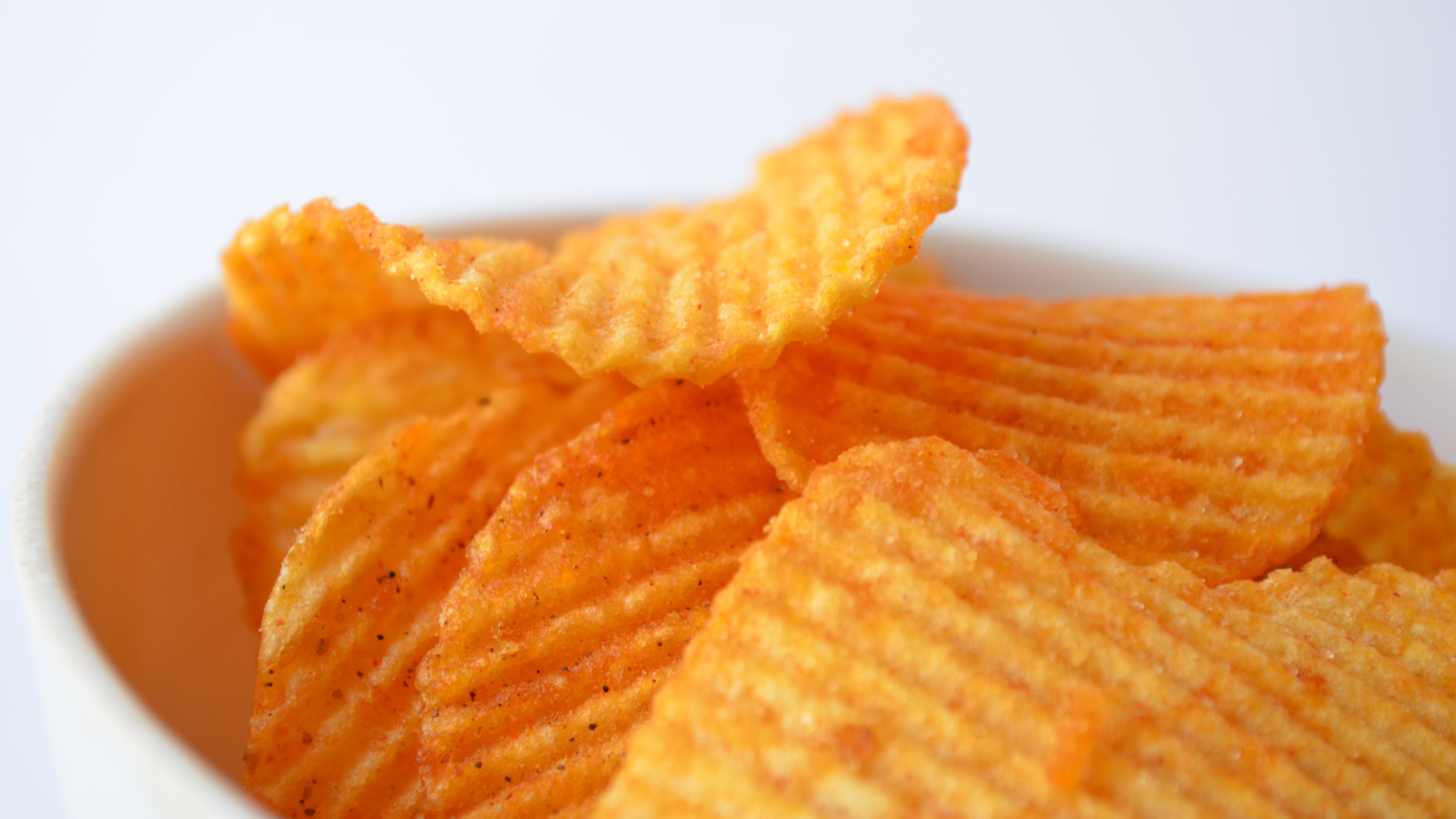
High salt may trigger tissue inflammation and increase the risk of autoimmune disease.
3. Omega-6 fats-rich food
Both omega-3 and omega-6 are needed by our body to function.

Diets high in omega-6 fats seem to promote the expression of pro-inflammatory proteins that may weaken the immune response, while diets higher in omega-3 fats reduce the production of those proteins and enhance immune function. Vrat special thalis, namkeens, and other fancy food items present in the market are normally high in omega-6 fats.
4. Fried foods
When foods are fried, a group of molecules, called advanced glycation end products (AGEs) are formed. AEGs are formed when sugars react with proteins or fats during high-temperature cooking.
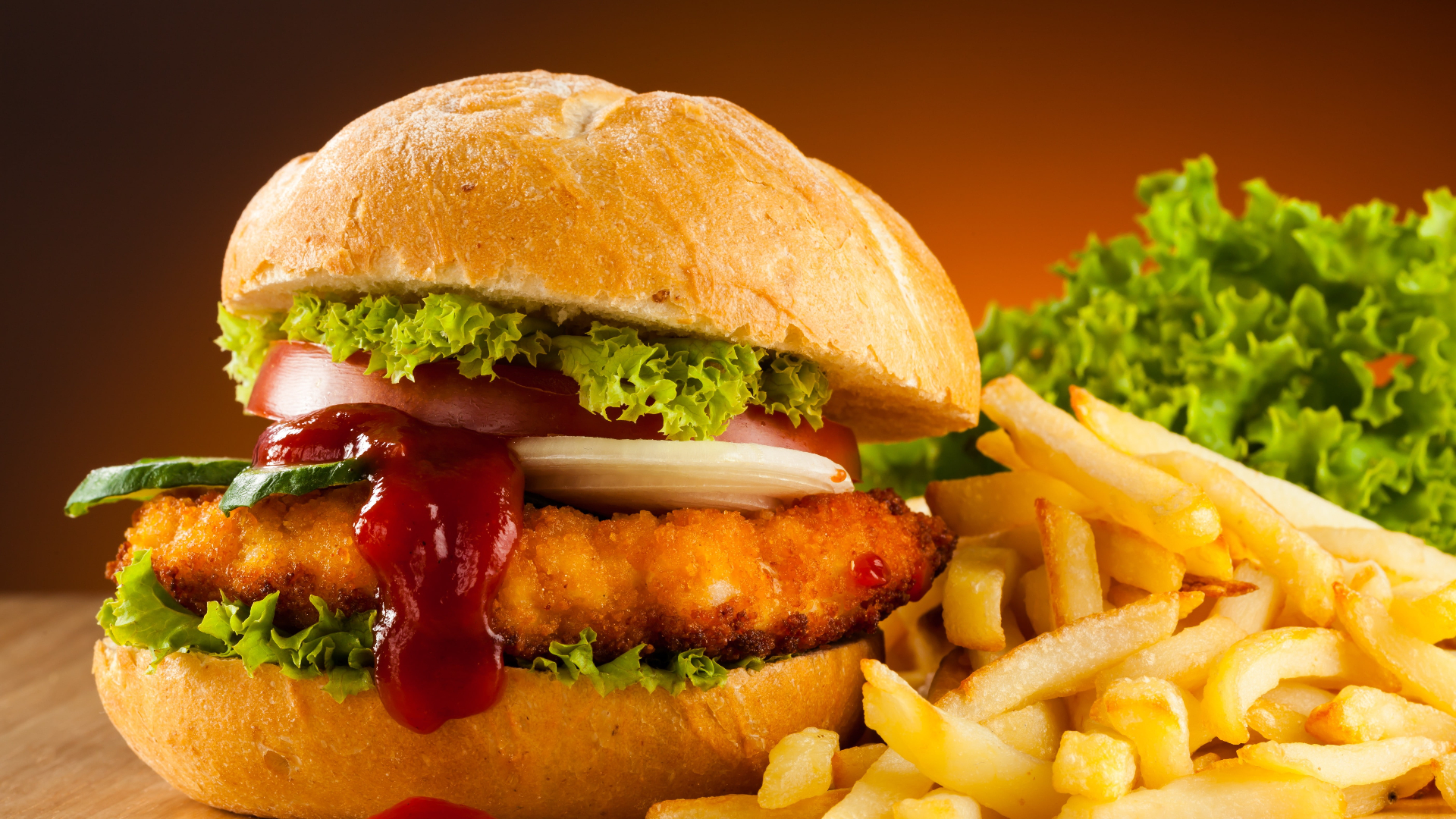
High levels of AGEs in the body may contribute to inflammation and cellular damage. This chemical is also known to weaken the immune system in various ways. So, avoid fried foods like chips and french fries.
Muscle Gain Diet Plan
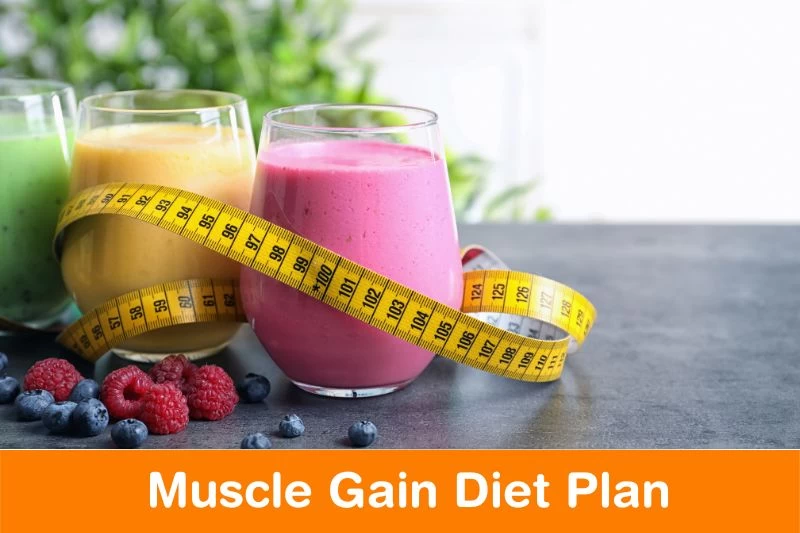
Subscription Plan
I. Introduction
A. Brief overview of muscle gain and its significance
Exercise, nutrition, and rest increase muscle mass and strength. It's crucial for athletes, bodybuilders, and health enthusiasts. Fitness and wellness goals include muscle gain to improve metabolism, bone health, and daily functional activities. The best dietician in Delhi and Dwarka, Dr. Pankaj Kumar, advises on muscle-building diets.
B. Introduction of Dr. Pankaj Kumar as the best dietician in Delhi and Dwarka
Dr. Pankaj Kumar is the best dietician in Delhi and Dwarka for his nutrition and dietary management expertise. Dr. Kumar has helped many clients achieve their health and wellness goals with his extensive knowledge of individualised nutrition needs. His personalised approach, comprehensive knowledge, and dedication to client satisfaction have made him a trusted and sought-after dietician in Delhi and Dwarka.
C. Importance of proper dietary management for effective muscle gain
Muscle gain requires proper diet management. Protein, carbohydrates, and healthy fats help muscle growth and repair. A balanced diet fuels intense workouts and speeds recovery. Dr. Pankaj Kumar, the best dietician in Delhi and Dwarka, understands the importance of dietary management for muscle gain and provides expert nutrition advice to those seeking to maximise results.
II. Understanding Muscle Gain
A. Explanation of muscle growth process and its relationship with nutrition
Muscle hypertrophy—the enlargement of muscle fibers—is a complicated process. Progressive resistance training causes muscle fibre damage and growth. Proper nutrition provides amino acids from protein and energy from carbs and fats for muscle repair and synthesis. Dr. Pankaj Kumar, the best dietician in Delhi and Dwarka, understands the complex relationship between nutrition and muscle growth and provides tailored dietary recommendations to support this process.
B. Overview of key factors influencing muscle gain, including exercise and diet
Exercise and diet are major factors in muscle gain. Resistance training causes muscle fibre micro-tears, which the body repairs and strengthens. Protein is essential for muscle repair and growth. Consuming enough calories to meet energy needs and creating a slight caloric surplus can help build muscle. Dr. Pankaj Kumar, the best dietician in Delhi and Dwarka, considers these factors in his personalised approach to maximise muscle gain through diet and exercise.
C. Role of Dr. Pankaj Kumar in providing expert guidance for muscle gain through dietary management
Dr. Pankaj Kumar provides expert diet advice for muscle gain. He is the best dietician in Delhi and Dwarka at creating customised nutrition plans. Dr. Kumar optimises muscle growth with macronutrient distribution, meal timing, and supplementation. His targeted diets improve muscle gain and physical performance.
III. Dietary Management for Muscle Gain
A. Importance of a well-balanced diet rich in proteins, carbohydrates, and healthy fats
Dietary guidance for muscle gain is provided by Dr. Pankaj Kumar. He's the best dietician in Delhi and Dwarka at creating customised nutrition plans. To maximise muscle growth, Dr. Kumar considers macronutrient distribution, meal timing, and supplementation. He can help people gain muscle and perform better with targeted diets.
B. Emphasis on optimal nutrient timing and meal frequency for muscle growth
Muscle growth depends on nutrient timing and meal frequency. A post-workout meal or snack with protein and carbohydrates helps repair muscle and replenish glycogen stores. Having regular meals and snacks and spreading protein intake throughout the day helps maintain muscle synthesis nutrients. Dr. Pankaj Kumar, the best dietician in Delhi and Dwarka, advises on nutrient timing and meal frequency for muscle growth and recovery.
C. Dr. Pankaj Kumar's specialized dietary recommendations and personalized meal plans for muscle gain
Dr. Pankaj Kumar provides customised muscle-building diets and meal plans. He optimises muscle growth by taking into account body composition, fitness goals, and diet. Dr. Kumar emphasises protein, nutrient-dense carbohydrates, and healthy fats for workouts, recovery, and muscle hypertrophy. His expertise ensures muscle gain with customised meal plans.
IV. Key Nutrients and Foods for Muscle Growth
A. Importance of protein intake and sources of high-quality proteins
Protein is essential for muscle growth because it provides amino acids for muscle repair and growth. Lean meats, poultry, fish, eggs, dairy, legumes, and plant-based proteins provide complete amino acid profiles. Dr. Pankaj Kumar, the best dietician in Delhi and Dwarka, emphasises meeting individual protein needs and recommends incorporating diverse and nutrient-rich protein sources into the diet for optimal muscle growth.
B. Incorporating complex carbohydrates and healthy fats into the diet for sustained energy
Complex carbohydrates and healthy fats are essential for muscle gain energy. Complex carbohydrates like whole grains, fruits, and vegetables release glucose steadily, providing energy for workouts and recovery. Avocados, nuts, and olive oil provide essential fatty acids and satiety. Dr. Pankaj Kumar, the best dietician in Delhi and Dwarka, recommends eating these nutrient-rich foods for energy and muscle growth.
C. Highlighting specific nutrient-rich foods that support muscle growth and recovery
Nutrient-rich foods aid muscle growth and recovery. Chicken and turkey are high-protein lean meats. Greek yoghurt and cottage cheese contain protein and calcium for bone health. Eggs, quinoa, nuts, and seeds supply vitamins, minerals, and amino acids. The best dietician in Delhi and Dwarka, Dr. Pankaj Kumar, recommends these nutrient-dense foods to boost muscle growth and post-workout recovery.
V. Supplementation and Muscle Gain
A. Discussion of potential benefits and considerations of dietary supplements for muscle gain
Dietary supplements may help build muscle, but Dr. Pankaj Kumar advises caution. Whey protein, creatine, and BCAAs may boost muscle growth and workout performance. However, supplements should not replace a healthy diet. Dr. Kumar customises supplement recommendations to maximise muscle gain safely and effectively.
B. Dr. Pankaj Kumar's expert advice on appropriate supplementation, if necessary
Dr. Pankaj Kumar advises caution when using dietary supplements for muscle gain. Whey protein, creatine, and BCAAs may boost workout performance and muscle growth. Supplements should supplement a healthy diet, not replace it. To maximise muscle gain safely and effectively, Dr. Kumar recommends dietary supplements based on individual needs and goals.
C. Importance of consulting with Dr. Kumar for personalized supplementation guidance
For personalised supplementation advice, Dr. Pankaj Kumar, the best dietician in Delhi and Dwarka, is essential. He is well-versed in nutritional science and supplement risks. Dr. Kumar recommends supplements after assessing needs, goals, and medical history. He can help people choose muscle-building supplements that are healthy and safe.
VI. Lifestyle Factors and Muscle Gain
A. Exploring the significance of sleep, hydration, and stress management in muscle growth
Sleep, hydration, and stress management help muscle growth. Sleep helps muscle recovery and hormone regulation. Hydration improves muscle function and nutrient delivery. Stress management reduces muscle breakdown and improves health. Dr. Pankaj Kumar, the best dietician in Delhi and Dwarka, recommends healthy sleep, hydration, and stress-reduction to boost muscle growth and fitness.
B. Dr. Pankaj Kumar's recommendations for optimizing lifestyle factors to support muscle gain
Dr. Pankaj Kumar offers lifestyle tips for muscle gain. He recommends getting enough sleep, hydrating, and managing stress. Dr. Kumar also recommends regular exercise and healthy lifestyle choices. His advice helps clients optimise their lifestyles for muscle growth and fitness success.
C. Emphasizing the holistic approach to muscle gain through proper nutrition and healthy habits
Dr. Pankaj Kumar stresses nutrition and healthy habits for muscle gain. He thinks muscle growth requires more than macronutrients and exercise. Dr. Kumar recommends a balanced diet, regular exercise, adequate rest, stress management, and a healthy lifestyle. These factors can maximise muscle gain and fitness success.
VII. Conclusion
A. Recap of the importance of dietary management for muscle gain
Muscle growth and repair depend on proper nutrition. The best dietician in Delhi and Dwarka, Dr. Pankaj Kumar, emphasises a balanced diet with enough protein, complex carbohydrates, and healthy fats. His expertise ensures personalised meal plans and nutrition advice for muscle gain. Diet management helps people gain muscle and improve fitness.
B. Encouragement to seek expert guidance from Dr. Pankaj Kumar, the best dietician in Delhi and Dwarka
For muscle gain, consult Dr. Pankaj Kumar, the best dietician in Delhi and Dwarka. Dr. Kumar tailors nutrition and fitness advice to individual needs and goals. His knowledge helps people gain muscle while staying healthy. Dr. Kumar can help people gain muscle confidently and efficiently.
C. Emphasis on the potential for achieving optimal muscle gain and overall well-being through proper dietary management.Dietary management is essential for optimal muscle gain and health. Dr. Pankaj Kumar, the best dietician in Delhi and Dwarka, knows that a well-balanced diet tailored to individual needs can boost muscle growth, performance, and health. Proper nutrition optimises body composition, strength, and well-being. Dr. Kumar helps people use dietary management to reach their fitness goals and live a happy, healthy life.
Ketogenic Diet (Keto-Diet)

Subscription Plan
| Duration | Price | |
| 4 WEEKS GOLD PLANS | Rs 7000 | Express Checkout |
| Duration | Price | |
| 4 WEEKS DIAMOND PLANS | Rs 9999 | Express Checkout |
| Duration | Price | |
| Express checkout |
Table of Contents
- What is Ketogenic Diet (Keto Diet)?
- Read complete about the ketogenic diet here
- Buy Our Keto Plan - Supervised by Dr. Pankaj Kumar
- Frequently asked questions on the keto diet
- 1. Can I eat carbs in near future? Yes, you can. Initially, it’s very important to reduce your carbs significantly. After 2 to 3 months, have controlled amounts of carbs on special occasions and return to your diet immediately.
- 2. Will there be muscle loss during the keto diet?
- 3. Can muscle build if I am on a keto diet? Yes, but not as well as on a moderate carbs diet.
- 4. What will be the proportion of protein in my diet?
- 5. I am constantly tired, weak, or fatigued. How to come out of this?
- 6. Why my urine smells fruity?
- 7. What may I do to stop breathing smells?
- 8. Is ketosis extremely dangerous?
- 9. I am suffering from diarrhea and digestion issues. What to do in such a situation?
- 10. What is the maximum dose of MCT oil per day?
-
- Ingredients Commonly Used In Keto Diet
- Share your idea, question, and answer with like-minded people.
- Join our weight loss forum and ask questions there.
What is Ketogenic Diet (Keto Diet)?
The ketogenic diet is a very low-carb, high-fat moderate-protein diet. Low carbohydrate generates ketones and puts you in a ketosis state. It is efficient at burning fat for energy. A ketogenic diet normalizes blood sugar and insulin levels. The keto diet is very beneficial for overweight or obese, diabetic, and for people who want to improve their metabolic health. It may be less useful for people desiring muscle or weight gain, like for elite athletes. It may not be suitable for some people’s lifestyles and preferences. Must consult your doctor about your eating plan and goals. Let him decide if a keto eating plan is right for you.
Read complete about the ketogenic diet here
Buy Our Keto Plan - Supervised by Dr. Pankaj Kumar
Frequently asked questions on the keto diet
Here are answers to some of the most common questions about the ketogenic diet.
1. Can I eat carbs in near future?
Yes, you can. Initially, it’s very important to reduce your carbs significantly. After 2 to 3 months, have controlled amounts of carbs on special occasions and return to your diet immediately.
2. Will there be muscle loss during the keto diet?
Yes, there is always a risk of muscle loss during any diet. But protein intake in appropriate amounts and high ketone levels minimizes muscle loss, especially if you lift weights.
3. Can muscle build if I am on a keto diet?
Yes, but not as well as on a moderate carbs diet.
4. What will be the proportion of protein in my diet?
Always take protein in a moderate amount during the keto diet, as very high protein will liberate glucose and will spike insulin levels and lower ketones. Your protein intake must not increase more than 35% of your total calorie intake.
5. I am constantly tired, weak, or fatigued. How to come out of this?
Your body may not be utilizing fats and ketones efficiently, i.e. not in full ketosis. Lower your carb intake. You may take MCT oil or ketones supplements to reveal these problems.
6. Why my urine smells fruity?
The fruity smell of urine is just due to the excretion of by-products created during ketosis. There is nothing to worry about as such.
7. What may I do to stop breathing smells?
Breath smell is a common side effect of the keto diet. You may try some naturally flavored water or sugar-free gum to get rid of this.
8. Is ketosis extremely dangerous?
No, but ketoacidosis is dangerous. Ketosis on a ketogenic diet is usually fine for healthy people. People often confuse ketosis with ketoacidosis. Consult your doctor before starting any new diet.
9. I am suffering from diarrhea and digestion issues. What to do in such a situation?
This is a common side effect of the keto diet, which usually starts post 3 to 4 weeks starting the diet. If the symptoms persist, take more high-fiber vegetables.
10. What is the maximum dose of MCT oil per day?
MCT oil doesn’t have a defined tolerable upper intake level till now, but a maximum daily dose of 4–7 tablespoons (60–100 mL) has been suggested.
|
1 |
Meat |
Red Meat Steak Ham Sausage Bacon Chicken Turkey |
|
2 |
Fatty Fish |
Salmon Trout Tuna Mackerel |
|
3 |
Eggs |
Pastured Or Omega-3 Whole Eggs |
|
4 |
Butter And Cream |
Grass-Fed Butter Heavy Cream |
|
5 |
Cheese |
Unprocessed Cheeses Like Cheddar Goat Cheese Cream Cheese Blue Cheese Mozzarella Cheese |
|
6 |
Nuts And Seeds |
Almonds Walnuts Flaxseeds Pumpkin Seeds Chia Seeds |
|
7 |
Healthy Oils |
Extra Virgin Olive Oil Coconut Oil Avocado Oil |
|
8 |
Avocados |
Whole Avocados Freshly Made Guacamole |
|
9 |
Low Carb Veggies |
Green Veggies Tomatoes Onions Peppers |
|
10 |
Condiments |
Salt Pepper Herbs Spices |
Share your idea, question, and answer with like-minded people.
Join our weight loss forum and ask questions there.
Useful Links:
How To Get Enrolled? I Register/log in I Blog I Subscription Plans I Calculator I Exercises I All Testimonials I Before and After I Recipe I Amazon Pantry I Shop with Amazon I Amazon Daily Deals I Facebook I Twitter I Linkedin I Youtube
Gout / High Uric Acid Diet
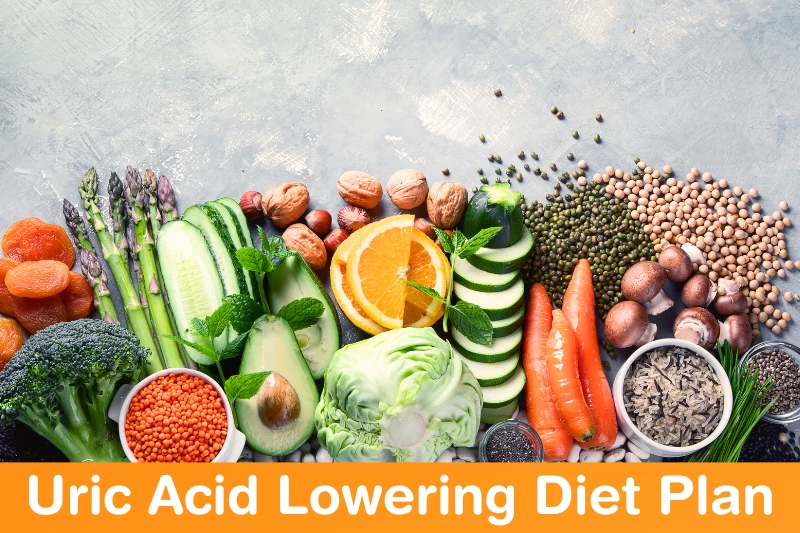
Subscription Plan
| Duration | Price | |
| 4 WEEKS DIAMOND PLANS | Rs 7000 | Express Checkout |
| 14 WEEKS DIAMOND PLANS | Rs 20000 | Express Checkout |
| Duration | Price | |
| Express checkout |
Table of Contents
- High Uric Acid Diet
- What Is High Uric Acid?
- What Causes High Uric Acid?
- How To Cure High Uric Acid With Diet?
- How To Get Enrolled?
- Useful Links:
- Register/Login ♦ Blog ♦ Subscription Plans ♦ Calculator ♦ Exercises All Testimonials ♦ Before and After ♦ Recipe ♦ Amazon Pantry ♦ Amazon Daily Deals ♦ Shop with Amazon ♦ Disclaimer ♦ Privacy Policy ♦ Terms and Conditions ♦ Facebook ♦ Twitter ♦ Linkedin ♦ Youtube
High Uric Acid Diet
High uric acid is most commonly detected while undergoing blood tests for any other medical condition. It is usually diagnosed incidentally and therefore, most people don’t know they have it till it worsens. Millions of cases of high uric acid are reported throughout the world every year. But, did you know it can be taken care of just by following a proper diet? Let’s see how!
What Is High Uric Acid?
High uric acid, also known as hyperuricemia, is a condition that is caused when high levels of uric acid are present in the blood. If this high concentration of uric acid is not removed in time, it forms crystals of uric acid. These crystals ultimately settle in the joints of bones, thereby leading to a condition called gout and it can be very painful. Moreover, the crystals of uric acid can also settle in the kidneys and form kidney stones. In such a severe condition, your blood and urine can turn acidic too.
High uric acid levels require immediate action and so dietplusminus urges you to get medical attention as soon as possible, otherwise, it can eventually lead to permanent bone and tissue damage, heart disease, etc. Advanced research has shown also shown that type 2 diabetes, high blood pressure, and fatty liver disease are somehow linked to high uric acid levels. This condition is more commonly seen in men than in women. In the case of men, it usually occurs after 30, and in women, it commonly occurs after menopause (around 50).
What Causes High Uric Acid?
Uric acid is actually a waste product and so your body filters it out through kidneys and in the urine. So, high uric acid levels are most commonly caused when your kidneys malfunction. If your kidneys fail to eliminate uric acid efficiently, then the acid stays in your body. However, there are some things that can slow down the process of the elimination of uric acid. These include rich foods, medical conditions like diabetes, obesity, excess alcohol consumption, stress, etc. Genetics can also play a role in this.
Some other less common factors include a purine-rich diet (liver, gamer meat, sardines, gravy, dried peas and beans, mushrooms, etc.), your body producing excess uric acid, certain diuretics, immune-suppressing drugs, vitamin B-3, certain cancers/chemotherapy, etc.
How To Cure High Uric Acid With Diet?
The best way to reduce high uric acid levels is by following a gout-friendly diet. Your diet must be low in purines. So, your diet should compromise of fruits (cherries can help to lower uric acid levels and inflammation), vegetables (potatoes, peas, eggplants, dark and green leafy veggies, etc.), legumes (lentils, beans, etc.), nuts and seeds, whole grains, etc. All dairy products are safe for you, but dietplusminus recommends consuming low-fat dairy products. Further, eggs and beverages (like coffee, tea, green tea) are all recommended.
You also, strictly, need to avoid some foods that contain high levels of purines. These include all organ meats (liver, kidneys, etc.), game meats, fish, yeasts, white bread, cakes, cookies, etc. Additionally, you should also avoid sugary drinks such as soft drinks. Dietplusminus recommends you maintain a healthy weight and exercise regularly. Plus, drinking plenty of water and cutting down on alcohol can also help.
Buy ebook
How To Get Enrolled?
Useful Links:
Register/Login ♦ Blog ♦ Subscription Plans ♦ Calculator ♦ Exercises All Testimonials ♦ Before and After ♦ Recipe ♦ Amazon Pantry  ♦ Amazon Daily Deals ♦ Shop with Amazon ♦ Disclaimer ♦ Privacy Policy ♦ Terms and Conditions ♦ Facebook ♦ Twitter ♦ Linkedin ♦ Youtube
♦ Amazon Daily Deals ♦ Shop with Amazon ♦ Disclaimer ♦ Privacy Policy ♦ Terms and Conditions ♦ Facebook ♦ Twitter ♦ Linkedin ♦ Youtube
Healthy Diet Plan

Subscription Plan
| Duration | Price | |
| 4 WEEKS DIAMOND PLANS | Rs 7000 | Express Checkout |
| Duration | Price | |
| 14 WEEKS PLATINUM PLANS | INR 20000 | Express checkout |
Healthy Diet Plan
A healthy diet is defined as one which contains the various groups of foodstuffs such as energy-yielding foods, body-building foods, and protective foods in the correct proportions so that the individual is assured of obtaining the minimum requirements of all the nutrients. The components of a healthy diet will differ according to age, sex, physical activity, economic status, and physiological state, viz. pregnancy, lactation, and different age groups.
Consuming a healthy diet throughout the life-course helps to prevent malnutrition in all its forms as well as a range of noncommunicable diseases (NCDs) and conditions. However, increased production of processed foods, rapid urbanization, and changing lifestyles have led to a shift in dietary patterns. People are now consuming more foods high in energy, fats, free sugars, and salt/sodium, and many people do not eat enough fruit, vegetables, and other dietary fiber such as whole grains.
Healthy Eating for a Healthy Weight
Emphasizes fruits, vegetables, whole grains, and fat-free or low-fat milk and milk products.
Includes lean meats, poultry, fish, beans, eggs, and nuts.
Is low in saturated fats, trans fats, cholesterol, salt (sodium), and added sugars.
Stays within your daily calorie needs.
9 tips for healthy eating
Do not skip your breakfast
Drink plenty of water (6 to 8 glasses)
Do regular exercise and maintain a healthy weight
Eat less salt (not more than 6 gms)
Restrict your sugar intake
Cut down on saturated fat
Eat more fish, including a portion of oily fish
Eat lots of fruits and vegetables
Base your meal on high fiber starchy carbohydrates
Seven essential factors for a balanced diet
carbohydrates
proteins
fats
fiber
vitamins
minerals, and
water
The percentage requirement of these factors differs from person to person. We are here to weave a diet completely according to your need. We at diet plus minus provide food and nutrition information and support people to improve their health. We provide advice on nutrition-related matters.
How To Get Enrolled?
Useful Links:
Register/Login I Blog I Subscription Plans I Calculator I Exercises I All Testimonials I Before and After I Recipe I Amazon Pantry I Amazon Daily Deals I Shop with Amazon I Disclaimer I Privacy Policy I Terms and Conditions I Facebook I Twitter I Linkedin I Youtube
Renal Diet Plan

Subscription Plan
| Duration | Price | |
| 14 WEEKS DIAMOND PLANS | INR 30000 | Express checkout |
| 4 WEEKS DIAMOND PLANS | INR 7000 | Express checkout |
I. Introduction to Renal Diet
A. Brief overview of renal disease and its impact on kidney health
Renal disease includes CKD and renal failure. These conditions can impair the kidneys' waste-filtering and fluid-electrolyte balance. Renal disease untreated can cause high blood pressure, fluid retention, and electrolyte imbalances, which can harm health. Maintaining kidney health and preventing damage requires diet and lifestyle management.
B. Introduction of Dr. Pankaj Kumar as the best dietician in Delhi and Dwarka, specializing in renal nutrition
Renal nutritionist Dr. Pankaj Kumar is famous in Delhi and Dwarka. He is a top dietician in renal disease management. Dr. Kumar helps renal patients optimise their nutrition and kidney health with personalised advice. His comprehensive approach and tailored diet plans make him a trusted renal nutritionist in Delhi and Dwarka.
II. Importance of Dietary Management in Renal Health
A. Explanation of the role of diet in managing kidney function and preventing complications
Renal disease management and prevention depend on diet. A well-planned renal diet reduces kidney workload, balances nutrients, and controls fluid and electrolytes. Limiting sodium, potassium, and phosphorus while consuming enough protein and calories is typical. A proper renal diet can reduce symptoms, slow disease progression, and reduce complications, improving kidney function and quality of life.
B. Highlighting the significance of personalized diet plans in renal health management
Personalised diet plans help manage renal health by taking into account an individual's needs, preferences, and medical conditions. Dr. Pankaj Kumar, the best dietician in Delhi and Dwarka, tailors diet plans to renal disease patients' needs. He optimises nutrition, manages kidney function, and prevents complications by providing personalised guidance. This personalised approach improves renal patients' diets and well-being.
III. Key Principles of a Renal Diet
A. Emphasis on controlling sodium, potassium, and phosphorus intake
Renal health requires sodium, potassium, and phosphorus control. Excess potassium, phosphorus, and sodium can strain the kidneys and cause fluid retention and high blood pressure. Dr. Pankaj Kumar emphasises monitoring and limiting these minerals through diet. He promotes renal health and well-being by providing guidelines and meal plans to maintain a healthy balance and prevent kidney damage.
B. Importance of adequate protein consumption and selecting high-quality sources
Maintaining muscle mass and supporting bodily functions requires adequate protein intake for renal health. However, choosing high-quality protein sources reduces kidney stress. Dr. Pankaj Kumar, the best dietician in Delhi and Dwarka, recommends lean proteins like poultry, fish, and plant-based sources for renal diets. He optimises protein intake and sources to ensure patients get enough nutrients and manage kidney health.
C. Incorporating nutrient-rich foods to support overall health and well-being
Especially for renal disease patients, nutrient-rich foods are essential. Dr. Pankaj Kumar, a famous Delhi and Dwarka dietician, recommends including fruits, vegetables, whole grains, and healthy fats in the renal diet. These foods provide vitamins, minerals, and antioxidants for optimal health and healing. Dr. Pankaj Kumar emphasises nutrient-rich foods to give patients a balanced diet that supports renal health.
IV. Dr. Pankaj Kumar's Expert Guidance in Renal Diet Management
A. Overview of Dr. Kumar's specialized knowledge and experience in renal nutrition
Dr. Pankaj Kumar is the renal dietician to see. Dr. Kumar tailors dietary plans to individual needs, restrictions, and goals. He advises on nutrient management, fluid balance, and diet for kidney health. Dr. Pankaj Kumar, the best dietician in Delhi and Dwarka, helps renal patients with his expertise.
B. Description of personalized dietary plans and consultation services offered
Dr. Pankaj Kumar creates renal disease-specific diets and consultations. He customises meal plans to promote kidney health, manage nutrient imbalances, and prevent complications. Dr. Kumar advises on portion control, food choices, and dietary changes to optimise renal function and well-being. He provides ongoing support, monitoring, and adjustments to help patients reach and maintain their renal health goals.
C. Highlighting Dr. Kumar's role in providing ongoing support and monitoring for renal health management
Dr. Pankaj Kumar supports renal health patients. He provides renal nutrition advice to improve diet and lifestyle. Dr. Kumar adjusts his patients' diets based on their progress. His comprehensive approach helps patients manage their renal health and improve their quality of life.
V. Importance of Compliance and Regular Monitoring
A. Emphasizing the need for adherence to the renal diet plan for optimal results
Renal health management requires renal diet plan compliance. Dr. Pankaj Kumar advises following the diet to maintain nutrient balance and reduce kidney stress. Renal diets help people manage their condition and improve kidney function. Dr. Kumar helps patients stick to their diet, improving outcomes and quality of life.
B. Highlighting the importance of regular check-ups and monitoring of kidney function
Renal dietters need regular kidney function checks. Dr. Pankaj Kumar stresses the importance of blood, urine, and blood pressure tests for kidney health. These check-ups detect changes and complications early, enabling appropriate treatment. Dr. Kumar's expertise and regular monitoring help patients manage their renal health and make necessary dietary changes to optimise kidney function and overall health.
C. Encouragement to seek expert guidance from Dr. Pankaj Kumar for effective dietary management of renal health
Dr. Pankaj Kumar, the best dietician in Delhi and Dwarka, advises renal health patients on diet. Dr. Kumar's renal nutrition expertise allows him to create customised diets and consult with patients. Dr. Kumar can help patients manage their renal health by providing support, education, and monitoring. This improves their overall health and quality of life.
Post-Pregnancy Diet

Subscription Plan
| Duration | Price | |
| 4 WEEKS DIAMOND PLANS | Rs 7000 | Express Checkout |
| 14 WEEKS DIAMOND PLANS | Rs 20000 | Express Checkout |
| Duration | Price | |
| Express checkout |
Post-Pregnancy weight loss Program
Losing stubborn pregnancy fat and becoming slim again is a concern of every new mom. But realistically, it is a little difficult to shed off all the extra pregnancy pounds without following a diet. Now, the question arises which diet to follow to become fit again? Here, the most important thing to notice is that you are a new mom having the responsibility of feeding your child and taking care of him/her. A strict diet plan would do more harm than good to a recent mother.
So, while you are deciding to follow a diet plan, be conscious about what you eat because it is directly going to affect your baby. You can trust dietplusminus to carve out the perfect post-pregnancy diet plan for you which you can follow fearlessly to help yourself become slim once again!
Why should you go for a post-pregnancy diet?
Before you go directly towards the diet plan, let’s take a glimpse at why you should follow a post-pregnancy diet and what are its benefits.
It is common for pregnant women to get extra fat after giving birth. However, it is not necessary to remain continually fat. Some may ignore the extra pounds but to some of you, it is a matter of concern. It may even affect your personality and health indirectly. So, even if you are not willing to become fit, nevertheless from the health point of view, you should definitely follow a good diet plan to improve your and your baby’s overall health.
Which nutrients to include in a post-pregnancy diet?
There should be a balanced ratio of every nutrient in your diet, however, there are some important nutrients that you should definitely include in your post-pregnancy diet.
The first such nutrient is Calcium. It is very important as seen from the breastfeeding point of view, because if your diet lacks calcium, your body may draw it from the bones which are extremely harmful. Iron and Choline are equally important for you and your baby to develop a good memory and a responsive nervous system. Omega 3 fatty acids are essential and always recommended as important constituents of a post-pregnancy diet. So, don’t forget to include these nutrients in your diet.
Post-pregnancy diet plan
Here are some essential food items suggested by dietplusminus that you must include in your diet plan.
- Salmon- Salmon fish is a powerhouse of nutrients. It is loaded with DHA and nutrients.
- Dairy products- Low-fat dairy products like milk and cheese are highly recommended for a healthy diet plan.
- Blueberries- Blueberries are rich in vitamins and minerals and are tasty as well.
- Oranges- Oranges provide energy and certain essential nutrients along with a great amount of vitamin C.
- Eggs- Eggs are power boosters as they fulfill the body’s need for protein to a great extent and are highly recommended for the post-pregnancy diet.
- Brown rice-Brown rice will give you an energy boost without increasing the fat content.
How does it work?
Choose diet packages as per your need or call us to help you in choosing the best suitable package. We recommend you do some basic blood and urine tests and consult with Dr. Pankaj Kumar.
- Complete Blood Count (CBC)
- Liver Function Tests (LFT)
- Kidney Function Tests (KFT) (including Uric Acid)
- Lipid Profile
- Thyroid Profile
- Fasting Blood Sugar (FBS)
- Glycosylated Hemoglobin (HbA1c)
- Fasting Insulin Level
- Urine Analysis
- USG Abdomen (Optional)
(If you have done tests in the last 3 months then please submit, no need to do tests again)
Know more about Dr. Pankaj Kumar
Why Dr. Pankaj Kumar's Lifestyle Modification Program
How To Get Enrolled?
Other useful Links:
Register/Login I Blog I Subscription Plans I Calculator I Exercises I All Testimonials I Before and After I Recipe I Amazon Pantry 
Thyroid diet
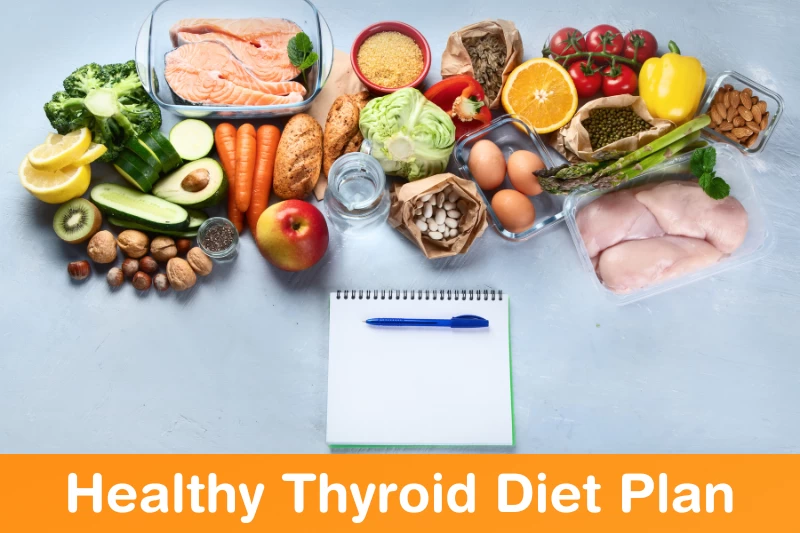
Subscription Plan
| Duration | Price | |
| 4 WEEKS DIAMOND PLANS | Rs 7000 | Express Checkout |
| 14 WEEKS DIAMOND PLANS | Rs 20000 | Express Checkout |
| Duration | Price | |
| Express checkout |
Table of Contents
- Thyroid Disease Diet Management
- What Is Thyroid Disease?
- The Symptoms of hypothyroidism include
- The symptoms of hyperthyroidism include
- What Causes Thyroid Disease?
- Thyroid Disease Diet Idea
- Avoid some foods strictly in order to keep your weight under check
- The recommended foods in case of hyperthyroidism include:
- Some foods to avoid in hyperthyroidism include:
- Hypothyroidism - low thyroid hormone - Food to eat and avoid
- Know more about Dr. Pankaj Kumar
- Why Dr. Pankaj Kumar's Lifestyle Modification Program
- How To Get Enrolled?
Thyroid Disease Diet Management
The thyroid is a gland in your neck area that controls some hormones in your body. These hormones are necessary for the proper metabolism of proteins, fats, and carbohydrates.
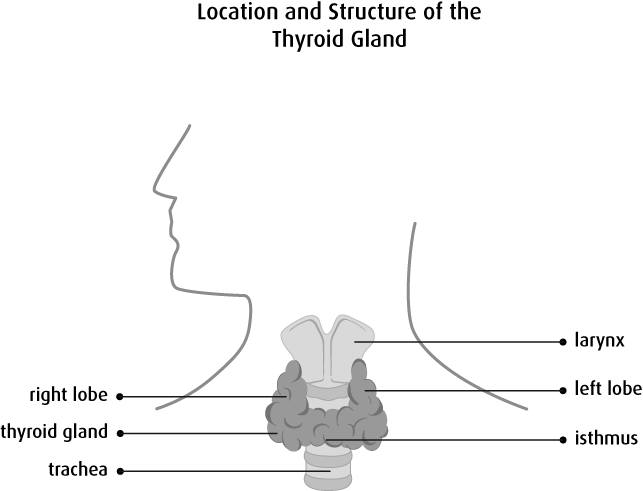
But, two common disorders (hyperthyroidism and hypothyroidism) of this gland lead to certain health issues. On this dietplusminus page, you will learn about thyroid disease and its management with a proper diet.
What Is Thyroid Disease?
Thyroid disease actually doesn’t refer to a single disorder, because there are many disorders related to the thyroid gland. But, the two most common types are hyperthyroidism and hypothyroidism. Hyperthyroidism is referred to as overactive thyroid. As the word 'hyper', which means 'more' or 'over' suggests, it is the condition in which the thyroid gland releases more amount of the hormone thyroxine than normal. On the other hand, hypothyroidism is a condition in which enough hormone is not produced by the gland.
Hypothyroidism is the more common one of the two and therefore sometimes it is directly referred to as thyroid disease. Both of them have different symptoms, but some also share some common symptoms such as enlargement of the gland (goiter). But, both have different causes and are treated very differently.
The Symptoms of hypothyroidism include
-
Constipation
-
Fatigue
-
Unexplained weight gain
-
Dry skin
-
Cold sensitivity, etc.
The symptoms of hyperthyroidism include
-
Weight loss
-
Elevated and/or irregular heart rate
-
Brittle skin
-
Irritability, etc. But, the old usually don’t experience any symptoms.
What Causes Thyroid Disease?
As already mentioned, there are different causes of the two different thyroid diseases. Hypothyroidism can be caused if your thyroid is not working as normal or if it has been removed (in cases of medical conditions like cancer). But, its most common cause is another autoimmune disorder (the body’s immune system fails to recognize its own cells and attacks them) known as Hashimoto's thyroiditis. Other causes include surgical treatment of some conditions like hyperthyroidism, thyroid cancer, etc. Some medications can also trigger hypothyroidism.
The most common cause of hyperthyroidism is another autoimmune disease called Graves' disease. Basically, this autoimmune disorder makes the thyroid gland grow abnormally large and release more hormones than required. Hyperthyroidism can also be caused due to- inflammation of the thyroid gland (thyroiditis), postpartum thyroiditis, consuming too much thyroid hormone, toxic nodular goiter, etc.
Women are more prone to develop thyroid disease than men. Further, old age, as well as family history, can also make one more prone.
Thyroid Disease Diet Idea
In this disease, a proper diet is as important as the medication itself. So both should go hand in hand. According to Dietplusminus, foods that are okay for people with hypothyroidism include:
-
Eggs (rich in iodine and selenium)
-
Meat, all types.
-
Fish, all seafood.
-
Vegetables, all vegetables. In fact, your diet should be based on vegetables.
-
Fruits like berries, bananas, tomatoes, etc.
-
All dairy products and yogurt.
Avoid some foods strictly in order to keep your weight under check
-
Avoid eating processed foods.
-
All varieties of millets.
-
Avoid taking too many supplements (iodine and selenium)
-
Avoid tofu, tempeh, soy milk, etc.
-
Broccoli, spinach, cabbage, etc.
-
Fruits like pears and strawberries.
-
All caffeinated beverages as well as alcohol.
The recommended foods in case of hyperthyroidism include:
-
Low iodine foods like egg whites, fresh fruits, oats, honey, potatoes, etc.
-
Cruciferous vegetables.
-
Iron-rich foods like dried beans, vegetables, nuts, lentils, whole grains, etc.
-
Healthy fats are present in flaxseeds, olive oil, etc.
-
Spices like turmeric, green chilies, black pepper, etc.
-
Also, take vitamin D supplements.
Some foods to avoid in hyperthyroidism include:
-
Nitrates are present in parsley, cabbage, turnip, carrots, cucumber, pumpkin, etc.
-
Gluten is present in wheat, barley, malt, etc.
-
Soy-foods.
-
Caffeinated beverages.
Reach out to us, so that we can create the perfect diet plan for you according to your lifestyle and requirements!
Hypothyroidism - low thyroid hormone - Food to eat and avoid
Know more about Dr. Pankaj Kumar
Why Dr. Pankaj Kumar's Lifestyle Modification Program
How To Get Enrolled?
Other useful Links:
Register/Login I Blog I Subscription Plans I Calculator I Exercises I All Testimonials I Before and After I Recipe I Amazon Pantry 
Health Solution By Dr. Pankaj Kumar

Subscription Plan
| Duration | Price | |
| Nutritional assessment with diet plan | 0 | Express checkout |
| Duration | Price | |
| Report analysis only | 650 | |
| Medical Consultation | 650 | |
| Report analysis with diet consultation | 1999 |
Table of Contents
- What you will get in this consultation?
- Why Dr. Pankaj Kumar's Lifestyle Modification Program?
- How To Enroll For Dr. Pankaj Kumar's Lifestyle Modification Program?
- Share your idea, question, and answer with like-minded people
- Join our weight loss forum and ask questions there. we will be happy to help you.
Dr. Pankaj Kumar after clearing MBBS from Calcutta University and DNB Family Medicine from Sir Ganga Ram Hospital, associated with Practo, DocsApp, Mfine, and many other online consultation platforms to help patients online for their day to day health-related problems. Now you can consult with Dr. Pankaj Kumar (online) for your general problem on the Diet Plus Minus platform also.
You need to pay online, after a successful transaction you will get a call at your preferred time. If you have any reports or prescriptions then please upload them after a successful transaction.
What you will get in this consultation?
1. One Online Consultation with 3 days online follow up
Why Dr. Pankaj Kumar's Lifestyle Modification Program?
How To Enroll For Dr. Pankaj Kumar's Lifestyle Modification Program?
Share your idea, question, and answer with like-minded people
Join our weight loss forum and ask questions there. we will be happy to help you.
GERD Diet Plan

Subscription Plan
| Duration | Price | |
| 4 WEEKS DIAMOND PLANS | Rs 7000 | Express Checkout |
| 14 WEEKS DIAMOND PLANS | Rs 20000 | Express Checkout |
| Duration | Price | |
| Express checkout |
Table of Contents
- Gastroesophageal Reflux Disease (GERD)
- Common symptoms associated with GERD
- Diagnosis of GERD
- Treatment options for GERD
- Difference between heartburn and GERD
- Causes of GERD
- Common causes which drive you towards GERD
- Risk factors of GERD
- Food that may trigger GERD
- GERD associated with other conditions
- Infants with GERD
- Symptoms of GERD in infants
- Serious complications associated with GERD
- Nutritional guidelines for GERD
Gastroesophageal Reflux Disease (GERD)
What are GERD and acid reflux?
This is a very common question. When the contents of the stomach move back into the esophagus, the action is called acid regurgitation or reflux. This condition is commonly called gastroesophageal reflux disease (GERD). If GERD is left untreated, it can cause serious health issues.
Common symptoms associated with GERD
One of the most common symptoms of GERD is acid reflux. A feeling of uncomfortable burning in the chest which may also migrate to the throat and neck is called acid reflux. Acid reflux can cause a sour or bitter taste in the mouth. It can also cause regurgitation of stomach contents in your mouth.
Other symptoms of GERD are:
-
Nausea
-
Bad breath
-
Hoarse voice
-
Chest pain
-
Pain and difficulty in swallowing
-
Chronic cough
Diagnosis of GERD
A doctor conducts a physical exam and asks about the symptoms you are suffering from. Certain tests may also be suggested to you, including:
|
Test |
Procedure |
|
Ambulatory 24-hour pH probe |
In this test, a small tube is inserted through your nose to the esophagus. The pH receptor at the tip of this tube measures the acid exposure of the esophagus. An individual wears this tube for 24-hours. |
|
Esophageal pH monitoring |
In this procedure, a monitor is inserted in your esophagus to check how acid is regulated in your body for a period of a few days. |
|
Upper endoscopy |
In an upper endoscopy, a flexible tube with a tiny camera is inserted into the esophagus to examine it, and also a tissue sample is collected, if needed for biopsy. |
|
Esophogram |
In this procedure, you will have to drink barium solution. After that x-ray imaging is done to examine your upper digestive tract. |
|
Esophageal manometry |
In this procedure, the strength of your esophageal muscles is measured by inserting a flexible tube into your esophagus, through the nose. |
Treatment options for GERD
Lifestyle Modification
Lifestyle modification is the key to relieving the symptoms of GERD.
Your doctor may encourage you to make certain lifestyle changes, including:
-
Weight management
-
Avoid heavy meals, especially in the evening
-
Elevate head during sleep
-
Don’t lie down just after eating, wait for a few hours
-
If you smoke, quit it
Medication
Your doctor may suggest some over-the-counter medicines to overcome the symptoms. However, every medicine has some side effects. So, don’t take any medicine without consulting with your doctor. He/she will suggest medicines best suitable for you.
Antacids: This is used occasionally for mild symptoms of acid reflux and GERD. If you take antacids regularly, you may need stronger medication.
H2 receptor blockers: H2 blockers like Pepcid AC, lower the number of acids produced by the stomach. However, a type of H2 blocker, ranitidine was recently recalled by FDA due to the presence of carcinogen N-nitrosodimethylamine (NDMA).
Proton pump inhibitors (PPIs): PPIs also decrease the amount of acids produced by the stomach, but they work better than H2 receptors. They are also known to heal the lining of the esophagus damaged due to GERD.
Surgery
In most cases of GERD, lifestyle modification and medication is enough to relieve the symptoms. But in some cases, surgery is needed. When you develop complications of GERD, your doctor may recommend surgery. There are multiple surgeries for the treatment of GERD, including fundoplication and bariatric surgery.
Home remedies
Some individuals prefer home remedies for the treatment of heartburn and acid reflux. It is ok when the symptoms are occasional. But if you are diagnosed with GERD, self-diagnosis, and self-medication may cause serious health issues. Some remedies which may harm you in place of providing relief:
|
Remedies |
Effect |
|
Milk |
Milk is alkaline, so will provide relief initially, but once the milk is digested, the fat and protein present in it may worsen the symptoms of heartburn. Low-fat milk may be easily tolerated by a few people. |
|
Baking soda and water solution |
Although baking soda is safe when consumed in small amounts, it is alkaline and can neutralize acidity. Baking soda is high in sodium, so too much consumption can cause side effects. |
|
Ginger |
Ginger is very commonly used to treat nausea. However, it is unclear how ginger helps with occasional heartburn. Several studies suggest that too much consumption of ginger may cause heartburn. |
|
Chewing gum |
Saliva is slightly alkaline. Stimulating the secretion of saliva by chewing gum after consumption of a meal may help relieve the symptoms of GERD. However, more study is needed to draw any conclusion. |
Difference between heartburn and GERD
There is a difference between heartburn and GERD. Most people experience heartburn occasionally. Occasional heartburn is not a matter of concern. But if you experience heartburn more than twice a week, and also associated chest pain and chronic cough, you should consult your doctor. It might be GERD.
Causes of GERD
There is no single cause of GERD. When a certain mechanism in your body doesn’t function properly, the chances of getting GERD increases. The lower esophageal sphincter (LES) is a circular band of muscles at the end of the esophagus. When you swallow, it opens. The rest of the time it is closed tightly. When this sphincter is not closed tightly or properly, acid reflux happens. This allows the passage of digestive juices and other contents of the stomach to the esophagus.
Common causes which drive you towards GERD
|
Hiatal hernia |
In this case, a part of the stomach moves above the diaphragm. When the diaphragm is compromised, the chance of improper working of LES increases. |
|
Lying down soon after taking a meal |
This can also create less pressure than the LES needs to function properly. |
|
Frequent consumption of large meals |
Consumption of large meals frequently results in distension of the upper part of the stomach. This distension causes improper functioning of LES. |
Risk factors of GERD
There is no single reason for GERD. Several factors give rise to the improper functioning of LES, resulting in GERD. Certain lifestyle choices and health conditions may increase the chances of GERD, including:
-
Obesity
-
Pregnancy
-
Smoking
-
Connective tissue disorder
-
Consumption of too much of certain medicines, including non-steroidal anti-inflammatory drugs, like aspirin, and ibuprofen.
-
Consumption of certain beverages, including soda, coffee, or alcohol
-
Consumption of too many fried foods
-
Consumption of large and frequent meals
-
Sleeping just after eating
-
Consumption of alcohol
-
While the connection between alcohol consumption and GERD is not clear, limiting or stopping alcohol completely has been linked with relief in GERD symptoms.
Food that may trigger GERD
There are certain food items and beverages, which may aggravate the conditions of GERD. However, the food which triggers GERD is very personal and differs from person to person, there is a list of certain food items which are more triggering than others, including:
-
Fried foods
-
Citrus fruits and their juices
-
Soda
-
Coffee
-
Mint
-
Tomato and its sauces
-
Onion
GERD associated with other conditions
Certain conditions aggravate the symptoms of GERD, including anxiety, pregnancy, asthma, and IBS.
|
Disease conditions |
Impact |
|
IBS |
IBS is a disease affecting your large intestine. It causes bloating, diarrhea, constipation, and stomach pain. According to a study, GERD is more common in people having IBS, when compared with the general population. If you have symptoms of both IBS and GERD, consult your doctor. He/she will prescribe some medications in addition to guidance for lifestyle modifications. |
|
Pregnancy |
Pregnancy increases the chances of acid reflux. If you have GERD before getting pregnant, pregnancy may worsen the condition. This is caused due to hormonal changes and increased pressure placed on the stomach due to a growing fetus. Both increase the chance of stomach contents entering the esophagus. The major concern is that every medicine is not safe during pregnancy. Must consult your doctor before taking any medicine. |
|
Anxiety |
According to a study, anxiety and heartburn are interconnected. When one increases, the symptoms of the other also get worse. Consult your doctor for lifestyle modification and medication. |
|
Asthma |
A study has reported that asthma and GERD often occur together. However, more study is needed to understand the relationship between GERD and asthma. GERD may worsen the conditions of asthma and the medication used for asthma may increase the risk for GERD. If you have asthma and GERD, try to manage both conditions with the help of a doctor. |
Infants with GERD
It’s very common for babies to spit up food, but if your baby vomits very frequently, he/she might be suffering from GERD.
Symptoms of GERD in infants
-
Recurring cough
-
Arching of back during or after feeding
-
Hiccups
-
Trouble in swallowing
-
Gagging or hiccups
-
Irritability during or after feeding
-
Refusal to eat
-
Weight loss
-
Difficulty in sleeping
Serious complications associated with GERD
Commonly, GERD doesn’t cause any serious health issues but can be fatal in some cases.
Serious complications of GERD:
|
Health issues |
Symptoms |
|
Barrett’s esophagus |
It causes a permanent change in the walls of the esophagus. |
|
Esophageal cancer |
A small portion of individuals, suffering from Barrett’s esophagus develop esophageal cancer. |
|
Esophagitis |
It is an inflammation of your esophagus |
|
Esophageal stricture |
In this case, your esophagus narrows and tightens. |
|
Other issues |
It causes enamel erosion, gum disease, and other dental problems. |
However, these complications are aroused due to untreated GERD. So, to avoid these complications, manage and treat the symptoms of your GERD with the help of your doctor.
Nutritional guidelines for GERD
There are several treatments for GERD, but lifestyle modification, including
While there are many medical treatments for GERD, changing your diet is one of the easiest and most affordable ways to manage symptoms. It can also help prevent acid reflux from happening in the first place. Although the symptoms of GERD are triggered by different food items in a different person, if you have GERD you must avoid these foods:
-
Fried foods
-
Spicy foods
-
Soda
-
Carbonated beverages
-
Mint
-
Garlic
-
Onions
Let’s discuss the food items that can be taken in moderation and that should be taken generously:
|
Food category |
To be taken into a limit |
To be included |
|
Beverages |
Mint tea |
Non-mint herbal teas |
|
Citrus juices |
Non-citrus juices |
|
|
Tomato-based drinks |
Non-fat milk |
|
|
Regular coffee |
Low-fat milk |
|
|
Decaf coffee |
||
|
Alcohol |
||
|
Whole milk |
||
|
Chocolate milk |
||
|
Carbohydrates |
Pasta in a creamy sauce |
Plain pasta |
|
Potato chips |
Boiled potatoes |
|
|
French fries |
Waffles |
|
|
Tortilla chips |
Rice |
|
|
Doughnuts |
Pancakes |
|
|
Croissants |
Tortilla |
|
|
Crackers |
||
|
Low-fat muffins |
||
Constipation Relieving Diet
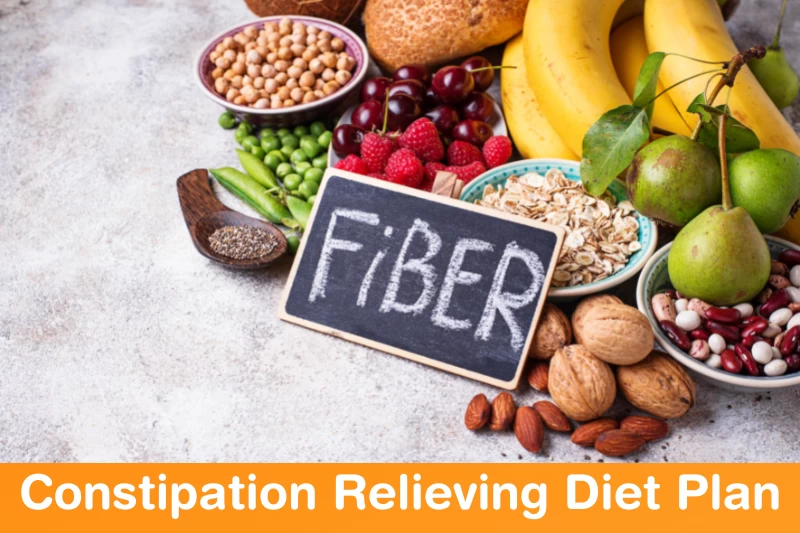
Subscription Plan
| Duration | Price | |
| 4 WEEKS DIAMOND PLANS | Rs 7000 | Express Checkout |
| 14 WEEKS DIAMOND PLANS | Rs 20000 | Express Checkout |
| Duration | Price | |
| Express checkout |
Table of Contents
- What is constipation?
- How common is constipation?
- Do I need to have a bowel movement every day?
- People who are at high risk to become constipated
- What causes constipation?
- When should I see a doctor?
- What medical tests are required to find out the reason behind constipation
- Some other common bowel function tests
- What are the possible complications of constipation?
- How can my diet help with constipation?
- Which foods have fiber?
- Some general guidelines for alleviating constipation
- These are also important regarding constipation
- Commonly asked questions on constipation
- Read more about constipation
What is constipation?
Constipation is when you have
- Fewer than three bowel movements a week
- Stools that are hard, dry, or lumpy
- Stools that are painful or difficult to pass
- A feeling that not all stools have passed (tenesmus)
so, what is a normal bowel movement?
Normal bowel movements are soft and pass easily through your body.
How common is constipation?
With the evolution of food processing techniques, people prefer to eat a more refined thing and fiber content remains outside their plate. Due to drastic change in food habit of individual cases of constipation is increasing among Indians. It is common among all ages and populations in the United States. About 16 out of 100 adults have symptoms of constipation. About 33 out of 100 adults ages 60 and older have symptoms of constipation.
Do I need to have a bowel movement every day?
No, bowel patterns can vary from person to person. Everyone doesn't need to have a bowel movement every day. Some people might go three times per day. Others might have 3 to 5 bowel movements per week. So we can say everyone has their pattern and only you know what’s normal for you.
People who are at high risk to become constipated
Certain conditions and habits increase the risk of constipation, including
- People with certain health issues, including gastrointestinal disorders
- Elderly (above 60 years)
- People eating less fiber
- Non-Caucasians
- Women, during pregnancy and after giving birth
- People on certain medication or dietary supplement
What causes constipation?
Constipation can occur with:
- A change in routine or traveling
- Bad lifestyle
- Calcium and iron supplements
- Drugs like antacids with aluminum or calcium, calcium channel blockers, antihistamines, antidepressants, anticholinergics, narcotics (such as codeine), antispasmodics, anticonvulsants, diuretics, tranquilizers, some heart medications
- Fiber intake – very less
- Fluid intake – very less
- Health conditions such as irritable bowel syndrome (IBS), colorectal cancer, eating disorders, underactive thyroid, diabetes, Parkinson’s disease, multiple sclerosis, celiac disease, hypothyroidism, and depression
- Certain inflammatory diseases, like diverticular disease or proctitis
- Intestinal obstructions like anorectal blockage or tumor and the anatomic problem of the gastrointestinal tract
- Spinal cord and brain injuries
- Ignoring the urge when you have to go to pass stool
- Pregnancy hormones
- Overuse of stool softeners (laxatives)
- Stress
- The slow movement of stool through your colon
- Delayed emptying of the colon from pelvic floor disorders, especially in women
- Colon surgery
- Old age
- Change in medicine
- Change in eating pattern
- Very low physical activity
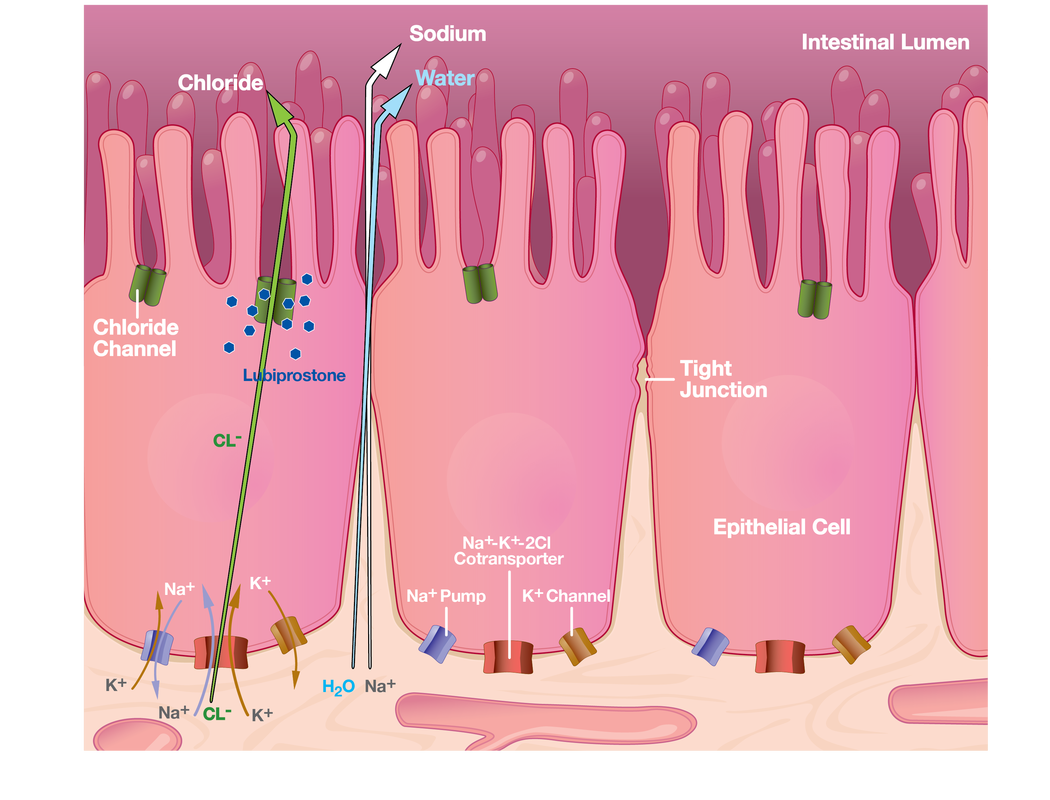
When should I see a doctor?
Consult a doctor if have any of the following:
- Sudden change in bowel movements without any change in daily routine
- Constipated for several days and diet modification have not helped
- Intense pain in the belly or rectum
- Blood in the stool or bleeding from the rectum
- constipation associated with unexplained weight loss
- Constipation that alternates with diarrhea
- Constipation with Vomiting or fever or lower back pain
- Constipation and difficulty or inability in passing gas
- It symptoms don’t go away with self-care or you have a family history of rectal or colon cancer

What medical tests are required to find out the reason behind constipation
However, the type of test depends exclusively upon your current health conditions, certain common tests are
Laboratory tests:
Some lab tests are recommended by doctors to look for the signs of certain diseases that may be the culprit for your current situations
Blood tests can show the signs of celiac disease, hypothyroidism, and anemia.
Stool tests to check for the presence of blood and signs of inflammation and infections
Urine tests to find out diseases like diabetes.
Endoscopy:
Depending upon your current health situation, your doctor may recommend endoscopy to check for any problem in your lower digestive tract including, the anus, rectum, and colon.
Main endoscopies for constipation include
- Colonoscopy
- Flexible sigmoidoscopy
During these tests, a small piece of tissue may be taken as a sample for biopsy. A biopsy is a test in which your tissues are examined under a microscope to look for the signs of cancer or some other problems.
Colorectal transit studies:
Your bowel function tests can be performed to see how well your stool moves through the colon. Test performed for colorectal transit studies are:
- Radiopaque markers
- Scintigraphy
In the radiopaque marker test, you have to swallow capsules with the markers, which take 3-7 days to come out with a bowel movement. X-ray is done to track the markers while they pass through your digestive system.
In scintigraphy, you have to eat a meal containing a small dose of a radioactive substance. Your doctor tracks the substance using special cameras, connected with a computer to check the movement of that substance through your intestines.
Some other common bowel function tests
Some more tests may be recommended for you to look for the signs of diseases that can cause constipation
- Defecography: an X-ray around the anus and rectum to check how well you can hold and release stool.
- Anorectal manometry: a test to check the sensitivity of your rectum and your anal sphincters.
- Balloon expulsion test: a test that involves pushing a small water balloon from your rectum to see if you have a problem pushing out stool Imaging tests
- In some cases, doctors prefer imaging tests to find the actual culprit.
- CT scan
- MRI
- Lower gastrointestinal series
What are the possible complications of constipation?
Possible complications from constipation include:
- Hemorrhoids
- Cracks or tears in the anus
- Muscles and ligaments weakness that hold the rectum in place
- Blockage of stool in the large intestine
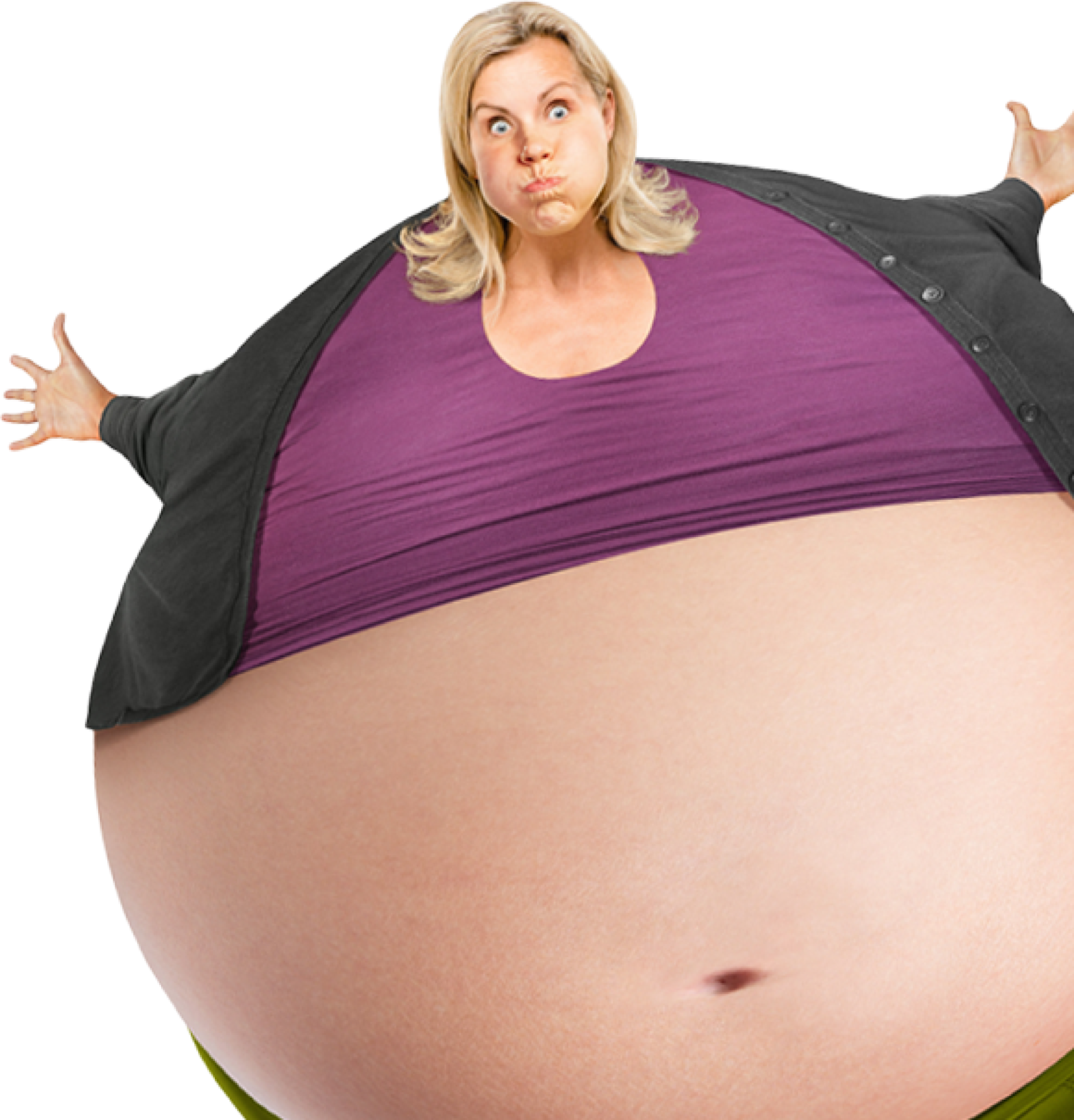
How can my diet help with constipation?
Fiber and fluids work together and keep bowel movements regular. Fibre-rich foods hold water or liquid in the stools to keep them soft. Aim to drink 2.5 to 3.5 liters of fluid every day. We observe water is the best choice of fluids.
Add fiber to the diet gradually over a few weeks. A sudden increase in fiber content can cause cramps and gas. When the consumption of fiber is more, remember to drink more fluids or water.
Which foods have fiber?
Consumption of food high in fiber is good for overall health. Increasing fiber intake and fluid help in alleviating the symptoms of constipation and abdominal bloating.
There are two types of fiber present in the diet:
- Soluble Fiber
- Insoluble Fiber
Soluble Fiber
Soluble fiber is completely digested by the body and helps in reducing cholesterol, reducing insulin resistance and making available insulin to work, stabilizing blood sugar, and detoxifying the liver and overall gastrointestinal tract. Soluble fiber act as a bulking agent and slows down the movement of waste through the gastrointestinal tract.
Foods that contain soluble fiber
oats
beans
legumes
sweet potatoes
onions, and
fruits such as apples, bananas, and pears
Insoluble Fiber
Insoluble fiber is not digested or absorbed by the body and is excreted as a waste product. This fiber is required to keep the bowel regular and discourages the development of complications like hemorrhoids.
Foods that contain insoluble fiber
wheat bran
nuts
seeds
skins on vegetables and fruits
Both soluble and insoluble fiber is important for overall nutrition good health. When you are experiencing constipation, adding insoluble fiber to the diet is beneficial to promote stool regularity. It is important to add and increase fiber slowly over a few weeks. Adding too much fiber too quickly can make constipation worse.
Some general guidelines for alleviating constipation
-
Drink plenty of liquids - Fluid helps your body to process the ingested fiber without discomfort. A good starting goal is 2.5-3 liter or five to six 500ml glasses of fluid per day.
-
Gradually increase your fiber intake - NIN and USDA guidelines stressed on the daily goal should be between 25-35 grams daily.
-
Eat 3-5 servings of fruits and vegetables daily - Restrict your meal from 4-5 servings to 3 servings of fruits and vegetables daily
-
Choose foods that promote regularity - Fiber is mostly found in plant-based foods, such as vegetables and fruits including dried fruit, beans, legumes, whole grain cereals, and oats, oat bran, barley and quinoa, dried beans, split peas, and lentils, nuts and seeds
-
Try plum or prune juice - Start with fewer amounts (½ cup). Eating dried prunes is also a good option to relieve constipation.
-
Try to include exercise or physical activity in your daily routine. Physical activity and exercise based on age is natural way to improve the symptoms of constipation. For any exercise or physical activity, you must discuss it with your doctor first.
-
Talk to your healthcare team about medication or supplements to help with constipation. Over-the-counter medications are widely available in India as well as in many parts of the world. Some are good and some may increase your problem. We recommend you should always check with your doctor first before taking any OTC medications.
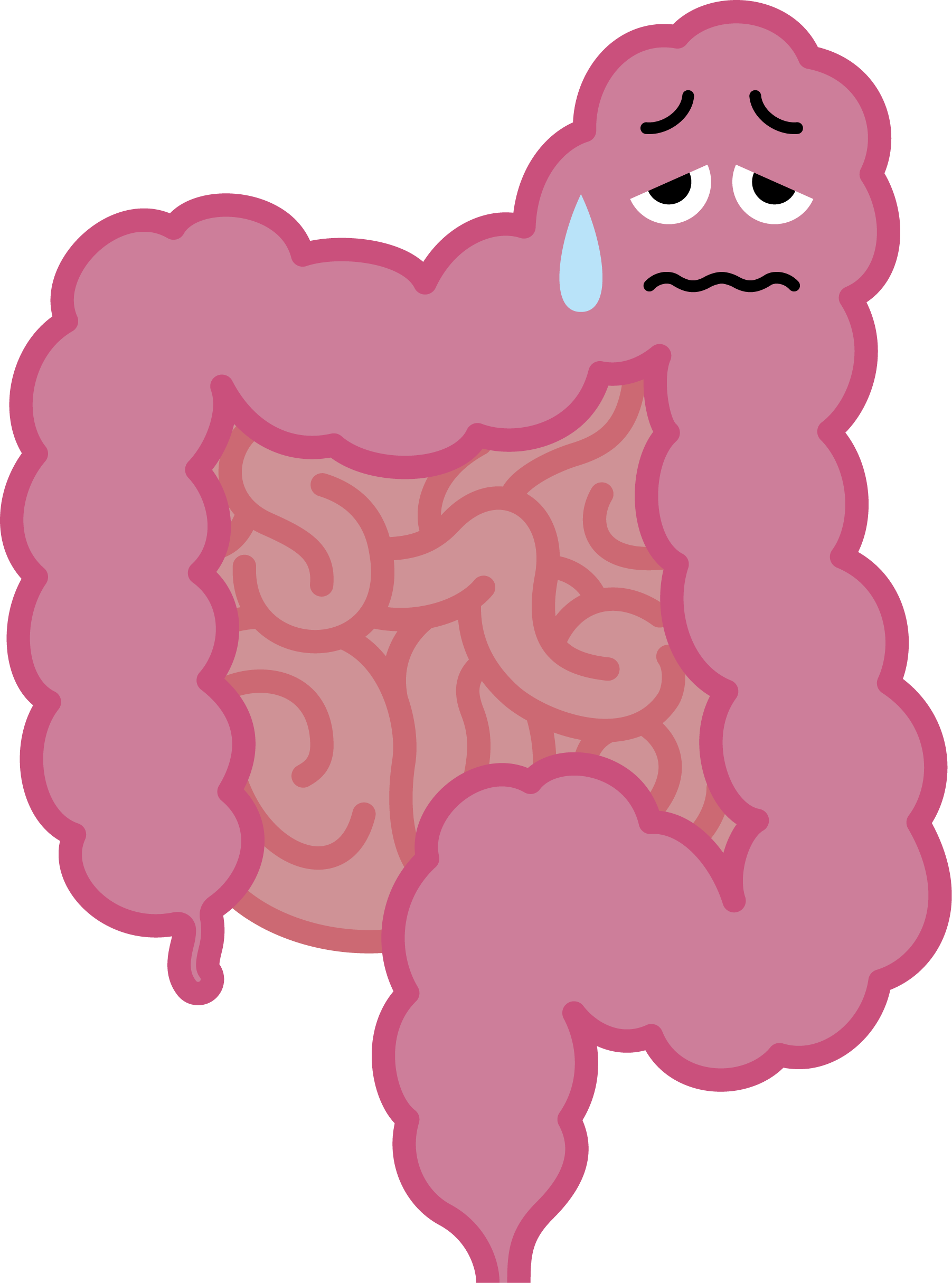
These are also important regarding constipation
-
Whole fruit is always a better option than juice. If you are diabetic then you may opt for low glycemic index fruits. If excessive gas or bloating is bothering you then you must include low FODMAP fruits in your diet. Here is a complete list of low and high FODMAP food.
-
It is important to eat the skins and edible seeds for extra fiber and try to include organic fruits so that skin is free from any pesticides. Pesticides are well known for gastrointestinal tract abnormalities.
-
Try to have a low glycaemic fruit or and vegetable with each meal.
-
Eat recipes that are made with 100% whole grain.
-
Have brown rice in place of white rice or starchy potatoes.
-
Try to avoid refined products.
-
Eat more beans, lentils, and peas. Add them to soups.
-
Beans are also a good source of protein, so you can add to increase the protein content of the food. Beans can be gas forming as it is high in FODMAP, so add them gradually. If bloating or discomfort is more, you can limit them in the diet.
Commonly asked questions on constipation
Q. Cooking process can reduce the amount of fiber?
A. No, Cooking process like cutting, steaming, blending, or pureeing food does not decrease the amount of fiber.
You can also add fiber to your diet by adding 1 to 2 tablespoons of chia seeds, ground flax seeds, or bran (wheat, rice, or oat). For packaged food, read the Nutrition Facts label to find out the percentage of fiber. Look for foods with a percent daily value (%DV) of 15% or more for fiber. This means the food has ‘a a lot’ of fiber.
Q. How much fiber in a food is called “high fiber food?”
A. Foods that have at least 4g of fiber per serving are considered high fiber.
Q. How much fiber is required for a patient at risk of bowel obstruction?
A. If you are at risk for a bowel obstruction, do not consume high fiber without consulting a medical practitioner. A doctor will make you understand how much fiber in a diet is right for you.
Q. I am on the medication which you have described to cause constipation. So changes in diet can improve my constipation or not?
A. Diet medications are less likely to improve your constipation if a medication or a medical condition caused it.
Read more about constipation
Your queries (FAQ)
We never promise an unrealistic goal. We help patients to understand the disease and process for their correction with lifestyle modification. Dedicated patients usually do it perfectly but after all the perfection some patients may not get the desired result. The main reason being hormonal issues, disease conditions like high insulin state, high estrogen state, hypothyroidism (low thyroid hormone), body disability, restricted body movement, lack of interest, unrealistic goals, etc. In this situation, we can try another method but keep in mind that every patient will get the same result is not true.
Read MoreYou may cancel your premium subscription plan within 7 days of subscription. The fee will be refunded after subtracting the consultation fee, processing fee, and bank transaction charges.
-
Please note that the above charges will be adjusted after deducting the Doctor Consultation charge (999/- or $30 (United States Dollars thirty)) and a processing fee of Rs. 750/- (Rupees seven hundred and fifty) for India or $20 (United States Dollars twenty) for locations outside India (including Taxes and bank charges, if any). The refund shall be processed in the manner/mode which is used to subscribe to the DietPlusMinus Plan within 30 (thirty) days from the date of cancellation.
-
If you have purchased a DietPlusMinus one diet chart plan, seven diet chart plan, one-month diet chart plan, you will not be eligible for a refund from DietPlusMinus.
No. We usually provide three meals in a day and in some diseases it's four to five meals. Mealtime you need to adjust according to your convenience as this is not only three months or six months program, you need to adopt a better eating habit for a lifetime.
Read MoreNo, usually we do not allow milk in the diet plan especially when you have enrolled for abdominal symptoms along with weight loss but milk products like curd, paneer, etc are allowed. The Milk keeps you full for a longer time as a result of fullness you may not eat the whole plate. Less calorie intake may start unintentional muscle loss so, if you need to drink milk then the best time is to drink in the evening. However, remember that drinking excessive amounts of milk may lead to weight gain due to high-calorie intake.
Read MoreYes, you can have snacks. Sprouted moong beans, green sprouts, almond milk, etc, and leftovers from the previous meal can be taken as snacks.
Read MoreNormally there are only three meals in a diet plan, but it can be changed depending upon your requirements.
Read More
We do not sell any products on Amazon. We are only affiliated with Amazon. The products suggested to you are based on the customer's reviews only. We are not giving any guarantee regarding the quality, quantity. When you are purchasing, please read everything carefully as we are not responsible for any products purchased on Amazon.
Read More
Diet customization needs a lot of effort. After the purchase of a subscription, we take a history including dietary history and analyze blood reports. We usually assign a diet within 3-5 working days after purchasing and after completion of all basic formalities like blood report analysis, history, etc
Read More

